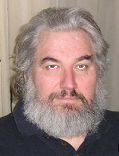
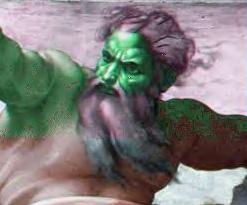
TLW's Historianscope™ (Historian Historyscope) |
By T.L. Winslow (TLW), the Historyscoper™ |
© Copyright by T.L. Winslow. All Rights Reserved. |
Original Pub. Date: Aug. 4, 2013. Last Update: Nov. 20, 2023. |


TLW's Historianscope™ (Historian Historyscope) |
By T.L. Winslow (TLW), the Historyscoper™ |
© Copyright by T.L. Winslow. All Rights Reserved. |
Original Pub. Date: Aug. 4, 2013. Last Update: Nov. 20, 2023. |



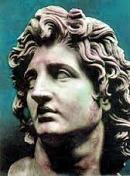



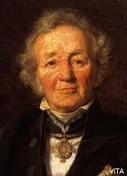





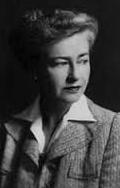
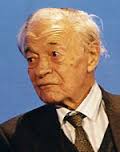


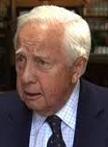
Westerners are not only known as history ignoramuses, but double dumbass history ignoramuses when it comes to historian history. Since I'm the one-and-only Historyscoper (tm), let me quickly bring you up to speed before you dive into my Master Historyscope.

The 6K years of human history encompass so vast an experience that most historians superspecialize in one narrow field their whole careers. That's why TLW invented Historyscoping, a new methodology of using the great power of the Internet (electronic search etc.) to go broad first and deep second, resisting superspecialization until all 6K years are mastered to enough depth to appreciate the major events and see the flow of time, but always playing for keeps by feeding you history nuggets filled with precise detail that you can rely on for life. This Historyscope will cover the major historians from Herodotus to the present day to give you a er, broad knowledge so you can see how they did it before TLW. One day TLW hopes that masters degree candidates in history first have to become Historyscopers so that their careers will benefit from their broad background and panoramic awareness, unlike what they get away with now.
About 3,200 B.C.E. the art of Writing was invented in Sumer, making history possible. About 1,800 B.C.E. Alphabetic Writing was invented by Semitic workers in the Sinai by modifying Egyptian hieratic glyphs. About 1,500 B.C.E. the 22-letter (consonants only) Phoenician Alphabet began to be developed, reaching its completed form around 1,200 B.C.E., spawning the Aramaic and Greek alphabets (which introduces the first explicit symbols for vowel sounds); the Roman alphabet is developed from the Greek alphabet; the Brahmic alphabet is developed from the Aramaic alphabet? About 1,200 B.C.E. writing was independently invented in China.
About 1200 B.C.E. Beirut-born Phoenician historian Sanchoniatho (Sanchuniathon) (Sancuniates) allegedly thrives, leaving three books, which are partially preserved by Philo of Byblos and Eusebius of Caesarea.
In 482 B.C.E. Chinese philosopher Confucius (-551 to -479) returns to the state of Lu and devotes the remaining four years of his life to completing his work of compiling and editing the Chinese Classics, the first three of the five king (canonical books), while sitting under a gingko biloba tree, composing the Spring and Autumn Annals as a supplement to the 3rd king, covering from -722 to -481, becoming the earliest surviving Chinese historical text in annals form.
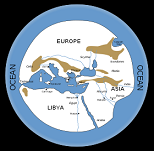
About 476 B.C.E. after years of extensive travel, Greek historian #1 Hecataeus of Miletus (b. -550) (named after the goddess Hecate) dies, leaving Travels Round the Earth (Periodos Ges) (Periegesis) (2 vols.), which contains his World Map, an improvement on Anaximander's; "I laugh when I see that many have designed maps of the earth, yet no one has been able to present the matter in an intelligent way. They draw an Ocean flowing round the earth, which they present as exactly circular, and they make Asia equal in size to Europe." (Herodotus); also leaves Genealogies (Histories), a history of the Greek heroes, of which about 40 survive; "Hecataeus of Miletus thus speaks: I write what I deem true; for the stories of the Greeks are manifold and seem to me ridiculous." (opening line)

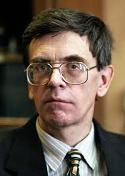
On Aug. 3, 431 B.C.E. "At last all was ready, and they were on the point of sailing away, when an eclipse of the Moon, which was then at the full, took place" (total solar eclipse) (Thucydides); he records another eclipse seven years later on Mar. 21, -424, and a 3rd eclipse 11 years after that on Aug. 27, -413; in 1907 Russian mathematician Nikolai Alexandrovich Morozov (1854-1946) claims that the first eclipse occurred on Aug. 2, 1133 C.E., and Russian mathematician Anatoly Fomenko (1945-) uses this to back his claim that all of ancient chronology is moose hockey, and that Jesus Christ was born in the 12th cent. C.E.; Greek Athenian gen. Thucydides begins writing "History of the Peloponnesian War" - TLW needs to create an All New Revised Historyscope, yikes, he hopes not?

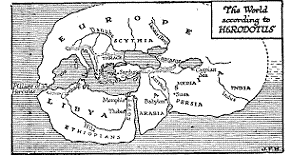
About 425 B.C.E. Greek historian Herodotus (Heródotos) (b. -484), born in Halicarnassus, Caria (modern-day Bodrum, Turkey) in SW Asia Minor (a Doric colony under Persian domination, making him a Persian subject) (the first Greek to know that the Red Sea connects to the Indian Ocean?) dies in Thurii (Thurium), Magna Graecia (S Italy) or Pella, Macedon after becoming the first historian to systematically collect and arrange his materials into a critical narrative, leaving The Histories (History) (Gr. "investigations") (earliest example of Greek/Euro prose to survive to modern times), causing him to be called "the Father of History" by Cicero; "I, Herodotus of Halicarnassus am here setting forth my history, that time may not draw the color from what man has brought into being, nor those great and wonderful deeds, manifested by both Greeks and barbarians fail of their report, and, together with all this, the reason why they fought one another" (first line); "The only good is knowledge, the only evil is ignorance"; "Very few things happen at the right time, and the rest do not happen at all. The conscientious historian will correct these defects"; "Of old the Hellenic race was marked off from the barbarian as more keen-witted and more free from nonsense."
In the last decade of the 5th cent. B.C.E. Greek physician-historian Ctesias of Cnidus (the Cnidian) (-400) of the Cnidian School of Medicine (rival to Hippocrates) flourishes, becoming physician to Achaemenid king Artaxerxes II and accompanying him on his 401 B.C.E. expedition against his brother Cyrus the Younger, going on to write Persica (23 vols.) (a reply to Herodotus founded in the Persian royal archives) and Indica, the first full monograph on NW India, giving the Persian view, describing a land full of fantastic monsters incl. elephants and talking parrots, containing the first Western description of a unicorn, a white beast with blue eyes, purple head, and multicolored horn, which cures epilepsy, along with a description of Indian medicine, along with a statement that Indians disdain death; he also writes a treatise on medicine (lost), On the Tributes of Asia (lost), and Periodos (Periegesis) (Periplous) (3 vols.), a geographical treatise on Asia incl. Egypt, the Black Sea region, and Italy.

About 400 B.C.E. Greek Athenian historian Thucydides (b. -471/-460) dies, leaving History of the Peloponnesian War, characterized by strict standards of evidence-gathering and analysis of cause and effect without bringing in the gods, causing him to become known as "the Father of Scientific History"; "To hear this history rehearsed, for that there be inserted in it no fables, shall be perhaps not delightful. But he that desires to look into the truth of things done, and which (according to the condition of humanity) may be done again, or at least their like, shall find enough herein to make him think it profitable. And it is compiled rather for an everlasting possession than to be rehearsed for a prize" (opening line) (a dig at Herodotus?); leaves the last seven years of his history of the Peloponnesian War unfinished; "[In Thucydides] the portrayer of man, that culture of the most impartial knowledge of the world finds its last glorious flower (Friedrich Wilhelm Nietzsche); "The favorite author of the greatest and noblest men, and one of the best teachers of the wisdom of human life" (Johannes von Muller); "History is philosophy teaching by examples"; "Be convinced that to be happy means to be free and to be free means to be brave. Therefore do not take lightly the perils of war." In 1628 big admirer Thomas Hobbes becomes the first to translate his writing into English directly from the Greek, going on to become one of the Big Three Founders of Political Realism along with him and Machiavelli.

About 370 B.C.E. Greek lover, fighter, scholar, and historian ("the Attic Muse") Xenophon (Gr. "foreign voice") of Athens (-431 to -354) writes Anabasis (Gk. "An Ascent") (7 vols.) (an expedition from a coastline to the interior of a country, as opposed to katabasis, from the interior to the coast), "One of the great adventures in human history" (Will Durant); about the Greek expedition of the Ten Thousand against Artaxerxes II of the Persians and the long journey home after their sponsor Cyrus the Younger is KIA in Babylon at the 401 B.C.E. Battle of Cunaxa; how Spartan gen. Clearchus, the leader of the Ten Thousand is treacherously murdered in a conference by Tissaphernes, leaving Xenophon as one of the last three leaders of the soldiers, bravely leading them N from N Mesopotamia through Corduene and Armenia to the Black Sea at Trebizond; upon encountering some barbarians (Celts?), he puzzles about their strange drink: "There were stores within of wheat and barley and vegetables, and wine made from barley in great big bowls; the grains of barley malt lay floating in the beverage up to the lip of the vessel, and reeds lay in them, some longer, some shorter, without joints; when you were thirsty you must take one of these into your mouth, and suck. The beverage without admixture of water was very strong, and of a delicious flavor to certain palates, but the taste must be acquired." (Book IV)
About 260 B.C.E. Messina, Sicily-born Greek philosopher Euhemerus (Gk. "happy, prosperous") (Euemeros) (Evemerus) (-330 to -260) dies after teaching at the court of Macedonian king Cassander the doctrine of Euphemerism, which holds that myths can be attributed to historical persons and events.
About 290 B.C.E. Babylonian historian-astronomer-priest Berossus (Berosus) ("Bel is their shepherd") writes History of Babylonia (Babyloniaca) (3 vols.), and Procreatio.

In 283 B.C.E. Macedonian Greek gen. Ptolemy I Soter (Gr. "savior") (Lagides) (b. -367) dies after telling Euclid of Alexandria that his Elements is too hard to study and receiving the reply "There is no royal road to geometry", leaving History of the Conquests of Alexander; his son Ptolemy II (d. -246) becomes sole ruler of Egypt and Libya, and king #2 of the Egyptian 32nd (Ptolemaic) Dynasty.

About 275 B.C.E. Egyptian high priest Manetho writes History of Egypt (Aegyptiaca) (3 vols.) in Greek, becoming the first to divide rulers into dynasties.
About 250 B.C.E. Taormina, Sicily-born Greek historian Timaeus (b. -345) dies, leaving his 40-vol. Histories, covering Greek history to the First Punic War, becoming one of the first Greek works to recognize the importance of Rome, covering the history of Italy and Sicily, using Olympic years and winners of the Stadion, Athenion Archons, Spartan Ephors et al. to compute his chronologies.
About 200 B.C.E. Roman senator-historian ("the Founder of Historiography") Quintus Fabius Pictor, who fought the Gauls in -225 and also fought in the Second Punic War (-218 to -201), visiting the oracle in Delphi in -216 for advice after the defeat at the Battle of Cannae flourishes, writing a history of the Second Punic War in Greek using Olympiad dating and a Hellenistic style, becoming the first Roman annalist, starting the "ab urbe condita" (from the founding of the city) tradition, making use of the work of Greek historian Diocles of Peparethus, and used as a source by Polybius, Plutarch, Livy, and Dionysius of Halicarnassus; too bad, he is heavily biased on the Roman side, churning out propaganda, as mentioned by Polybius; dates the founding of Rome as "the first year of the 8th Olympiad", i.e., 747 B.C.E.

About 168 B.C.E. Roman statesman-historian Marcus Porcius Cato (Lat. "All-Knowing") Priscus (Lat. "the Ancient") Censorius (Lat. "the Censor") Major (Lat. "the Elder") (-234 to -149) writes Origines (7 vols.), becoming the first Latin writer of history, writing abe urbe condita (from the founding of the city of Rome), extolling Roman virtues and claiming that not only Rome but other Italian towns were venerable, thus Romans are superior to the Greeks.

About 146 B.C.E. Megalopolis, Arcadia-born Greek historian Polybius (-203 to -118), who witnessed the sack of Carthage this year and was awed with Roman might begins writing a 40-vol. History of Rome, covering the Roman Repub. from -264 to -146, its wars with Carthage starting in -220, and its rise to top dog status in the Mediterranean world, which becomes instrumental in convincing Greeks to give into the inevitable and change their ways; he champions the idea of factual integrity in historical writing, and proposes the separation of powers in govt., later adopted by Montesquieu and the Am. Founding Fathers;

The original National Greekographic? In 90 B.C.E. Greek Stoic polymath philosopher-historian Posidonius "the Athlete" of Apamea (Rhodes) (-135 to -51) sets out on a mission to visit the "wild" Celts of the forests and mountains of W Europe, producing his History of the Wild Celts (later lost), which becomes a Roman bestseller; he says that the Celts are sophisticated people who perform highly ritualized human sacrifice, compose beautiful poetry, and give their Celtic women greater freedom than even the Romans (incl. the right to be a warrior), and falsely claims that they are cannibals; Julius Caesar reads it and now knows what his life work will be, namely, to kill or enslave them all and steal everything they've got to make himself a millionaire and big man who's spread civilization to the less fortunate?; once nice thing, the Celts have no written language, so the survivors won't later stink Rome up with bestselling exposes?

In 86 B.C.E. after being castrated in -99 for urging the emperor to go light on defeated Gen. Li Ling, Chinese royal astrologer (-107 to -99) and Han Dynasty historian ("the Herodotus of China") ("Father of Chinese Historiography") Sima Qian (Ssuma Ch'ien) (b. -145) dies, becoming the 2nd person to write Chinese history, leaving Records of the Grand Historian (Chin. "Shiji" = Scribe's Records) (130 vols.) (526K Chinese chars.), the first universal history of China, covering 2.5K years from the Yellow Emperor to Han Emperor Wu, presented as a series of bios., which were started by his royal astrologer (-140 to -110) father Sima Tan (Ssu-ma T'an) (-165 to -110).
In 85 B.C.E. the First Mithridatic War (begun -88) ends with Mithridates VI suing for peace and being allowed to remain king of Pontus as a Roman vassal after paying a heavy fine; brain man Lucius Cornelius Alexander Polyhistor (of Miletus) (-105 to -35) is captured by Sulla during the war and brought back to Rome to become his children's tutor, going on to become the TLW of the 1st cent. B.C.E., living like a hermit and churning out a giant Historyscope in his house in Laurentum, working hard and seldom leaving it until it finally burns down, taking him with it, along with his work - what's bothering me, what's bothering me, what's bothering me?

In 50 B.C.E. clean-shaven Roman gen. Gaius Julius Caesar (-100 to -44) ends the Gallic Wars (begun -58) by defeating the bearded hick Celtic Aquitani, and subjugates all of Gallia Transalpina, turning it into the new Roman province of Aqua Velva, er, Aquitania; he then plays the Miles Gloriosus (boastful soldier blowing his own horn) by staying in Bebracte in Gaul and writing his it's-beginning-to-look-a-lot-like-Christmas The Gallic (Gaullic) Wars (Commentarii de Bello Gallico) (8 vols.) and The Civil Wars (Commentari de Bello Civilli) (3 vols.) to boost his popularity among the clean-shaven sponge-wiped everywhere the Roman roads go, justifying the Gallic Wars as defensive wars made necessary by massive Helvetian migration through the provinces; the Gallic Wars contains the first written description of a reindeer as "an ox shaped like a stag"; in his writings Caesar fails to call the Celts in the British Isles Celts; the first official govt. coverup?; "All Gaul is divided into three parts." (first line)
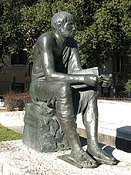
In 27 B.C.E. Roman historian Ma href="https://en.wikipedia.org/wiki/Marcus_Terentius_Varro">Marcus Terentius Varro (b. -116) (most learned man in Rome) dies, leaving 74 works (620 vols.), incl. "Nine Books of Disciplines", which uses the liberal arts as organizing principles, later reduced to the seven classical liberal arts; only "Rerum Rusticarum Libri Tres" (Three Books on Agriculture) survives to modern times; his Varronian Chronology of ancient Rome is based on the list of consuls; "There are bred certain minute creatures which cannot be seen by the eyes, but which float in the air and enter the body through the mouth and nose and cause serious disease."

In 21 B.C.E. Agyrium, Sicily-born Greek historian Diodorus Siculus (of Sicily) (-90 to -21) dies, leaving Bibliotheke Historike (Historical Library), a 40-vol. history of the world in 3 parts written in -60 to -30, covering 1,138 years from Creation to the Trojan War, from the Trojan War to the death of Alexander the Great, and from thence to the start of Caesar's Gallic Wars; books 1-5, 11-20, and parts of 21-40 survive; gives an account of slave labor gold mining in Nubia, and the pesky Celts, which he claims live in S France and are separate from the Gauls, who live to the N of them; "Physically the Celts are terrifying in appearance with deep-sounding and very harsh voices. In conversation they use few words and speak in riddles, for the most part hinting at things and leaving a great deal to be understood. They frequently exaggerate with the aim of extolling themselves and diminishing the status of others. They are boasters and threateners, and given to bombastic self-dramatization, and yet they are quick of mind and with good natural ability for learning." (Book 5)

In 17 C.E. Patavium (modern-day Pavia, Italy)-born Roman historian Titus Livius Patavinus (Livy) (-59 to 17) dies in exile in Patavium after spending most of his life in Rome and writing a letter to future emperor Claudius ca. -14 to take up the writing of history, leaving Ab Urbe Condita Libri (Books from the Foundation of the City), a monumental history of Rome in 142 vols., from its founding in 753 B.C.E. through the reign of Augustus, ending with the death of Drusus in 9 B.C.E., written during Augustus' reign, which becomes an instant Roman hit; only vols. 1-10 and 21-45 survive to modern times; "We fear things in proportion to our ignorance of them."

In 24 C.E. Pontus, Anatolia (Turkey)-born Greek geographer-historian Strabo (b. -63) dies, leaving History (47 vols.) (lost), and Geography (17 vols).
In 31 C.E. Roman historian Marcus Velleius Paterculus (-19 to 31) dies, leaving Compendium of Roman History (2 vols.), covering from the Siege of Troy to the death of Livia in 29 C.E., incl. the destruction of Carthage in -146, and the period from the death of Julius Caesar in -44 to the death of Augustus in 14; incl. a Dissertation on Intellectual Clustering; “Although I often seek explanations for why similar minds cluster in one period and focus on the same pursuit with similar success, I never find any I am sure are true, but only those that seem probable, especially the following. Emulation fosters genius; and then envy, then admiration which motivates imitation. By nature, whatever is sought with the utmost passion advances to the greatest degree. It is difficult to continue from there to perfection; naturally, what cannot proceed recedes."
In 54 C.E. Chinese historian Ban Biao (Pan Piao) (b. 3) dies, leaving History (Book) of the (Former) Western (Xi) Han Dynasty, which is completed by 111 by his son Ban Gu (32-92) and daughter Ban Zhao (45-116), covering from the first emperor in -206 to Wang Mang in 23.

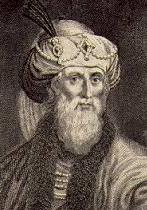
About 100 C.E. Jewish turncoat historian Titus Flavius Josephus (Joseph ben Matityahu) (b. 37) dies, leaving The Jewish War (ca. 75), Antiquities of the Jews (c. 94), Against Apion, and Autobiography; too bad, his works end up as the main source for Jewish history in the critical 1st cent., and since they contain no awareness of the subversive Christian movement they cause later interpolators to have a field day turning him into a Christian?
In the 2nd cent. C.E. Roman historian Lucius Anneus (Julius) (Publius Annius?) Florus flourishes, writing Epitome of Roman History, covering from the foundation of Rome to the year 25 B.C.E., which becomes popular in the Middle Ages despite being full of errors; it describes the city of Florentia (modern-day Florence) in N Italy as a most splendid metropolis.

About 118 C.E. Roman senator-historian Publius (Gaius) Cornelius Tacitus (55-118) dies, leaving The Histories (14 vols.), which covers the Year of the Four Emperors (69 C.E.) to Domitian's death in 96; The Annals of Imperial Rome (16 vols.); his masterpiece, which covers from the death of Augustus in 14 C.E. to the death of Nero in 68 C.E.; the Romans "make a desert and call it peace"; Life of Gnaeus Julius Agricola; Germania (De Origine et situ Germanii) (On the Origin and Location of the Germans); an attempt to contrast the primitive unspoiled virtuous Germans with the effete decadent Romans; Germans don't like hard work and can withstand cold and hunger well, but can't handle heat and thirst without beer; "They drank a liquor of barley or other grain that was fermented into a corrupt resemblance to wine"; contains a picture of the virtuous German hausfrau; claims that the "Teutons Gothones" live in the Vistula River basin and have a fiercely independent spirit.

About 127 C.E. Chaeronea, Boeotia-born Greek Platonist biographer Plutarch (Lucius Mestrius Plutarchus) (b. 46) dies in Delphi, Phocis, leaving Lives of the Noble Greeks and Romans (Parallel Greek-Roman Lives), dedicated to emperor Trajan's friend Quintus Sosius Senecio; only 23 pairs of bios. survive; also Moralia, and On the Glory of Athens, which contains the first mention of the story of the runner at Marathon in 490 B.C.E.
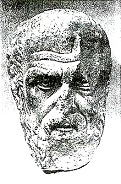
About 160 C.E. Greek historian-philosopher Arrian of Nicomedia (Lucius Flavius Arrianus "Xenophon") (b. 86) dies, leaving his Anabasis of Alexander (7 vols.), becoming the best source of the campaigns of Alexander III the Great; he also leaves Indica (on India), and two books on his teacher Epictetus' philosophy.


A gynecologist with a sore anus took a hypocritical oath? In the 2nd cent. C.E. Greek physician Soranus of Ephesus dies, leaving "On Acute and Chronic Diseases" (describing the Guinea Worm), "Treatise on Gynecology" (4 vols.), "De Anima" (4 vols.) (which divides the soul into seven parts and denies its immortality), "Two Treatises on Pharmacy", and The Life of Hippocrates [fl. 400 B.C.E.], the earliest surviving bio. and source of most info. on him.

About 200 C.E. Roman-born Christian bishop St. Hippolytus of Rome (170-235) writes Philosophoumena (Refutation of All Heresies), and Treatise on Christ and Antichrist (204?), a commentary on the Book of Daniel that feeds Millennium Fever for cents., using the dimensions of the Ark of the Covenant to set the date for the Second Coming of Christ as the year 500, exactly 6K years after the creation of Adam, containing the soundbyte: "For the first advent of our Lord in the flesh, when he was born in Bethlehem, was December 25th, Wednesday, while Augustus was in his forty-second year, but from Adam, five thousand and five hundred years. He suffered in the thirty-third year, March 25th, Friday, the eighteenth year of Tiberius Caesar, while Rufus and Roubellion were Consuls"; also Discourse to the Greeks Concerning Hades - who sucks worse, Minos, Rhadamanthus, or Aeacus? He is martyred in Sardinia in 235 C.E., leaving Chronicon, a history of the world from Creation to 234 C.E., which claims that Jesus Christ was born 9 mo. after the anniversary of the Creation (Mar. 25), i.e., Dec. 25.
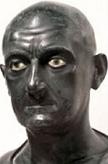
In 221 C.E. Jerusalem-born Libyan Roman Christian historian Sextus Julius Africanus (160-240) finishes his Chronographies (Chronographiae), a history of the world from Adam in 5500 B.C.E. to 221 C.E., which Bishop Eusebius Pamphili of Caesarea later corrects errors in; it dates Creation at 5500 years before the birth of Christ, and dates Christ's birth three years earlier than the usual, on Dec. 25 (winter solstice), based on his conception on the day of Creation, Mar. 25 (equinox), which is later adopted by the Eastern Christian churches; his work is lost except for fragments in Eusebius' Chronicon et al.

In 325 Caesarea, Palestine-born Roman Arian bishop of Caesarea (since 314) Eusebius Pamphili of Caesarea (260-340) (of Greek descent) writes Historia Ecclesiae (The History of the Church) (written in Koine Greek), becoming the first full-length historical narrative written from a Christian POV, making him "the Father of Church History".
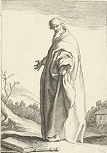

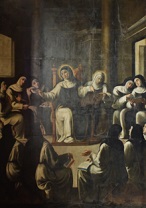
In 379 a hostel is founded on the Mount of Olives in Jerusalem by Roman monk-historian-theologian Tyrannius Rufinus of Aquileia (344-411) (friend of St. Jerome) and St. Melania the Elder (350-417), a learned ascetic aristocrat of Spanish descent, who is a cousin of St. Paulinus of Nola; in 385 St. Jerome (347-420) and his widowed friend St. Paula of Rome (347-404 stay at their hostel, using it as a model for their hostel in Bethlehem despite Jerome falling out with Melania for not being as ascetic as him; Rufinus leaves a church history along with a Latin trans. of Eusebius' church history that continues the work from Constantine I to Theodosius I (395).
Late in the 4th cent. the Historia Augusta, a Latin bio. of the lives of the Roman emperors from Hadrian to Numerian (117-284) is allegedly written by six authors.

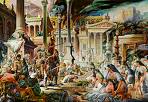


On Aug. 24-27, 410 after invading Italy, Visigoth king Alaric I and his army sacked Rome (say again?), leaving churches alone since they're still Christians, if heretic Arians, then head S towards Italy's granary in N Africa; Alaric I dies on the way to Sicily after losing his fleet and being turned back, and is buried in the bed of the Busento River; his brother-in-law Ataulf (Atawulf) (Athavulf) (Athaulf) (Ataulphus) (-415) succeeds him, vowing to destroy the very name of Rome (home of the heretic Nicean Council crowd of bishops?), causing head bishop Pope Innocent I to leave the city until 412; the woes of the prostrate city cause St. Augustine of Hippo (354-430) to produce his 22-vol. escapist work (about a holy Augustus ruling an invincible holy city of Rome?) The City of God, as the real City of God is no longer able to protect what's left of the Western Roman Empire from the heavy G.I. Joe and hairy Barbie-doll barbed Arians (barbarians)?; he at first claims "Behold, from Adam all the years have passed, and behold the 6,000 years are completed", but as the world keeps going he teaches that the Church should ditch the Book of Revelation because the Kingdom of God has actually arrived with its new political power, and imagines the Church as a worldwide empire acting as the instrument of the Holy Spirit to gradually transform the world, but preaches that the heavenly New Jerusalem should be the goal rather than the earthly one; he pushes the doctrine of "Totus Ubique" (the whole of God everywhere), invents the notion of the inner self, explores the inner relationship between the soul and God along with the idea of divine grace, and all with the cool language of a Roman-trained rhetorician, dissing the Donatists by claiming that saints and sinners should all be part of the Catholic Church, and will be separated at the End of Time, with the mystical secret brotherhood of saints forming the City of God, and the sinners forming the Twin City of Hell; "That which man builds man destroys, but the city of God is built by God and cannot be destroyed by man", its role being "to inspire men and women to organize their communities in the image and likeness of the heavenly city"; the operational message is that Christians should get out and convert violent barbarians, giving the Roman Catholic Church its Mission: Impossible for the next five cents.; too bad, his work is later used to justify persecution of heretics and Jews because membership in the Church is mandatory; Pope Innocent I laps it up and becomes a groupie? - duh, Jesus said be no part of this world (John 17:14-16)? In 412 Pope Innocent I returned to Rome and took the lead in the reconstruction of the city (the Catholic way?), insisting that all Western bishops recognize him as head in matters of worship.
In 411 the Synod of Carthage sees St. Augustine debate the Donatists, swinging many of them to orthopedic orthodoxy, after which Pelagius moves to Palestine, causing Augustine to send Gallecian-born theologian Paulus (Paul) Orosius (375-419) to meet with him. In June 415 the Synod of Jerusalem sees Paulus Orosius communicate the decisions of the 411 Synod of Carthage and read several of St. Augustine's writings against Pelagius; too bad, the Greeks in attendance don't understand Latin, and Pelagus counters with the immortal soundbyte: "Et quis est mihi Augustinus?" ("Who is Augustine to me?"), after which Jerusalem archbishop John II accuses Orosius of heresy in front of the synod, causing him to later write "Liber Apologeticus" in his defense. On Dec. 26, 415 the relics of St. Stephen are uncovered in Palestine, and taken by Paulus of Orosius to Braga, Spain via Hippo so he can deliver letters from Jerome to St. Augustine, his meeting causing him to come up with the idea for a new work against paganism, Historiae Adversus Paganos (7 vols.), which he finishes in 416-7 before disappearing from history.
About 439 Greek Arian historian Philostorgius (b. 368) dies, leaving Ecclesiastical History (12 vols.) (425-33).
In 449 Syrian Christian bishop Theodoret of Cyrus (393-458) finishes his 5-vol. Historia Ecclesiastica (History of the Church), covering from Arius to the year 429.
About 518 pagan Byzantine historian Count Zosimus Historicus of Constantinople finishes his 6-vol. Historia Nova, a history of Roman emperors from Augustus to Diocletian, then from Constantius Chlorus and Galerius to the death of Theodosius, then from 395 to the desposition of Priscus Attalus in 409, breaking off in summer 410 C.E., blaming Rome's fall on the principate after the Christian conversion of Constantine the Great; "You, O accursed and totally defiled one, say that the fortunes of the Romans wasted away and were altogether ruined from the time when Christianity was made known." (Evagrius Scholasticus)
About 537 Syrian bishop-historian Zacharias Scholasticus (Rhetor) of Mytilene (b. 465) dies, leaving Ecclesiastical History, which covers from 451-91.
In 540 Scottish-born British monk St. Gildas the Wise (Sapiens) 516-70) writes De Exicido et Conquestu Britanniae (On the Ruin and Conquest of Britain); the history of the Britons before/after the coming of the Saxons.
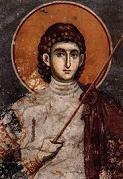
In 562 Palestine-born Greek Byzantine historian Procopius of Caesarea (b. 490) former secy. and bitter enemy to Gen. Belisarius, who likes to dish out the dirt dies after probably having had something to do with getting him convicted, becoming the last major historian of the ancient Western world, leaving The Wars of Justinian, Of the Buildings of Justinian, and Anekdota (Secret History), or, Eight Books on the History of the Byzantine Empire and its Wars: Persian (vols. 1-2), Vandalic (3-4), Gothic (5-7), Misc. Wars (8); they are continued in the Five Books on the History of the Byzantine Empire by Mysia-born historian Agathias Scholasticus (530-82). Book 8 of Procopius's Anekdota (Anecdota) (Unpub. Notes) (Secret History) ends in spring 553, and is continued to 559 by Agathias; too bad, the whole work is considered porno by the West, and a Latin trans. doesn't come out until the 17th cent.; it's actually a repudiation of Procopius' "Wars of Justinian" and "Buildings of Justinian", exposing Justinian as evil incarnate?; "It was not possible, as long as the actors were still alive, for these things to be recorded in the way they should have been. Nay, more, in the case of many of the events described in the previous narrative I was compelled to conceal the causes which led up to them", even though "such things... will seem neither credible nor probable to men of a later generation."

In 574-94 Frankish dwarf (under 3.5'-tall) historian and Roman Catholic bishop (St.) Gregory (Gr. "watchful, vigilant") of Tours (Georgius Florentius) (538-94) of Tours in Gaul writes Historia Francorum (History of the Franks) (10 vols.), covering the Merovingian era to 591, becoming the #1 history of the era.
About 590 Christian Byzantine historian John of Epiphania writes a history of the Byzantine-Persian wars from Khosrau I vs. Justin II to Khosrau II's flight to the Byzantines.
In 594 Syrian Christian (Chalcedonian) historian Evagrius Scholasticus (b. 536) dies, leaving Ecclastical History, covering from the 431 First Council of Ephesus to the reign of Emperor Maurice in 582-602.
About 630 Thophylact Simocatta writes about Byzantine emperor (582-602) Maurice, becoming the last historian of Late Antiquity, leaving eight vols.; he also leaves "Physical Problems", and a collection of 85 epistolary essays; in 1509 Nicolaus Copernicus pub. a trans. of Theophylact in Cracow.

In 703 "Father of English History" (St.) The Venerable Bede of Jarrow (673-735) completes De Temporibus Liber (The Book of Times), a history of the world. In 725 he writes De Temporum Ratione (The Reckoning of Time), which describes the Julian and Anglo-Saxon calendars, attempting to reconcile astronomy with the Bible, using the A.D./B.C. dating method of Dionysius Exiguus (525). In 731 he completes his Ecclesiastical History of the English People (Historia Ecclesiastica Gentis Anglorum), dedicated to "the most glorious King Ceowulph", focusing on the conflict between Roman and Celtic Christianity, continuing to use the A.D./B.C. dating method, which starts gaining acceptance in W Europe - proper etiquette says A.D. 1 and 1 B.C., not 1 A.D. or B.C. 1?
In May-Sept. 751 the Battle of the Talas River (Artiakh) is a V by the Arab Abbasids and their Tibetan allies over the Chinese Tang Dynasty under Emperor Xuanzong, giving Muslims control of Transoxiana for the next four cents.; Chinese POWs allegedly teach the Arabs papermaking, resulting in a book and learning explosion.
About 830 Welsh monk Nennius (Nemnius) (Nemnivus) (Nynniaw) (769-) writes Historia Britonum (History of the Britons), which claims that Britain was founded by Brutus of Et Tu, Brute fame, and that the Cam River near the village of Queen Camel is the location of Camlann, King Arthur's last battle, where he spears his son Sir Mordred, and is in turn cut down by his son's sword, saying, "Ah, now I have my death"; the fortified hill near the village (Cadbury Castle in Somerset) is called Camelat or Camelot by the locals.
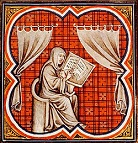
About 831 Frankish courtier-scholar Einhard (Einhart) (Eginhard) (775-840) writes Vita Caroli Magni, a bio. of Charlemagne, becoming the first bio. of a European king?; it imitates the style of Suetonius's bio. of Augustus.
In 945 Yemeni-born Arab Muslim historian Abu Muhammad al-Hasan al-Hamdani (b. 893) dies in Sana'a, Yemen, leaving Al-Iklil (The Crown), an anthology of historical, topographical, and genealogical info. on Arabia, incl. his poem "Al-Damighah" (The Cleaving), and al-Jawharatayn al-Atiqatayn, describing all known metals and attempting to explain Earth's gravity magnetically.
In Sept. 956 Arab Baghdad-born Shiite Muslim historian-geographer ("the Herodotus of the Arabs") Al-Masudi (b. 896) dies in Cairo, leaving The Meadows of Gold and Mines of Gems, a history of the world from Adam and Eve through the late Abbasid caliphate.
In 974 Saxon historian Widukind of Corvey (b. 925) dies, leaving Res Gestae Saxonicae Sive Annalium (Deeds of the Saxons) (3 vols.), which covers Saxony's earliest history through the times of Henry the Fowler (876-936) and HRE Otto I the Great (912-73).
In 1030 Persian Muslim Buyid Neoplatonist philosopher-historian Abu Miskawayh (b. 932) dies, leaving The Experiences of the Nations (Tajarib al-umam), the first major Islamic work on philosophical ethics.
In 1044 Rodolfus (Radulfus) (Ralph) (Raoul) Glaber (the Bald) (985-1047) writes Chronicle (5 vols.), a history of the world since 900, trying to explain why Christ didn't return in the year 1000, making the first mention of Millennium Fever, and coining the phrase "white mantle of churches"; "The most trivial events and tales being put on exactly the same plane as the most important facts" (H.G. Wells) - who would try something like that, chuckle?
In 1044 after Emperor Renzong orders it, Chinese Song Dynasty statesman-historian-poet Ouyang Xiu (Ou Yang Hsiu) (Yongshut) (1007-72) leads the creation of the New History of the Tang Dynasty.
About 1070 William of Jumieges (Guillaume de Jumieges) (b. 1000) dies, leaving Gesta Normannorum Ducum (Deeds of the Norman Dukes), becoming the principal Norman history, by a monk of Jumieges nicknamed Calculus, who was commissioned by Duke Richard I, his half-brother Count Rodulf of Ivry, and his son Duke Richard II, covering the reigns of Richard II, Richard II (1026-7), Robert I (1027-35), and William the Conqueror,through 1070.
On Dec. 22, 1082 Irish monk-chronicler Marianus Scotus (Maelbrigte) (b. 1028) dies in Mainz, leaving Chronicon, a universal history from Creation to the year 1082.
In 1090 Norman priest (chaplain to William I the Conqueror) William of Poitiers (b. 1020) dies, leaving Gesta Guillelmi ducis Normannorum et regis Anglorum (The Deeds of William, Duke of Normandy and King of England), the earliest bio. of William the Conqueror, with an eyewitness account of the 1066 Battle of Hastings incl. the feigned flight.

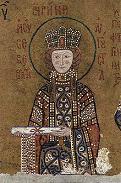
On Aug. 15, 1118 C.E. Byzantine emperor (since Apr. 1, 1081) Alexius I Comnenus (b. 1048) dies after executing Bogomils sect leader Basil the Physician (-1118) for heresy, and his short ugly swarthy (Moorish-looking) but extremely pious son John II Comnenus (Kalojoannes) (the Good) (the Beautiful) (1087-1143) becomes Roman Byzantine emperor #154 (until Apr. 9, 1143), with his wife (since 1104) Irene (Piroska) of Hungary (1088-1134) as empress, proving of high moral integrity and ability, getting compared to Roman emperor Marcus Aurelius, concentrating on taking back the old frontier on the Euphrates and the Latin states of Syria; too bad he's less than top drawer as a military leader?; his ambitious bred-to-the-purple brain woman sister Anna Comnena (Komnene) (1083-1153), who expected to have her statesman-historian hubby (since 1097) Gen. Nikephoros Bryennios (Nicephorus Bryennius) (1062-1137) take the throne plots to have her brother John II assassinated at Alexius I's funeral, but it falls through, and after her hubby chickens-out ("Nature had mistaken the two sexes and had endowed Bryennios with the soul of a woman" - Choniates), she is stifled; after hubby's death she is retired to the Convent of Kecharitomene in Constantinople, turning into a historian herself (first female historian?), writing the 15-vol. Alexiad, a panegyric on her family and father's reign which becomes a major historical source for the period, explaining why she hates the Crusaders' guts.
In 1118 English monk Florence of Worcester (b. ?) dies, leaving Chronicon ex Chronicis, the first English attempt at a universal chronicle from Creation to the year 1140, based on the work of Irish monk Marianus Scotus (1028-82); other writers go on to carry it down to the year 1295; the real author is John of Worcester (-1140)?
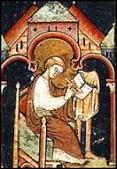
In 1125 Wiltshire, England-born Benedictine monk-historian William of Malmesbury (Willelmus Malmesbiriensis) (1095-1143) (Norman father, Anglo-Saxon mother) (most learned man in 12th cent. W Europe?) writes Gesta Regum Anglorum (History of the English Kings), which covers 449-1120 C.E.; ca. 1140 he writes a 2nd. ed. covering up to 1127, dedicated to Earl Robert of Gloucester, "disclosing in his second thoughts the mellowing of age"; also Gesta Pontificum Anglorum (Deeds of the English Bishops), covering from St. Augustine in 597, claiming that the 1066 Norman Invasion saved England from the barbarities of the Anglo-Saxons and restored it to the Latin culture of the continent, going so far as to Latinize Anglo-Saxon names; this work plus his acquaintance with Bishop Roger of Salisbury, who has a castle there gets him offered the position of abbot of Malmesbury Abbey in 1140, which he declines, instead starting his 3-vol. Historia Novella (Modern History), covering from 1128-42, incl. accounts of The Anarchy (Nineteen-Year Winter) (1135-54) during the reign of King Stephen; too bad, he dies before he can finish it.
About 1130 English Benedictine monk-chronicler Simeon (Symeon) of Durham writes History of the Church of Durham from 635, History of the Kings, and Chronicle of the Angles.
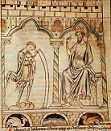

In 1136 English historian Geoffrey of Monmouth (1100-55) writes Historia Regum Britanniae (Historia Britonum) (History of the Kings of Britain) (12 vols.); based on the writings of Nennius; claims to trace Britain from London's settlement by first king Brutus (Brut), great-grandson of Trojan hero Aeneas to the death of Cadwallader (Caedwalla) in the 7th cent. C.E., mentioning Caesar's invasions and British kings Leir (Lear) and Cymbeline (later subject of Shakespeare plays); tries to make the English kings out to be as important as the Roman emperors; vols. 9-11 found the modern Arthurian Legend, becoming the first book to place King Arthur and his father Uther the Conqueror in the line of British kings, and to describe Merlin ("small falcon" in Middle English, a deliberate mistrans. of Myrddin or Merthyn or Mervyn, meaning "sea tower" or "sea hill" in Old Welsh Gaelic, to avoid asssociation with French merde = shit?), whom he claims built Stonehenge using giants; the work earns the patronage of Earl Robert of Gloucester and two bishops, getting him named archdeacon of Llandaff next year, followed by bishop of St. Asaph in 1152.
In 1142 English-born Norman chronicler (Benedictine monk) Orderic Vitalis (b. 1075) dies in Saint-Evroul Abbey in Normandy, leaving Historia Ecclesiastica (Ecclesiastical History of England and Normandy) (13 vols.), the greatest English social history of the Middle Ages, covering from the birth of Christ through the defeat and capture of King Stephen at Lincoln in 1141, plus a history of his abbey; heavy on the history of William the Conqueror and his three sons Robert Curthose (1051-1134), William II Rufus (1056-1100), and Henry I Beauclerc (1068-1135); the years before 1067 are taken from William of Jumieges and William of Poitiers; Norman abbot Robert of Torigni (1110-86) later extends it through the reign of Henry I.

On Mar. 20, 1144 (Mon. after Palm Sun.) or Mar. 22 (Wed.) (day before Passover) Christian tanner's apprentice St. William of Norwich is allegedly murdered by Jews Christ-style in Norwich, England to provide them with ritual blood, and his body is found on Mar. 25 (Sat.) in Thorpe Wood, causing the Jews to be blamed, and the Jewish quarter to be sacked and burned; William is canonized after Benedictine monk Thomas of Mounmouth pub. a Latin work about him in 1173 titled "The Life and Miracles of St. William of Norwich", claiming to be there; the first time the Jews are accused of ritual murder, but not the last, as the horrible bloody images of what Jews might be doing to Christians to make their yummy matzoh prove addictive to anti-Semites - the Medieval version of porno?
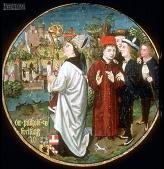

About 1146 German Bishop Otto of Freising (1114-58) (uncle of HRE Frederick I Barbarossa) writes Historia de Duabus Civitatibus (History of the Two Cities) (8 vols.), a world history ending in 1146, taking the line of St. Augustine and Orosius that the Earthly City (Babel) sucks compared to the Heavenly City (Jerusalem); the first mention of Nestorian Christian king Prester John, who is viewed as a potential savior of the Crusader states; continued to 1209 by Abbot Otto of St. Blasius (-1223). In 1158 he dies leaving unfinished Gesta Friderici I Imperatoris (The Deeds of Emperor Frederick I) (2 vols.), covering from the quarrel between HRE Henry IV and Pope Gregory VI to the death of Conrad III in 1152, incl. Bernard of Clairvaux and Pierre Abeldard, along with the Mar. 4, 1152 election of Frederick I Barbarossa (1122-90) and the first five years of his reign esp. in Italy, ending in 1156, which is finished by his chaplain Ragewin (Rahewin); it paints Barbarossa as a hero whose accession to the throne brought and end to the Church-State conflict, bringing the Heavenly City of St. Augustine to reality.
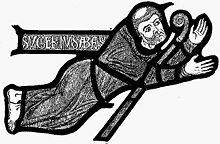
On Feb. 13, 1151 Suger (b. 1081), abbot of St. Denis in France dies, leaving Historia Gloriosi Regis Ludovici, an impartial history of Louis VII that spawns a long series of quasi-official chronicles from the monks of St. Denis.
About 1160 Lincoln-born English historian Henry of Huntingdon (b. 1080) dies, leaving Historia Anglorum (8 vols.) (1129-54), a history of England from 5 B.C.E. to 1154 C.E., commissioned by his patron Robert Bloet's successor Bishop Alexander of Lincoln (-1148); "The most important Anglo-Norman historian to emerge from the secular clegry"; calls England "Anglia plena iocis" (Merry England).
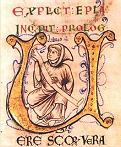
On Jan. 12, 1167 English abbot (1147-) (St.) Ailred (Aelred) (Aethelred) of Rievaulx (b. 1110) dies in Rievaulx, Yorkshire; his bio. is written by fellow monk Walter Daniel shortly after his death, containing passages that may be interpreted as suggesting he is gay, causing modern-day gay orgs. to adopt him as their patron saint; leaves Speculum Caritatis (The Mirror of Charity) (written at the request of Bernard of Clairvaux), De Spiritali Amicita (On Spiritual Friendship), Genealogia Regum Anglorum (Genealogy of the Kings of the English), declaring Henry II to be a good king and claiming his true descent from the Anglo-Saxon kings, Vita Davidis Scotorum Regus (Life of David, King of the Scots), Relatio de (De Bello) Standardo (Account of the Standard/On the [Aug. 22, 1138] Battle of the Standard), Vita S. Eduardi, Regis et Confessoris (Life of Saint Edward, King and Confessor), Vita S. Niniani (Life of St. Ninian), De Miraculus Hagustaldensis Ecclesiae (On the Miracles of the Church of Hexham, De Quodam Miraculo Miraculi (AKA De Sanctimoniali de Wattun) (A Certain Wonderful Miracle), and Homeliae de Oneribus Propheticis Isaiae (Homilies on the Prophetic Burdens of Isaiah), dedicated to Bishop of London (1163-) Gilbert Foliot.

On Apr. 25, 1185 Henry II's son John Lackland, lord of Ireland goes on his first expedition to Ireland to finish the English conquest and organize the govt. (so he finally has some land?), but the haughty conduct of his council in Waterford incl. laughing at the big beards of Irish chieftains causes disturbances, and in Dec. he is recalled after failing to establish either task, making him even meaner; Welsh-born royal clerk Gerald of Wales (Giraldus Cambrensis) (1146-1223) accompanies Henry to Ireland and stays two years, going on to pub. Topographia Hibernica in 1188, which becomes the longest and most influential work on Ireland during the Middle Ages; too bad, it's highly xenophobic, portraying the Irish natives as barbaric savages; he also pub. Expugnatio Hibernica, an account of Henry II's conquest of Ireland.
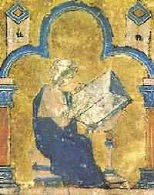
On Sept. 29, 1186 Jerusalem-born archbishop of Tyre (since June 6, 1175) William (Guillaume) (II) of Tyre (1127-86) dies, leaving History of Jerusalem (Deeds Done Beyond the Sea) (23 vols.), covering from the conquest of Syria by Caliph Umar, through the First Crusade and the Kingdom of Jerusalem up till 1184, making him the #1 chronicler of the Crusades.
In 1193 English historian Benedict of Peterborough (b. ?) dies, leaving The Murder of Thomas Becket, 1170, The Death of King Henry II, 1189.
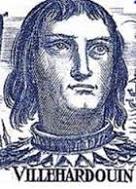
In 1207 after living through the Apr. 13, 1204 Fourth Crusade battle for Constantinople between the W Euro Roman Catholics and Byzantine Orthodox Catholics, French marshal of Champagne Geoffrey de Villehardouin (Geoffroi de Villehardouin) (1160-1212) begins writing De la Conquete de Constantinople (On the Conquest of Constantinople), a 3rd person memoir in lovely French, becoming one of the first works of French prose - another day here in the park, I think it was the Fourth of July, or, what a lady what a night, or, get that icon down?
In 1215 English poet-chronicler Layamon (Lawman), a Roman Catholic priest in Ernley (modern-day Areley Regis in Worcestershire on the Severn River) writes the 16K-line Brut d'Angleterre, a paraphrase of Robert Wace's rhymed chronicle about the Arthurian Legend into unrhymed alliterative "Semi-Saxon" (early English, with only 150 Anglo-Norman words), becoming the earliest long English poem, and the first English history written since the Anglo-Saxon Chronicle; "The most valuable single production in English speech between the conquest and Chaucer" (Schofield); he also writes History of England to the Death of Welsh Prince Cadwallader in 1172.
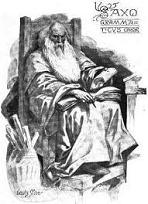
In 1220 Zealand-born Danish historian Saxo Longus ("the Tall") Grammaticus ("the Learned") (b. 1150) dies, leaving Gesta Danorum, a history of Denmark to 1187 in 16 vols.; source of the story of Amleth (Hamlet), later used by Shakespeare; compiled at the suggestion of his boss Lund archbishop Absalon.
In 1236 English monk Roger of Wendover (b. ?), chonicler of St. Albans Abbey dies, leaving Flores Historiarum (Flowers of History), an account of English history from Creation to the year 1236, incl. Lady Godiva's tale under the year 1057, and the story of the Wandering Jew.
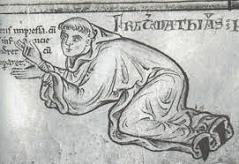
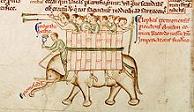
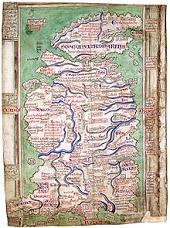
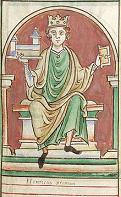
In 1240-53 English Benedictine monk-chronicler Matthew Paris (1200-59), known for illuminating his mss. with watercolors writes Chronica Majora, a history of the world from Creation to 1253, based on Roger of Wendover's "Flores Historiarum"; he abridges the years 1067-1253 as Historia Minor (Abbreviatio chronicorum), the years 1070-1253 as Historia Anglorum, and the years 1241-9 as Flores Historiarum; the years 1254-9 are later added.
On May 19, 1241-1265 Armenian historian Kirakos Gandzaketsi (1200-71) writes The Journey of King Hetoum of Little Armenia to Mongolia and Back, a history of Armenia from the 4th to 12th cent. C.E., becoming a primary source for the Mongol invasions and the first recorded word list of the Mongolian language; becomes a hit and is trans. into many languages - so what about you, Goldilocks, what do you fantasize about?
On July 30, 1286 Syrian bishop and brain man Gregory Bar Hebraeus (b. 1226) dies in Maraga, Persia, leaving Cream of Science (Aristotelian philosophy), Book of the Pupils of the Eyes (logic and dialectics), Storehouse of Secrets (Bible commentary), and Chronicon Ecclesiasticum (history of the West Syriac church, the patriarchs of Antioch, the Eastern Church, the Nestorian patriarchs, and the Jacobite Maphrians).

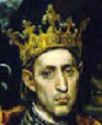
About 1309 after accompanying Jew-hating French Capetian king (1226-70) (St.) Louis IX (1214-70) on the Seventh Crusade, Champagne-born French chronicler Jean de Joinville (1224-1317) pub. Vie de Saint Louis (Life of St. Louis) (Livre des Saintes Paroles et des Bons Faiz de Nostre Saint Roy Looÿs), a bio. of King Louis IX the Saint and the Seventh Crusade which he wrote under the patronage of Queen (since 1285) Jeanne (Joan) (Johanna) I of Navarre (1273-1305), wife of Philip IV, and presents to the future Louis X.
In 1338 English chronicler (Gilbertine monk) Robert Mannyng (de Brunne) (1260-1340) writes The Story of Inglande; verse chronicle based on "Roman de Brut" by Wace and "Chronicle" by Peter Langtoft (-1307) of England; modifies Middle English by dropping inflections and introducing French words, heading toward the bastard language of modern English.
In 1358 Mark Kalti writes Chronicon Pictum (Chronica de Gestis Hungarorum) (Chronicle of the Deeds of the Hungarians) (1358-70); how they kicked Venetian butt; its 147 pictures provide a rich portrayal of Hungarian culture; given by Hungarian king Louis I to French king Charles V upon the engagement of his son Louis I, Duke of Orleans to Louis' daughter Catherine.
In 1360 Greek theologian-historian-astronomer (opponent of St. Gregory Palamas) Nicephoras (Nicephorus) Gregoras (1295-1360) dies after being declared heretical by a synod in 1351; his body is dragged through the streets of Constantinople to jeers; leaves Byzantine History (37 vols.), covering 1204-1357, devoting two books to his disagreement over Hesychasm with St. Gregory Palamas.

On Mar. 12, 1364 English chronicler and Benedictine monk Ranulf Higdon (Higden) (1280-1364) dies in the monastery of St. Werburgh in Chester, leaving Polychronicon (7 vols.), a universal history in Latin to the year 1357 C.E., containing a World Map; it is tr. into English in 1387 by John of Trevisa, and printed by William Caxton in 1480.
In the 1390s English historian Thomas Walsingham of St. Albans (-1422) writes Chronicle, a Latin history of England; he leaves Historia Anglicana( Chronica Maiora), covering the years 1272-1422, and pub. in 1574.
In 1396 English Augustinian monk Henry Knighton (Knyghton) (b. ?) dies at St. Mary of the Meadows Abbey in Leicester, leaving Knighton's Chronicle (Chronicon) (5 vols.), covering English history from 959-1366; vol. 5 covers 1377-95; first pub. in 1652.

In 1400 French traveler-poet and court historian Jean Froissart (1337-1400) dies, leaving Froissart's Chroniques (Chronique de France, d'Angleterre, d'Ecosse et d'Espagne) (Chronicles of France, England, Scotland and Spain) (1.5M words), covering from the deposition of Edward II in 1326 to 1400, becoming the chief description of the chivalric culture of 14th cent. England-France and the Hundred Years' War; incl. personal accounts of the 1367 baptism of Richard II in Bordeaux, the 1380 coronation of Charles V in Rheims, the 1386 preparations for the invasion of England in Sluys, the 1389 marriage of Duke John of Berry and Jeanne of Boulogue in Riom, and the 1389 joyous entry of French Queen Isabeau of Bavaria to Paris; too bad, they are filled with errors; he has "marvelous little sympathy" for the "villain churls" (Sir Walter Scott); first known mention of the verge escapement for clocks.

On Mar. 19, 1406 Tunis-born Muslim Arab historian Abd al-Rahman (Abdul-Rahman) Ibn Khaldun (Khaldoun) (b. 1332) dies in Cairo, leaving The Muqaddimah (1377) (Intro. or Prolegomena to History), about the necessary preconditions of a just govt., an introduction to his planned magnus opus on world history "Kitab al-Ibar", becoming the first book on the philosophy of history, discussing historiography as a science and pioneering cultural history, warning against systematic bias, becoming the earliest known work to critically examine military history, pioneering several concepts incl. the labor theory of value and the division of labor (asabiyya), supply-side economics and the Laffer Curve, claiming that humans developed from "the world of the monkeys" after Creation "started out from the minerals and progressed in an ingenious, gradual manner to plants and animals", exposing alchemy as a fraud, pioneering climate theory; calls Aristotle the "First Teacher"; too bad, he accepts slavery as okay with Islam, with the soundbyte: "The Negro nations are, as a rule, submissive to slavery, because (they) have little that is (essentially) human and possess attributes that are quite similar to those of dumb animals."

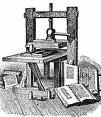
About 1439 German goldsmith Johannes Gutenberg (1398-1468) of Mainz invents a process for mass-producing movable type using a hand mold for a screw-type wooden Printing Press using oil-based ink; the Info. Explosion begins. Too bad, Bill Gates, er, the pope makes use of it to mass-produce indulgences to fill his coffers, fomenting a revolt in Germany led by Martin Luther.
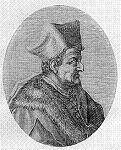
The first History Detective? In 1440 Rome-born Italian Renaissance humanist scholar-priest (Roman Catholic) Lorenzo Valla (1407-57) pub. De Falso Credita et Ementita Constantini Donatione Declamatio, which exposes the Donation of Constantine (Constitutum Domini Constantini Imperatoris) of Mar. 30 (315/317?), granting to the papacy "the city of Rome, and all the provinces, places and cities of Italy and the western regions" (the Papal States) as a medieval forgery composed in 750-800 C.E., first indirectly mentioned by Pope Hadrian I in 778, and first directly mentioned by Pope Leo IX in 1054.

On Mar. 9, 1444 Arezzo, Tuscany, Italy-born humanist historian Leonardo Bruni (b. 1369) dies in Florence, leaving History of the Florentine People (12 vols.), which divides history into Antiquity, Middle Ages, and Modern, becoming the first modern history book.
About 1463 Greek Byzantine historian Doukas (Dukas) (Lat. "leader") (b. 1400) dies, leaving History, covering the years 1341-1462 incl. the 1389 Battle of Kosovo, the 1453 fall of Constantinople, and the 1462 capture of Lesbos.

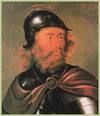
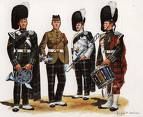
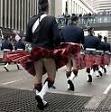

About 1477 Blind Harry (Hary) (the Minstrel) (1440-92) writes The Wallace (The Actes and Deidis of the Illustre and Vallyeant Campioun Schir William Wallace), a verse history of Scottish hero Sir William Wallace (1272-1305), which becomes the Scottish nat. epic., the #2 most popular book in Scotland after the Bible; too bad, it's full of inaccuracies; the earliest known copy is made in 1488 by John Ramsay, 1st Lord Bothwell.
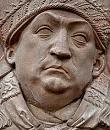
In 1508 Trittenheim, Germany-born polymath Benedictine abbot Johannes Trithemius (Johann Heidenberg) (1462-1516) pub. The Seven Secondary Intelligences (De Septem Secundeis id est Intelligentiis), a history of the world based on astrology. In 1514 he pub. Annales Hirsaugienses... Complectens Historiam Franciae et Germaniae (The Annals of Hirsau... including the History of France and Germany) (2 vols.), which shows great mastery of the Latin language and eloquent phrasing, but is soon discovered to be filled with fictional passages; printed in 1609, becoming one of the first humanist history books.

In 1512 Florence-born Italian humanist historian-philosopher-politician-diplomat Niccolo (Niccolò) di Bernardo dei Machiavelli (1469-1527) is fired by the Medicis after they overthrow the Florentine Repub., causing him to write "The Prince (Il Principe)" to suck up to them and get a job, which doesn't work, but at least he gave it the old Macchiavellian try; in 1513 after surviving torture, he retires to his estate in Sant'Andrea in Percussina (near San Casciano in Val di Pesa) 12 mi. from Florence, where he takes up the writing of books (Machiavellian-style?); in 1520 he is appointed official historian of Florence, and in 1521 he pub. The Art of War (Dell'Arte della Guerra), a Socratic dialogue between Lord Fabrizio Colonna (Machiavelli) and Cosimo Rucellai set in the Orti Oricellari gardens in Florence, developing the concept of limited warfare, i.e., war as an extension of politics, promoting the need for an armed citizenry and state militia and stressing that all of society depends on the security provided by the military; Fabrizio pushes the legions of the early-mid Roman Republic, and advocates adapting them to the current situation in Florence; at the beginning Fabrizio states the purpose of the dialogue as "To honor and reward virtù, not to have contempt for poverty, to esteem the modes and orders of military discipline, to constrain citizens to love one another, to live without factions, to esteem less the private than the public good." In 1531 he pub. Discourses on the First Ten Books of Livy, written in 1517, a discussion of early ancient Roman history claiming that a republic is superior to a principality while calling leaders of democracies princes, and proposing the concept of checks and balances; it contains the soundbytes: "Governments of the people are better than those of princes"; "Government consists mainly in so keeping your subjects that they shall be neither able nor disposed to injure you"; "No prince ever benefitted by making himself hated"; "Let not princes complain of the faults committed by the people subjected to their authority, for they result entirely from their own negligence or bad example"; "In a well-ordered republic it should never be necessary to resort to extra-constitutional measures"; ""Doubtless these means [of attaining power] are cruel and destructive of all civilized life, and neither Christian, nor even human, and should be avoided by every one. In fact, the life of a private citizen would be preferable to that of a king at the expense of the ruin of so many human beings"; "In fact, when there is combined under the same constitution a prince, a nobility, and the power of the people, then these three powers will watch and keep each other reciprocally in check". In 1532 he posth. pub. Florentine Histories (Istorie Florentine) (8 vols.), commissioned by Cardinal Giulio de Medici (later Pope Clement VII) in 1520 and presented to him in May 1526; starts with the 5th cent. fall of the Western Roman Empire to 1215, then covers the history of Florence ending with the death of Lorenzo il Magnifico in 1492, sucking-up to the Medicis and trying to make their takeover seem like evolution. In 1532 he also posth. pub. The Prince (Il Principe), written in vernacular Italian, and first circulated in 1513, becoming the first work of modern political philosophy, taking effective truth as more important than abstract ideals, in conflict with the Scholastic views of the time; causes the term Machiavellian to come into use as a perjorative, as well as Old Nick for the Devil; forever after everybody wants to be a Machiavellian prince?; "He who neglects what is done for what ought to be done, sooner effects his ruin than his preservation"; "It is far safer to be feared than loved if you cannot be both." He dies on June 21, 1527 in Florence. "God is not willing to do everything, and thus take away our free will and that share of glory which belongs to us"; "Men are more apt to be mistaken in their generalizations than in their particular observations."
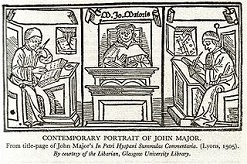
In 1521 Scottish historian-philosopher John Major (Mair) (1467-1550) pub. Historia Majoris Britanniae, tam Angliae quam Scotiae and De Gestis Scotorum in Paris, becoming the first major history of Scotland since Andrew of Wyntoun (1350-1425); written in Latin.

In 1534 Italian humanist historian Polydore Vergil (1470-1555) pub. Anglica Historia (26 vols.) (Basel); 27th vol. added in 1555; admits that his vers. of events differs from that of the English, Scottish, and French, causing accusations of destroying source books or shipping them off to Rome to cover his tracks; knocks Geoffrey of Monmouth and disses King Arthur, exposing his Italian nationalism?; "The whole countrie of Britain... is divided into iv partes, whereof the one is inhabited of Englishmen, the other of Scottes, the third of Wallshemen, and the fowerth of Cornishe people, which all differ emonge them selves, eitehr in tongue,... in manners, or ells in lawes and ordinaunces."

In 1540 after a long career as a diplomat at the court of Spain and as a servant of the papacy, Florence-born Italian Renaissance statesman-historian Francesco Guicciardini (1483-1540) (friend of Niccolo Machiavelli) dies, leaving his magnum opus The History of Italy (Storia d'Italia) (20 vols.), covering 1494 to 1534, "the one work he wrote not for himself, but for the public" (Felix Gilbert); pioneers the use of govt. documents to support arguments, and a realistic analysis of people and events, which is first pub. in 1561, followed by an English trans. in 1579. "Francesco Guicciardini might be called a psychological historian - for him the motive power of the huge clockwork of events may be traced down the mainspring of individual behavior. Not any individual, be it noted, but those in positions of command: emperors, princes and popes who may be counted on to act always in terms of their self-interest - the famous Guicciardinian particolare." (Sidney Alexander) "The young historian was already doubtlessly aware of the meaning of historical perspective; the same facts acquiring different weight in different contexts, a sense of proportion was called for." (Nicolai Rubinstein) "Machiavelli and Guicciardini are important transitional figures in the development of historical writing. The historical consciousness that becomes visible in their work is a significant rupture in our thinking about the past... Human agency was a central element in the historical thought of Machiavelli and Guicciardini, but they did not have a modern notion of individuality... They started to disentangle historiography from its rhetorical framework, and in Guicciardini's work we can observe the first traces of a critical historical method." (Sidney Alexander) "If we consider intellectual power [the Storia d'Italia] is the most important work that has issued from an Italian mind." (Francesco de Sanctis)
In 1550 Spanish conquistador Pedro de Cieza de Leon (León) (1520-54) pub. Journal of Travels, becoming the first to give the avocado the Spanish name aguacate, from the Aztec word "ahuacatl" for testicle - no wonder the English prudes changed it to alligator pears? In 1553 he pub. Chronicle of Peru (vol. 1 of 4), which becomes the first Euro pub. to mention the potato; the last 3 vols. are pub. in the 19th and 20th cents.
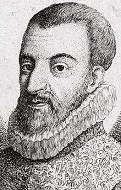
In 1550 Swiss historian Aegidius (Giles) (Glig) Tschudi (1505-72) writes Chronicon Helviticum, the early history of the Swiss Confederation; not pub. until 1734.

In 1550 Arezzo, Tuscany-born Italian historian-artist-architect Giorgio Vasari (1511-74) pub. Lives of the Most Excellent Italian Painters, Sculptors, and Architects, from Cimabue to Our Times (2nd ed. 1568), written after Cardinal Farnese asks him to assemble a "catalog of artists and their works listed in chronological order" in Rome in 1546, initiating the study of art history in the West, and coining the term "Renaissance" (Rinascita) - the masters are themselves the subject?
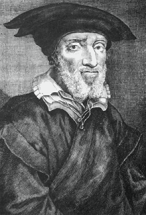
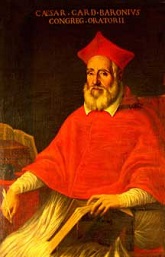
In 1559-74 several Lutheran scholars in Magdeburg, Germany known as the Centuriators, led by Croatian-born Matthias Flacius (1520-75) pub. The Magdeburg Centuries (Historia Ecclesiae Christi) (13 vols.) (1559-74); a history of the Roman Catholic Church to 1298 C.E. (different vol. for each cent.), attempting to prove that it is the Antichrist and enemy of the true church of Christ, which shows a "perpetual agreement in the teaching of each article of faith in all ages", becoming a model for modern church histories; "This very form of the teaching which we now have in our churches because of the great kindness of God is that very ancient one, not a new one; genuine, not adulterous; true, not fabricated." In 1586 Italian Roman Catholic cardinal Caesar Baronius (1538-1607) pub. Annales Ecclecsiastici a Christo nato ad Annum 1198 (12 vols.) (1588-1607), a history of the Roman Catholic Church to 1198 C.E., bolstering its claims to authority, produced to counter the anti-Catholic "Magdeburg Centuries" (1559-74); coins the term "Dark Ages" for the period from 500-1100 C.E.; in 1597 he becomes librarian of the Vatican, giving him access to the archives; "The greatest history of the Church ever written" (Lord Acton).
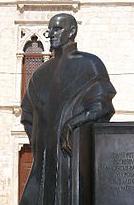
In 1560 Croatian-born Italian Platonic philosopher-scientist Franciscus Patricius (Francesco Patrizi or Patrizzi) of Cherso (1529-97) (stuudent of Bernardino Telesio and master of Giordano Bruno) pub. Della Historia Diece Dialoghi (Basel), which takes a skeptical view of the possibility of historical knowledge. In 1571 he pub. Discussiones Peripateticae (Discussionum Peripateticorum) (15 vols.) (Basel), which claims that Aristotle's teachings directly oppose Christianity, while Plato's foreshadow it, attacking Aristotle's life and character and the authenticity of his works, attempting to refute his doctrines theologically. In 1591 he pub. Nova de Universis Philosophia (New Philosophy of Ideas) (Basel), which goes back to the Ionians and Presocratics to portray God as "First Light", which is later adopted by Galileo to mathematize physics.

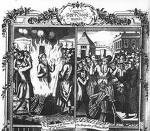
On Mar. 20, 1563 Boston, Lincolnshire-born English Protestant clergyman-historian John Foxe (1516-87) pub. Foxe's Book of Martyrs (Acts and Monuments of these Latter and Perillous Days, Touching Matters of the Church) (2 vols.), which makes him "England's first literary celebrity", selling for 10 shillings (3 weeks' pay), even though he receives no royalties; Pt. 1 is about persecution, torture, and burning of early Christian martyrs, Pt. 2 is about the reign of Henry VII and Edward VI, and Pt. 3 is about the burning of Protestants by Roman Candle Catholics under Bloody Mary, all detailed with relish in a 2-vol. 2.3K-page superbook (largest pub. project in England to date), complete with gruesome woodcuts, convincingly portraying the Pope as the Antichrist, and England as the new Chosen Nation of Israel, which God has picked to save da world; becomes the #2 bestseller in England after the Bible, and starting with the 2nd ed. in 1570 every cathedral church in England is ordered to carry a copy; deeply influences William Bradford, founder of Plymouth Colony, and becomes the theme for all future U.S. Protestant-dominated govts.?
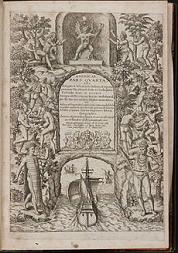
In 1565 Milan-born Italian historian Girolamo Benzoni (1519-?) pub. History of the New World (Historia del Mondo Nuovo) (Venice); dedicated to Pope Pius IV; written after a stay of 15 years, bristling with hatred for the Spanish and full of errors, but important for the controversy over the treatment of Native Ams.; French trans. pub. in 1579; German trans. pub. in 1579; English trans. by William Henry Smyth pub. in 1857.

In 1566 Angers-born French philosopher-jurist-historian Jean Bodin (1530-96) pub. Methodus ad Facilem Historiarum Cognitionem (Method for the Easy Knowledge of History), which rejects Franciscus Patricius, emphasizing the role of knowledge of politics and legal systems in interpreting historical writings, also social life, rejecting the pagan Golden Age and Biblical Four Kingdoms of Daniel models of history; "Of history, that is, the true narration of things, there are three kinds: human, natural, and divine."

In 1577-87 English writer Raphael Holinshed (1529-80) et al. pub. Chronicles of England, Scotland, and Ireland (2 vols.), histories of England, Scotland, and Ireland by various writers; incl. Description of Elizabethan England by William Harrison (1534-93); Holinshed wrote the history of England; it started out as a universal history by his boss, Dutch-born printer Reginald (Reyner) Wolfe (-1573), and this is an abridged vers.; used by Elizabethan dramatists incl. Shakespeare.

In 1583 French Protestant scholar Joseph Justus Scaliger (1540-1609), son of Italian-born scholar Julius Caesar Scaliger (1484-1558), each the most learned man of his time, who have a cool family castle in Sermione (Sirmio) in N Italy at the S end of Lago Di Garda, Italy's largest lake pub. Opus Novum de Emendatione Temporum in Paris, which lays out a system of chronology on scientific principles, expanding the realm of classical history from ancient Greece and Rome to Egypt, Babylonia, Israel, and Persia, establishing him as the "Father of Chronological Science" and the leading Renaissance scholar of the classics (greatest since Aristotle or Marcus Terentius Varro?); Bible-thumpers later latch onto his work to prove the divine origin of the Bible and predict the date of Armageddon; really a bunch of moose hockey based on the Qabala and repeating shifts of dates based on the numbers 333 and 360? In 1606 he pub. Thesaurus Temporum, Complectens Eusebi Pamphili Chronicon, the best-ever chronology of ancient history?
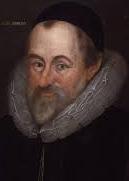
In 1586 London-born historian William Camden (1551-1623) pub. the bestseller Britannia; or a Chorographical Description of Great Britain and Ireland, Together with the Adjacent Islands, written in Latin, going through seven eds. by 1607; first English ed. tr. by Philemon Holland pub. in 1610; a chorography of Britain county-by county incl. maps and history, becoming the first to paint a coherent picture of Roman Britain. In 1597 he becomes the Clarenceux King of Arms. In 1605 he pub. Remaines of a Greater Worke, Concerning Britaine (2nd ed. 1614; 3rd ed. 1623), the "rude rubble and out-cast rubbish" from his more serious work "Britannia", becoming more popular, a collection of themed historical essays incl. the first official account of the trial of the Gunpowder Plotters, a catalog of the epitaphs at Westminster Abbey (in which he is later buried), and the first pub. alphabetical list of English proverbs, becoming a main source of words for the "Oxford English Dictionary" (OED). In 1615 he begin pub. Annales Rerum Anglicarum (Reign of Elizabeth I) (2 vols.) (1615, 1625), written in Latin (first English trans. pub. in 1625), a favorable treatment of Elizabeth I and James I, helping create the image of the Elizabethan era as a golden age; "It is thanks to Camden that we ascribe to Queen Elizabeth a consistent policy of via media rather than an inconsequent series of unresolved conflicts and paralysed indecisions." (Hugh Trevor-Roper). In 1622 he endows the Camden Chair of Ancient History at Oxford U. (first chair of history in the world) before being struck with paralysis, dying on Nov. 9, 1623 in his home at Chiselehurst, Kent (SE London); in 1877 the chair is attached to Brasenose College; in 1910 it is limited to Roman history.
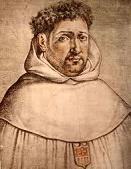
In 1590 Spanish Jesuit priest Francisco Ribera (1537-91) pub. In Sacrum Beati Ioannis Apostoli, & Evangelistiae Apocalypsin Commentarii, which uses Daniel 9:27 and its week #69 of 70 to interpret the Bible Book of Revelation as predicting a coming Antichrist who will lead the Roman Catholic Church away from the pope into apostasy, reign for 3-1/2 years (1260 days), rebuild the Temple of Jerusalem, deny Christ, claim to be God, and conquer the world; Cardinal Robert Bellarmine adds that he will be a Jew; written to oppose Martin Luther (1483-1546), who has been claiming that the papacy is the Antichrist and that it has already been 1260 years and is already happening, starting an eternal war between the two Antichrist camps - when opportunity comes knocking, the whole neighborhood starts walking?
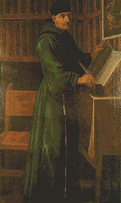
In 1590 Spanish Franciscan friar Bernardino de Sahagún (Ribeira) (1499-1590) ("Father of Ethnography") dies in the Convent of San Francisco, Mexico (grippe), leaving the 12-vol. Gen. History of the Things of New Spain (Codex Florentine), a picture encyclopedia of the Aztec culture, which shows too much respect for the cannibalistic pagans, causing Philip II to prohibit its pub. (it takes 240 years to be pub.); although acknowledging that Satan controlled them, de Sahagun claims that the Aztecs showed "more signs of virtue and Christianity than are found in many in our own nation."

In 1592 Spanish Jesuit priest-historian Juan de Mariana (1536-1624) pub. Historiae de Rebus Hispaniae (20 vols) (Toledo); the history of the Iberian Peninsula since 1243, becoming a std. work; 10 more vols. pub. in 1605; it incl. De Rege et Regis Institutione (3 vols.) (1598), written at the request of Philip II and dedicated to his son Philip III, concluding that it is lawful for an individual or group to overthrow and kill a monarch who is a tyrant, the definition incl. violating the laws of religion, imposing taxes without consent, or preventing a dem. parliament from meeting, which makes it easier to point the finger at all Jesuits after the 1610 assassination of Henri IV of France?; some of his vols. get him imprisoned by the Inquisition, during which time they find another of his writings criticising the Jesuits themselves, later used by Charles III to ban them all from Spain.
In 1600 Gallipoli-born Ottoman historian Mustafa Ali bin Ahmed bin Abdulmevla Celebi (1541-1600) dies in Jeddah, Arabia, leaving The Essence of History (Kunhul-ahbar), covering world history from Creation to the year 1000 of the Islamic calendar (1591/2 C.E.).


In 1616 Sir Walter Raleigh (1552-1618) pub. The Historie of the World, covering from Creation to ancient Greece and Rome, ending with the Second Macedonian War after he quits before writing vols. 2-3 because of the 1612 death of his hero Prince Henry; written while imprisoned in the Tower of London from July 19, 1603-1616; James I stops pub. "for divers exceptions, but especially for being too saucy in censuring Princes."
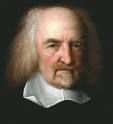
In 1628 big admirer Thomas Hobbes (1588-1679) pub. his tr. of Thucydides' Peloponnesian War, becoming the first to translate Thucydides into English directly from the Greek, going on to become one of the Big Three Founders of Political Realism along with Thucydides and Machiavelli.

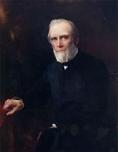
In 1650 Irish Anglican archbishop James Ussher (Usher) (1581-1656) pub. Annals of the Old Testament, Deduced from the First Origins of the World: The Chronicle of Asiatic and Egyptian Matters Together Produced from the Beginning of Historical Time up to the Beginnings of Maccabees (Annales Veteris Testamenti, a Prima Mundi Origine Deductim, una cum rerum Asiaticarum et Aegyptiacarum chronico, a temporis historici principio usque ad Maccabaicorum initia producto), a 1.6K-page Latin tome that uses the Bible to date the creation of the world to nightfall (6:00 p.m.) Sunday, October 22, 4004 B.C., which jives with the Bible verse "One day is with the Lord as a thousand years, and a thousand years as one day" (2 Peter 3:8), meaning that Jehovah gave the Earth 6K years and it's running out fast; he dates the birth of Christ to 4 B.C.E.; it is later used in annotated eds. of the King James Bible, making it super-popular; by the late 19th cent. scientists and theologians begin to ditch it, with Am. Hebrew scholar Wiliam Henry Green (1825-1900 pub. the soundbyte in the influential article Primeval Chronology in Bibliotheca Sacra (1890): "We conclude that the Scriptures furnish no data for a chronological computation prior to the life of Abraham, and that the Mosaic records do not fix and were not intended to fix the precise date either of the Flood or of the creation of the world" - a Christian would say Sunday not Saturday or Friday?

In 1651 Austerfield, Yorkshire-born English illegal immigrant Puritan Separatist leader William Bradford (1590-1657), gov. of Plymouth Colony 5x in 1621-57 finishes his journal History of Plymouth (Plimouth) Plantation, 1620-1647, written in 1630-51, based on material by George Morton, Edward Winslow et al. pub. in 1622 in London as "Mourt's Relation"; the #1 work of 17th cent. America?; covers the Pilgrims from their settlement in the Dutch Repub. in 1608 through the 1620 Mayflower voyage to 1647, followed by a list of Mayflower passengers and what happened to them, written in 1651; after Bradford never attempts to get it pub., the ms. is stored in the tower of Old South Church in Boston, disappears during the Am. Rev. War, and is found in 1855 in the Fulham Library in England, being pub. for the first time in 1856, then returned to the U.S. in 1898.
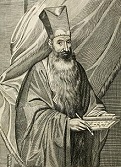
In 1653 after serving as a missionary in China since 1610, Portuguese Jesuit Father Alvaro (de) Semedo (1585-1658) pub. The History of That Great and Renowned Monarchy of China. Wherein all the particular Provinces are accurately described: as also the Dispositions, Manners, Learning, Lawes, Militia, Government, and Religion of the People. Together with the Traffick and Commodities of that Country; English tr. pub. in 1655; incl. a description of the Chinese tea ceremony at the Han Pass, initiated by Yin Hsi.
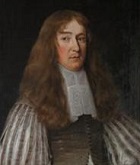
In 1660 Sir Winston Churchill (1620-88), AKA the Cavalier Colonel (ancestor of PM Sir Winston Churchill) pub. Divi Britannica, Being a Remark Upon the Lives of All the Kings of This Isle, from the Year of the World 2855 until the Year of Grace 1660, a history of the kings of England.
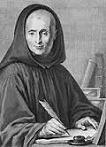
In 1666 French Benedictine monk-scholar Dom Jean Mabillon (1632-1707) pub. Life and Works of Saint Bernard, Abbot of Clairvaux. In 1668 he begin pub. Lives of the Benedictine Saints (9 vols.) (1668-1701). In 1681 he begin pub. De Re Diplomatica (6 vols.) (1681-1704), which examines documents dating back to Frankish king Dagobert I, attempting to "distinguish genuine documents from forgeries", founding paleography and diplomatics, becoming a hit with Jean-Baptiste Colbert and Louis XIV, who appoints him as a founding member of the Academie des Inscriptions et Belles-Lettres in 1701; the greatest historical scholar of the 17th cent.?
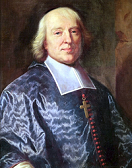
In 1681 French Roman Catholic bishop-theologian-orator Jacques-Benigne (Jacques-Bénigne) Bossuet (1627-1704) pub. Discourse (Speech) on Universal History (Discours sur l'Histoire Universelle), written for his pupil the French dauphin, becoming the first philosophical treatment of history, an attempt at a new version of St. Augustine's "City of God", claiming that universal history is a war between God and the Devil, with God on the side of the Church; the City of the Devil incl. the pagan Roman Empire, the barbarians, the Muslims, Renaissance humanists, Enyclopedists, Freemasons, etc.; as The Catholic Enyclopedia puts it: "This is why the idea of Providence is at the same time the law of history. If the crash of empires 'falling one upon another' does not in truth express some purpose of God regarding humanity, then history, or what is called by that name, is indeed no longer anything but a chaotic chronology, the meaning of which we should strive in vain to disentangle. In that case, fortune, or rather chance, would be the mistress of human affairs; the existence of humanity would be only a bad dream, or phantasmagoria, whose changing face would be inadequate to mask a void of nothingness. We should be fretting ourselves in that void without reason and almost without cause, our very actions would be but phantoms, and the only result of so many efforts accumulated through so many thousands of years would be the conviction, every day more clear, of their uselessness, which would be another void of nothingness."; "And why, after all, were there Greeks and Romans? Of what use was Salamis? Actium? Poitiers? Lepanto? Why was there a Caesar, and a Charlemagne? Let us frankly own, then, that unless something Divine circulates in history, there is no history"; contains the soundbyte "Ah, perfide, perfide Albion!", later quoted by Napoleon as "perfidious Albion", meaning stankin' England.
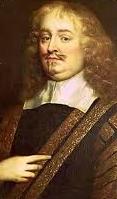
In 1702 after fighting on the losing side in the English Civil War and being restored to favor after the 1660 restoration, receiving an eighth share in the new Province of Carolina, then falling out of favor and fleeing to Rouen, France in Nov. 1667, dying there on Dec. 9, 1674, English statesman-historian Edward Hyde, 1st Earl of Clarendon (1609-74) (maternal grandfather of Queen Mary II and Queen Anne) his son Laurence Hyde, Earl of Rochester (1641-1711) posth. pub. The History of the Rebellion and Civil Wars in England: Begun in the Year 1641 (3 vols.) (1702-4), the first complete detailed history of the English Civil War, written by a key player, pushing his royalist views, which David Hume assesses in his 1756 "The History of Great Britain": "This age affords great materials for history; but did not produce any accomplished historian. Clarendon, however, will always be esteemed an entertaining writer, even independent of our curiosity to know the facts, which he relates. His style is prolix and redundant, and suffocates us by the length of its periods: But it discovers imagination and sentiment, and pleases us at the same time that we disapprove of it. He is more partial in appearance than in reality: For he seems perpetually anxious to apologize for the king; but his apologies are often well grounded. He is less partial in his relation of facts, than in his account of characters: He was too honest a man to falsify the former; his affections were easily capable, unknown to himself, of disguising the latter. An air of probity and goodness runs through the whole work; as these qualities did in reality embellish the whole life of the author." In 1720 The History of the Rebellion and Civil War in Ireland, a companion to "The History of the Rebellion and Civil Wars in England", covering the period after the death of Charles I is pub. In 1759 The Life of Edward Earl of Clarendon, Written by Himsself (2 vols.) is pub.
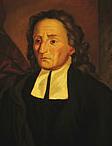
In 1710 Naples-born Italian political philosopher-historian Giambattista (Giovan Battista) Vico (1668-1744) pub. De Antiquissima Italorum Sapientia, ex Linguae Latinae Originibus Eruenda ("On the Most Ancient Wisdom of the Italians, Unearthed from the Origins of the Latin Language); known for the soundbyte "verum esse ipsum factum" (the true itself is fact), meaning that truth is verified through creation or invention and not through observation a la Descartes; "The criterion and rule of the true is to have made it. Accordingly, our clear and distinct idea of the mind cannot be a criterion of the mind itself, still less of other truths. For while the mind perceives itself, it does not make itself." In 1725 he pub. his magnum opus The New Science (Principii d'una Scienza Nuova Intorno Alla Commune Natura Delle Nazione), which attacks the separateness of body and mind, along with Cartesian analysis and other forms of reductionism in favor of systemic thinking, propounding a cyclical view of history (the divine, heroic, and human phases), founding the modern philosophy of history; "[We] must take seriously Vico's great observation that men make their own history, that what they can know is what they have made, and extend it to geography." (Edward Said)
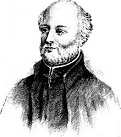
In 1715 French Jesuit priest-traveller-historian ("Historian of the New World") Pierre Francois Xavier de Charlevoix (1682-1761) pub. his first work Histoire de l'établissement, du progrès et de la décadence du Christianisme dans I'empire des japons. He follows with Histoire de I'Isle Espagnole ou de Saint-Domingue (2 vols.) (1730-1), Histoire et description générale du Japon (1736), Histoire et description generale de la Nouvelle France, avec le journal historique d'un voyage fait par ordre du roi dans l'Amérique septentrionnale (3 vols.) (1744), and Histoire de Paraguay (1756).
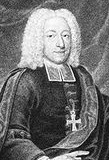
In 1720 Lubeck-born German Lutheran church historian Johann Lorenz von Mosheim (1693-1755) pub. Vindiciae Antiquae Christianorum Disciplinae (critique of John Toland), followed by Observationes sacrae (1721), getting him an appointment as prof. at the U. of Helmstedt. In 1726 he pub. Institutionum Historiae Ecclesiasticae libri IV, getting him appointed abbot of Marienthal by the duke of Brunswick, with an income from Michaelstein Abbey. In 1753 he pub. Historical Commentaries on the State of Christianity in the First Three Centuries. He dies in 1755, leaving An Ecclesiastical History, From The Birth of Christ to the Beginning of the Eighteenth Century: in which The Rise, Progress And Variation of Church Power Are Considered In Their Connection With the State Of Learning And Philosophy, and The Political History of Europe During that Period (2 vols.), which is posth. pub. in London in 1842.

In 1723 after becoming secy. of the Portuguese Royal Academy of History under King Joao V, Manuel Teles da Silva, 3rd Marquis of Alegrete (1682-1736) pub. Collections of the Documents and Memories of the Royal Academy of Portuguese History; followed by History of the Royal Academy of Portuguese History (1727).
In 1724 professorships of modern history and languages are founded at Oxford U. and Cambridge U.; David Gregory (1696-1767) becomes the first Regius Professor of History at Oxford U. (until 1736); Samuel Harris (1682-1733) becomes the first Regius Professor of Modern History at Cambridge U. (until 1733); in 2010 it becomes the Regius Professor of History at Cambridge U, starting with Sir Richard John Evans (until 2014), then Sir Christopher Munro Clark (until ?).
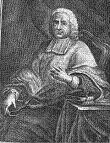
In 1726 after serving as the rector of the U. of Paris in 1694, reviving the study of Greek, then suffering persecution for his Jansenist beliefs, taking to age 60 to decide to write in French, Paris-born French historian-educator Charles Rollin (1661-1741) begins pub. Traite des Etudes (1726-31), which attempts to reform education by ditching Latin for the vulgar tongue and discarding medieval traditions, along with studying nat. history. In 1730 he begins pub. Ancient History (Histoire Ancienne) (12 vols.) (1730-8), an uncritical inaccurate compilation that becomes a big hit but ends up forgotten, making his name into an epithet. He dies leaving the unfinished (5 vols. out of 9) Histoire Romaine (Roman History).

In 1727 Saint-Saire, Normandy-born historian Count Henri de Boulainvilliers (1658-1722) pub. Histoire de l'ancien gouvernement de la France, dividing the French into the aristicratic French race descended from the Germanic Franks, and the peasant class Gallo-Roman race, which the aristocrats have the right to dominate by right of conquest, becoming the predecessor of scientific racism. He follows with Etat de la France, avec des memoires sur l'ancien gouvernement (1727), Histoire des Arabes avec la Vie de Mahomet (1731), claiming that Islam has the true rational and pure essence of God's message, and Essai sur la noblesse de France, contenans une dissertation sur son origine & abaissement. Avec des notes historiques, Critiques et Politiques ; Un projet de Dissertation sur les premiers Français & leurs Colonies ; et un Supplément aux notes par forme de Dictionnaire pour la Noblesse (1732). In ? he pub. In a "Lettre à Mlle Cousinot sur l'histoire de France et le choix des historiens", in which he explains why the writing of history must be more than the amateur collection of dates and anecdotes related to old coins and stones, but must describe the distinct moral character of a society, revealing causes of past events in hopes of instructing the present and finding what might have been done differently.

In 1740 Italian historian Father Ludovico Antonio Muratori (1672-1750) pub. The Muratorian Fragment; from a ms. codex of 76 11 in. x 7. in. parchment leaves he discovered in the Ambrosian Library, produced in the Bobbio Monastery near Piacenza in N Italy in the 8th cent., then moved to the Ambrosian in the early 17th cent.; 85 lines of leaves 10-11 is the celebrated fragment, containing the oldest canon of the Christian Greek scriptures, later dated to 170-200 C.E., about the time of Rome-based Christian writer Hippolytus (170-235).



In 1751 Langres-born French atheist Rationalist brain men Denis Diderot (1713-84) and Jean Baptiste le Rond d'Alembert (1717-83) begin pub. Encyclopedie (Encyclopédie) (1751-72), which brings the thought of the Enlightenment to the masses despite hounding by govt. censors and condemnation by the Church and other enemies, who to try to prevent pub., getting it delayed in 1752 and 1757, and suppressed in 1759-65; it eventually comprises 34 vols. (last vol. pub. 1772) - I know, I memorized them all? The history articles are handled by French Rationalist Deist lit. giant Voltaire (1694-1778) (who dedicated himself to the elimination of "this infamous superstition", Christianity), who in 1751 pub. The Age of Louis XIV, followed in 1756 by An Essay on Universal History, the Manners and Spirit of Nations: From the Reign of Charlemagne to the Age of Louis XIV (Essai sur les Moeurs et l'Esprit des Nations), which breaks from the tradition of narrating only diplomatic and military events, going into social history, arts, sciences, and customs, treating Europe as a whole, becoming the first Euro scholar to try to write a secular history of the world sans divine miracles, which he rejects as contradicting the normal course of Nature; he acknowledges the debt owed by European civilization to the Muslim World, but is otherwise weak on the Middle Ages, although he seldom misses a chance to expose the dirty laundry of the Church; "One demands of modern historians more details, better ascertained facts, precise dates, more attention to customs, laws, mores, commerce, finance, agriculture, population" (his article on History in Diderot's "Encyclopedie"); too bad, in Chapter 4 ("Of Persia, Arabia, and Mahomet") he reverses his view about Muhammad being a murderous fanatic in his 1741 play Mahomet the Prophet; or, Fanaticism (Le Fanatisme, ou Mahomet le Prophet), and extols him as one of the greatest lawmakers in history along with Confucius and Zoroaster, claiming that Muslim countries had more religious tolerance than Christian ones, while seemingly oblivious to the fact that Muslim tolerance comes with the price of total subjugation of mind, body, and property, the acknowledgement of eternal inferiority, and the payment of a yearly ransom (jizya) to keep from being executed as an infidel, acknowledging the propriety of violence by Muslims, making Islam an ideology he should have fought as hard as he did the Church.

In 1754-61 Edinburgh-born Scottish historian-philosopher David Hume (1711-76) pub. The History of England (6 vols.), covering "from the invasion of Julius Caesar to the Revolution of 1688", becoming a perennial bestseller (100 eds.) and std. work, making him financially independent for life; written after the 1745 Jacobite Rising freaks him out, taking 15 years; vols. 5-6 are titled "The History of Great Britain", covering from the 1603 union of England and Scotland, written first, after which he works backwards; writes the soundbyte about the Puritans: "The court of king's bench was called the court of public bench. So cautious on this head were some of the republicans, that, it is pretended, in reciting the Lord's prayer, they would not say, 'thy kingdom come,' but always, 'thy commonwealth come'"; the initial reception was hostile: "I was assailed by one cry of reproach, disapprobation, and even detestation; English, Scotch, and Irish, Whig and Tory, churchman and sectary, freethinker and religionist, patriot and courtier, united in their rage against the man, who had presumed to shed a generous tear for the fate of Charles I, and the Earl of Strafford"; "The period, in which the people of Christendom were the lowest sunk in ignorance, and consequently in disorders of every kind, may justly be fixed at the eleventh century, about the age of William the Conqueror"; too bad, he abandons straight chronological history for a description of the psychic and economic factors that drive it - giving later writers like TLW something to fix?
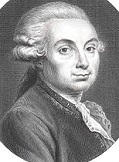
In 1758 Lyon, France-born mathematician Jean Etienne (Jean-Étienne) Montucla ((1725-99) pub. Jean Etienne Montucla (1725-99), Histoire des Mathematiques (Mathématiques) (4 vols) (1758-1802); completed by Jeome Lalande; "His first volume covered Greek, Roman, and Eastern traditions, while the second covered geometry, mechanics and optics up to the seventeenth century. Forty years later the second edition began to appear, although the author then died and task of completion fell to Jérôme Lalande. With the help of various colleagues, he completed the third volume and wrote the fourth within four years. The first two volumes covered the same material as before, while the other two handled all aspects of the eighteenth century; the whole encompassed around 3000 pages, including indexes (themselves an excellent feature)... One curious feature of the work, especially in chapters on applied mathematics, is the lack of mathematical symbolism in the text: Montucla and Lalande were often content with a verbal account of the work without entering into symbolic renderings. Of course many basic aspects of the history of mathematics were thus left out." (Ivor Grattan-Guinness)
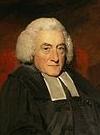
In 1759 staunch Presbyterian Whig Scottish historian William Robertson (1721-93) pub. The History of Scotland, 1542-1603 (3 vols.) (1759), getting him appointed historiographer royal of Scotland in 1764. He follows with History of the Reign of the Emperor Charles V (4 vols.) (1769), The Situation of the World at the Time of Christ's Appearance, and Its Connexion with the Success of His Religion, Considered (sermon preached before the Society in Scotland for Propagating Christian Knowledge, Jan. 6, 1775), The History of America (4 vols.) (1777, 1796), and An Historical Disquisition Concerning the Knowledge Which the Ancients Had of India (1791).

In 1760 when not busy discovering the atmosphere of Venus and the Law of Mass Conservation, almost discovering the Theory of Continental Drift, and generally founding Russian science, or reforming the Russian language and writing poetry, Russian polymath superbrain Mikhail Vasilyevich Lomonosov (1711-65) pub. History of Russia, the first ever?

In 1763-4 Mohrungen, Prussia-born German philosopher and Lutheran pastor Johann Gottfried von Herder (1744-1803), (student of Immanuel Kant), a Volksgeist nationalist known for the soundbyte: "Spew out the ugly slime of the Seine. Speak German, O You German!" pub. Essays on Being (2 vols.). In 1765 he pub. How Philosophy Can Become More Universal and Useful for the Benefit of the People. In 1769 he coins the term "Zeitgeist" (Spirit of the Age), spending his career struggling with the concept of Volksgeist (Spirit of the People) (coined by Hegel in 1801), the natural self-clumping of people into self-sufficient er, herds, with the soundbyte: “There is only one class in the state, the Volk (not the rabble), and the king belongs to this class as well as the peasant", walking the fence of racism while holding onto the Biblical Garden of Eden story and its implication that there are no such things as races like so-called anthropologist Johann Blumenbach was pushing, with the soundbyte: "Denn jedes Volk ist Volk", saying that all people have the same internal anatomy, with the soundbyte: "Neither the Pongo [chimpanzee] nor the Longimanus [gibbon] is your brother, but truly the American [Indian] and the Negro are." Too bad, he steps on his dick with the statement that a few hundred years earlier the inhabitants of Germany were Patagonians from South Am., and slides back into racism with the soundbyte: "Had Greece been people with Chinese, our Greece would never have existed", and worse: "Chinese they were, and will remain: a people endowed by nature with small eyes, a short nose, a flat forehead, little beard, large ears, and a protuberant belly... Nature seems to have refused them as well as many other nations in this corner of the world, great invention in Science, while on the other hand he has beautifully conferred on their little eyes a spirit of application, adroit diligence and nicety, a talent of imitating with art whatever their cupidity deems useful. Eternally moving, eternally occupied, they are forever going and coming, in quest of gain, or in fulfillment of their offices"; Herder calls Volksgeist "singular, marvelous, inexplicable, ineffible", likening it to a plant that grows, blooms, and withers, requiring its history to be studied, but snubbing ancient and modern history for the Middle Ages, expanding its scope to incl. language, culture, customs, religion, lit., law, and folklore, going on to pub. the hit "Voices of the People in Their Songs" (Stimmen der Volker in ihren Lidern) in 1773, a collection of folk songs; too bad, Volkgeist becomes a concept that everybody believes in although nobody can quite define it, opening the door wide to all-out racism? In 1774 he pub. This Too a Philosophy of History for the Formation of Humanity, which champions the individuality of cultures, believing that each Volk is adapted to a particular ecological niche; "If every one of these nations had remained in its place, the Earth might have been considered as a garden, where in one spot one human national plan, in another, another, bloomed in its proper figure and nature"; too bad, "As man are not firmly rooted plants, the calamities of famine, earthquakes, war and the like, must in time remove them from their place to some other more or less different", and almost every Volk "has migrated at least once, sooner or later, to a greater distance, or less." In 1784 he begins pub. Ideas for a Philosophy of History of Mankind (Ideen zur Philosophie der Geschichte der Menschheit) (4 vols.) (1784-91), which explores the central ideas of nationalism, starting with the existence of a nation that has a unique claim to be considered a legitimate political basis for sovereignty, concluding that they must speak the same language; "Has a people anything dearer than the speech of its fathers? In its speech resides its whole thought-domain, its tradition, history, religion, and basis of life, all its heart and soul. To deprive a people of its speech is to deprive it of its one eternal good... As God tolerates all the different languages in the world, so also should a ruler not only tolerate but honor the various languages of his peoples... The best culture of a people cannot be expressed through a foreign language; it thrives on the soil of a nation most beautifully, and, I may say, it thrives only by means of the nation's inherited and inheritable dialect. With language is created the heart of a people; and is it not a high concern, amongst so many peoples—Hungarians, Slavs, Rumanians, etc to plant seeds of well-being for the far future and in the way that is dearest and most appropriate to them?" - get to Golden Pond before the lake dries up? He goes on to preach against systematicity in philosophy, establishing a countertradition later continued by Karl wilhelm Friedrich Schlegel, Friedrich Nietzsche, and Ludwig Wittgenstein, also snubbing aphorism and aphorist arguments. Too bad, he considers the Jews a Volk that because of the Diaspora works only to subvert and destroy other Volk, with the soundbytes: "The Jewish people is and remains in Europe an Asiatic people alien to our part of the world, bound to that old law which it received in a distant climate, and which, according to its confession, it cannot do away with"; "How many of this alien people can be tolerated without injury to the true citizens?"; "A ministry in which a Jew is supreme, a household in which a Jew has the key of the wardrobe and the management of the finances, a department or commissariat in which Jews do the principal business, are Pontine marshes which cannot be drained." He dies on Dec. 18, 1803 in Weimar, leaving the unfinished Outlines of a Philosophy of the History of Man, which founds the philosophical school of historical thought, wth the soundbyte: "One must go into the age, into the religion, into the whole history, and feel one's way into everything" to become the "regenerated contemporary" of the past, treating history as a science and an "instrument of the most genuine patriotic spirit"; "Compare England with Germany: the English are Germans, and even in the latest times the Germans have led the way for the English in the greatest things."

In 1764 after getting interested in the ruins of Pompeii in 1858 and bribing a foreman to look at the site, Stendal-born (closet gay?) German archeologist and art historian Johann Joachim Winckelmann (1717-68) (son of a cobbler) pub. History of Ancient Art (Geschichte der Kunst des Alterthums), becoming one of the first books pub. in German to become a Euro-wide hit, founding the discipline of Greco-Roman art history, criticizing Giorgio Vasari for his "cult" of artistic personality, insisting that the real emphasis should be on the views of the learned beholder not the viewpoint of the artists, becoming "the first to distinguish between the periods of ancient art and to link the history of style with world history" (Jacob Burckhardt), distinguishing between Greek, Greco-Roman, and Roman art, and er, holding up Greek art (incl. its depiction of the dangly male form) as the touchstone (pardon my French?) of all art, making fans of Goethe, Heine, Lessing, Schiller, Nietzsche et al., dominating the field of art history until the mid-20th cent. ("the tyranny of Greece over Germany"). Too bad, after writing a systematic reconstruction of six cents. of life there, he is murdered by a chance gay bud in Trieste.

In 1765 French philosopher-historian-diplomat Abbe Gabriel Bonnot de Mably (1709-85) pub. Histoire de France; the 2nd ed. is pub. posth. in May 1789, advocating communism and republicanism, becoming a big hit, causing the govt. to unsuccessfully try to suppress it weeks before the start of the French Rev.

In 1766 Kamenz, Upper Lusatia, Saxony-born German philosopher-dramatist-critic Gotthold Ephraim Lessing (1729-81), resident Hamburg Nat. Theater critic pub. Laokoon (Laocoon): An Essay on the Limits of Painting and Poetry, which criticizes art historian Johann Joachim Winckelmann's views, analyzing the arts of poetry, sculpture, and painting, defining the limits of each after demonstrating how Aristotelian principles can be applied, and insisting that a work's individual inherent character should govern its worth rather than rigid classical absolute categorical laws, thereby emancipating German art and lit. from French neoclassicism, founding the first "modern" (romantic) school of art criticism - he just wants to make the West safe for decadent porno?
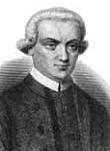
In 1766-8 Bergamo, Italy-born Jesuit historian Girolamo Tiraboschi (1731-94) pub. Vetera Humiliatorum Monumenta (3 vols.), a history of the extinct Humiliati order, establishing his rep. In 1782 after working to write it since 1771 using the library of Duke Francis III of Modena, he pub. History of Italian Literature (Storia della Letteratura Italiana) (13 vols.) (Modena), becoming the first history of Italian lit.; 2nd ed. (16 vols.) pub. in 1787-94.



On Feb. 17, 1776 after getting the idea while on a visit to Rome on Oct. 15, 1765, and spending seven years getting it going, English historian Edward Gibbon (1737-94) (The smallest ape? His portrait bears a striking resemblance to fat pudgy-cheeked Roman emperor Nero?), who has lived comfortably at 7 Bentinck St. in London since his father left him his inheritance in 1770 begins to pub. his 6-vol. masterpiece The History of the Decline and Fall of the Roman Empire (Feb. 17, 1776-Mar. 1788), the authoritative work on the Roman Empire, covering from 180 C.E. (death of last good emperor Marcus Aurelius) to 1453 C.E. (fall of Constantinople), by a Brit watching his empire lose its prize colony; known for its high-quality lit. prose filled with irony, and even cooler footnotes; it causes a furor over his allegations in Ch. 15 and Ch. 16 that Christianity caused its fall, and makes the Roman Catholic Index of Prohibited Books, making it more popular; too bad that Gibbon doesn't have another 25 so he can write "The Rise of the Roman Empire"?; a favorite of Winston Churchill, TLW et al., making it a must-read to qualify as a history genius?; one English critic says of him, "The historian must have some conception of how men who are not historians behave"; "In the second century of the Christian era, the Empire of Rome comprehended the fairest part of the earth, and the most civilised portion of mankind. The frontiers of that extensive monarchy were guarded by ancient renown and disciplined valour. The gentle but powerful influence of laws and manners had gradually cemented the union of the provinces. Their peaceful inhabitants enjoyed and abused the advantages of wealth and luxury. The image of a free constitution was preserved with decent reverence: the Roman senate appeared to possess the sovereign authority, and devolved on the emperors all the executive powers of government. During a happy period of more than fourscore years, the public administration was conducted by the virtue and abilities of Nerva, Trajan, Hadrian, and the two Antonines. It is the design of this, and of the two succeeding chapters, to describe the prosperous condition of their empire; and afterwards, from the death of Marcus Antoninus, to deduce the most important circumstances of its decline and fall; a revolution which will ever be remembered, and is still felt by the nations of the earth" (Ch. 1); "Whatever evils either reason or declamation have imputed to extensive empire, the power of Rome was attended with some beneficial consequences to mankind; and the same freedom of intercourse which extended the vices, diffused likewise the improvements of social life" (Ch. 2); "The various modes of worship, which prevailed in the Roman world, were all considered by the people, as equally true; by the philosopher, as equally false; and by the magistrate, as equally useful" (Ch. 2); "It is scarcely possible that the eyes of contemporaries should discover in the public felicity the latent causes of decay and corruption. This long peace, and the uniform government of the Romans, introduced a slow and secret poison into the vitals of the empire. The minds of men were gradually reduced to the same level, the fire of genius was extinguished, and even the military spirit evaporated" (Ch. 2); "To resume, in a few words, the system of the Imperial government, as it was instituted by Augustus, and maintained by those princes who understood their own interest and that of the people, it may be defined an absolute monarchy disguised by the forms of a commonwealth. The masters of the Roman world surrounded their throne with darkness, concealed their irresistible strength, and humbly professed themselves the accountable ministers of the senate, whose supreme decrees they dictated and obeyed" (Ch. 3); "Augustus was sensible that mankind is governed by names; nor was he deceived in his expectation, that the senate and people would submit to slavery, provided they were respectfully assured that they still enjoyed their ancient freedom" (Ch. 3); "The two Antonines (for it is of them that we are now speaking) governed the Roman world forty-two years, with the same invariable spirit of wisdom and virtue... Their united reigns are possibly the only period of history in which the happiness of a great people was the sole object of government" (Ch. 3); "If a man were called to fix the period in the history of the world, during which the condition of the human race was most happy and prosperous, he would, without hesitation, name that which elapsed from the death of Domitian to the accession of Commodus" (Ch. 3); "History, which undertakes to record the transactions of the past, for the instruction of future ages, would ill deserve that honourable office if she condescended to plead the cause of tyrants, or to justify the maxims of persecution" (Ch. 16); "There exists in human nature a strong propensity to depreciate the advantages, and to magnify the evils, of the present times" (Ch. 31); "The division of the Roman world between the sons of Theodosius marks the final establishment of the empire of the East, which, from the reign of Arcadius to the taking of Constantinople by the Turks, subsisted one thousand and fifty-eight years in a state of premature and perpetual decay" (Ch. 32) - who will write "The Decline and Fall of the American Empire"?
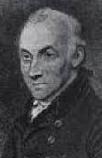
In 1784 after his friend Edward Gibbon in the South Hampshire Militia suggests the idea, Exbury-born English historian William Mitford (1744-1827) begins pub. The History of Greece (5 vols.) (1784-1810); he never visits Greece.
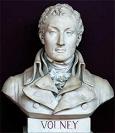
In 1791 Craon, Mayenne-born French philosopher-historian Constantin François de Chassebœuf, Comte de Volney (1757-1820) (born with surname Boisgirais and changing it to Volney = Voltaire + Ferney) pub. the book Les Ruines, ou Meditations sur les Revolutions des Empires (The Ruins, or Meditations on the Revolutions of Empires), which questions the historicity of Jesus Christ along with all revealed religions, calling for absolute separation of church and state in a govt. that allows enlightened self-interest to flourish, after which all religions will recognize their common underlying truth and unite; "From this we conclude, that, to live in harmony and peace... we must trace a line of distinction between those (assertions) that are capable of verification, and those that are not; (we must) separate by an inviolable barrier the world of fantastical beings from the world of realities"; Volney visits Thomas Jefferson at Monticello in June 1796, getting Jefferson to agree to trans. his book into English, giving up after 20 chapters and handing the work to Paris-based Joel Barlow so he can disassociate himself from a political hot potato and run for U.S. pres. In 1819 he pub. New Researches on Ancient History.
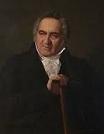
In 1792 Lorrach, Baden-born German jurist-historian Gustav von Hugo (1764-1844) pub. his magnum opus Lehrbuch Eines Civilistischen Cursus (7 vols.) (1792-1821), which separates the Roman from the German elements of the law, founding the German Historical School of Jurisprudence, which regards law as springing from the Volksgeist (popular consciousness), and which splits into the Romanists (von Hugo, Friedrich Carl von Savigny) and the Germanists (Karl Friedrich Eichhorn, Jakob Grimm, Georg Beseler, Otto von Gierke). In 1790 he begins pub. his 2nd magnum opus Civilistisches Magazin (6 vols.) (1790-1837).
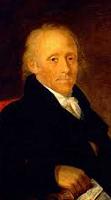
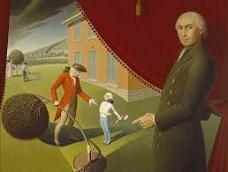
In 1800 Episcopalian travelling minister and bookseller Parson Mason Locke Weems (1759-1825), who lived since 1795 in Dumfries, Va. near Pohick Church in Truro Parish, Lorton, Va., which GW and his father attended in pre-Am. Rev. days, claiming to preach at it after GW's 1799 death pub. A History of the Life and Death, Virtues and Exploits of General George Washington, a bestseller turning GW into "Washington, the hero, and the Demigod", "the friend and benefactor of men", "the Jupiter, Conservator of the Empire", a paragon of moral virtues who liked to pray during the winter at Valley Forge, and who as a 6-y.-o. boy chops down (actually, barks it without killing it) a cherry tree then utters the immortal moose hockey soundbyte to his father Augustine: "I cannot tell a lie, I did it with my little hatchet"; the cherry tree story doesn't appear until the 1806 5th ed., and Weems claimed he heard it from a female cousin of Washington 20 years earlier; goes through 29 eds. by the time he dies in 1825, getting picked up by the popular "McGuffey Reader" used by schoolchildren, after which Washington's Feb. 22 birthday is celebrated with cherry dishes, with the cherry claimed to be a favorite of his; Woodrow Wilson's 1896 "George Washington: A Profile" calls it a fabrication, after which almost all Am. historians follow suit; too bad, an old cherry is found growing in Ferry Farm in 1926, which is claimed to be the one, and further research indicates that the story might be true. He follows with The Life of General Francis Marion (1805), which does ditto for the Swamp Fox, The Life of Benjamin Franklin (1817), and The Life of William Penn (1819).
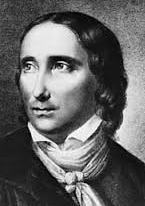
In 1803 Frankfurt am Main-born German historian-jurist Friedrich Carl von Savigny (1779-1861) pub. Das Recht das Besitzes: Eine Civilistische Abhandlung (The Law of Property); argues that in Roman law possession always refers to "usucapion" (interdicts), and does not incl. a right to continued possession but only to immunity from interference, because posstssion is based on the consciousness of unlimited power; ends the old uncritical study of Roman law, making him a star of the German historical school of jurists. In 1815 he begin pub. History of Roman Law in the Middle Ages (Geschichte des Romischen Rechts im Mittelalter) (6 vols.) (1815-31), which covers from the end of the Western Roman Empire until the start of the 12th cent., showing how dead Roman law lived on in local customs, towns, ecclesiastical doctrines, and school teachings until it resurfaced in Bologna and other Italian cities.
In 1803 the College of William and Mary in Va. (founded 1693) founds the first school of modern history in the U.S.
In 1804 the New York Historical Society is founded in New York City, becoming the first museum in New York City.

In 1807 Geneva-born historian-economist ("the Rollin of French History" - Charles Augustin Sainte-Beuve) Jean Charles Leonard Simonde de Sismondi (1773-1842) begins pub. his magnum opus The History of the Italian Republics in the Middle Ages (16 vols.) (1807-18), which inspires Italian nationalists. He follows with History of France (Histoire des Francais) (29 vols.) (1821-44), and Precis de l'Histoire des Francais (1839).

In 1810 Bristol-born writer-scholar-historian-biographer and Romantic poet Robert Southey (1774-1843) begins pub. History of Brazil (3 vols.) (1810-19). In 1813 he pub. The Life of Horatio, Lord Viscount Nelson; a big hit. In 1820 he pub. The Life of Wesley; and Rise and Progress of Methodism (2 vols.). In 1823 he begins pub. History of the Peninsular War, 1807-1814 (3 vols.) (1823-32). In 1833 he begins pub. Lives of the British Admirals, with an Introductory View of the Naval History of England (5 vols.) (1833-40); repub. as "English Seamen" in 1895.

In 1812 after becoming dir. of the nat. bank in Copenhagen in 1804, then witnessing the Oct. 14, 1806 Catastrophe of Jena (Battle of Jena-Auerstedt), going into diplomatic service then retiring from public life and getting appointed royal historiographer and prof. at the U. of Berlin in 1810, Copenhagen-born Danish-German historian Barthold Georg Niebuhr (1776-1831) (son of German geographer Carsen Niebuhr) (born just in time to carry on the work of Edward Gibbon?) pub. The History of Rome (Romische Geschichte) (2 vols.) (English trans. pub. in 1827) (vol. 3 down to the end of the First Punic War pub. posth. in 1832, ed. by Johannes Claussen), the first scientific study of ancient Rome, emphasizing groups and their social traits, tendencies and institutions in preference to individuals, pioneering the writing of history in the absence of original records, founding modern scholarly historiography; a year spent in England and Scotland in 1798 to study agriculture and physics "gave me one important key to Roman history. It is necessary to know civil life by personal observation in order to understand such states as those of antiquity. I never could have understood a number of things in the history of Rome without having observed England."

In 1816 Russian historian Nikolai Mikhailovich Karamzin (1766-1826) begins pub. History of the Russian State (12 vols.) (1816-26), the first attempt at a complete history; too bad, he goes for the Sir Walter Scott romantic thang.
In 1816 Farmington, Conn.-born historian-atty.-politician Timothy Pitkin (1766-1847) pub. A Statistical View of the Commerce of the United States of America, helping make the study of Am. history a serious subject. He follows with A Political and Civil History of the United States: From the Year 1763 to the Close of the Administration of President Washington in March 1797 (2 vols.) (1828).
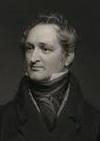
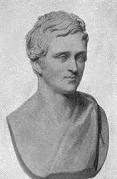

In 1818 English historian Henry Hallam (1777-1859) pub. The View of the State of Europe during the Middle Ages (3 vols.) (first work) (his greatest?). In 1827 he pub. The Constitutional History of England (3 vols.); covers from the accession of Henry VIII to the accession of George III; becomes a std. work; Robert Southey disses it as the "production of a decided partisan" for his distant treatment of Charles I, Thomas Cranmer, and Bishop William Laud. In 1833 his eldest son Arthur Henry Hallam (1811-33) (close friend of fellow poet Alfred, Lord Tennyson, who is engaged to Tennyson's sister Emilia) prematurely dies of a cerebral hemorrhage in Vienna ("jeune homme fatal of his generation"), causing him to pub. The Remains in Prose and Verse of Arthur Henry Hallam, with a Sketch of His Life in 1834. In 1837 he pub. Introduction to the Literature of Europe, in the Fifteenth, Sixteenth and Seventeenth Centuries (4 vols.) (1837-9), followed by Introduction to the Literature of Europe in the 15th, 16th and 17th Centuries, Supplemental Notes to the Middle Ages (1843), and Literary Essays and Characters from the Literature of Europe (1852). In 1849 Tennyson pub. In Memoriam A.H.H. (original title "The Way of the Soul"), which starts out as a memorial for his Cambridge chum poet Arthur Henry Hallam (1811-33), son of historian Henry Hallam, who died of a brain hemorrhage in Vienna, after which he spends 17 years turning it into his opus maximus, stirring controversy with its meditations on the meaning of evolution after reading "Vestiges on the Natural History of Creation" by Robert Chambers (1844); "'Tis better to have loved and lost/ Than never to have loved at all"; "Tho' Nature, red in tooth and claw/ With ravine, shriek'd against his creed"; "Are God and Nature then at strife,/ That Nature lends such evil dreams?/ so careful of the type she seems,/ So careless of the single life."

In 1824 Piedmont, Italy-born historian Carlo Giuseppe Guglielmo Botta (1766-1837) pub. History of Italy, 1789-1814, based on personal testimony, becoming his main claim to fame.


In 1824 after mastering philology at Leipzig U. under Johann Gottfried Jakob Hermann (1772-1848), Wiehe, Saxony-born German historian (greatest of the 19th cent.?) Leopold von Ranke (1795-1886) pub. History of the Latin and Teutonic People from 1494-1514, pioneering the use of primary sources incl. diaries, memoirs, letters, and first-hand accounts, emphasizing narrative history and internat. politics, founding modern prof. "scientific history"; the book is a hit, getting him a 50-year career at the U. of Berlin starting in 1825, where he establishes a center for the training of historians, pioneering the seminar classroom teaching method; contains the soundbyte that the historian must seek the "Holy hieroglyph", i.e., God's hand in history, keeping an "eye for the universal" while taking "pleasure in the particular"; also the soundbyte: "To history has been assigned the office of judging the past, of instructing the present for the benefit of future ages. To such high offices this work does not aspire. It wants only to show what actually [essentially?] happened (wie es eigentlich gewesen)"; his emphasis on empiricism and pooh-poohing of philosophy of history and its attempt to "characterize through only one idea or one word" or "circumscribe be a concept" becomes "the strongest narcotic of the century" (Walter Benjamin), until challenged in the mid-20th cent. by E.H. Carr and Fernand Braudel, who note that historians don't merely report facts but choose which facts to use. In 1827 after discovering a ms. titled "Secret Relations of the Venetian Ambassadors" in the Royal Library in Berlin, he pub. Princes and Peoples of Southern Europe in the Sixteenth and Seventeenth Centuries (Fursten und Volker von Sudeuropa), which is repub. in 1877 under the title "The Ottomans and the Spanish Monarchy in the Sixteenth and Seventeenth Centuries". In 1829 after starting a 4-year tour of Italy in 1827 to gather materials, he pub. The Serbian Revolution. In 1832-6 he pub. Historische-Politische Zeitschrift, sponsored by the Prussian govt., in which he attacked the ideas of the French Rev., which he claimed were only meant for France, urging Prussia to stay true to its special moral character that came from God, and to strive to fulfill the "idea" of their state. In 1834-7 he pub. The Popes of Rome, Their Church and State in the Sixteenth and Seventeenth Centuries (3 vols.), which uses private from papers in Rome and Venice in lieu of material from the Vatican Archives, which he is barred from, coining the term "Counter-Reformation", and featuring coloreful portrayals of Pope Paul IV, Pope Pius IV, and Ignatius of Loyola, drawing praise for its impartiality despite being written by a Protestant, becoming an internat. hit. despite being denounced by the papacy and dissed as too neutral by several Protestants. In 1839 he begins pub. History of Germany in the Time of the Reformation (Deutsche Geschichte im Zeitalter der Reformation) (6 vols.) (1839-47), which uses 96 vols. of correspondence from ambassadors in the Imperial Diet in Frankfurt to explain the German Reformation as the result of both politics and religion, making him the undisputed #1 historian in Germany ("Praeceptor Germaniae") (Ignaz von Dollinger); it contains the soundbyte: "I see the time coming when we will base modern history no longer on secondhand reports, or even on contemporary historians, save where they had direct knowledge, and still less on works yet more distant from the period; but rather on eyewitness accounts and on the most genuine, the most immediate, sources." In 1841 he becomes royal historiographer of the court of Prussia. In 1847-8 he pub. Nine Books of Memoirs of the House of Brandenburg and History of Prussia During the Seventeenth and Eighteenth Centuries (Neun Bucher Preussicher Geschichte) (3 vols.), which covers the Hohenzollern family from the Middle Ages to the reign of Frederick II the Great, pissing-off Prussian nationalists with his portrayal of of Prussia as just another medium-sized German state. In 1852 he begins pub. French History Mainly in the 16th and 17th Centuries (5 vols.) (1852-61), covering Francis I to Louis XIV, gaining more praise for his impartiality despite being German. In 1854 he delivers a series of lectures to future Bavarian king Maximilian II, in which he argues that "every age is next to God", meaning that each period is unique and must be understood in its own context as God views all periods as equal, rejecting the teleological view that each period is super to the one before; hence there is no story to be found of "progress", because "After Plato there can be more Plato", although he considered Christianity as morally superior to all else and not subject to improvement; "I would maintain, on the contrary, that every epoch is immediate to God, and that its value in no way depends on what may have eventuated from it, but rather in its existence alone, its own unique particularity." In 1859 he begins pub. History of England Principally in the Seventeenth and Seventeenth Centuries (Englische Geschichte vornehmlich im XVI and XVII Jahrhundert) (6 vols) (1859-67) (9-vol. ed. in 1870-4). In 1868 he is ennobled. In 1868 he pub. History of Germany Between the Religious Peace and the Thirty Years' War, followed by History of Wallenstein (1869), The German Powers and the Princes' League (1872), Contribution to the History of Austria and Prussia Between the Treaties of Aachen and Hubertsburg (1875), The Origin and Beginning of the Revolutionary Wars of 1791 and 1792 (1875), Hardenberg and the History of the Prussian State from 1793 to 1813 (1877), Historisch-Biographische Studien (essays), and Serbia and Turkey in the 19th Century (1879). In 1882 he is appointed Prussian privy councillor, in 1884 he is appointed the first honorary member of the Am. Historical Assoc., and in 1885 he is given honorary citizenship in Berlin. Too bad, by 1871 his wife dies, and he becomes half-blind, living alone and depending on his assts. to read to him. On Dec. 21, 1885 (his 80th birthday) Kaiser Wilhelm I visits him and declares the day a nat. holiday. He after witnessing the fall of Napoleon and the unification of the German states under Bismarck he dies on May 23, 1886 in Berlin, leaving unfinished his 6-vol. World History: The Roman Republic and Its World Rule (12 vols.) (1880-6), reaching the 1100s, after which his assts. use his notes to bring it up to 1453 (2 vols.); too bad, it's a commentary that assumes the reader already knows all the facts. Blackwood's Mag. of Aug. 1886 contains a personal description of him by Sophie Weisse: "I often met him, most commonly in the Thiergarten; the small fugure - he was not much over five feet- and the peculiarly finely poised head with the clear outline of the face, readily recognizable from afar. He had a curious old-fashioned way of saluting ladies, even out-of-doors, with a kiss on either cheek, after first asking permission in a formula which carried one back to Minna von Barnhelm and Chodowiecki's drawings So kindly and so funny, too, it was. He was very small in stature, but few men have made such a majestic impression. The head was superb, finely chiselled, with a great arched forehead, exceedingly mobile lips, covered only during the last few years of his life by a long white beard, and very bright eyes, with an incessantly inquiring and keenly interested look. He seemed to send this look before him, to recognize and to welcome." "To history has been assigned the office of judging the past, of instructing the present for the benefit of future ages. To such high offices this work does not aspire. It wants only to show what actually [essentially?] happened (wie es eigentlich gewesen)"; "I see the time coming when we will base modern history no longer on secondhand reports, or even on contemporary historians, save where they had direct knowledge, and still less on works yet more distant from the period; but rather on eyewitness accounts and on the most genuine, the most immediate, sources": "To accomplish anything in history there are three requirements: a sound understanding of people, courage, and honesty. The first, simply for insight into things; the second, not to be shocked at what one finds there; and the third, not to dissemble in any particular, even to oneself. So do the simplest moral qualities govern, even in science"; "In schoolbooks and in literature we can separate ecclesiastical and political history; in the life of mankind they are intertwined"; "My understanding of 'leading ideas' is simply that they are the dominant tendencies in each century. These tendencies, however, can only be described; they can not, in the last resort, be summed up in a concept"; "I would maintain, on the contrary, that every epoch is immediate to God, and that its value in no way depends on what may have eventuated from it, but rather in its existence alone, its own unique particularity"; "Every age is next to God"; "Afer Plato there can be no Plato"; "History is no criminal court"; "The proverb tells us that poets are born. Not only in the arts, but even in some scholarly fields, young men develop into full bloom, or at least display their originality. Musicians and mathematicians have the expectation of attaining eminence in early years. But a historian must be old, not only because of the immeasurable extent of his field of study, but because of the insight into the historical process which a long life confers, especially under changing conditions. It would hardly be bearable for him to have only a short span of experience. For his personal development requires that great events complete their course before his eyes, that others collapse, that new forms be attempted."


In 1826 after a long military career in British India, Banff, Aberdeenshire, Scotland-born British soldier-turned-historian James Grant Duff (1789-1858) pub. A History of the Mahrattas (3 vols.). His son Sir Mountstuart Elphinstone Grant Duff (1829-1906) becomes British undersecy. for India in 1868-74, and gov. of Madras in 1881-6 - his ego, your ego, and you slept with my wife?
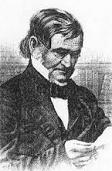
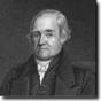
In 1826 Bedford, N.H.-born lexicographer Joseph Emerson Worcester (1784-1865) pub. Elements of History, Ancient and Modern, Accompanied by an Historical Atlas, which becomes a popular textbook, repub. in 1827 as "Epitome of History". He then gets into the Dictionary Wars with West Hartford, Conn.-born Noah Webster Jr. (1758-1843), giving him a run for his money but ultimately losing.

In 1826 Owston, Yorkshire-born English historian-antiquarian (Freemason) Godfrey Higgins (1772-1833) pub. Horae Sabbaticae, which recommends that the Sabbath remain a festival instead of a "gloomy" fast. In 1827 he pub. The Celtic Druids (3 vols.) (2nd ed. 1829); "An attempt to show that the druids were the priests of oriental colonies who emigrated from India, were the introducers of the First or Cadmean System of Letters, and the buildiers of Stonehenge, Carnac, and other Cyclopean works in Asia and Europe"; announces the preparation of an upcoming volume about "all the ancient Mythologies of the world, which, however varied, and corrupted in recent times, were originally one, and that one founded on principles sublime, beautiful and true", which becomes "Anacalypsis" (1836). In 1829 he pub. An Apology for the Life and Character of the Celebrated Prophet of Arabia Called Mohamed, or the Illustrious - now I know he's nuts? In 1836 he posth. pub. his magnum opus Anacalypsis, An Attempt to Draw Aside the Veil of the Saitic Isis, or An Inquiry Into the Origin of Languages, Nations and Religions (2 vols.) (anacalypsis = opposite of apocalypse), an unfinished work on the history of religion that claims that the Druids and Jews originated in India, and that Abraham is really Brahma, and that there is a secret "pandeist" global movement.
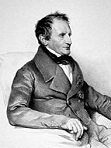
In 1827 Austrian historian Baron Joseph von Hammer-Purgstall (1774-1856) pub. History of the Ottoman Empire (Geschichte des Osmanischen Reiches) (10 vols.) (1827-35), the result of 30 years of study, becoming a std. reference; too bad, it's never trans. to English until ?.
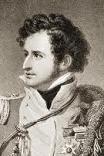


In 1828 after serving in the campaigns, Celbridge (near Dublin), Ireland-born British Lt.-Col. (later Gen.) Sir William Francis Patrick Napier (1785-1860) begins pub. History of the War in the Peninsula and the South of France from the Year 1807 to the Year 1814 (6 vols.) (1828-40), based on his personal experiences and research, which starts out selling slowly then becomes a hit in England, France, and Germany; too bad, he spends a lot of space trying to defend the rep. of his commanding officer Lt.-Gen. Sir John Moore (1761-1809) and prevent his glory from being overshadowed by that of the Duke of Wellington, dragging the work's rep down with controversy and accusations of bias. In 1845 after his brother Gen. Sir Charles James Napier (1782-1853), CIC of British troops in India conquers Sindh in 1843, he pub. The Conquest of Scinde, followed by History of General Sir Charles Napier's Administration of Scinde, and Campaign in the Cutchee Hills (1851). "He who wars, walks in a mist, through which the keenest eyes cannot always discern the right path."

In 1829 British politician-historian Philip Henry Stanhope, 5th Earl Stanhope, Viscount Mahon (1805-75) pub. The Life of Belisarius, followed by History of the War of the Succession in Spain (1832), History of England from the Peace of Utrecht to the Peace of Versailles, 1713-1783 (7 vols.) (1836-53), Life of the Right Honourable William Pitt (4 vols.) (1861-2), based on unique access to ms. records, The Reign of Queen Anne until the Peace of Utrecht, 1701-1713 (2 vols.) (1870), and Notes of Conversation with the Duke of Wellington, 1831-1851 (1886), based on secret transcriptions made during his frequent visits, which take the place of Wellington's memoirs that he never writes.
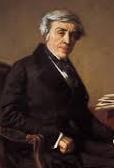
In 1831 Paris-born French historian Jules Michelet (1798-1874) pub. Introduction a l'Histoire Universelle, using the anti-rationalist approach of Giambattista Vico, preferring imagination to analysis, displaying "the peculiar visionary qualities which made Michelet the most stimulating, but the most untrustworthy (not in facts, which he never consciously falsifies, but in suggestion) of all historians." In 1847 he pub. History of the French Revolution, which Francois Furet hails as "the cornerstone of all revolutionary historiography and is also a literary monument." In 1855 he pub. his magnum opus Histoire de France (History of France) (19 vols.), which covers from the birth of France to the French Rev., giving the first vivid account of the Middle Ages, applying liberal principles, concentrating on ordinary people instead of leaders and institutions; coins the term "Renaissance" (rebirth) to represent a drastic break with the Middle Ages, which he disses as a fossilized culture, trying to explain how it was overcome; promotes the "la longue duree" view of French history later adopted by the Annales School; breaks history down into three themes: Maleficent (Dry, Empty, Turgid, Indeterminate), Beneficent, and Paired (Grace and Justice, Union and Unity); the two chapters on Joan of Arc are printed separately, becoming known as the French nat. Bible, with him becoming known as the French nat. historian; "History is not narration, as Thierry thought, nor analysis, as Guizot thought, it is resurrection"; "The historian's first duties are sacrilege and the mocking of false gods. They are his indispensable instruments for establishing the truth."

In 1833 Dusseldorf-born German poet-writer Christian Johann Heinrich Heine (1797-1856) pub. De l'Allemagne (On Germany) (2 vols.), which is pub. in 1834 in German in 2 vols., The Romantic School (Die Romantische Schule), and On the History of Religion and Philosophy in Germany, an attack on Madame de Stael's "De l'Allemagne" (1813), which disses her view of Germany as a land of "poets and thinkers", and claims that pantheism is returning after cents. of Christian suppression; "Christianity - and that is its greatest merit - has somewhat mitigated that brutal Germanic love of war, but it could not destroy it. Should that subduing talisman, the cross, be shattered, the frenzied madness of the ancient warriors, that insane Berserk rage of which Nordic bards have spoken and sung so often, will once more burst into flame. This talisman is fragile, and the day will come when it will collapse miserably."

In 1833 after giving up his career as a novelist, Saint-Quentin-born French historian Bon Louis Henri Martin (1810-83) begins pub. History of France (15 vols.) (1833-36) (4th ed., 19 vols., 1861-5), which covers from the earliest times to the 1789 French Rev. He follows with the popular abridgement A Popular History of France (7 vols.) (1867), and History of France from 1789 to the Present Time (Histoire de France Depuis 1789 Jusqu'a Nos Jous) (6 vols.) (1878-83), becoming the #1 history of France for the 19th cent., superseding Sismondi. Too bad, he relies on romanticized descriptions of the Gauls, and his knowledge of the Middle Ages is inadequate, causing his magnum opus to be superseded. He also pub. Daniel Manin (1860), Russia and Europe (1866), Studies of Celtic Archeology (1872), and Napoleon and the Frontiers of France (1874).


In 1835-6 Ludwigsburg-born German liberal Protestant theologian David Friedrich Strauss (1808-74) pub. The Life of Jesus Critically Examined (Das Leben Jesu, Kritisch Bearbeitet), which says what all the Rationalists have been thinking, rejecting the miracles and Virgin Birth of Christ as myths, and showing that there is no way to construct a historical image of Jesus from the New Testament to serve the Christian faith, although the myths they are based on may contain a kernel of truth, causing a giant reaction in Germany; claims that the Gospels were written late in the 2nd cent. C.E.; trans. to English in 1846 by George Eliot, which the Earl of Shaftesbury calls "the most pestilential book ever vomited out of the jaws of hell"; Albert Schweitzer later writes that Strauss' works "filled in the death-certificates of a whole series of explanations which, at first sight, have all the air of being alive, but are not really so", dividing the Quest for the Historical Jesus into "the period before David Strauss, and the period after David Strauss"; spawns disciples incl. Bruno Bauer (1809-82), who concludes that Jesus was a 2nd cent. myth stolen from Greek and Roman mythology, with Judaism thrown in; too bad, Strauss couches his book in terms of Hegelian philosophy, causing the Young Heglians to chew him up, and academia to bury Bauer's works. In 1840-1 Strauss pub. On Christian Doctrine (Christliche glaubenslehre) (2 vols.), which claims that the history of Christian doctrines has been the history of their disintegration. In 1847 he pub. A Romantic on the Throne of the Caesars, which draws parallels between Prussian king Frederick William IV and Roman emperor Julian the Apostate, claiming that both were romantic dreamers who tried to turn the calendar back. In 1849 he pub. Life of Christian Friedrich Daniel Schubart (2 vols.). In 1858-60 he pub. Ulrich von Hutten (3 vols.) (6th ed. 1895), followed by H.S. Reimarus (1862). In 1864 he pub. The Life of Jesus for the German People (Das Leben Jesu fur das deutsche Volk bearbeitet) (13th ed. 1904), which draws a firestorm of controversy, along with responses by Daniel Schenkel (1813-85) and Ernst Wilhelm Hengstenberg (1802-69), which he responds to in the 1865 pamphlet "Die Halben und die Ganzen" (The Half and the Whole" (1865). In 1865 he pub. The Christ of Belief and the Jesus of History (Der Christus des Glaubens und der Jesus der Geschichte), which disses Friedrich Schleiermacher's lectures on the life of Jesus. In 1872 he pub. his last book The Old Faith and the New (Die alte und der neue Glaube), which totally dumps miracles for modern scientific materialism, causing another public sensation; 4th ed. 1873 contains "Afterword as Foreword" (Nachwort als Vorwort); English trans. pub. by M. Blind in 1873.

In 1835 after visiting the U.S. for 9 mo. in 1831 to gather info. on prisons and turning into a groupie, French Versailles court auditor Alexis Charles Henri Clerel (Clérel) de Tocqueville (1805-59) begins pub. Democracy in America (La Democratie en Amerique) (2 vols.) (1835, 1840), which lionizes Americans and their democracy experiment; "Among a democratic people, where there is no hereditary wealth, every man works to earn a living... Labor is held in honor; the prejudice is not against but in its favor"; "America... the place where the Christian religion has kept the greatest real power over men's souls"; "There are now two great nations in the world, which starting from different points, seem to be advancing toward the same goal: the Russians and the Anglo-Americans... Each seems called by some secret design of Providence one day to hold in its hands the destinies of half the world"; "There is hardly a pioneer hut that does not contain a few odd volumes of Shakespeare"; "The first who attracts the eye, the first in enlightenment, in power and in happiness, is the white man, the European, man par excellence; below him appear the Negro and the Indian. These two unfortunate races have neither birth, nor face, nor language, nor mores in common; only their misfortunes look alike. Both occupy an equally inferior position in the country that they inhabit; both experience the effects of tyranny; and if their miseries are different, they can accuse the same author for them." In 1856 he pub. L'Ancien Regime et la Revolution (The Old Regime and the Revolution), which analyzes the French Rev. and concludes that the French tried to dissociate themselves from the past but ended up reverting to a strong central govt.

In 1837 Galloway-born Scottish historian-philosopher Thomas Carlyle (1795-1881) pub. The French Revolution: A History (3 vols.), which covers from 1789-95, written in exciting present-tense first-person plural style, becoming a big hit and std. work, inspiring Charles Dickens' 1859 novel "A Tale of Two Cities", remaining popular into modern times (most interesting history book ever written?); too bad, he gave the ms. of vol. 1 to friend John Stuart Mill to proofread, but on Mar. 6, 1837 Mill's housemaid mistakenly used it to start a fire, causing Carlyle to have to reconstruct it without notes, making it come out highly quirky, finishing on Jan. 12, 1837; "All eyes are on Robespierre's Tumbril, where he, his jaw bound in dirty linen, with his half-dead Brother and half-dead Henriot, lie shattered, their 'seventeen hours' of agony about to end. The Gendarmes point their swords at him, to show the people which is he. A woman springs on the Tumbril; clutching the side of it with one hand, waving the other Sibyl-like; and exclaims: 'The death of thee gladdens my very heart, m'enivre de joi'; Robespierre opened his eyes; 'Scélérat, go down to Hell, with the curses of all wives and mothers!'" In 1841 he pub. On Heroes, Hero Worship, and the Heroic in History, a series of lectures given in May 1840; how world civilization is powered by "great men", incl. Muhammad, ergo democracy sucks?; calls Muhammad a genuinely religious man, but condemns the Quran as the most boring book on Earth, "as toilsome reading as I ever undertook. A wearisome, confused jumble, crude, incondite; endless iterations, long-windedness, entanglement; most crude, incondite, insupportible stupidity in short"; still, hero Muhammad can't be a false prophet: "A false man found a religion? Why, a false man cannot build a brick house!... It will not stand for twelve centuries, to lodge a hundred-and-eighty million; it will fall straightaway"; "All that mankind has done, thought, gained or been: it is lying as in magic preservation in the pages of books"; "What we become depends on what we read after all of the professors have finished with us. The greatest university of all is a collection of books"; "Histories are a kind of distilled newspapers"; "In books lies the soul of the whole Past Time; the articulate audible voice of the Past, when the body and material substance of it has altogether vanished like a dream"; "A man lives by believing something; not by debating and arguing about many things." In 1858-65 he pub. History of Friedrich II of Prussia, Called Frederick the Great (6 vols.), about Frederick II the Great (1712-86), based on trips to Germany in 1852 and 1858, calling the work his "Thirteen Years War"; portrays Freddy the Great as a genius who can bring victory out of chaos in every battle, getting adopted by German military academies but receiving a mixed reception at home, causing him to get depressed; a coincidence that his neglected wife becomes an invalid this year?; "Infinitely the wittiest book that was ever written" (Ralph Waldo Enerson); "The figures of most historians seem like dolls stuffed with bran, whose whole substance runs out through any hole that criticism may tear in them; but Carlyle's are so real in comparison, that, if you prick them, they bleed" (James Russell Lowell); "Happy the people whose annals are blank in history-books"; "History is a great dust heap"; "[History] may be called, more generally still, the Message, verbal or written, which all Mankind delivers to everyman"; "In a certain sense all men are historians"; "Under all speech that is good for anything there lies a silence that is better. Silence is deep as Eternity; speech is shallow as Time."

In 1837 Salem, Mass.-born blind Hispanist historian (first scientific Am. historian) William Hickling Prescott (1796-1859) pub. The History of the Reign of Ferdinand and Isabella the Catholic (4 vols.) (1837), followed by The History of the Conquest of Mexico (4 vols.) (1843) (Cortes' subjugation of the Aztecs), A History of the Conquest of Peru (3 vols.) (1847), and History of the Reign of Philip the Second, King of Spain (4 vols.) (unfinished) (1856-8), which are widely translated, but ignore economic, social, and other forces to focus on political and military history.

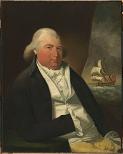
In 1838 after becoming one of the Am. intelligentsia who receive Alexis de Tocqueville during his 1831-2 visit to the U.S., helping load his brain with disinfo., er, info., Willington, Conn.-born Unitarian minister Jared Sparks (1789-1866) becomes the first McLean Professor of Ancient and Modern History at Harvard U., endowed by the will of wealthy merchant John McLean (1761-1823), becoming the first academic encouragement of original research in Am. history; in 1849-53 he becomes pres. of Harvard U.; "It was not until Jared Sparks began his important labors in 1818 that scholars undertook the study of the history of the English race in America with a serious spirit." (Albert Bushnell Hart) In 1829-30 he pub. The Diplomatic Correspondence of the American Revolution (12 vols.), followed by Life of Gouverneur Morris, with Selections from His Correspondence and Miscellaneous Papers (3 vols.) (1832), A Collection of the Familiar Letters and Miscellaneous Papers of Benjamin Franklin (1833), The Life and Writings of George Washington (12 vols.) (1834-7), The Works of Benjamin Frankliin, with Notes and a Life of the Author (10 vols.) (1836-40), Life of George Washington (1839), and Correspondence of the American Revolution, Being Letters of Eminent Men to George Washington, from the Time of His Taking Command of the Army to the End of His Presidency (4 vols.) (1853).
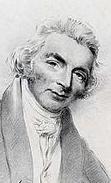
In 1840 Liverpool-born English Cambridge U. historian William Smyth (1765-1849) pub. Lectures on Modern History (w/Jared Sparks) (2 vols.) (1840-1), followed by Lectures on the French Revolution (3 vols.) (1840-1).
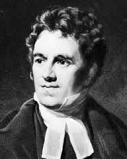

In 1841 after 13 years as headmaster of Rugby School (since 1828), which are later immortalized in Tom Brown's Schooldays (1857), Isle of Wight-born English educator-historian Thomas Arnold (1795-1842) (father of Matthew Arnold) becomes Regius Prof. of Modern History at Oxford U.; too bad, he dies on June 12, 1842 of a heart attack in Rugby, leaving the unfinished History of Rome (3 vols.) (1838-42), and Introductory Lectures on Modern History (1842). In 1880 his son poet-critic son Matthew Arnold (1822-88) pub. The Study of Poetry, the first articulation of the concept of the Historian's Fallacy (coined in 1970 by David Hackett Fischer); "The course of development of a nation's language, thought, and poetry, is profoundly interesting; and by regarding a poet's work as a stage in this course of development we may easily bring ourselves to make it of more importance as poetry than in itself it really is, we may come to use a language of quite exaggerated praise in criticising it; in short, to overrate it. So arises in our poetic judgments the fallacy caused by the estimate which we may call historic."
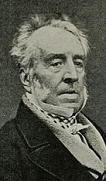
In 1846 Clay Hill, Kent-born political radical and English historian George Grote (1794-1871) begins pub. A History of Greece, from the Earliest Period to the Close of the Generation Contemporary with Alexander the Great (12 vols.) (1846-56), his magnum opus, which becomes a std. work. In 1865 he pub. Plato and Other Companions of Sokrates (4 vols.), earning him a rep as the #1 Plato scholar of the 19th cent.; too bad, he dies before he can complete a companion work on Aristotle.
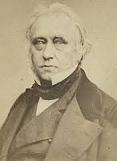
In 1848-61 British White, er, Whig politician and historian Thomas Babington Macaulay, 1st Baron Macaulay (1800-59) pub. The History of England from the Accession of James the Second (5 vols.), which covers 1685-1702, known for its cool prose combining the dramatic style of Thucydides and Tacitus with the learned factual style of David Hume, pushing the Whig interpretation of British history, i.e., that it represents the march of civilization itself, with anybody standing in its way being a villain; too bad, he dies before he can finish it; "A systematic falsifier of history" (Karl Marx); "No particular man is necessary to the state"; "It is, I believe, no exaggeration to say that all the historical information which has been collected from all the books written in the Sanskrit language is less valuable than what may be found in the most paltry abridgement used at preparatory schools in England."

In 1849 Boston, Mass.born historian Francis "Frank" Parkman Jr. (1823-93) pub. The Oregon Trail: Sketches of Prairie and Rocky-Mountain Life, an account of his 2-mo. summer 1846 tour of Neb., Wyo., Colo., and Kan., incl. hunting buffalo with the Oglala Sioux. In 1851 he pub. The Conspiracy of Pontiac and the Indian War After the Conquest of Canada (2 vols.), dedicated to Jared Sparks. In 1865 he begins pub. France and England in North America (7 vols.) (1865-92); incl. "The Pioneers of France in the New World" (1865), "The Jesuits in North America in the Seventeenth Century" (1867), "La Salle and the Discovery of the Great West" (1869), "The Old Regime in Canada" (1874), "Count Frontenac and New France under Louis XIV" (1877), "Montcalm and Wolfe" (1884), "A Half Century of Conflict" (1892), creating a market for books on early French Am. and the Am. frontier, making a fan of Teddy Roosevelt; despite numerous errors it ranks "Among the most brilliant achievements of the writing of history as an art" (Edmund Wilson). In 1957 the Francis Parkman Prize for the best book in Am. history with special regard to lit. distinction is established by the Society of Am. Historians; the first winner is George F. Kennan for Russia Leaves the War.
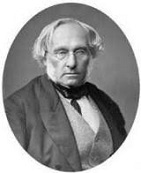
In 1851 English historian Sir Edward Shepherd Creasy (1812-78) pub. The Fifteen Decisive Battles of the World: From Marathon to Waterloo; shamelessly Eurocentric; mentioned in Gilbert and Sullivan's 1879 opera "The Pirates of Penzance". He follows with Historical and Critical Account of the Several Invasions of England (1852), History of the Ottoman Turks, from the Beginning of Their Empire to the Present Time (1854) (Joseph von Hammer's "History of the Ottoman Empire"), The Rise and Progress of the English Constitution (1855) (17th ed. 1886), History of England from the Earliest to the Present Time (5 vols.) (1869-70), and Imperial and Colonial Institutions of the Britannic Empire, Including Indian Institutions (1872).

In 1851 Swiss-born Am. Protestant Union Theological Seminary theologian-historian Philip Schaff (1819-93) pub. History of the Apostolic Church, With a General Introduction to Church History (English trans. pub. in 1853), followed by History of the Christian Church (8 vols.) (1858-90), The Creeds of Christendom, with a History and Critical Notes (3 vols.) (1877), and Through Bible Lands: Notes of Travel in Egypt, the Desert, and Palestine (1878). In 1882-4 he pub. The Schaff-Herzog Encyclopedia of Religious Knowledge, based on the 1853 "Realencyklopädie für protestantische Theologie und Kirche" by Johann Jakob Herzog (1805-82); in 1908-4 the 13-vol. "The New Schaff-Herzog Encyclopedia of Religious Knowledge is posth. pub.
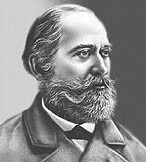
In 1851 Russian #1 historian Sergey Mikhaylovich Solovyov (1820-79) begins pub. History of Russia from the Earliest Times (29 vols.) (1851-79), touting Russia as Christianity's outpost in the East, claiming that Russian statehood was a "natural and necessary development" of social-political forces, calling the Time of Troubles and Peter the Great's reforms as temporary diseases of the organism of the Russian state, influencing a whole generation of Russian historians; he follows with History of Poland's Downfall (1863) and Public Readings on Peter the Great (1872).

In 1852 Trier, Prussia-born German Jewish philosoper-economist Karl Marx (1818-83), author of "The Communist Manifesto" (1848) and "Das Kapital" (1867-94) pub. The Eighteenth Brumaire of Louis Napleon, treating the French Coup of 1851 from the standpoint of his materialist conception of history (that changes in material conditions are the primary driver of the org. of society and the economy), seeking to "demonstrate how the class struggle in France created circumstances and relationships that made it possible for a grotesque mediocrity to play a hero's part"; contains the line: "Men make their own history, but they do not make it as they please; they do not make it under self-selected circumstances, but under circumstances existing already, given and transmitted from the past"; alt. translation: "The people make their own history, but they make it not however they want, not under self-selected circumstances, but out of the actual given and transmitted situation. The traditions of all the dead generations burden, like a mountain, the minds of the living"; contains the line: "Hegel remarks somewhere that all great world-historic facts and personages appear, so to speak, twice. He forgot to add: the first time as tragedy, the second time as farce. Caussidière for Danton, Louis Blanc for Robespierre, the Montagne of 1848 to 1851 for the Montagne of 1793 to 1795, the nephew for the uncle. And the same caricature occurs in the circumstances of the second edition of the Eighteenth Brumaire", which is distilled into the immortal soundbyte: "History repeats itself, first as a tragedy, then as a farce."
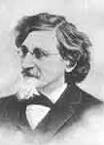
In 1852 after becoming a member of the Society of Jesus in 1847 and leaving in 1852 after adopting his middle name Gilmary ("servant of Mary"), New York City-born John Dawson Gilmary Shea (1824-92) (#1 authority on aboriginal Native Americans) pub. his first book Discovery and Exploration of the Mississippi Valley with the original narratives of Marquette, Allouez, Membré, Hennepin and Anastase Douay, followed by History of the Catholic Missions among the Indian Tribes of the United States, 1529-1854 (1854), and A Bibliographical Account of American Catholic Bibles, Testaments, and Other Portions of Scripture (1859). The Fallen Brave: A Biographical Memorial of The American Officers Who Have Given Their Lives for the Preservation of the Union (1861), Early Voyages Up and Down the Mississippi (1861), The Operations of the French Fleet under the Count de Grasse in 1781-2 (1864), The Lincoln Memorial (1865), A Child's History of the United States (1872), The Life of Pius IX and the Great Events in the History of the Church During His Pontificate (1875), The Bursting of Pierre Margry's La Salle Bubble: To Refute Margry's claim that La Salle Was the First French Discoverer of the Mississippi (1879), Bibliography of Hennepin's Works (1880), The Catholic Church in Colonial Days, 1521-1763 (1886), The Hierarchy of the Catholic Church in the United States: Embracing Sketches of All the Archbishops and Bishops from the Establishment of the See of Baltimore to the Present Time: also, An Account of the Plenary Councils of Baltimore, and brief History of the Church in the United States (1886), and Life and Times of the Most Rev. John Carroll, Bishop and First Archbishop of Baltimore: Embracing the History of the Catholic Church in the United States, 1763-1815 (1888). He leaves his magnum opus History of the Catholic Church in the United States (4 vols.) (1886-92), The Defenders of Our Faith (1892), and The Cross and the Flag, Our Church and Country: Heroic Deeds (w/Cardinal James Gibbons et al.) (1899). In 1945 the John Gilmary Shea Prize is established by the Am. Catholic Historical Assoc. for the most original and distinguished contribution to the knowledge of the history of the Roman Catholic Church.
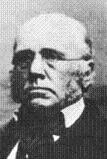
In 1853 Swiss-German theologian Johann Jakob Herzog (1805-82) begins pub. Encyclopedia of Protestant Theology (Realencyklopadie fur Protestantische Theologie und Kirche) (22 vols.) (1853-68); rev. 1877, 1896-1909. In 1882 he and Philip Schaff (1819-93) begin pub. The Schaff-Herzog Encyclopedia of Religious Knowledge (1882-4).
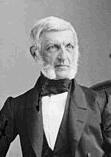
In 1854 after getting the best education that the U.S. and Europe can provide,and serving as U.S. Navy secy. #17 in 1845-6, establishing the U.S. Naval Academy in Annapolis, Md. in 1845, followed by U.S. minister to the U.K. in 1846-9, Worcester, Mass.-born historian-statesman George Bancroft (1800-91) begins pub. History of the United States of America, from the Discovery of the American Continent (8 vols.) (1854-78), becoming "the Father of American History". He follows with Martin Van Buren to the End of His Public Career (1889), and History of the Battle of Lake Erie, and Miscellaneous Papers (1891).

In 1854-6 Garding, Schleswig-born German historian (pioneer of epigraphy) Christian Matthias Theodor Mommsen (1817-1903) pub. History of Rome (3 vols.), which covers the Roman Repub. thru Julius Caesar (-100 to -44); an instant hit, making him the #2 man on ancient Roman history after Edward Gibbon; he goes on to spawn the multi-generational Mommsen family of German historians.

In 1856 after joining the Anglo-Catholic Oxford Movement and becoming an Anglican deacon in 1844, then making friends with Thomas Carlyle, who turns him anticlerical and gets him to withdraw from the ministry in 1872 after pub. the scandalous novel The Nemesis of Faith (1849), Dartington, Devon-born historian James Anthony Froude (1818-94) begin pub. History of England from the Fall of Wolsey to the Death of Elizabeth (12 vols.) (1856-70) (rev. ed. 1893), which rehabilitates Henry VIII and treats history as a drama, sans scientific or other theories, except when he touts the Protestant Reformation as "the root and source of the expansive force which has spread the Anglo-Saxon race throughout the globe", making him a controversial star. In 1872 he begins pub. The English in Ireland in the Eighteenth Century (3 vols.) (1872-4), explaining why it is futile for the English to conciliate the Irish because they're priest-ridden, and what they need is "enlightened despotism", thus all them English atrocities by Oliver Cromwell et al. were well deserved, pissing-off Irish historian William Edward Hartpole Lecky et al. In 1879 he pub. Caesar: A Sketch, followed by Bunyan (1880). In 1881 he ed. Thomas Carlyle's Reminiscences. In 1882-4 he pub. Thomas Carlyle (2 vols.), incl. "A History of the First Forty Years of His Life", and "A History of His Life in London, 1834-1881", which causes a war with Carlyle's niece Mrs. Alexander Carlyle, who doesn't want his dirty laundry aired. In 1883 he pub. Luther: A Short Biography, followed by Oceana, or, England and Her Colonies (1886). In 1888 he pub. The English in the West Indies: Or, The Bow of Ulysses, which disses the British West Indian colonies for wanting self-govt., claiming that the black pop. will elect leaders who will repress the white pop., pissing-off Trinidadian writer J.J. (John Jacob) Thomas (1841-89), who pub. Froudacity: West Indian Fables by James Anthony Froude in 1889 before dying of pneumonia. In 1890 he pub. The Earl of Beaconsfield, followed by The Divorce of Catherine of Aragon (1891). In 1892 he becomes Regius Prof. of Modern History at Oxford U.

In June 1857 wealthy Lee, London-born self-educated historian and strong amateur chess player Henry Thomas Buckle (1821-62) pub. vol. 1 of History of Civilization in England, the first history utilizing climate, soil, food, and other scientific data to explain events, attempting to illustrate the principles of scientific history based on scientific and mental laws, incl. that progress depends on scepticism, making him a star, "the Father of Scientific History"; followed by vol. 2 in May 1861; too bad, after leaving England for the Holy Land for his health, he contracts typhoid fever in Nazareth, and dies on May 29, 1862 in Damascus before he can finish all 14 vols.

In 1857 after his first dissertation on the interplay between sensation and imagination is rejected and he receives a doctorate at the Sorbonne for literature in 1853, Vouziers-born French historian-lit. critic Hippolyte Adolphe Taine (1828-93) pub. The Classical Philosophers in 19th Century France (Les Philosophes Classiques du XIXe Siecle en France) (1857-68), followed by Essays of Criticism and History (Essais de Critique et d'Histoire) (1858-82), founding historicist criticism, and expounding French naturalism and sociological positivism, making fans of Emile Zola and Friedrich Nietzsche, who calls him "the first of living historians". He follows with History of English Literature (Histoire de la Litterature Anglaise) (1864), and The Philosophy of Art (Philosophie de l'Art) (1865-82), containing his analysis of all art as motivated by race (volk a la Johann Gottfried Herder), milieu (environment), and moment (momentum). He follows with New Essays of Criticism and History (Nouveaux Essais de Critique et d'Histoire) (1865-1901), A Stay in France from 1792 to 1795 (Un Sejour en France de 1792 a 1795) (1872), The Origins of Contemporary France (Les Origines de la France Contemporaine) (6 vols.) (1875-93), incl. "L'Ancien Regime" (1875), "La Revolution" ("L'Anarchie", 1878, "La Conquete Jacobine", 1881, "Le Gouvernement Revolutionnaire", 1883), "Le Regime Moderne" ("Napoleon Bonaparte", 1890, "L'Eglise, L'Ecole", 1893), and Last Essays of Criticism and History (Demiers Essais de Critique et d'Histoire) (1894) (posth.).

In 1858 Knaresborough, West Riding of Yorkshire-born historian and Anglican Bishop William Stubbs (1825-1901) pub. Registrum Sacrum Anglicanum: An Attempt to Exhibit the Course of Episcopal Succession in England, from the Records and Chronicles of the Church, a calendar of English bishops from St. Augustine, followed by many works on ecclesiastical history, making him the #1 English historical scholar of his day. In 1886-84 he becomes Regius Prof. of Modern History at Oxford U., resigning to do more research. In 1872 he founds the Oxford U. School of Modern History. In 1874 he begins pub. The Constitutional History of England in Its Origin and Development (3 vols.) (1874-8), which becomes a std. work, tracing the development of the English constitution from the 5th-6th cent. Teutonic invasions of England to 1485. In 1886 he pub. Seventeen Lectures on the Study of Mediaeval and Modern History and Kindred Subjects Delivered at Oxford in 1867-1884. In 1889 he becomes bishop of Oxford.
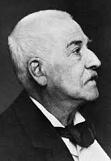
In 1860 Basel-born Swiss art historian Carl Jacob Christoph Burckhardt (1818-97), an admirer of Arthur Schopenhauer pub. The Civilization of the Renaissance in Italy, which defines the Renaissance as the period between Italian painters Giotto and Michelangelo, founding cultural history, becoming a std. work and making him the #1 scholar of the Italian Renaissance, with his scholarly judgments standing up to modern research; makes a fan of Friedrich Nietzsche; "The great discoverer of the age of the Renaissance, he first showed how a period should be treated in its entirety, with regard not only for its painting, sculpture and architecture, but for the social institutions of its daily life as well." (Siegfried Giedion) In 1867 he pub. History of the Renaissance in Italy. "History is the record of what one age finds worthy of note in another"; "History is still in large measure poetry to me."
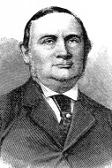


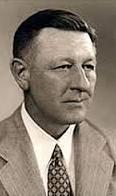
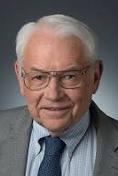
In 1863 Berlin-born German historian (the first primitive Historyscoper?) Carl (Karl) Julius Ploetz (1819-81) pub. An Epitome of Ancient, Medieval, and Modern History (Auszug aus der Alten, Mittleren und Neueren Geschichte), a dictionary of time with parallel synchronized columns on various topics, which is a big hit, reaching a 3rd ed. by 1869; in 1883 an English trans. by William H. Tillinghast and expanded by Harvard U. history prof. Edward Perkins Channing (1856-1931) is pub.; in 1915 it becomes A Handbook of Universal History; in 1925 it becomes A Manual of Universal History, revised by Auburn, N.Y.-born historian Harry Elmer Barnes (1889-1968) (prof. at Columbia U. in 1918-29); in 1940-72 it becomes An Encyclopedia of World History Ancient, Medieval and Modern, Chronologically Arranged, rewritten and ed. by Harvard U. history prof. William Leonard Langer (1896-1977) (eds. #1-5), after which in 1991 it is taken over by 30+ historians led by Carnegie Mellon U. history prof. Peter N. Stearns (1936-), who changes "An" to "The" in the 2001 (6th) ed.; meanwhile the German version is improved independently after getting adopted in 1935 by Ploetz Verlag Herder in Freiburg, reaching 2K pages by 2008.

In 1863 Brittany-born philosopher-philologist-historian Joseph Ernest Renan (1823-91) pub. The Life of Jesus (Vie de Jesus), vol. 1 of the 8-vol. "Histoire des Origines du Christianisme" (1863-81), which pisses-off the Roman Catholic Church for treating the life of Jesus like any other man and subjecting the Bible to critical scrutiny, becoming a big hit with Rationalists; the fact that he has Celtic roots in Brittany makes it just too cool?
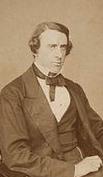
In 1863 after sowing his wild oats and becoming a leading mountaineer, Kensington Gore, London-born historian-biographer-critic Sir Leslie Stephen (1832-1904) (son of Sir James Stephen and father of Virginia Woolf) pub. his first book The Poll Degree from a Third Point of View, followed by The 'Times' on the American War: A Historical Study (1865), about how The Times of London kept wrongly predicting the success of Southern independence, Sketches from Cambridge (1865), The Playground of Europe (1871), Essays on Free Thinking and Plain Speaking (1873), Hours in a Library (3 vols.) (1874-9), The History of English Thought in the Eighteenth Century (2 vols.) (1876), and Samuel Johnson (1878), "the peerless model of short biographies". In 1882-91 he becomes ed. #1 of The Dictionary of National Biography (63 vols., 1885-1900). He follows with An Agnostic's Apology (1893), Studies of a Biographer (4 vols.) (1898-1902), The English Utilitarians (1900), George Eliot (1902), English Literature and Society in the Eighteenth Century (Ford Lectures) (1903), and Hobbes (1904).
In 1864 French historian Francois Odysse Barot pub. Lettres sur la Philosophie de l'Histoire in Paris, containing the soundbyte: "Since the convention which, in 1496 B.C.E. established between 12 states of Greece the amphictyonic confederation, until the treaty of January 23, 1861 between France and England, I counted 8,397 treaties. That's the positive pole. Let's examine the negative pole. In face of these 8,397 solemn conventions of peace, alliance, and friendship, one can not find in this long period of 3,357 years, - 1496 B.C.E. to 1861 C.E., - that 227 years of peace, against 3,130 years of war. A year of peace for 13 years of war"; too bad, he counts peace treaties and treaties of alliance and amity not wars, launching a series of quotes and misquotes about the subject that grow like fish stories.

In 1864 Paris-born French historian Numa Denis Fustel de Coulanges (1830-89) pub. La Cite (Cité) Antique, which claims that religion was the sole factor in the social and political evolution of ancient Greece and Rome, becoming a classic of 19th cent. French lit.; revised ed. pub. in 1875.

In 1865 Irish historian William Edward Hartpole Lecky (1838-1903) pub. A History of the Rise and Influence of Rationalism in Europe (2 vols.), about the fall of Church-think to the onslaught of Science; makes it sound like Science is the way out of all our problems? In 1869 he pub. History of European Morals from Augustus to Charlemagne (2 vols.); how history shows a gen. moral progress of the human race, driven by the "industrial spirit" (capitalism); "There is, perhaps, no phase in the moral history of mankind, of a deeper or more painful interest than this ascetic epidemic. A hideous, sordid, and emaciated maniac, without knowledge, without patriotism, without natural affection, passing his life in a long routine of useless and atrocious self-torture, and quailing before the ghastly phantoms of his delirious brain, had become the ideal of the nations which had known the writings of Plato and Cicero and the lives of Socrates or Cato" (vol. 2); makes a fan of Mark Twain, who uses it to write "Huckleberry Finn" and "The Prince and the Pauper", along with his A History of England during the Eighteenth Century (8 vols.) (1878-90), which devotes half his space to Irish affairs.
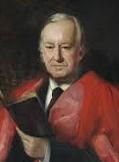
In 1866 London-born English Cambridge U. historian Sir John Robert Seeley (1834-95) pub. Ecce Homo: A Survey of the Life and Work of Jesus Christ, portraying Jesus as a man who would be king of a theocratic state with its own moral code, pissing-off establishment Christians, followed by Life and Times of Stein: Or, Germany and Prussia in the Romantic Age (1878). In 1883 he pub. The Expansion of England, a bestseller (80K copies in 2 years) that becomes a big hit among the public, the nobles, and the politicians alike, becoming "the bible of British imperialists" (George Peabody Gooch), and "the single influence which did most to develop the imperialist idea" (Robert Ensor); doesn't go out of print until 1956 after Winston Churchill comments "Now it would be Seeley's Contraction of England"; claims that the imperial expansion of Britain was based on the defeat of Louis XIV's empire in the 18th cent., and that the 18th cent. was mainly a struggle between Euro nations for control of the New World instead of a struggle for liberty; "We seem, as it were, to have conquered and peopled half the world in a fit of absence of mind"; argues that the British Dominions are critical to British power, although holding onto India might not be beneficial in the long run, speculating on the result of the Dominions becoming independent; "Such a separation would leave England on the same level as the states nearest to us on the Continent, populous, but less so than Germany and scarcely equal to France. But two states, Russia and the United States, would be on an altogether higher scale of magnitude, Russia having at once, and the United States perhaps before very long, twice our population"; "The other alternative is that England may prove able to do what the United States does so easily, that is, hold together in a federal union countries very remote from each other. In that case England will take rank with Russia and the United States in the first rank of state, measured by population and area, and in a higher rank that the states of the Continent"; "It may be fairly questioned whether the possession of India does or ever can increase our power or our security, while there is no doubt that is vastly increases our dangers and responsibilities"; "When we inquire then into the Greater Britain of the future we ought to think much more of our colonial than of our Indian Empire"; too bad, the book "dealt in the main with the great wars of the eighteenth century and this gave the false impression that the British Empire has been founded largely by war and conquest, an idea that was unfortunately planted firmly in the public mind, not only in Great Britain, but also in foreign countries." (A.P. Newton) In 1895 he posth. pub. The Growth of Political Policy, followed by Introduction to Political Science: Two Series of Lectures (1896).

In 1867 Harborne (near Birmingham)-born English historian Edward Augustus Freeman (1823-92) begin pub. his magnum opus The History of the Norman Conquest of England, Its Causes and Its Results (6 vols.) (1867-79), which becomes a std. work. In 1884 he succeeds William Stubbs as Regius Professor of Modern History at Oxford, tutoring archeologist Sir Athur Evans and leaving 239 works, incl. The Historical Geography of Europe (1881), and Comparative Politics: Six Lectures Read Before the Royal Institution in January and February, 1872, with The Unity of History, the Rede Lecture Read Before the University of Cambridge, May 29, 1872 (1896) (posth.).
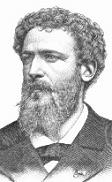
In 1867 Paris-born Henry (Henri) Houssaye (1848-1911), son of novelist Arsene Housaye pub. History of Apelles, about ancient Greek art. He follows with The Ancient Greek Army (1867), History of Alcibiades of the Athenian Republic from the Death of Pericles to the Advent of the 30 Tyrants (1873), The First Siege of Paris, 52 B.C.E. (1876). Athens, Rome, Paris; History and Customs (1879), The Number of Citizens of Athens in the Fifth Century B.C.E. (1882), The Land Act in Sparta (1884), and Aspasia, Cleopatra, Theodora (1889). In 1888 he pub. 1814: History of the Campaign of France and the Fall of the Empire (1814, Histoire de la Campagne de France et la Chute de l'Empire), vol. 1 of 4 of a military history of French emperor Napoleon I, which goes through 46 eds; he follows with 1815 (3 vols.), incl "The First Restoration, the Return from Elba and the Hundred Days" (1893), "Waterloo" (1899), and "The White Terror" (1905).
In 1868 the Royal Historical Society (RHistS) (RHS) at the Univ. College in London, England receives a royal charter, merging with the Camden Society (founded 1838) in 1897; pres. #1 (1871-2) is George Grote (1794-1871), followed by John Russell, 1st Earl Russell (1873-8) (grandfather of Sir Bertrand Russell), Henry Austin Bruce, 1st Baron Aberdare (1815-95) (1878-91), Sir Mountstuart Elphinstone Grant Duff (1829-1906) (son of James Grant Duff) (1891-99), Sir Adolphus William Ward (1837-1924) (1899-1901), and Sir George Walter Prothero (1848-1922) (1901-5). In 2012 Peter Mandler (1958-) becomes pres. (until ?).
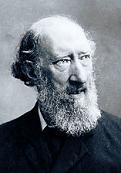
In 1869 Alresford, Hampshire-born English historian Samuel Rawson Gardiner (1829-1902), first major expert on the English Civil War and the Puritan Rev., helped by being a descendant of Oliver Cromwell and Henry Ireton pub. his first book History of England from the Accession of James I to the Disgrace of Chief-justice Coke. 1602-1616, followed by Prince Charles and the Spanish Marriage, 1617-1623 (2 vols.) (1869), The Thirty Years' War, 1618-1648 (1874), History of England from the Accession of James I to the Outbreak of the Civil War, 1603–1642 (10 vols.) (1883-4), History of the Great Civil War, 1642-1649 (4 vols.) (1886-94), The Constitutional Documents of the Puritan Revolution, 1628–1660 (1889), A Student's History of England from the Earliest Times to 1885 (2 vols.) (1890-1), The Hanoverian Period (1891), Outline of English History, B.C. 55 - A.D. 1886/1902 (1891, 1903), A School Atlas of English History (1892), History of the Commonwealth and Protectorate, 1649–1660 (4 vols.) (1897-1901), What Gunpowder Plot Was (1897), Oliver Cromwell (1899), and Prince Rupert at Lisbon (1902).
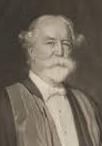
In 1869 Hampstead, London-born English historian Sir Adolphus William Ward (1837-1924) pub. his first book The House of Austria in the Thirty Years' War, followed by History of English Dramatic Literature to the Age of Queen Anne (3 vols.) (1875), his most popular work (rev. ed pub. in 1899). he follows with Great Britain and Hanover: Some Aspects of the Personal Union (1899), and The Electress Sophia and the Hanoverian Succession (1903) (2nd ed. 1909). In 1902 Ward, Lord John Dalberg-Acton (1834-1902) et al. begin pub. The Cambridge Modern History (12 vols.) (1902-12), which covers 1450-1910; incl. "The Renaissance" (1902), "The Reformation: The End of the Middle Ages" (1903), "The Wars of Religion" (1904), "The Thirty Years' War" (1906), "The Age of Louis XIV" (1908), "The Eighteenth Century" (1909), "The United States" (1903), "The French Revolution" (1904), "Napoleon" (1906), "The Restoration" (1907), "The Growth of Nationalities" (1909), "The Latest Age" (1910); "The New Cambridge Modern History" (14 vols.) is pub. in 1957-79, covering 1450-1945.

In 1872 after his efforts at abolition make him a persona non grata in the U.S., causing him to move to England and become minister of the Tom Paine-thumping freethinking South Place Religious Society in Finsbury, London in 1864, Falmouth, Stafford County, Va.-born ex-Unitarian clergyman Moncure Daniel Conway (Gael. "holy river") (1832-1907) pub. Republican Superstitions as Illustrated in the Political History of America, followed by Demonology and Devil Lore (2 vols.) (1878), Thomas Carlyle (1881), The Wandering Jew (1881), Emerson at Home and Abroad (1882), Life and Papers of Edmund Randolph (1888), Life of Nathaniel Hawthorne, George Washington's Rules of Civility: Traced to Their Sources and Restored (1890), The Life of Thomas Paine (2 vols.) (1892), The Writings of Thomas Paine (1894), Solomon and Solomonic Literature (1899), Autobiography, Memories and Experiences (1904), and My Pilgrimage to the Wise Men of the East (1906).
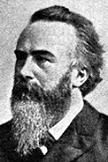
In 1873 Wechold-born German music historian Julius August Philipp Spitta (1841-94) begins pub. Johann Sebastian Bach (1873-80) (Leipzig), which contains the first major study of 17th cent. early Baroque German choral and keyboard music.

In 1874 Lancashire, England-born Am. chemist John William Draper (1811-82), known for helping found the New York Univ. Medical School in 1840 and taking the first life photographs of a human face in 1839-40 pub. History of the Conflict Between Religion and Science, which proposes the Conflict Thesis, that there is an intrinsic intellectual conflict between you know what, leading to public hostility, which becomes a big hit with Rationalists, although modern historians tend to back off from it.

In 1874 British naval historian (first-ever?) Sir John Knox Laughton (1830-1915) delivers a lecture to the Royal United Services Inst., announcing the novel idea of the importance of analyzing historical events rather than merely reporting them chronologically, becoming "a catalyst for the entire intellectual development of naval history as an independent discipline", making disciples of British Adm. Herbert William Richmond, British civilian historian Sir Julian Corbett, and U.S. Rear Adm. Alfred Thayer Mahan. In 1887 he pub. Studies in Naval History: Biographies. In 1893 he and Adm. Sir Cyprian Arthur George Bridge (1839-1924) found the Navy Records Society to pub. documents on British naval history; U.S. Rear Adm. Alfred Thayer Mahan becomes the first overseas member. In 1894 he pub. State Papers Relating to the Defeat of the Spanish Armada, Anno 1588, followed by Nelson (1895), Nelson and His Companions in Arms (1896), and Sea Fights and Adventures, Described (1907), Too bad, his works go out of print and he fades into obscurity until Donald Mackenzie Schurman (1924-2013) ("founder of naval history in Canada") pub. The Education of a Navy: The Development of British Naval Strategic Thought, 1867-1914 (1965), resurrecting his memory, causing the dept. of war studies at King's College to name its naval history chair after him.


In 1878 London-born gay wit and Cambridge U. historian Oscar Browning ("O.B.") (1837-1923) pub. Modern England, 1820-1874, followed by An Introduction to the History of Educational Theories (1881), Modern France, 1814-1879 (1885), England and Napoleon in 1803, Being the Despatches of Lord Whitworth and Others (1887), The Teaching of History in Schools (1887), an address delivered to the Royal Historical Society on Oct. 22, 1877, Aspects of Education: A Study in the History of Pedagogy (1888), The New Illustrated History of England (4 vols.) (1888), Modern England, 1815-1885 (1889), Life of George Eliot (1890), Dante: His Life and Writings (1891), The Life of Bartolomeo Colleoni of Anjou and Burgundy (1891), The Flight to Varennes (1892), The Citizen, His Rights and Responsibilities; Guelphs and Ghibellines: A Short History of Mediaeval Italy from 1250-1409 (1893), about the pro-pope Guelphs and pro-HRE Ghibellines back when they didn't call it church vs. state, The Age of the Condottieri: A Short History of Mediaeval Italy from 1409-1530 (1895), Peter the Great (1898), Charles XII of Sweden (1899), Wars of the Century and the Development of Military Science (1903), Impressions of Indian Travel (1903), Napoleon, the First Phase: Some Chapters on the Boyhood and Youth of Bonaparte, 1769-1793 (1905), The Fall of Napoleon (1907), Memories of Sixty Years at Eton, Cambridge and Elsewhere (1910), A History of the Modern World, 1815-1910 (1912), A General History of the World (1913), and Memories of Later Years (autobio.). On Oct. 24, 1929 English writer (Adeline) Virginia Woolf (nee Stephen) (1882-1941) pub. the essay A Room of One's Own, based on lectures delivered at Newnham College and Girton College, Cambridge U. in Oct. 1928, pleading for women's economic and intellectual independence in a patriarchal society; "A woman must have money and a room of her own if she is to write fiction"; "Give her a room of her own and five hundred a year, let her speak her mind and leave out half that she now puts in, and she will write a better book one of these days"; "Women have burnt like beacons in all the works of all the poets from the beginning of time. Indeed if woman had no existence save in the fiction written by men, one would imagine her a person of the utmost importance; very various; heroic and mean; splendid and sordid; beautiful and hideous in the extreme; as great as a man, some would say greater. But this is woman in fiction. In fact, as Professor Trevelyan points out, she was locked up, beaten and flung about the room. A very queer, composite being thus emerges. Imaginatively she is of the highest importance; practically she is completely insignificant. She pervades poetry from cover to cover; she is all but absent from history. She dominates the lives of kings and conquerors in fiction; in fact she was the slave of any boy whose parents forced a ring upon her finger. Some of the most inspired words and profound thoughts in literature fall from her lips; in real life she could hardly read; scarcely spell; and was the property of her husband"; "Then may I tell you that the very next words I read were these - 'Chloe liked Olivia...' Do not start. Do not blush. Let us admit in the privacy of our own society that these things sometimes happen. Sometimes women do like women"; narrated by the Four Marys, incl. Mary Beaton, Mary Seton, Mary Carmichael, and Mary Hamilton; the heroine Judith Shakespeare; disses dead English gay don Oscar Browning (1837-1923), claiming that he "was wont to declare 'that the impression left on his mind, after looking over any set of examination papers, was that... the best woman was intellectually the inferior of the worst man'"; after describing his thang for hot young men, she theorizes that "because Mr. Oscar Browning was a great figure in Cambridge at one time" his negative opinion of the intelligence of women would rub off on the fathers of the day and his words would be cited by them to dissuade their daughters from pursuing higher education.

In 1880 Barmen, Germany-born Protestant theologian-historian Albert Kalthoff (1850-1906) pub. The Life of Jesus: Lectures given to the Protestant Reform Club of Berlin, followed by The Problem of Christ: Principles of a Social Theology (1902), and The Rise of Christianity: New Questions about the Christ Problem (1904) (English trans. pub. 1907), resurrecting the works of Bruno Baer along with his Christ myth theory; "It sometimes happens in the scientific discussion of a problem that we make a considerable advance towards its solution by abandoning some point of view from which we have fruitlessly striven to master it, and confronting it from a fresh position. The experience suggests itself forcibly in the controversy with regard to the historical character of Jesus. Starting from the theory that the evangelical writings of the New Testament must be regarded as sources of evidence for the life-story of an historical individual, liberal theology has lost itself in a labyrinth from which it cannot escape. Even in circles where the dogma of a personal founder of Christianity is till rigorously maintained, people are beginning to see that very little biographical material can be obtained from the Gospels"; "A Son of God, Lord of the World, born of a virgin, and rising again after death, and the son of a small builder with revolutionary notions, are two totally different beings. If one was the historical Jesus, the other certainly was not. The real question of the historicity of Jesus is not merely whether there ever was a Jesus among the numerous claimants of a Messiahship in Judea, but whether we are to recognise the historical character of this Jesus in the Gospels, and whether he is to be regarded as the founder of Christianity." In 1906 Kalthoff pub. Modern Christendom. On Jan. 1, 1906 Ernst Haeckel forms the German Monists League (Deutscher Monistenbund) in Jena, which reaches 6K members by 1912, with the theological wing led by Kalthoff, along with Emil Jakob Felden (1874-1959), Oscar Mauritz (1867-1959), Moritz Schwalb (1833-1916), and Friedrich Steudel (1866-1939), none of whom believe in the historicity of Jesus Christ; on Dec. 16, 1933 after dwindling to 3.2K members the league is dissolved by the Nazis.
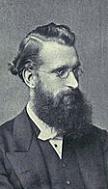
In 1882 English Cambridge U. historian and Anglican cleric (Bishop of London in 1897-1901) Mandell Creighton (1843-1901) begins pub. A History of the Papacy During the Period of the Reformation (5 vols.) (1882-94). He follows with The Early Renaissance in England (1895), The English National Character (1896), Queen Elizabeth (1896) (rev. ed. 1906), Thoughts on Education: Speeches and Sermons (1902) (posth.), The Church and the Nation: Charges and Addresses (1902) (posth.), Historical Lectures and Addresses (1903) (posth.), and Persecution and Tolerance: Hulsean Lectures, University of Cambridge, 1893-4 (1906) (posth.). "[Creighton] belonged to... the school of Oxford and Cambridge inquirers, who sought to reconstruct the past solidly and patiently, with nothing but facts to assist them - pure facts, untwisted by political or metaphysical bias and uncoloured by romance. In this attempt Creighton succeeded admirably." - Lytton Strachey

In 1882 Manhattan, N.Y.-born Harvard U. grad Theodore "Teddy" "T.R." Roosevelt Jr. (1858-1919) pub. his first book The Naval War of 1812; or The History of the United States Navy During the Last War with Great Britain to Which Is Appended an Account of the Battle of New Orleans, which becomes a std. work, establishing his rep. In 1889 he begins pub. The Winning of the West (4 vols.) (1889-96), which supports his belief in the superiority of the Nordic race in the struggle between civilization and savagery, and backs social Darwinism; "The settler and pioneer have at bottom had justice on their side; this great continent could not have been kept as nothing but a game preserve for squalid savages"; "The most ultimately righteous of all wars is a war with savages"; "It is of incalculable importance that America, Australia, and Siberia should pass out of the hands of their red, black, and yellow aboriginal owners, and become the heritage of the dominant world races"; "The world would have halted had it not been for the Teutonic conquests in alien lands; but the victories of Moslem over Christian have always proved a curse in the end. Nothing but sheer evil has come from the victories of Turk and Tartar."


In spring 1883 the Cambridge U. Tripos Dispute sees prof. of history (since 1869) Sir John Robert Seeley (1834-95) and prof. of moral philosophy (since 1883) Henry Sidgwick (1838-1900) (author of "Inductive Political Science") want the tripos bachelor's honors exam in history to concentrate on political history, with the Seeley soundbytes "History is the school of statesmanship", "History is past politics, and politics present history", and "History without politics descends to mere literature", while historians Frederick Maitland, George Walter Prothero, Henry Melvill Gwatkin, and Mandell Creighton advocate a broader more scientific approach, reaching a compromise emphasizing the reading of primary sources, requiring a compulsory paper on "Political Science", with required readings incl. "Introduction to Political Science" (1896) by Seeley and "The Elements of Politics" (1891) by Sidgwick.
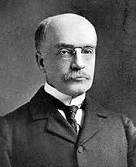
In 1883 after over a decade of research, Brooklyn, N.Y.-born historian John Bach McMaster (1852-1932) begins pub. his magnum opus A History of the People of the United States: from the Revolution to the Civil War (8 vols.) (1883-1914). In 1887 he pub. Benjamin Franklin as a Man of Letters. In 1889 he pub. Outline of the Lectures of the Constitutional History of the United States, 1789-1889. In 1896 he pub. With the Fathers: Studies in the History of the United States, and The Origin, Meaning and Application of the Monroe Doctrine. In 1897 he pub. The University of Pennsylvania Illustrated, and the popular textbook A School History of the United States; rev. ed. 1912. In 1901 he pub. A Primary History of the United States. In 1902 he pub. Daniel Webster, and History of the Expedition under the Command of Captains Lewis and Clarke (3 vols.) (1902-6). In 1902 McMaster, John Fiske (1842-1901), and John Henry Wright (1852-1908) pub. Modern Development of the New World. In 1903 he pub. The Acquisition of Political, Social, and Industrial Rights of Man in America. In 1909 he pub. A Brief History of the United States. In 1918 he pub. The Life and Times of Stephen Girard, Mariner and Merchant, and The United States in the World War (3 vols.) (1918-20).

In 1884 the Am. Historical Assoc. (AHA) is founded in Washington, D.C., with Andrew Dickson White of Cornell U. as pres. #1 (until 1886), receiving a Congressional charter in 1889 "for the promotion of historical studies, the collection and preservation of historical manuscripts, and for kindred purposes in the interest of American history, and of history in America", going on to become the oldest and largest historian society in the U.S., pub. The Am. Historical Review and Perspectives on History; the first paper delivered at the first meeting in 1884 is by Dorchester, Mass.-born Harvard U. history prof. (1883-1929) Edward Perkins Channing (1856-1931), son of poet William Ellery Channing, who got turned on by a lecture by Henry Adams, wins the 1884 Tappan Prize for Town and County Government in the English Colonies (1983), and goes on to pub. A History of the United States (6 vols.) (1905-25), which becomes a std. work., stressing the endless progress and ultimate victory of the forces of union over particularism Social Darwinist style, covering the unique contributions of each section to the whole, and breaking with Frederick Jackson Turner and his Frontier Thesis to emphasize the role of urbanization and improvements in transportation; it incl. Vol. 1: The Planting of a Nation in the New World, 1000-1660 (1905), with the soundbyte: "Religious enthusiasm, human affection, the pursuit of gain - these three motives account for the peopling of America by men of European stock and Christian faith", Vol. 2: A Century of Colonial History, 1660-1760 (1908), Vol. 3: The American Revolution, 1761-1789 (1912), Vol. 4: Federalists and Republicans, 1789-1815 (1917), Vol. 5: The Period of Transition, 1815-1848 (1921), Vol. 6: The War for Southern Independence, 1849-1865 (1925) (Pulitzer Prize), which claims that the South wasn't finished militarily in Apr. 1865, only broken in spirit, and A Short History of the United States for School Use (1908). In 1912 he becomes McLean Prof. of Ancient and Modern History. He also pub. The Navigation Laws (1890), The United States of America, 1765-1865 (1896) (2nd ed. 1930), and A Students' History of the United States (1898).
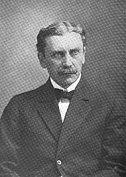
In 1885 after living for several years with the Cherokee, Richmond, Ind.-born self-taught ethnographer James Mooney (1861-1921) pub. Linguistic Families of Indian Tribes North of Mexico, with Provisional List of Principal Tribal Names and Synonyms, followed by The Sacred Formulas of the Cherokees (1891), Siouan Tribes of the East (1894), Native American Ghost Dance Songs (1894), The Ghost-Dance Religion and the Sioux Outbreak of 1890 (2 vols.) (1896), Calendar History of the Kiowa Indians (1898), Myths of the Cherokee (1902), Indian Missions North of Mexico (1907), and The Swimmer Manuscript: Cherokee Sacred Formulas and Medicinal Prescriptions (ed. Frans M. Olbrechts) (1932), founding the ethnographic study of Native Ams.

In 1886 Ecclesall, Sheffield-born Oxford U. historian Sir Charles Harding Firth (1857-1936) pub. his first book Life of the Duke of Newcastle, followed by Scotland and the Commonwealth (1895), Scotland and the Protectorate (1899), Narrative of the General Venables (1900), Oliver Cromwell and the Rule of the Puritans in England (1900), Cromwell's Army: A History of the English Soldier During the Civil Wars, the Commonwealth and the Protectorate (1902), and The Last Years of the Protectorate (1909).
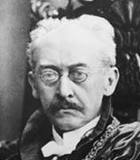
In 1886 Dorpat, Livonia (Tartu, Estonia)-born liberal German Lutheran theologian Carl Gustav Adolf von Harnack (1851-1930) begins pub. History of Dogma (Lehrbuch der Dogmengeschichte) (7 vols.) (1886-98), espousing a liberal German view of the Gospels, claiming that from the start Christian faith was intermingled with Greek philosophy, thus Protestants are bound to criticize it. In 1893 he pub. History of Early Christian Lit. down to Eusebius of Caesaria (Geschichte der altkirchlichen Literatur bis Eusebius). In 1902 he pub. The Mission and Expansion of Christianity in the First Three Centuries (Die Mission und Ausbreitung des Christentums in den ersten drei Jahrhunderten) (3 vols.). In 1906 he pub. Contributions to the Introduction to the New Testament (Beitrage zur Einleitung in das neue Testament). In 1907 he pub. Luke the Physician. In 1908 he pub. The Sayings of Jesus. He goes on to reject the Gospel of John as unhistorical, and diss Old Testament miracles while leaving a door open to New Testament healing miracles, with the soundbyte: "That the earth in its course stood still; that a she-ass spoke; that a storm was quieted by a word, we do not believe, and we shall never again believe; but that the lame walked, the blind saw, and the deaf heard will not be so summarily dismissed as an illusion." On Oct. 4, 1914 the Manifesto of the Ninety-Three (To the Civilized World) is issued by 93 German intellectuals incl. Wilhelm Roentgen and Max Reinhardt, countering reports of German atrocities in the Rape of Belgium with the soundbyte: "We shall wage this fight to the very end as a civilized nation, a nation that holds the legacy of Goethe, Beethoven, and Kant no less sacred than hearth and home", galvanizing German support for the war in schools and univs. while pissing-off foreign intellectuals incl. German Lutheran theologian Adolf von Harnack's student Karl Barth, causing him to ditch German liberal theology, and causing Germany's critics to began lambasting German "Kultur" as tantamount to the Huns; next year German pacifist physician Georg Friedrich Nicolai (Lewinstein) (1874-1964) pub. Manifesto to Europeans, calling for European intellectuals to unite Europe after the war, with the soundbytes: "Never before has any war so completely disrupted cultural cooperation. It has done so at the very time when progress in technology and communications clearly suggest that we recognize the need for international relations which will necessarily move in the direction of a universal, worldwide civilization"; "The first step in this direction would be for all those who truly cherish the culture of Europe to join forces, all those whom Goethe once prophetically called 'good Europeans'. We must not abandon hope that their voice speaking in unison may even today rise above the clash of arms, particularly if they are joined by those who already enjoy renown and authority"; signed by fellow U. of Berlin faculty Otto Buek, Wilhelm Julius Forster, and Albert Einstein, becoming his first foray into politics; on Nov. 25 Kaiser Wilhelm II writes a letter to British-born white supremacist Houston Stewart Chamberlain in Berlin, with the soundbyte: "It is my unspeakable conviction that the country to which God gave Luther, Goethe, Bach, Wagner, Moltke, Bismarck, and my grandfather will yet be called upon to fulfill great tasks for the benefit of mankind."
In 1886 Oxford U. Press begins pub. the bimonthly The English Historical Review, founded by John Dalberg-Acton, 1st Baron Acton of Cambridge U., becoming the oldest English language academic journal in the field of history; the first ed. is Mandell Creighton of Cambridge U.
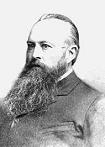

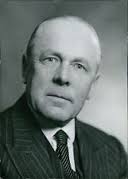
On Apr. 5, 1887 after supporting the Confed. side of the U.S. Civil War in vain, then attempting in vain to stop the First Vatican Council from promulgating the doctrine of papal infallibility by travelling to Rome, British Roman Catholic historian-politician John Emerich Edward Dalberg-Acton, 1st Baron Acton (1834-1902) (AKA Lord Acton) writes a letter to Anglican Cambridge U. historian Mandell Creighton (1843-1901) containing the immortal soundbyte: "Power tends to corrupt, and absolute power corrupts absolutely"; "But if we might discuss this point until we found that we nearly agreed, and if we do agree thoroughly about the impropriety of Carlylese denunciations and Pharisaism in history, I cannot accept your canon that we are to judge Pope and King unlike other men, with a favourable presumption that they did no wrong. If there is any presumption it is the other way, against the holders of power, increasing as the power increases. Historic responsibility has to make up for the want of legal responsibility. Power tends to corrupt, and absolute power corrupts absolutely. Great men are almost always bad men, even when they exercise influence and not authority, still more when you superadd the tendency or the certainty of corruption by authority. There is no worse heresy than that the office sanctifies the holder of it. That is the point at which the negation of Catholicism and the negation of Liberalism meet and keep high festival, and the end learns to justify the means. You would hang a man of no position like Ravaillac; but if what one hears is true, then Elizabeth asked the gaoler to murder Mary, and William III ordered his Scots minister to extirpate a clan. Here are the greatest names coupled with the greatest crimes; you would spare those criminals, for some mysterious reason. I would hang them higher than Haman, for reasons of quite obvious justice, still more, still higher for the sake of historical science." On June 11, 1895 after being appointed Regius Prof. Of Modern History at Cambridge U., he delivers his inaugural lecture The Study of History, with the soundbyte: "History is the arbiter of controversy, the monarch of all she surveys," which makes a big splash, calling for historians to reject historicism, which limits moral judgments to the specific context in which events being discussed took place, and become moral arbiters, with the soundbyte: "Never to debase the moral currency or lower the standard of rectitude, but try others by the final maxim that governs your own lives, and to suffer no man and no cause to escape the undying penalty which history has the power to inflict on wrong", adding: "I hope... this will aid you to see that the action of Christ who is risen on mankind whom he redeemed fails not, but increases; that the wisdom of divine rule appears not in the perfection but in the improvement of the world; and that achieved liberty is the one ethical result that rests on the converging and combined conditions of advancing civilization. Then you will understand what a famous philosopher said, that History is the true demonstration of Religion." He then plans out The Cambridge Modern History (14 vols.) (1902-12) (covering 1450-1910), but dies in Tegernsee, Bavaria before it's finished, with Encyclopaedia Britannica ed. Hugh Chisholm writing the soundbyte: "Lord Acton has left too little completed original work to rank among the great historians; his very learning seems to have stood in his way; he knew too much and his literary conscience was too acute for him to write easily, and his copiousness of information overloads his literary style. But he was one of the most deeply learned men of his time, and he will certainly be remembered for his influence on others." Regius Prof. of Modern History at Cambridge U. (1943-7) Sir George Norman Clark (1890-1979) writes an intro. to the 2nd ed. (1957), dissing Lord Acton's hope that one day there will be an "ultimate history", with the soundbyte: "Knowledge of the past has come down through one or more human minds, has been processed by them, and therefore cannot consist of elemental and impersonal atoms which nothing can alter." Clark goes on to edit The Oxford History of England (15 vols.) (1934-65), and write Vol. 10: "The Later Stuarts, 1660-1714". "Universal History is... not a burden on the memory but an illumination of the soul"; "To develop and perfect and arm conscience is the great achievement of history"; "If the past has been an obstacle and a burden, knowledge of the past is the safest and the surest emancipation." "History is not only a particular branch of knowledge, but a particular mode and method of knowledge in other branches"; "History, to be above evasion or dispute, must stand on documents, not on opinions"; "History provides neither compensation for suffering nor penalties for wrong"; "The science of politics is the one science that is deposited by the streams of history, like the grains of gold in the sand of a river, and the knowledge of the past, the record of truths revealed by experience, is eminently practical, as an instrument of action and a power that goes to making the future"; "Save for the wild force of Nature, nothing moves in this world that is not Greek in its origin"; "Liberty is not the power of doing what we like, but the right of being able to do what we ought." "The Celts are not among the progressive, initiative races, but among those which supply the materials rather than the impulse of history, and are either stationary or retrogressive. The Persians, the Greeks, the Romans, and the Teutons are the only makers of history, the only authors of advancement. Other races possessing a highly developed language, a speculative religion, enjoying luxury and art, attain to a certain pitch of cultivation which they are unable to either communicate or to increase. They are a negative element in the world"; "Subjection to a people of a higher capacity for government is of itself no misfortune; and it is to most countries the condition of their political advancement."



In 1889 Boston, Mass.-born Harvard-educated Henry Brooks Adams (1838-1918) (whose portrait bears a striking resemblance to Am. comedian Dick Smothers (1939-)?), 3rd son of diplomat (Pres. Lincoln's ambassador to London) Charles Francis Adams (1807-86), son of U.S. pres. John Quincy (J.Q.) Adams (1767-1848), and great-grandson of U.S. pres. John Adams (1735-1826), who as a boy was told that he will grow up to be pres. too, but couldn't stand the corruption of the Grant admin., becoming a Harvard historian instead pub. The History of the United States of America During the Administration of Thomas Jefferson and James Madison 1801-1817 (9 vols.) (1889-91), focusing on diplomacy, making use of secret European archives to present an intimate picture of Jefferson, who faced the dilemma of governing an egalitarian society in a world that aggrandizes power; draws mixed reviews, from "A history yet to be replaced" by C. Vann Woodward to "misjudged the state of the nation in 1800" by Noble Cunningham. In 1894 he becomes pres. of the Am. Historical Assoc., giving an inaugural address on the increasing interest in the philosophy of history, which in retrospect is weird because he ends up claiming that history is devoid of purpose?; his railroad official brother (pres. of the Union Pacific Railroad in 1884-90) Charles Francis Adams Jr. (1835-1915) (whose portrait bears a striking resemblance to Am. comedian Tom Smothers (1937-)?), becomes pres. of the AHA in 1901. In 1904 he pub. Mont-Saint-Michel and Chartres, about how medieval culture was cool, esp. between 1150-1250, because it spiritualized femininity and earthly love (sex) via the Virgin Mary, while its cathedrals expressed "an emotion, the deepest man ever felt — the struggle of his own littleness to grasp the infinite." In 1907 he privately pub. The Education of Henry Adams, which is not commercially pub. until after his death, winning the 1919 Pulitzer Prize; an autobio. in the 3rd person, by the grandson of U.S. pres. J.Q. Adams, wailing about his cruddy formal education that didn't prepare him for the 20th cent.; how the medieval unity of religion, science, and art has become kaput, leaving the human spirit disorganized, and the cult of the Virgin has been supplanted by the cult of the Dynamo; "A teacher affects eternity, he can never tell where his influence ends"; predicts that in 50 years the two countries ruling the world will be Russia and the U.S.; his path to wisdom began by ditching his daddy's plan to make him U.S. president? In 1909 he writes The Rule of Phase Applied to History (pub. posth.), which sees history as a thermodynamic process moving towards equilibrium, with military nations acting as Maxwell's Demon and tending to reverse it; In 1910 he privately pub. A Letter to American Teachers of History, which questions current methods of historians, proposing a "theory of history' based on the Second Law of Thermodynamics and the principle of entropy. In 1912 he has a stroke after hearing of the sinking of the Titanic, for which he had return tickets to Europe, and doesn't pub. much after that.

In 1889 County Monaghan, Ireland-born historian J.B. (John Bagnell) Bury (1861-1927) pub. History of the Later Roman Empire from Arcadius to Irene (2 vols.), objecting to the term "Byzantine Empire", followed by A History of the Roman Empire from Its Foundation to the Death of Marcus Aurelius (1893), A History of Greece to the Death of Alexander the Great (1900), The Life of St. Patrick and His Place in History (1905), The Ancient Greek Historians (Harvard Lectures) (1909), A History of the Eastern Empire from the Fall of Irene to the Accession of Basil I (1912), A History of the Freedom of Thought (1914), The Idea of Progress: An Inquiry into Its Origin and Growth (1920), History of the Later Roman Empire from the Death of Theodosius I to the Death of Justinian (2 vols.) (1923), The Hellenistic Age: Aspects of Hellenistic Civilization (1923), The Invasion of Europe by the Barbarians (1928) (posth.), and History of the Papacy in the 19th Century (1864-1878) (1930) (posth.). In 1902 he succeeds Lord John Acton as Regius Professor of Modern History at Cambridge U. In 1919 he plans The Cambridge Ancient History (12 vols.) (1924-39) (2nd ed., 14 vols., 1970-2005), which covers Euro history to the victory of Constantine the Great in 324 C.E., which he doesn't live to see completed; "Europeans, who wish to follow the history of their own development from its origins, must first of all become acquainted with the civilizations of Egyptian, Sumerian, Hittite, Semitic and other peoples of north-eastern Africa and south-western Asia." "A complete assemblage of the smallest facts of human history will tell in the end"; "History is a science, no more and no less"; "I may remind you that history is not a branch of literature. The facts of history, like the facts of geology or astronomy, can supply material for literary art; for manifest reasons they lend themselves to artistic representation far more readily than those of the natural sciences; but to clothe the story of human society in a literary dress is no more the part of a historian as a historian, than it is the part of an astronomer as an astronomer to present in an artistic shape the story of the stars."

In 1889 Lambeth-born English barrister-turned-novelist-turned-naval historian Sir Julian Stafford Corbett (1854-1922) (student of John Knox Laughton) pub. his first book Monk, followed by Sir Francis Drake (1890), Papers Relating to the Navy During the Spanish War, 1585-1587 (1898), Drake and the Tudor Navy, with a History of the Rise of England as a Naval Power (1898), and The Successors of Drake (1900). In 1902 he begins lecturing at the British Naval War College, and in 1903 delivers the Ford Lectures in English history at Oxford U. He follows with England in the Mediterranean: A Study of the Rise and Influence of British Power within the Straits, 1603-1713 (2 vols.) (1904), and Fighting Instructions: 1530-1816 (1905). In 1905 after British Adm. Sir John "Jacky" "Jackie" Fisher becomes an admirer, he becomes the unofficial chief strategic adviser to the British Admiralty, endorsing the battle cruiser and Dreadnought. He follows with England in the Seven Years' War (1907), Some Neglected Aspects of War, by Captain A.T. Mahan (1907), Signals and Instructions: 1776-1794 (1909), and The Campaign of Trafalgar (1910), becoming the first staff account. In 1911 he pub. Some Principles of Maritime Strategy, which becomes a classic, advocating effective use of sea lines for communications, and regarding naval strategy as only a means to an end defined by nat. strategy; "At first sight nothing can appear more unpractical, less promising of useful result, than to approach the study of war with a theory. There seems indeed to be something essentially antagonistic between the habit of mind that seeks theoretical guidance and that which makes for the successful conduct of war. The conduct of war is so much a question of personality, of character, of common-sense, of rapid decision upon complex and ever-shifting factors, and those factors themselves are so varied, so intangible, so dependent upon unstable moral and physical conditions, that it seems incapable of being reduced to anything like true scientific analysis. At the bare idea of a theory or 'science' of war the mind recurs uneasily to well-known cases where highly 'scientific' officers failed as leaders. Yet, on the other hand, no one will deny that since the great theorists of the early nineteenth century attempted to produce a reasoned theory of war, its planning and conduct have acquired a method, a precision, and a certainty of grasp which were unknown before. Still less will any one deny the value which the shrewdest and most successful leaders in war have placed upon the work of the classical strategical writers. The truth is that the mistrust of theory arises from a misconception of what it is that theory claims to do. It does not pretend to give the power of conduct in the field; it claims no more than to increase the effective power of conduct. Its main practical value is that it can assist a capable man to acquire a broad outlook whereby he may be the surer his plan shall cover all the ground, and whereby he may with greater rapidity and certainty seize all the factors of a sudden situation. The greatest of the theorists himself puts the matter quite frankly. Of theoretical study he says, 'It should educate the mind of the man who is to lead in war, or rather guide him to self-education, but it should not accompany him on the field of battle'; "The last thing that an explorer arrives at is a complete map that will cover the whole ground he has travelled, but for those who come after him and would profit by and extend his knowledge his map is the first thing with which they will begin." He follows with Private Papers of George, Second Earl Spencer, First Lord of the Admiralty, 1794-1801 (2 vols.) (1914), The Spectre of Navalism (1915), The League of Peace and a Free Sea (1917), The League of Nations and Freedom of the Seas (1918), History of the Great War Naval Operations, Based on Official Documents (3 vols.) (1920-3), and Maritime Operations in the Russo-Japanese War, 1904-1905 (2 vols.) (classified until 1994).
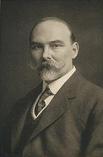
In 1889 after being turned-on by Alfred Percy Sinnett's "Esoteric Buddhism" (1883) and joining her Theosophical Society in 1884, Peckham, Surrey-born English scholar G.R.S. (George Robert Stowe) Mead (1863-1933) becomes Madame Blavatsky's private secy., going on to be a pioneer in Gnostic and Hermetic studies. In 1892 he pub. Simon Magus, followed by Pistis Sophia (1896) (2nd ed. 1921), Fragments of a Faith Forgotten (1900), Apollonius of Tyana (1901), Did Jesus Live 100 B.C.? An Enquiry into the Talmud Jesus Stories, the Toldoth Jeschu, and Some Curious Statements of Epiphanus - Being a Contribution to the Study of Christian Origins (1903), Thrice-Greatest Hermes (3 vols.) (1906), The Gnosis of the Mind (1906), and Gnostic John the Baptizer: Selections from the Mandaean John-Book (1924).
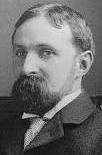
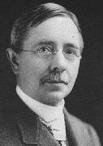
In 1890 Mercer County, Penn.-born Harvard U. historian Albert Bushnell Hart (1854-1943) pub. his first book Introduction to the Study of Federal Government (2nd ed. 1891); " One of the most striking political tendencies of the last century has been the development of federal government both in Europe and America... The United States of America has borne the strain of growth of territory and population, and is today the strongest and most firmly established of all federal governments that have ever existed." He follows with Why the South Was Defeated in the Civil War (1891), Epoch Maps Illustrating American History (1891), Epochs of American History (3 vols.) (1891-3); incl. "The Colonies, 1492-1750", by Dorchester, Mass.-born Reuben Gold Thwaites (1853-1913), "Formation of the Union, 1750-1829", by Hart, and "Division and Reunion, 1829-1889", by Woodrow Wilson. He follows with Practical Essays on American Government (1893), Studies in American Education (1895), Guide to the Study of American History (w/Edward Channing) (1897) (2nd ed. w/Edward Channing and Frederick Jackson Turner in 1912); "It is only within the last few years that American history has been regarded by educators either as a liberal study or as a serious subject deserving scientific treatment." He follows with The Foundations of American Foreign Policy (1901), Imagination in History (1909), and the Monroe Doctrine: An Interpretation (1916), which claims that the theory of the two spheres of Europe and America no longer holds, and that the Monroe Doctrine fails to justify recent Latin-Am. policy in the Caribbean Sea. In his later years Hart becomes "the Grand Old Man of American History", complete with a "patriarchal full beard and flowing moustaches." (Samuel Eliot Morison)

In 1890 West Point, N.Y.-born U.S. Navy Capt. (later Rear Adm.) Alfred Thayer Mahan (1840-1914) pub. The Influence of Sea Power Upon History, 1660-1783, about how British sea power made it #1, and how the U.S. can do it too, making a fan of Theodore Roosevelt, becoming the most influential book on naval strategy, adopted by most major navies, leading to the WWI naval arms race.

In 1890 Scottish U. of Aberdeen archeologist-scholar Sir William Mitchell Ramsay (1851-1939) pub. The Historical Geography of Asia Minor, based on his travels to Asia Minor, becoming the first to give a definite location to many of the cities mentioned in the Book of Acts, making him the #1 authority on New Testament geography. His wide travels in Asia Minor made him the recognized authority on all matters relating to the districts associated with St Paul's missionary journeys and on Christianity in the early Roman Empire. Greece and Turkey remained the focus of Ramsay's research for the remainder of his academic career. In 1883 Ramsay discovered the world's oldest complete piece of music, the Seikilos epitaph. In 1890 he discovered inscriptions in the unknown Anatolian language called Pisidian, a description of which he published in 1895. In the 1890s he he discovered two of the most important Phrygian monuments, the rock tombs "Aslantas" (Lion Stone) and "Yilantas" (Snake Stone), located close to the city center of Afyon. In 1915 he pub. The Bearing of Recent Discovery on the Trustworthiness of the New Testament (4th ed. 1920), containing the soundbytes: '"Further study... showed that the book (of Acts) could bear the most minute scrutiny as an authority for the facts of the Aegean world, and that it was written with such judgment, skill, art and perception of truth as to be a model of historical statement": "You may press the words of Luke in a degree beyond any other historian's". Starting out as a Tubingen School skeptic, he concluded that all thirteen New Testament letters ostensibly written by Paul were authentic.
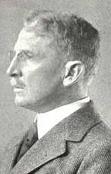

In 1891 Beardstown, Ill.-born U. of Mich. (later U. of Chicago) Am. Constitutional historian Andrew Cunningham McLaughlin (1861-1947) pub. his first book History of Higher Education in Michigan. He follows with Lewis Cass (1891), James Wilson in the Philadelphia Convention (1897), A History of the American Nation (1899) (8th ed. 1919), Sketch of Charles Pinckney's Plan for a Constitution, 1787 (1904), Confederation and Constitution, 1783-1789 (1905), A History of the United States for Schools (w/Claude Halstead Van Tyne) (1911), The Courts, the Constitution, and Parties: Studies in Constitutional History and Politics (1912), Cyclopedia of American Government (w/Albert Bushnell Hart) (3 vols.) (1914), and The Great War: Spectator to Participant (1917), with the opening paragraph: "When the war broke out in 1914 everyone in America was astonished and almost eveyone was quite unable to understand the fundamental causes of it. Many of were more than astonished; we were thoroughly out of patience and without immediate and deep sympathies for either side in the struggle. America had lived in isolation. Though our Government had been to some extent drawn into the swirl of world politics, we had no deep-laid scheme for exploitation of inferior races, no colonial ambitions, no determination to force our products on other nations and no fear of neighboring governments. We did not know that we were being jealously watched and that spies recorded our temper and our frailties." He follows with America and Britain (1919), based on lectures given in 1918 in the U.K. on the reasons for U.S. involvement in WWI, and Steps in the Development of American Democracy (1920). In 1932 he pub. The Foundations of American Constitutionalism, followed by his magnum opus A Constitutional History of the United States (1935) (Pulitzer Prize). In 1963 his Ann Arbor, Mich.-born historian daughter Constance McLaughlin Winsor Green (1897-1975) wins the Pulitzer Prize for History for Washington, Village and Capital, 1800-1878 (1962), which is followed by Washington, Capital City: 1879-1950 (1963).

In 1891 Bedford-born English Cambridge U. historian John Holland Rose (1855-1942) pub. his first book A Century of Continental History, 1780-1880 (2nd ed. 1906), followed by The Revolutionary and Napoleonic Era, 1789-1815 (1894, 1904, 1919, 1925), The Rise of Democracy (1897, 1904, 1912), The Rise and Growth of Democracy in Great Britain (1898), The Life of Napoleon I (2 vols.) (1902; 11th ed. 1935), Napoleonic Studies (1904, 1914), Select Despatches from the British Foreign Office Archives, Relating to the Formation of the Third Coalition Against France, 1804-1805 (1904), The Development of the European Nations (1905; 5th ed. 1915), Dumouriez and the Defence of England Against Napoleon (w/Alexander Meyrick Broadley) (1908), William Pitt and the National Revival (1911), William Pitt and the Great War (1911), The Personality of Napoleon (1912, 1930), Pitt and Napoleon: Essays and Letters (1912), The Origins of the War, 1871-1914 (1915), Nationality as a Factor in Modern History (1916), and Nationality in Modern History (1916). In 1919 he becomes the first Vere Harmsworth Professor of Naval History at Cambridge U. (until 1933). He follows with Naval History and National History (1919), Lord Hood and the Defence of Toulon (1922), The Indecisiveness of Modern War, and Other Essays (1927), The Mediterranean in the Ancient World (1933), and Man and the Sea: Stages in Maritime and Human Progress (1935).
In 1892 the Am. Jewish Historical Society is founded, becoming the oldest Ethnic History society to survive to modern times; it is followed by the Jewish Historical Society of England (1893), Polish Am. Historical Assoc. (1942), Italian Historical Society of America (1949), Society for Italian Historical Studies (1956), Am. Conference for Irish Studies (1960), Immigration and Ethnic History Society (originally Immigration History Group and Immigration History Society) (1965), and Am. Italian Historical Assoc. (1966).
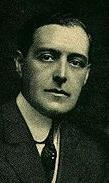
In 1893 Staten Island, N.Y.-born George Louis Beer (1872-1920), a member of the Imperial School that touts the economic benefits and efficiency of the British Empire pub. The Commercial Policy of England Toward the American Colonies, followed by British Colonial Policy, 1754-1765 (1907), Origins of the British Colonial System, 1578-1660 (1908), The Old Colonial System, 1660-1754 (2 vols.) (1912), about British imperial commercial policy, The English Speaking Peoples: Their Future Relations and Joint International Obligations (1917), and African Questions at the Paris Peace Conference (1923) (posth.). (ed. Louis Herbert Gray). After serving as a colonial expert on Pres. Wilson's Am. Commission of Inquiry in WWI, attending the Paris Peace Conference as chief of the colonial div. in 1918-19, becoming a member of the Mandates Commission of the League of Nations, and dir. of the Mandatory Section of the League's Secretariat in 1919, he dies in New York City on Mar. 15, 1920, leaving a bequest in his will to establish the George Louis Beer Prize in 1923 for best historical writing about Euro internat. history since 1895 by citizens or permanent residents of the U.S., becoming the Academy Award of book prizes for modern Euro historians; the first winner is Edward Mead Earle (1894-1954) for Turkey, the Great Powers, and the Bagdad Railway: A Study in Imperialism (1923).
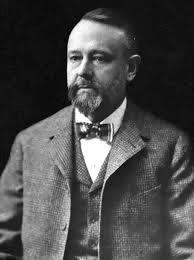
In 1893 after making his fortune in iron, coal, and steel and retiring to become a historian, Cleveland, Ohio-born James Ford Rhodes (1848-1927) begin pub. History of the United States from the Compromise of 1850 (9 vols.) (1893-1919); vol. 8 History of the Civil War, 1861-1865 (1918) wins the 2nd-ever Pulitzer Prize in history.

On July 12, 1893 Portage, Wisc.-born U. of Wisc. historian Frederick Jackson Turner (1861-1932) reads his thesis The Significance of the Frontier in American History to the Am. Historical Assoc. at the Chicago World's Fair, proposing the Frontier Thesis of Am. History, overturning the theory of Theodore Roosevelt that battles between trans-Appalachian pioneers and Indians forged the American race, claiming that the ever-expanding frontier shaped the Am. character and destiny, making the U.S. the unique democracy it is today, with the unlimited acreage of land free for the taking as long as Nature, wild Indians, Mexicans, etc. could be tamed, along with freedom from European nobility, church hierarchies, and landed gentry creating a people known for egalitarianism, lack of interest in high culture, and violence, as depicted in zillions of Hollywood Westerns, "breaking the bonds of custom, offering new experiences, calling out new institutions and activities", and creating a new type of citizen (if not race?), the racial-religious-cultural undertones only serving to spice it up?; after it is pub. and distributed, it takes Am. historians by storm, becoming an accepted theory by scholars until recent times when the PC police move in nibble at the fringes, criticizing its lack of mention of the role of women, waves of new immigrants and big cities on the frontier, etc.; "American democracy was born of no theorist's dream; it was not carried in the Susan Constant to Virginia, nor in the Mayflower to Plymouth. It came out of the American forest, and it gained new strength each time it touched a new frontier"; in the 1990s the Internet and World Wide attempt to extend the Great Am. Frontier to the entire world electronically? In 1910 he moves to Harvard U., teaching a gen. of students who take over Am. academia before leaving in 1922 to study at the Huntington Library in Los Angeles, Calif.; too bad, Turner never pub. a major book on the Frontier Thesis despite 40 years of research. In 1932 he pub. The Significance of Sections in American History (Pulitzer Prize).


On July 31, 1893 the Gaelic League (Conradh na Gaelige) is founded in Dublin, Ireland by Douglas Ross Hyde (1860-1949) and Eoin MacNeill (1867-1945) to promote Irish language, history, and culture, going on to pub. Gaelic Journal and spearhead the Gaelic Revival, which began with the formation of the Ulster Gaelic Society in 1830.

In 1893 after pub. his first political work (his Ph.D. dissertation at John Hopkins U.) Congressional Government: A Study in American Politics in 1885, advocating a parliamentary system to get around the pesky Congress and the cumbersome system of checks and balances, with the soundbyte: "How is the schoolmaster, the nation, to know which boy needs the whipping?", Progressive future U.S. Dem. pres. #28 (1913-21) Thomas Woodrow Wilson (1856-1924), pres. of Princeton U. in 1902-10 pub. the U.S. history hit Division and Reunion, 1829-1889, followed by A History of the American People (5 vols.) (1902), and Constitutional Government in the United States (1908), containing the prediction that the U.S. presidency "will be as big and as influential as the man who occupies it."
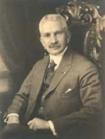
In 1894 Decorah, Iowa-born Stanford U. historian Ephraim Douglass Adams (1865-1930) pub. his first book The Control of the Purse in the United States Government, followed by The Influence of Grenville on Pitt's Foreign Policy, 1787-1798 (1904), British Interests and Activities in Texas, 1838-1846 (1910), Lord Ashburton and the Treaty of Washington (1912), The Power of Ideals in American History (1913), and Great Britain and the American Civil War (2 vols.) (1925).
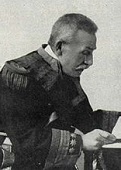
In 1895 former Spanish navy capt. Cesareo Fernando (Cesáreo Fernández) Duro (1830-1908) begins pub. History of the Spanish Armada from the Union of Castie and Aragon (9 vols.) (1895-1903), which becomes a std. work.


In 1895 London-born English atty.-historian Frederic William Maitland (1850-1906) and English jurist Sir Frederick Pollock (1845-1937) pub. The History of English Law Before the Time of Edward I, "the best book on English legal history ever published in the English language", making Maitland the "Modern Father of English Legal History"; Pollock goes on to revolutionize legal education, emphasizing principles rather than cases.
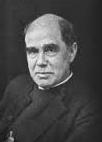
In 1895 London-born English historian Hastings Rashdall (1858-1924) pub. The Universities of Europe in the Middle Ages (2 vols.), which becomes a std. work, giving the first modern understanding of the medieval origins of universities as arising spontaneously "as a scholastic Guild, whether of Masters or Students... without any express authorisation of King, Pope, prince or Prelate"; the first univ. to get official recognition was the U. of Paris in 1231 in the papal bull Parens Scientiarum. He then turns theologian and philosopher, expounding the theory of Ideal Utilitarianism.
On Sept. 29, 1896 (Michaelmas) the first Ford Lecture in British History at Oxford U., named after benefactor James Ford (1779-1851) is delivered by English historian Samuel Rawson Gardiner (1829-1902).
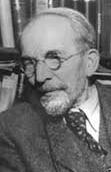
In 1896 Salzwedel, Prussia-born U. of Strasbourg historian Friedrich Meinecke (1862-1954) becomes ed. of Historische Zeitschrift (until 1935), followed by archivist at the German State Archives in 1887-1901. In 1908 he pub. Cosmopolitanism and the National State (Weltburgertum und Nationalstaat), tracing the transition of Germany from cosmopolitanism in the 18th cent. to nationalism in the 19th cent., focusing on the relationship between Germany and Prussia, integrating the history of ideas and history of politics, becoming influential among historians, who consider him a liberal nationalist, and the teacher of future Weimar Repub. chancellor (1930-2) Heinrich Bruening. In 1918 after calling for removal of Polish landowners from Prussia in WWI and German colonization of Courtland after the expulsion of its Lithuanian pop. ("the raw bestiality of the south Slavs"), he becomes a co-founder of the German Dem. Party. In 1928 he becomes chmn. of the Historische Reichskommission, playing footsie with the Nazis because of his love of their anti-Semitic laws until they remove him in 1935, which doesn't stop him from approving of the 1939 Nazi invasion of Poland. In 1946 he pub. The German Catastrophe: Contemplations and Recollections (Die Deutsche Katastrophe: Betrachtungen und Erinnerungen), which tries to explain the success of the Nazis as the result of Prussian militarism, rapid industrialization, the weakness of the middle class, and a series of accidents that helped Hitler, calling National Socialism an "alien force occupying Germany" while retaining his anti-Semitism and blaming Jews for the fall of liberalism as well as his own troubles. In 1948 he becomes a co-founder of the Free U. of Berlin.

In 1896 Homer, N.Y.-born Andrew Dickson White (1832-1918), co-founder of Cornell U. ("an Asylum for Science") pub. The History of the Warfare of Science with Theology in Christendom (2 vols.), based on his 1869 lecture "The Battle-Fields of Science", which wins the argument with the public; "In all modern history, interference with science in the supposed interest of religion, no matter how conscientious such interference may have been, has resulted in the direst evils both to religion and to science, and invariably; and, on the other hand, all untrammelled scientific investigation, no matter how dangerous to religion some of its stages may have seemed for the time to be, has invariably resulted in the highest good both of religion and of science."
In 1896 the Am. Historical Assoc. (AHA) establishes the annual Justin Winsor Prize, named after co-founder Justin Winsor (1831-96) for new authors of history in the Western Hemisphere; the first award goes to Herman V. Ames for "The Proposed Amendments to the Constitution of the United States"; it goes biennial in 1908, and is discontinued in 1938; since Winsor was pres. of the Am. Library Assoc. (ALA), it establishes the Justin Winsor Prize in 1978 for the best library history essay; the first award goes to Dennis Thomison for "The Private Wars of Chicago's Big Bill Thompson".
On Mar. 2, 1897 the Tex. State Historical Assoc. is founded by 250 people incl. U.S. Dem. Tex. Sen. (1887-91) John Henninger Reagan at the U. of Tex. in Austin.
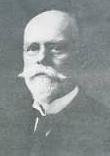
In 1897 Plainfield, N.J.-born Columbia U. historian-political scientist William Archibald Dunning (1857-1922) pub. his dissertation The Constitution of the United States in Civil War and Reconstruction, 1860-1867, followed by Essays on the Civil War and Reconstruction and Related Topics (1897) (2nd ed. 1904), which explains the legal basis for the destruction of slavery, which he opposes, becoming the first major academic studies of the Reconstruction era. In 1902 he begins pub. History of Political Theories, Ancient and Medieval (3 vols.) (1902-20), incl. "From Luther to Montesquieu" (1905), and "From Rousseau to Spencer" (1920). In 1907 he pub. Reconstruction, Political and Economic, 1865-1877, which disses Reconstruction and takes the side of white Southerners with "meticulous and thorough research", founding the Dunning School, which promotes the "Gone With the Wind" Tragic Legend that "condemned Reconstruction as a conspiracy by vindictive radical Republicans to subjugate southern whites at bayonet point, using federal troops to prop up corrupt state regimes led by an unholy trinity of carpetbaggers, scalawags, and freedmen" (Mark L. Bradley), dominating U.S. academia through the 1930s, after which Howard K. Beale, Eric Foner et al. search for cracks in their castle.
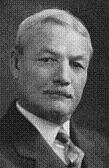
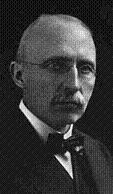
In 1898 Wethersfield, Conn.-born Bryn Mawr College (later John Hopkins U. and Yale U.) historian ("Dean of American Colonial Historians") Charles McLean Andrews (1863-1943) and Canton, Maine-born Columbia U. historian Herbert Levi Osgood (1855-1918) pub. articles in the annual report of the Am. Historical Assoc. (AHA) which found the Imperial School of Am. Historians, who deemphasize the tyranny of the hated Brits and emphasize the efficiency and civilizing influence of the White-Is-Right British Empire, blaming the Am. Rev. on failure to keep up with changes in Am. society. In 1934 Andrews begins pub. his magnum opus The Colonial Period of American History (4 vols.) (1934-8) (Pulitzer Prize).
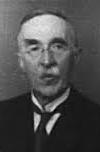
In 1898 British Liberal MP (1906-10) and wealthy British historian George Peabody Gooch (1873-1968) pub. English Democratic Ideas in the Seventeenth Century (w/Harold Joseph Laski) (2nd ed. 1927, 3rd ed. 1959), followed by History of Our Time, 1885-1911 (1911), and History and Historians in the Nineteenth Century (1913) (2nd ed. 1952, 3rd ed. 1959). After WWI, he becomes an influential historian of Europe, critical of British policy, pub. The Races of Austria-Hungary (1917), Germany and the French Revolution (1920), Life of Lord Courtney, A History of Modern Europe, 1878-1919 (1923), Franco-German Relations, 1871-1914 (1923), Germany (1926), Recent Revelations of European Diplomacy (1927), Frederick the Great: The Ruler, the Writer, the Man (1947), Studies in German History (1948), Maria Theresa: And Other Studies (1951), Under Six Reigns (autobio.) (1958), and Catherine the Great: And Other Studies (1966).

In 1898 Bloomington, Ill.-born Columbia U. (1895-1919) historian James Harvey Robinson (1863-1936), proponent of New History, which tries to integrate the social sciences pub. his first book Petrarch, the First Modern Scholar and Man of Letters, followed by An Introduction to the History of Western Europe (1902), "The first textbook on European history which was reliable in scholarship, lively in tone, and penetrating in its interpretations. It revolutionized the teaching of European history and put a whole generation of history students and history teachers in debt to the author." (Harry Elmer Barnes) He follows with The Fall of Rome: Some Current Misapprehensions in Regard to the Process of Dissolution of the Roman Empire (1907), The New History: Essays Illustrating the Modern Historical Outlook (1912), and Outlines of European History (w/Charles Austin Beard and James Henry Breasted) (1914). In May 1919 after his friend Charles Austin Beard resigned in 1917, triggering a string of resignations over academic freedom, he resigns from Columbia U. and co-founds the New School for Social Research AKA The New School in Greenwich Village, N.Y. In 1920 he pub. History of Europe: Ancient and Medieval (w/James Henry Breasted), followed by History of Europe: Our Own Times: The Eighteenth and Nineteenth Centuries: The Opening of the Twentieth Century and the World War (w/Charles Austin Beard) (1921). In 1921 he pub. the bestseller The Mind in the Making: The Relation of Intelligence to Social Reform, with an intro. by H.G. Wells (rev. ed. 1923), which argues for freedom of thought on the ground that history has proved that it is essential to progress; "If some magical transformation could be produced in men's ways of looking at themselves and their fellows, no inconsiderable part of the evils which now afflict society would vanish away or remedy themselves automatically." (opening line) In 1923 he pub. The Humanizing of Knowledge, followed by The Ordeal of Civilization: A Sketch of the Development and World-Wide Diffusion of Our Modern-Day Institutions and Ideas (1926), Civilization (1929), The Story of Our Civilization (1934), and The Human Comedy: As Devised and Directed by Mankind Itself (1937) (posth.), with an intro. by Harry Elmer Barnes; "It is a poor technic when attempting to convert one's neighbor to attack his beliefs directly, especially those of the sacred variety. We may flatter outselves that we are undermining them by our potent reasoning only to find that we have shored them up so that they are firmer than ever. Often history will work where nothing else will. It very gently modifies one's attitude. Refutations are weak compared with its mild but potent operation. To become historically-minded is to be grown-up"; "It is true that biologists have, many of them, given up what they call 'Darwinism'; they have surrendered Spencer's notion of the hereditary transmission of acquired characters, and they even use the word 'evolution' timidly and with many reservations. But this does not mean that they have any doubts that mankind is a species of animal, sprung in some mysterious and as yet unexplained manner from extinct wild creatures of the forests and plains." "In its amplest meaning history includes every trace and vestige of everything that man has done or thought since first he appeared on the earth." "History... may be regarded as an artificial extension and broadening of our memories and may be used to overcome the natural bewilderment of all unfamiliar situations." "We are incredibly heedless in the formation of our beliefs, but find ourselves filled with an illicit passion for them when anyone proposes to rob us of their companionship."

In 1899 after his father dies and his family moves to England, causing him to go English and get a history degree from Balliol College, Oxford U. in 1895, stating his goal as rewriting the Roman Catholic history of France and England, Roman Catholic historian Joseph Hilaire Pierre René Belloc (1870-1953) pub. his first history book Danton: A Study, followed by Paris, Its Sites, Monuments, and History (w/Maria Hornor Lansdale) (1898), Paris (1900), Robespierre (1901), Avril: Essays on the French Renaissance (1904), The Historic Thames (1907), Marie Antoinette (1909), The French Revolution (1911), British Battles (6 vols.) (1911-13), The History of England (w/John Lingard) (11 vols.) (1912), Warfare in England (1913), The Bookof the Bayeux Tapestry (1914), A General Sketch of the European War (2 vols.) (1915-16), The Last Days of the French Monarchy (1916), Europe and the Faith (1920), The House of Commons and Monarchy (1920), The Jews (1922) (2nd ed. 1928) (3rd ed. 1937), The Mercy of Allah (1922), The French Revolution (1925), The Campaign of 1812 the Retreat from Moscow (1925), A Companion to Mr. Wells's "Outline of History (1926), The Catholic Church and History (1926), The Emerald of Catherine the Great (1926), Miniatures of French History (1926), Mrs. Markham's New History of England (1926), James II (1928), Richelieu (1929), Survivals and New Arrivals: The Old and New Enemies of the Catholic Church (1929), Wolsey (1930), Joan of Arc (1930), Pauline - Favorite Sister of Napoleon (1930), Cranmer (1931), Napoleon (1932), Charles the First, King of England (1933), William the Conqueror (1933), The Tactics and Strategy of the Great Duke of Marlborough (1933), How We Got the Bible (1934), A Shorter History of England (1934), Milton (1935), Characters of the Reformation (1936), The Battleground: Syria and Palestine, The Seedplot of Religion (1936), The Crisis of Our Civilisation (1937), and An Essay on the Nature of Contemporary England (What England Really Is) (1937). In 1937 he pub. The Crusades: The World's Debate, warning how Protestantism, the Englightenment, Communism et al. have softened the West up for a Muslim comeback, with the soundbyte: "The story must not be neglected by any modern, who may think in error that the East has finally fallen before the West, that Islam is now enslaved - to our political and economic power at any rate if not to our philosophy. It is not so. Islam essentially survives, and Islam would not have survived had the Crusade made good its hold upon the essential point of Damascus. Islam survives. Its religion is intact; therefore its material strength may return. Our religion is in peril, and who can be confident in the continued skill, let alone the continued obedience, of those who make and work our machines?... There is with us a complete chaos in religious doctrine... We worship ourselves, we worship the nation; or we worship (some few of us) a particular economic arrangement believed to be the satisfaction of social justice... Islam has not suffered this spiritual decline; and in the contrast between religious certitudes still strong throughout the Mohammedan world lies our peril." In 1938 he pub. Monarchy: A Study of Louis XIV, The Church and Socialism, and The Great Heresies, containing the soundbytes: "Islam is apparently unconvertible. The missionary efforts made by great Catholic orders which have been occupied in trying to turn Mohammedans into Christians for nearly 400 years have everywhere wholly failed. We have in some places driven the Mohammedan master out and freed his Christian subjects from Mohammedan control, but we have had hardly any effect in converting individual Mohammedans"; "Will not perhaps the temporal power of Islam return and with it the menace of an armed Mohammedan world, which will shake off the domination of Europeans - still nominally Christian - and reappear as the prime enemy of our civilization? The future always comes as a surprise, but political wisdom consists in attempting at least some partial judgment of what that surprise may be. And for my part I cannot but believe that a main unexpected thing of the future is the return of Islam"; "The Mohammedan culture happens to have fallen back in material applications; there is no reason whatever why it should not learn its new lesson and become our equal in all those temporal things which now alone give us our superiority over it - whereas in Faith we have fallen inferior to it"; "There is no reason why its recent inferiority in mechanical construction, whether military or civilian, should continue indefinitely. Even a slight accession of material power would make the further control of Islam by an alien culture difficult. A little more and there will cease that which our time has taken for granted, the physical domination of Islam by the disintegrated Christendom we know." In 1939 he pub. The Last Rally: A Story of Charles II, followed by Elizabeth, Creature of Circumstance (Elizabethan Commentary) (1942).

In 1899 future British PM (1940-5, 1951-5) Sir Winston Leonard Spencer-Churchill (1874-1965) pub. The River War: An Historical Account of the Reconquest of the Soudan (2 vols.), containing a famous soundbyte about Islam: "How dreadful are the curses which Mohammedanism lays on its votaries! Besides the fanatical frenzy, which is as dangerous in a man as hydrophobia in a dog, there is this fearful fatalistic apathy. The effects are apparent in many countries. Improvident habits, slovenly systems of agriculture, sluggish methods of commerce, and insecurity of property exist wherever the followers of the Prophet rule or live. A degraded sensualism deprives this life of its grace and refinement; the next of its dignity and sanctity. The fact that in Mohammedan law every woman must belong to some man as his absolute property, either as a child, a wife, or a concubine, must delay the final extinction of slavery until the faith of Islam has ceased to be a great power among men. Individual Moslems may show splendid qualities - but the influence of the religion paralyses the social development of those who follow it. No stronger retrograde force exists in the world. Far from being moribund, Mohammedanism is a militant and proselytizing faith. It has already spread throughout Central Africa, raising fearless warriors at every step; and were it not that Christianity is sheltered in the strong arms of science, the science against which it had vainly struggled, the civilization of modern Europe might fall, as fell the civilization of ancient Rome." In 1923-31 he pub. The World Crisis: 1911-1918 (5 vols.), which defends his Gallipoli strategy; "The Great War differed from all ancient wars in the immense power of the combatants and their fearful agencies of destruction, and from all modern wars in the utter ruthlessness with which it was fought." In 1948-53 he pub. The Second World War (6 vols.), which earns him the 1953 Nobel Lit. Prize, and is used as the basis of the 1973 BBC-TV series The World at War, narrated by Sir Laurence Olivier.
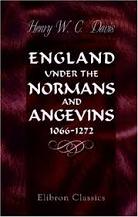
In 1899 Ebley-born English Oxford U. historian Henry William Carless Davis (1874-1928) pub. his first book Balliol College, followed by Charlemagne (Charles the Great): The Hero of Two Nations (1900), and The Anarchy of Stephen's Reign (1903) (English Historical Review), which proposes the Waste Theory of wider devastation during the Anarchy than previously thought. In 1905 he pub. England Under the Normans and Angevins, 1066-1272 (10th ed. 1930), which becomes a std. work. In 1911 he pub. Medieval Europe, followed by The Political Thought of Henrich von Treitschke (1914). In 1919 he becomes ed. of The Dictionary of National Biography.
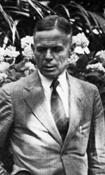
In 1899 Clayton, N.C.-born U. of Chicago historian (friend and backer of Woodrow Wilson) William Edward Dodd (1869-1940) pub. his first book (dissertation at the U. of Leipzig) Thomas Jefferson's Return to Politics, 1796 (Thomas Jeffersons Ruckkehr zur Politik 1796), followed by The Life of Nathaniel Macon (1903), Jefferson Davis (1907), Statesmen of the Old South; or, From Radicalism to Conservative Revolt (1911), about Thomas Jefferson's reliance on a political alliance of the South with the West to gain the presidency, after which power shifted from Va. and its Jeffersonian liberalism to S.C. and its political capitalism and cotton capitalism. He follows with Expansion and Conflict, 1828-1865 (1915), vol. 3 of "Riverside History of the United States"; "The primary assumption of the author is that the people of this country did not compose a nation until after the close of the Civil War in 1865. Of scarcely less importance is the fact that the decisive motive behind the period under discussion was sectional advantage or even sectional aggrandizement." He follows with The Cotton Kingdom: A Chronicle of the Old South (1919), how the cotton plantation of the lower South dominated in the years 1840-1860, Woodrow Wilson and His Work (1920), which is highly pro-Wilson and pro-Progressivism, The Public Papers of Woodrow Wilson (w/Ray Stannard Baker) (6 vols.) (1925-1927), Lincoln and Lee: Comparison and Contrast of the Two Greatest Leaders in the War Between the States: The Narrow and Accidental Margins of Success (1928), and The Old South: Struggles for Democracy (1937). Meanwhile in 1933-37 he becomes U.S. ambassador to Germany, playing footsie with the Nazis then resigning in disgust at his inability to change them or get FDR to do more against them, later being called "the last pure Jeffersonian to be found in America" (Max Lerner) and "a babe-in-the-woods in the dark forests of Berlin" (Charles Callan Tansill).
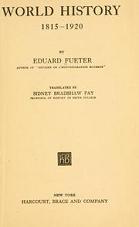
In 1899 Basel-born Swiss historian Eduard Fueter Sr. (1876-1928) pub. his dissertation The Proportion of Confederation in the Election of Charles V (Der Anteil der Eidgenossenschaft an der Wahl Karls V) (Basel), followed by Religion and Church in England in the Fifteenth Century (Religion und Kirche in England im fünfzehnten Jahrhundert) (Tubingen) (1904), and History of the New Historiography (Geschichte der Neueren Historiographie) (Munich) (1911), which becomes a std. work, making him a Euro history star. He follows with History of the European State System from 1492-1559 (Geschichte des europäischen Staatensystems von 1492–1559) (Munich) (1919), and World History, 1815-1920 (Weltgeschichte der Letzten Hundert Jahre, 1815-1920) (Zurich) (1921) (English tr. by Sidney Bradshaw Fay, 1922), the European colonization of the world as seen from an allegedly impartial neutral Swiss POV; "No event of the past century has exercised so powerful an influence upon the future of mankind, and not least on the European states themselves, as this Europeanization of the world." He follows with Switzerland Since 1848: History, Politics, Economics (Die Schweiz seit 1848. Geschichte, Politik, Wirtschaft) (Zurich) (1928).

In 1899 Verviers, Liege-born Belgium historian Henri Pirenne (1862-1935) begin pub. History of Belgium (Histoire de Belgique) (7 vols.) (1899-1932), which attempts to prove that Belgium isn't a fake country made up ex-post facto in 1830, but is based on a natural unity of Flemings and Walloons that can be traced back to Roman times, making him a nat. hero, even though the theory turns out to be moose hockey. In 1909 he pub. The Formation and Constitution of the Burgundian State in the Fifteenth and Sixteenth Centuries. In 1910 he pub. Belgian Democracy, Its Early History (2nd ed. 1915). In 1914 he pub. The Stages in the Social History of Capitalism. On Aug. 24, 1916 after joining the Belgian resistance in WWI he is imprisoned in Crefeld, followed by Holzminden and Jena, using the experience to learn Russia and write a history of Europe. In 1927 he pub. Medieval Cities: Their Origins and the Revival of Trade, which traces the growth of medieval cities from the 10th-12th cents., attributing their origins to the revival of trade by the middle and merchant classes; first proposes the Pirenne Thesis, that it was the closing of Mediterranean trade by the Muslim conquest in the 7th cent. that destroyed Roman civilization, not the pesky Goths in the 5th cent. In 1936 his son posth. pub. History of Europe: From the End of the Roman World in the West to the Beginnings of the Western States (2 vols.), written in a WWI POW camp in Jena from memory, giving the big picture not a detailed chronology. In 1936 he posth. pub. Economic and Social History of Medieval Europe. In 1937 he posth. pub. Mohammed and Charlemagne, which develops his Pirenne Thesis that ancient Roman civilization fell into the Dark Ages when the Great Muslim Jihad closed the Mediterranean to trade in the 7th cent., not the pesky Goths in the 5th cent., after which Europe began to reclaim it in the 10th-12th cents., opening sea routes to the Orient, permitting the development of the merchant and middle classes and cities; "Without Islam, the Frankish Empire would have probably never existed, and Charlemagne, without Muhammad, would be inconceivable."
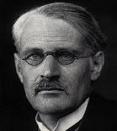
In 1899 Stratford-upon-Avon, Warwickshire-born Whig-Liberal historian G.M. (George Macaulay) Trevelyan (1876-1962), great-nephew of Thomas Babington Macaulay and student of Lord John Acton at Trinity College, Cambridge U., known for his privileged background, weak eyesight, and for abandoning dispassionate analysis for partisan analysis that appeals to the masses, making him "probably the most widely read historian in the world; perhaps in the history of the world" pub. his first book England in the Age of Wycliffe, 1368-1520, which concentrates on 1377-85 incl. the the 1381 Peasant Uprising and the history of the Lollards from 1382 to the Reformation, siding bigtime against the Church; "The Papal Inquisition was not a mere name, but a terrible and active instrument of evil"; "The fate which Wycliffe feared for his country actually overtook in later years Italy, Spain, and to some degree France, where the clergy seized the helm of government and crushed underfoot political life and individual liberty"; "It is pleasant to turn from dreary annals of political contest to a thing more vital, the rise among the English of an indigenous Protestantism." (Ch. 8) He follows with England Under the Stuarts (1904), covering 1603-1714 incl. the English Civil War, the Restoration, and the Glorious Rev, portraying a steady march towards liberty and toleration. He follows with The Garibaldi Trilogy (1907-11), incl. Garibaldi's Defence of the Roman Republic, 1848-9 (1907), Garibaldi and the Thousand (1909), and Garibaldi and the Making of Italy (1911); "Without bias, I should never have written them at all. For I was moved to write them by a poetical sympathy with the passions of the Italian patriots of the period, which I retrospectively shared." He follows with Clio, A Muse and Other Essays (1913), Scenes from Italy's War (1919), British History in the Nineteenth Century, 1782-1901 (1922), Manin and the Venetian Revolution of 1848 (1923), and History of England (1926) (3rd ed. 1945, 4th ed. 1953). In 1927 he succeeds J.B. Bury as Regius Professor of Modern History at Cambridge U. (until 1943). England Under Queen Anne (3 vols.) (1930-4), his magnum opus, which picks up where Thomas Macaulay's "History of England" leaves off, incl. Blenheim (1930), Ramillies and the Union with Scotland (1932), The Peace and the Protestant Succession (1934). He follows with The English Revolution, 1688-1698 (1938), which becomes the std. work, portraying James II as a tyrant who obstinacy and stupidity led to the Glorious Rev.; A Shortened History of England (1942), and English Social History: A Survey of Six Centuries: Chaucer to Queen Victoria (1942), pub. during Britain's darkest days in WWII, a complementary volume to "History of England", painting a nostalgic picture of England's glorious past as the beacon of freedom and proress, filled with patriotic emotion, becoming his biggest hit and last major history work; too bad, after living through WWI and WWII and seeing Britain go down the toilet, Trevelyan dies in a state of denial, and his works go out of favor (until ?). "During the first half of the twentieth century Trevelyan was the most famous, the most honored, the most influential and the most widely read historian of his generation. He was a scion of the greatest historical dynasty that (Britain) has ever produced. He knew and corresponded with many of the greatest figures of his time... For fifty years, Trevelyan acted as a public moralist, public teacher and public benefactor, wielding unchallenged cultural authority among the governing and the educated classes of his day." (David Cannadine, "G.M. Trevelyan: A Life in History", 1992) "A little man often cast a long shadow"; "It is not man's evolution but his attainment that is the greatest lesson of the past and the highest theme of history"; "Let the science and research of the historian find the fact and let his imagination and art make clear its significance"; "Every true history must force us to remember that the past was once as real as the present and as uncertain as the future"; "Since history has no properly scientific value, its only purpose is educative. And if historians neglect to educate the public, if they fail to interest it intelligently in the past, then all their historical learning is valueless except in so far as it educates themselves."
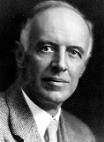
In 1902 La Grange, Ga.-born socioeconomic historian Ulrich Bonnell Phillips (1877-1934), the first major historian of the Am. South and Southern slavery pub. his dissertation Georgia and State Rights: A Study of the Political History of Georgia from the Revolution to the Civil War, with Particular Regard to Federal Relations (Justin Winsor Prize), followed by The Economic Cost of Slaveholding in the Cotton Belt (1905), The Origin and Growth of the Southern Black Belts (1906), A History of Transportation in the Eastern Cotton Belt to 1860 (1908), and Plantation and Frontier Documents, 1649–1863; Illustrative of Industrial History in the Colonial and Antebellum South: Collected from MSS. and Other Rare Sources (2 vols.) (1909), The Life of Robert Toombs (1913). In 1918 he pub. American Negro Slavery; a Survey of the Supply, Employment, and Control of Negro Labor, as Determined by the Plantation Regime, the first systematic analysis of Southern slavery, comparing it the West Indies, focusing on the large plantations and their masters and slaves, emphasizing the paternalistic treatment of slaves and how the masters helped civilize them (although they were not released after they graduated from the civilization school), and ignoring the variation in treatment from plantation to plantation incl. atrocities, portraying the relationship as characterized by "propriety, proportion, and cooperation", with blacks "by no means devoid of influence", concluding that the whole system was "shaped by mutual requirements, concessions, and understandings, producing reciprocal codes of conventional morality." He follows with Life and Labor in the Old South (1929), which details the history of large Southern plantations and showed how they reached their geographical limits about 1860, but although they produced great wealth they were an economic dead end, allowing the North to pass the South by in the Industrial Rev., and would probably have faded away like in Brazil without a civil war, which he considers a waste; too bad, the slave system gives whites social status and political power, which they wouldn't surrender, and slavery had a dual role as "an economic cancer but a vital mode of racial control". In 1928 he pub. The Central Theme of Southern History, which is the desire to keep the South "a white man's country", failing to mention that that was also the theme of the North? In 1939 he posth. pub. The Course of the South to Secession: An Interpretation (1939), followed by Seeing the New South: Race and Place in the Photographs of Ulrich Bonnell Phillips (ed. Patricia Bellis Bixel and John David Smith) (2013).
In 1902 Am. physician Henry Smith Williams (1863-1943) pub. the Western Eurocentric The Historians' History of the World (25 vols.); "A comprehensive narrative of the rise and development of nations as recorded by over two thousand of the great writers of all ages"; 2nd ed. 1907.; two more vols. are later pub. covering WWI; Am. businessman Amos Urban Shirk (1890-1956) becomes a celeb by reading the whole thing in two years, and the 1911 Encyclopaedia Britannica (11th ed.) in 4.5 years.
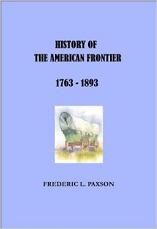
In 1903 Philly-born historian Frederic Logan Paxson (1877-1948) pub. The Independence of the South American Republics: A Study in Recognition and Foreign Policy, followed by The Last American Frontier (1910), The Civil War (1911), portraying it as a war of civilizations, The Rise of Sport (Mississippi Valley Historical Review), Sept. 1917, and War Cyclopedia: A Handbook for Ready Reference on the Great War (1918), inventing the term "historical engineering" for the revision of history textbooks for the govt. by "explaining the issues of the war that we might the better win it." He follows with The New Nation (1919), History of the American Frontier, 1763-1893 (1924) (Pulitzer Prize), becoming the first Am. historian to portray the Am. Rev. from both sides, The Great Demobilization (Am. Historical Assoc. Pres. Address), Dec. 29, 1938, America at War, 1917-1918 (1939), and Postwar Years, Normalcy, 1918-1923 (1948).
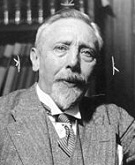
In 1904 Oldenburg, Germany-born historian Hermann Oncken (1869-1945) pub. his first book Lassalle, Between Marx and Bismarck, followed by The German Reich and the Origin of the Great War (2 vols. (1927); he goes on to become a top historian of the history of historical and political thought in the 19th cent. in Nazi Germany until the regime forces him to retire in 1935; his students. incl. Gerhard Ritter, Ernst Simon, George W.F. Hallgarten, Walter Frank, Michael Freund, Paul Kluke, Margret Boveri, and Felix Hirsch.

In 1904 Canton, Maine-born historian Herbert Levi Osgood (1855-1918) begins pub. The American Colonies in the Seventeenth Century (3 vols.) (1904-07); he dies after finishing The American Colonies in the Eighteenth Century (4 vols.) (1924) (posth.).

In 1905 Rockford, Ill.-born U. of Chicago. historian-archeologist (Egyptologist) James Henry Breasted (1865-1935) pub. his first book A History of Egypt from the Earliest Times to the Persian Conquest, getting him the first chair in Egyptology and Oriental History in the U.S. at the U. of Chicago. He follows with Ancient Records of Egypt: Historical Documents from the Earliest Times to the Persian Conquest, collected, edited, and translated, with Commentary (2 vols.) (1906-7), A History of the Ancient Egyptians (1908), Development of Religion and Thought in Ancient Egypt: Lectures Delivered on the Morse Foundation at Union Theological Seminary (1912), Ancient Times: A History of the Early World (1916) (2nd ed. 1935), and Survey of the Ancient World (1919). In 1919 he founds the Oriental Inst. at the U. of Chicago. He follows with Oriental Forerunners of Byzantine Painting: First-Century Wall Paintings from the Fortress of Dura on the Middle Euphrates (1924), The Conquest of Civilization (1926), and The Dawn of Conscience (1933), which makes a fan of Sigmund Freud, and starts with the soundbyte: "It has now become a sinister commonplace in the life of the post-war generation that man has never had any hesitation in applying his increasing mechanical power to the destruction of his own kind. The World War has now demonstrated the appalling possibilities of man's mechanical power of destruction. The only force that can successfully oppose it is the human conscience - something which the younger generation is accustomed to regard as a fixed group of outworn scruples. Everyone knows that man's amazing mechanical power is the product of a long evolution, but it is not commonly realized that this is also true of the social force which we call conscience - although with this important difference: as the oldest known implement-making creature man has been fashioning destructive weapons for possibly a million years, whereas conscience emerged as a social force less than five thousand years ago. One development has far outrun the other; because one is old, while the other has hardly begun and still has infinite possibilities before it. May we not consciously set our hands to the task of further developing this new-born conscience until it becomes a manifestation of good will, strong enough to throttle the surviving savage in us? That task should surely be far less difficult than the one our savage ancestors actually achieved: the creation of a conscience in a world where, in the beginning, none existed." In 1985 the Am. Historical Assoc. (AHA) establishes the James Henry Breasted Prize for the best book in English covering the period of history prior to 1000 C.E.

In 1905 Ledbury, Herefordshire-born poet-novelist-playwright-writer John Edward Masefield (1878-1967) pub. Sea Life in Nelson's Time. In 1916 he pub. Gallipoli. In 1917 he pub. The Old Front Line; "The description of the old front line, as it was when the Battle of the Somme began, may some day be of use." In 1919 he pub. The Battle of the Somme. In 1941 he pub. The Nine Days Wonder: The Operation Dynamo; the evacuation of Dunkirk.
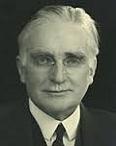

In 1905 British historian of diplomacy Harold William Vazeille Temperley (1879-1939) pub. his first book The Life of Canning, followed by Frederic the Great and Kaiser Joseph: An Episode of War and Diplomacy in the Eighteenth Century (1915), History of Serbia (1917), A History of the Peace Conference of Paris (6 vols.) (1920-24), The Foreign Policy of Canning, 1822-1827 (1925). In 1923 he founds The Cambridge Historical Journal at Cambridge U., which in 1958 drops Cambridge from the title. In 1926 he begins pub. British Documents on the Origins of the War, 1898-1914 (11 vols.) (1926-38) with British Liberal MP (1906-10) and wealthy British historian George Peabody Gooch (1873-1968) (known for his pro-German views), which covers the abandonment of the policy of "splendid isolation" in 1898 to the declaration of war against Germany on Aug. 4, 1914. He follows with Europe in the Nineteenth Century, 1789-1914 (1927) (w/A.J. Grant), England and the Near East: The Crimea (1936), The Foundation of British Foreign Policy (1938) (w/Lillian Margery Penson), A Century of Diplomatic Blue Books, 1814-1914 (1938) (w/Lillian Margery Penson). He leaves An Historian in Peace and War: The Diaries of Harold Temperley, 1916-1939 (2014) (ed. T.G. Otte).
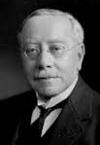
In 1905 after churning out bios. for the Dictionary of Nat. Biography at the U. of Wales in Lampeter, then becoming prof. of history at Manchester U. (Owens College in Manchester) in 1890, London-born English historian Thomas Frederick Tout (1855-1929) pub. The Political History of England, 1216-1377, followed by The Place of the Reign of Edward II in English History (1914) (2nd ed. 1926). In 1920 he begins pub. Chapters in the Administrative History of Mediaeval England (6 vols.) (1920-?). Meanwhile he tries to professionalize the undergrad history program at Manchester U. , founding the Manchester History School, emphasizing training in research, horrifying Oxford U. and Cambridge U., despite support by Charles Harding Firth at Oxford U., after which they adopt the program only after other univs. do it.
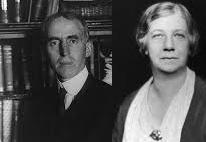
In Oct. 1906 Knightstown, Ind.-born Progressive Columbia U. historian Charles Austin Beard (1874-1948) pub. An Introduction to the English Historians, reviewing English history through the eyes of the historians while bringing out their disagreements and digging up materials that are hard to find for students, becoming a novel approach, making him an academic star, switching from the history dept. to a new chair in politics and govt. In 1913 he pub. An Economic Interpretation of the Constitution of the United States, how it it was all about economics and material self-interest not philosophical principles, with the class struggle being between agrarians and businessmen, making a fan of leftist historians despite denunciations by politicians and academics, founding the Progressive School of Am. Historiography; on Oct. 8, 1917 he resigns from Columbia U. for having trustees who are "reactionary and visionless in politics, narrow and medieval in religion", claiming to support "the just war on the German Empire"; too bad, the Red Scare of 1919 causes him to be blacklisted from academia, but he goes on to live nicely on royalties from his books while running a dairy farm in rural Conn. with his like-minded historian wife Mary that becomes a Mecca to academics. In 1921 he and his feminist wife (1900-) Mary Ritter Beard (1876-1958) pub. History of the United States (2 vols.). In 1927 they pub. The Rise of American Civilization, playing their hand of class struggle being the true motive; too bad, the Cold War era causes his rep to tank, after which historian Richard Hofstater concludes in 1968: "Today Beard's reputation stands like an imposing ruin in the landscape of American historiography. What was once the grandest house in the province is now a ravaged survival."

In 1906 Kaysersberg, Alsace-Lorraine-born French philosopher-theologian-physician-organist Albert Schweitzer (1875-1965) pub. The Quest of the Historical Jesus: A Critical Study of Its Progress from Reimarus to Wrede (Geschichte der Leben-Jesu-Forschung); English trans. pub. in 1910; 2nd ed. in 1913; how the "real" Jesus was all about "late Jewish eschatology", believing that his ministry would bring about the end of history in a short time; the 2nd. ed. tries to rebut those who claim that he never lived; becomes a std. work, stopping work on the historical Jesus for decades as a sub-disciple of New Testament studies; "He comes to us as One unknown, without a name, as of old, by the lake-side."

In 1907 Wiesbaden-Biebrich-born German historian-psychologist-sociologist-philosopher Wilhelm Dilthey (1833-1911) (who holds Hegel's chair in philosophy at the U. of Berlin) pub. The Essence of Philosophy (Das Wesen der Philosophie), which expounds his Romantic hermeneutics that considers understanding as the key for the human sciences (human expression of life) in contrast with the natural sciences (Nature), influencing Existentialism and making fans of Martin Buber and Martin Heidegger; he attempts to define philosophy through history with the three basic Weltanschauungs (popularizing the term), incl. Naturalism, which sees man as determined by Nature, Subjective Idealism, in which man is conscious of his separation from Nature by his freewill, and Objective Idealism, in which man is conscious of his harmony with Nature, picturing a spectacle of philosophies passing through history, rising and falling, and covering the Earth like vegetation, causing the philosopher to have to classify them "as the botanist classifies plants"; as a balance, the "formative laws of the mind" and the "structure of inner life" AKA structure psychology and the "ever constant structure of life", i.e. psychology is expected to provide a firm foundation for all human studies one day. In 1911 he dies, leaving the essay The Eighteenth Century and the Historical World, which shows the significant contributions of the Enlightenment to the rise of historical consciousness.

In 1907 Chichester, West Sussex-born military historian British Army Maj.-Gen. John Frederick Charles "Boney" Fuller (1878-1966), a military strategist who pioneered tank warfare, invented artificial moonlight, was the most decorated British Army soldier of WWI, while at the same time was an occultist and disciple of black magic man Aleister Crowley pub. his first book The Star in the West: A Critical Essay Upon the Works of Aleister Crowley, followed by Tanks in the Great War, 1914-1918 (1920), The Reformation of War (1923), Yoga: A Study of the Mystical Philosophy of the Brahmins and Buddhists (1925), Atlantis, America and the Future (1925), which claims that the gods of Atlantis control the future of the New World, Pegasus (1926), and The Foundations of the Science of War (1926), which proposes the Nine Principles of War, incl. direction, concentration, distribution, determination, surprise, endurance, mobility, offensive action, and security. He follows with On Future Warfare (1928), The Generalship of Ulysses S. Grant (1929), and The Dragon's Teeth: A Study of War and Peace (1932), Lectures on Field Service Regulations III (1932), glorifying the tank, which is adopted for study by the gen. staffs of the German, Soviet, and Czech armies. He follows with Grant and Lee: A Study in Personality and Generalship (1933), dissing the Lost Cause myth and the deification of Gen. Robert E. Lee, Generalship: Its Diseases and Their Cure: A Study of the Personal Factor in Command (1936), The First of the League Wars: A Study of the Abyssinian Wars, Its Lessons and Omens (1936), Memoirs of an Unconventional Soldier (autobio.) (1936), The Secret Wisdom of the Qabalah: A Study in Jewish Mystical Thought (1937), Machine Warfare: An Enquiry into the Influence of Mechanics on the Art of War (1942), Armament and History: The Influence of Armament on History from the Dawn of Classical Warfare to the End of the Second World War (1945), which proposes the "constant tactical factor', that every improvement in warfare is eventually checked by a counter-improvement, causing the advantage to shift back and forth between the offense and defense, Warfare Today: How Modern Battles Are Planned and Fought on Land, at Sea, and in the Air (w/Adm. Sir Reginald Bacon and Air Marshal Sir Patrick Playfair) (1945), The Second World War, 1939-1945: A Strategic and Tactical History (1948), "a psychological study of the folly of man", one of the first histories of WWII, and A Military History of the Western World: The Decisive Battles of the Western World and Their Influence upon History (3 vols.) (3 vols.) (1954-6), incl. "From the Earliest Times to the Battle of Lepanto", "From the Defeat of the Spanish Armada to the Battle of Waterloo", "From the American Civil War to the End of the Second World War". He follows with The Generalship of Alexander the Great (1958), The Conduct of War, 1789-1961: A Study of the Impact of the French, Industrial, and Russian Revolutions on War and Its Conduct (1961), which claims that the French Rev. changed the aim of warfare from changing a govt.'s policy to its unconditional surrender and destruction, and Julius Caesar: Man, Soldier and Tyrant (1965).

In 1907 after being imprisoned in Peter and Paul Fortress and Shlisselburg Fortress in 1882-1905, giving him leisure for intensive studies in history and the sciences, Yaroslavl-born Russian historian-scientist Nikolai Alexandrovich Morozov (1854-1946) pub. The Revelation in Storm and Thunder: The History of the Emergence of the Apocalypse, which claims that ancient history chronology is way off, and that the Revelation of St. John was written by John of Antioch (Chrysostomus) on Sept. 30, 395 C.E., later making a disciple of Russian mathematician Anatoly Fomenko (1945-).
On Oct. 17-18, 1907 the Org. of American Historians (originally the Miss. Valley Historical Assoc.) is founded in Lincoln, Neb.; in 1914 it begins pub. The Mississippi Valley Historical Review, which in 1963 becomes the Journal of Am. History; on Apr. 23, 1965 it adopts its current name; in 1963 it moves its offices from Tulane U. to Indiana U., followed in summer 1970 by the U. of Utah; by modern times it reaches a membership of 8K individuals and 1,250 institutions, becoming the largest prof. society dedicated to the teaching and study of Am. history.

In 1908 after the 1906 Atlanta Race Riot gets him involved, Lansing, Mich.-born muckraking journalist Ray Stannard Baker (1870-1946) (co-founder of The American Mag.) pub. Following the Color Line: An Account of Negro Citizenship in the American Democracy, becoming the first prominent journalist to examine the U.S. racial divide. After flirting with Socialism then becoming a backer of Woodrow Wilson and Progressivism, he pub. What Wilson Did At Paris (1919), followed by Woodrow Wilson and World Settlement (3 vols.) (1922-3), The Public Papers of Woodrow Wilson (w/William Edward Dodd) (6 vols.) (1925-1927), and Woodrow Wilson: Life and Letters (8 vols.) (1927-39), incl. "Youth, 1856-1890" (1927), "Princeton, 1890-1910" (1927), "Governor, 1910-1913" (1931), "President, 1913-1914", "Neutrality, 1914-1915" (1935), "Facing War, 1915-1917" (1937), "War Leader, April 6, 1917 - February 28, 1918" (1939), "Armistice, Mar. 1 - Nov. 11, 1918" (1939) (Pulitzer Prize).
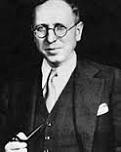
In 1908 Lynchburg, Va.-born historian Douglas Southall Freeman (1886-1953), son of a member of Robert E. Lee's Army of Northern Virginia pub. his first work A Calendar of Confederate Papers, with a Bibliography of Some Confederate Publications, followed by Lee's Dispatches to Jefferson Davis, 1862-1865 (1915), based on long-lost wartime correspondence from June 2, 1862-Apr. 1, 1865, which gets him an invitation from Charles Scribner's Sons to do a complete bio. of Lee, resulting in R.E. Lee: A Biography (4 vols.) (1934-5) (Pulitzer Prize), which uses the "fog of war" technique to show the limited info. Lee had at any given moment ("Lee complete for all time" - NYT) ("There is a monument - and a fine one - to Robert E. Lee at Lexington. But this one, I think, will last as long" - Stephen Vincent Benet). He follows with The South to Posterity: An Introduction to the Writings of Confederate History (1939), Lee's Lieutenants: A Study in Command (3 vols.) (1942-4), incl. "Manassas to Malvern Hill" (1942), "Cedar Mountain to Chancellorsville" (1943), and "Gettysburg to Appomattox" (1944), which influences U.S. military leaders in WWII and makes fans of U.S. Gen. Dwight D. Eisenhower and U.S. Gen. George C. Marshall, getting him an official tour of U.S. armed forces in Europe and Japan a few mo. after the end of WWII. He follows with George Washington: A Biography (7 vols.) (1948-57) (Pulitzer Prize), incl. "Young Washington" (vols. 1-2) (1948), "Planter and Patriot" (1951), "Leader of the Revolution" (1951), "Victory with the Help of France" (1952), "Patriot and President" (1954), and "First in Peace" (1957) (w/John Alexander Carroll and Mary Wells Ashworth) (posth.).
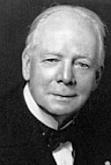
In 1908 after starting out by joining fellow Harvard grads in 1894 in founding the Immigration Restriction League to exclude immigrants from S and E Europe (Ireland, Italy, and Germany) for alleged inferior racial qualities compared to Anglo-Saxons, Boston, Mass.-born atty. and legal historian Charles Warren (1868-1954), son of Winslow Warren, collector of the Port of Boston pub. his first work History of the Harvard Law School and of Early Legal Conditions in America (3 vols.) (1908-9), followed by A History of the American Bar (1911), which become std. refs. for Am. legal historians for decades. In June 1914-Apr. 1918 after supporting Woodrow Wilson he becomes U.S. asst. atty. gen., going on to help draft the 1917 U.S. Espionage Act. He follows with The Supreme Court in United States History (3 vols.) (1922) (Pulitzer Prize), which disagrees with Charles A. Beard's economic analysis. He follows with The Making of the Constitution (1928) (rev. ed. 1937), and Congress, the Constitution and the Supreme Court (1925) (rev. ed. 1935), which is cited by U.S. Supreme Court Justice Louis Brandeis in Erie Railroad Co. v. Tompkins (1938). He follows with Congress as Santa Claus; or, National Donations and the General Welfare Clause of the Constitution (1932), Troubles of a Neutral (1934), Bankruptcy in United States History (1935), and Odd Byways in American History (1942).
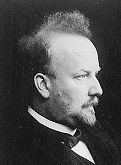
In 1909 Holstein-born German philosopher-historian Christian Heinrich Arthur Drews (1865-1935) pub. the book The Christ Myth in London (English tr. pub. in 1910), joining Bruno Baer and Albert Kalthoff as Germany's pioneers in denial of a historical Jesus, stressing the similarities of the early Christ cult with the popular mystery cults of the time esp. Mithraism, and noting that Christianity could have arisen without a historical Jesus, but not without a historical Paul or Isaiah, with the soundbytes: "The question of the historicity of Jesus is a purely historical question to be settled with the resources of historical research"; "Critics are convinced of the historicity of the gospels a priori, before investigating the subject... [They only have] to seek the "historical nucleus" in tradition... How is it that Weinel knows the [innermost nature] of Jesus so well before beginning his inquiry that he thinks he can determine by this test what is spurious in tradition and what is not?... The gospels, it seems, are to be understood from 'the soul of Jesus', not from the soul of their authors!... Johannes Weiss... acknowledges that in all his inquiries he starts with the assumption that the gospel story in general has an historical root, that it has grown out of the soil of the life of Jesus, goes back to eye-witnesses of his life, and comes so near to him that we may count upon historical reminiscences... There is a further principle, that all that seems possible... may at once be set down as actual... [This is how] all theological constructions of the life of Jesus are based... the historicity of which is supposed to have been proved by showing that they are possible... Johannes Weiss is a master in...[this] way of interpreting the miracles of Jesus... If any one ventures to differ from him, Weiss bitterly retorts: 'Any man who says that these religious ideas and emotions are inconceivable had better keep his hand off matters of religious history; he has no equipment to deal with them' [A classical response of theologians to skeptics.]... [In] Weiss's 'Das älteste Evangelium'...he tries to prove that... Mark is merely incorporating an already existing tradition. 'Not without certain assumptions do we set about the inquiry'"; "There is nothing, absolutely nothing, either in the actions or words of Jesus, that has not a mythical character or cannot be traced to parallel passages in the Old Testament or the Talmud. Historical criticism resolves all details of the Gospel story in mythical mist and makes it impossible to say that there ever was such a person"; "The Christ-faith arose quite independently of any historical personality known to us;... Jesus was in this sense a product of the religious social soul and was made by Paul, with the required amount of reinterpretation and reconstruction, the chief interest of those communities founded by him. The historical Jesus is not earlier but later than Paul; and as such he has always existed merely as an idea, as a pious fiction in the minds of members of the community... the Gospels are the derivatives... for the propaganda of the Church, and being without any claim to historical significance... [Religion] is a group-religion...the connection of the religious community... [Our personal religion], a religion of the individual, a principle of personal salvation, would have been an offense and an absurdity to the whole of ancient Christendom."

In 1909 Perryville, Ky.-born Princeton U. historian (1898-1916) Robert McNutt McElroy (1872-1959) pub. his first book Kentucky in the Nation's History, followed by The Winning of the Far West: A History of the Regaining of Texas, of the Mexican War, and the Oregon Question; and of the Successive Additions to the Territory of the United States, Within the Continent of America: 1829-1867 (1914). In 1912 he succeeds Woodrow Wilson as chmn. of the Princeton U. dept. of history and politics. In 1916-17 he becomes the first U.S. professor to teach in China on an official exchange program. Too bad, during WWI McNutt, er, McElroy becomes active with the Repub. Party and the Nat. Security League, going on to stink himself in Apr. 1918 while addressing Army junior cadets at the U. of Wisc. and ending up accusing almost every citizen of the state of treason incl. the chief justice. No surprise, he spends most of the 1920s and 1930s in the U.K. stinking up Oxford U. and Cambridge U., succeeding Samuel Eliot Morrison as ' Harmsworth Visiting Professor of Am. History at Oxford U. in 1925-39. In 1923 he pub. Grover Cleveland: The Man and the Statesman: An Authorized Biography (2 vols.), the first full-length bio. of Pres. Grover Cleveland, although uncritical. In 1927 he pub. Economic History of the United States. In 1935 he contributes to The March of Man: A Chronological Record of Peoples and Events from Prehistoric Times to the Present Day, Comprising an Historical Atlas of 96 pages, Comparative Time Charts in Seven Sections and 64 Plates of Illustration, published by Encyclopaedia Britannica. In 1937 he pub. his last book Jefferson Davis: The Unreal and the Real. Too bad, his books end up mainly gathering dust as they are bested by others.
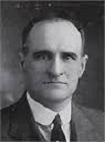
In 1910 Saltsburg, Penn.-born Bowdoin College historian Charles Howard McIlwain (1871-1968) pub. his first work The High Court of Parliament and Its Supremacy, which gets him an appointment in 1911 as history prof. at Harvard U. (until 1946), followed by The Political Works of James I (1918), The American Revolution: A Constitutional Interpretation (1924) (Pulitzer Prize), The Growth of Political Thought in the West: From the Greeks to the End of the Middle Ages (1932), The Historian's Part in a Changing World (1936), and Constitutionalism Ancient and Modern (1940).
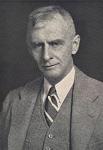
In 1910 Charlottesville, Va.-born Princeton U. historian (1910-36) Thomas Jefferson Wertenbaker (1879-1966) pub. his first book (dissertation) Patrician and Plebeian in Virginia; Or The Origin and Development of the Social Classes of the Old Dominion, which establishes his rep and gets him his appointment to Princeton U. by Woodrow Wilson, followed by Virginia Under the Stuarts, 1607-1688 (1914), The Planters of Colonial Virginia (1922) (his masterpiece), The Founding of American Civilization: The Middle Colonies (1938), Torchbearer of the Revolution: The Story of Bacon's Rebellion and Its Leader (1940), The Old South: The Founding of American Civilization (1942), The Puritan Oligarchy: The Founding of American Civilization (1947), The Molding of the American West (1947) (address to the Am. Historical Assoc.), Bacon's Rebellion, 1676 (1957), and Give Me Liberty: The Struggle for Self-Government in Virginia (1958).
In 1910 the Wykeham Professorship of Ancient History at New College, Oxford U. is established for ancient Greek historians; holders incl. Sir John Linton Myres (1869-1954) (1910-39), Henry Theodore Wade-Gery (1888-1972) (1939-53), Antony Andrewes (1910-90) (1953-77), William George Grieve Forrest (1925-97) (1977-92), and Robert C.T. Parker (1996-).
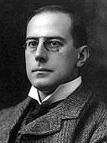
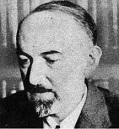
In 1910-11 London-born Hugh Chisholm (1866-1924) et al. pub. The Encyclopaedia Britannica, 11th Ed. (29 vols.); the best ed. ever?; "One leaps from one subject to another, fascinated as much by the play of mind and the idiosyncrasies of their authors as by the facts and dates. It must be the last encyclopedia in the tradition of Diderot which assumes that information can be made memorable only when it is slightly coloured by prejudice" (Sir Kenneth Clark); Am. businessman Amos Urban Shirk (1890-1956) becomes a celeb for reading the whole thing in 4.5 years, later calling the 14th ed. a "big improvement" - ahem? In 1917 Am. writer S.S. Van Dine (Willard Huntington Wright) (1888-1939) (author of the Philo Vance detective novels) pub. Misinforming a Nation, which trashes the 1911 11th ed. of the Encyclopaedia Britannica as "characterized by misstatement, inexcusable omissions, rabid and patriotic prejudices, personal animosities, blatant errors of fact, scholastic ignorance, gross neglect of non-British culture, an astounding egotism, and an undisguised contempt for American progress."

In 1911 Nancy-born French U. of Strasbourg historian (1919-) Lucien Febvre (1878-1956) pub. his thesis Philip II and the Franche-Comte, which pioneers histoire totale (histoire tout court), describing everything possible about Franche-Comte incl. its geography and industry in an attempt to show that the French govt. had a negative influence, becoming the paradigm for the Annales School. In 1922 he pub. A Geographical Introduction to History (w/Lionel Bataillon), followed by Martin Luther: A Destiny (1928), Une Question Mal Posee (Posée) (1929) (pioneering work in ethnology), The Rhine: Problems of History and Economics (1935), and The Problem of Unbelief in the Sixteenth Century: The Religion of Rabelais (w/Henri Berr) (1937), containing the soundbyte: "In the general confusion of our time, old ideas refuse to die and still find acceptance with the mass of the population", warning against the danger of religion and old ways of thinking, calling for more education to counter it. He follows with The Coming of the Book: The Impact of Printing 1450-1800 (w/Henri-Jean Martin) (1958).

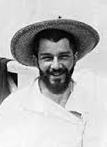
In 1913 after pub. an article in 1893 on how Utilitarianism contains the contradictory principles that the legislator must bring together naturally divergent interests of individuals in society, while at the same time the social order springs spontaneously from the harmony of individual interests, as exemplified by the intervention of the engineer and the contemplation of the astronomer, then following with The Formation of English Philosophical Radicalism (3 vols.) (1901-4), getting him invited to lecture in England, where he studies the mss. of Jeremy Bentham at Cambridge U., becoming obsessed with the first half of the 19th cent., causing him to begin writing it in 1901, Etretat, Normandy-born French Jewish philosopher historian Elie Halevy (Élie Halévy) (1870-1937) begin pub. his magnum opus History of the English People in the 19th Cent. (Histoire du People Anglais au XIXe Siecle) (7 vols.) (1913-46), incl. England in 1815 (L'Angleterre en 1815) (1913), Du Lendemain de Waterloo a la Veille du Reform Bill (1923), De la Crise du Reform Bill a l'Avenement de Sir Robert Peel: 1830-1841 (1923), Epilogue 1: Les Imperialists au Pouvoir: 1895-1914 (1926), Epilogue 2: Vers la Democratie Sociale et Vers la Guerre: 1895-1914 (1932), L'Ere des Tyrannies (1938) (posth), Le Milieu du Siecle: 1841-1852 (1946) (posth.); a 6-vol. English trans. is pub. in 1949-52; proposes the Halevy Thesis, that a revival of Puritanism in the form of Methodism kept a French-style Rev. away; "If economic facts explain the course taken by the human race, the England of the nineteenth century was surely, above all other countries, destined to revolution, both politically and religiously"; "Methodism was the antidote to Jacobinism." After WWI turns him into a liberal dem. pan-European unionist, he pub. The World Crisis of 1914-18 (1930) and The Era of Tyrannies (1948) (posth.). In 1948 his historian younger brother Daniel Halevy (Halévy) (1872-1962) pub. Essay on the Acceleration of History (Essai sur l'acceleration de l'histoire) - tell me about it?

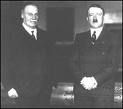
In 1913 after being talked out of mathematics to research some papers of an ancestor in his wine cellar, Boston, Mass.-born historian Samuel Eliot Morison (1887-1976) (distant relative of T.S. Eliot) pub. his Harvard U. dissertation The Life and Letters of Harrison Gray Otis, Federalist, 1765-1848 (2 vols.). In 1922 he becomes the first to hold the position of Harmsworth Visiting Prof. of Am. History at Queen's College, Oxford U. for visiting Am. historians, established by Harold Sidney Harmsworth, 1st Viscount Rothermere (1868-1940) in memory of his sons Vyvyan and Vere, who were KIA in WWI. In 1925 he returns to Harvard U., becoming the last prof. to arrive on campus on horseback. In 1921 he pub. The Maritime History of Massachusetts, 1783-1860, followed by Builders of the Bay Colony: A Gallery of Our Intellectual Ancestors (1930), The Growth of the American Republic (w/Henry Steele Commager) (2 vols.) (1930), which pisses-off the NAACP, which pressures them into censoring portions of it; the 7th ed. (1980) adds author William Edward Leuchtenburg (1922-). The Founding of Harvard College (1935), Harvard College in the Seventeenth Century (1936), Three Centuries of Harvard, 1636-1936 (The Tercentennial History of Harvard College and University) (? vols.) (1936), and The Puritan Pronaos (1936). In 1936 he speaks at the 300th anniv. of Harvard College. In 1940 he pub. Portuguese Voyages to America in the Fifteenth Century, In 1942 he pub. Admiral of the Ocean Sea: A Life of Christopher Columbus (2 vols.) (Pulitzer Prize) after personally sailing to all the places visited by Columbus on the Harvard Columbus Expedition, four voyages starting in 1936; the 4th voyage leaves New York Harbor on Aug. 28, 1939 aboard the 147-ft. ketch Capitana, arriving in Lisbon, Portugal then switching to the 45-ft. ketch Mary Otis, sailing to Cadiz, Madeira, the Canary Islands, and Trinidad, then down the coasts of South Am. and Central Am. before returning to Trinidad on Dec. 15, 1939, then back to New York Harbor on Feb. 2, 1940 aboard the United Fruit liner Veragua. In 1942 he meets with his friend Pres. Franklin D. Roosevelt and offers to write a history of the U.S. Navy, getting him a commission on May 5 as lt. cmdr., U.S. Naval Reserve, followed on Dec. 15, 1945 by capt., and on Aug. 1, 1951 by rear adm. (retired). In 1946 he pub. History as a Literary Art: An Appeal to Young Historians, containing the soundbyte: "American historians, in their eagerness to present facts and their laudable concern to tell the truth, have neglected the literary aspects of their craft. They have forgotten that there is an art of writing history." In 1947 he begins pub. History of United States Naval Operations in World War II (15 vols.) (1947-62). Christopher Columbus, Mariner (1955), a condensed vers. of "Admiral of the Ocean Sea" (1942), Freedom in Contemporary Society (1956), The Story of the 'Old Colony' of New Plymouth, 1620-1692 (1956), Nathaniel Holmes Morison (1957), William Hickling Prescott (1958), Strategy and Compromise (1958), and John Paul Jones: A Sailor's Biography (1959) (Pulitzer Prize), which becomes a std. work. In 1960 he pub. The Story of Mount Desert Island, followed by One Boy's Boston, 1887-1901 (1962), Introduction to Whaler Out of New Bedford (1962), A History of the Constitution of Massachusetts (1963), and The Two-Ocean War (1963), receiving the Pres. Medal of Freedom from LBJ in 1964, who calls him an "amphibious historian". He follows with The Caribbean as Columbus Saw It (1964), Spring Tides (1965), The European Discovery of America (? vols.) (1971-4), and Samuel de Champlain: Father of New France (1972).

In 1913 Alnwick-born English medieval historian Sir Frederick Maurice Powicke (1879-1963) pub. his first book The Loss of Normandy, 1189-1204, followed by Bismarck and the Origin of the German Empire (1914). After switching back to medieval history, he pub. Ailred of Rievaulx and His Biographer Walter Daniel (1922), followed by Essays in Medieval History Presented to Thomas Frederick Trout (w/A.G. Little) (1925), and Stephen Langton (1927), which gets him appointed Regius Prof. of Modern History at Oxford in 1928 (until 1947), pub. his inaugural lecture Historical Study at Oxford in 1928, going on to make Oxford U. into the #1 history center in England. He follows with Gerald of Wales (1928), Robert Grosseteste and the Nicomachean Ethics (1930), Sir Henry Spelman and the 'Concilia' (1930), Oxford Essays in Medieval History, Presented to Herbert Edward Salter (1934), The Christian Life in the Middle Ages (essays) (1935), History, Freedom and Religion (1938), Handbook of British Chronology (1939), The Administration of the Honor of Leicester in the Fourteenth Century (w/L. Fox) (1940), Three Lectures (1947), King Henry III and the Lord Edward: The Community of the Realm in the Thirteenth Century (2 vols.) (1947), Mediaeval England, 1066-1485 (1948), Ways of Medieval Life and Thought: Essays and Addresses (1949), Walteri Danielis: Vita Ailredi Abbatis Rievall: The Life of Ailred of Rievaulx by Walter Daniel (1950), Oxford History of England: Thirteenth Century, 1216-1307 (1953), The Reformation in England (1953), Modern Historians and the Study of History: Essays and Papers (1955), and The Battle of Lewes, 1264 (w/R.F. Treharne and Charles Lemmon) (posth.) (1964). "History is full of the dead weight of things which have escaped the control of the mind, yet drive man on with a blind force."
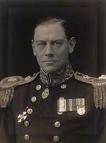
In 1913 after founding the Naval Society and Naval Review, Hammersmith-born British naval historian ("the British Mahan") Adm. Sir Herbert William Richmond (1871-1946), leader of the British Royal Navy's intellectual rev. that pushes education and study of history as essential to naval strategy pub. his first book Papers Relating to the Loss of Minorca in the 1756 Naval Records Society, followed by Private Papers of George, Second Earl Spencer, First Lord of the Admiralty, 1794-1801 (2 vols.) (1914), and The Navy in the War of 1739-48 (2 vols.) (1920) (written in 1907-14 and held during the Great War, during which the Admiralty ignored his advice and eventually succeeded in getting him relegated to the status of a "paper man" not fit for top command). He follows with Command and Discipline (1927), National Policy and Naval Strength and Other Essays (1928, 1934, 1993), The Navy in India, 1763-1783 (1931), Economy and Naval Security: A Plea for the Examination of the Problem of the Reduction in the Cost of Naval Armaments on the Lines of Strategy and Policy (1931), Imperial Defence and Capture at Sea in War (1932), Naval History and the Citizen (1934), Sea Power in the Modern World (1934), and The Navy (1937). In 1946 he pub. his last book Statesmen and Sea Power, an analysis of British foreign policy from Elizabeth I to the end of World War II, which examines "the interrelationships of political and military strategy, and the connections between Britain's developing overseas influence and the utilisation of her maritime strengths", establishing him as a top authority on naval theory; claims that the 1942 Fall of Singapore was sealed by "the illusion that a Two-Hemisphere Empire can be defended by a One-Hemisphere Navy". Too bad, his constructive criticism of the Admiralty prevents his ideas from being acted on, and he is considered only a gadfly. On Sept. 28-29, 1992 after holding a conference on Alfred Thayer Mahan in 1990, a conference is held on Richmond and Sir Julian Corbett by the Naval War College in Newport, R.I., resulting in the book Mahan is Not Enough (ed. James Goldnick and John B. Hattendorf) (1993), which vindicates them, recommending that naval strategy needs the work of naval historians to be integrated with the experience of naval officers for a full understanding.
On Aug. 4, 1914 - Nov. 11, 1918 the horrific World War I causes 15M deaths and 39M military casualties, and destroys the Old Order of white formerly Christian Europe.

In 1914 Camp Point, Ill.-born historian-journalist Joseph Allan Nevins (1890-1971) pub. his first book The Life of Robert Rogers, followed by History of the University of Illinois, The Evening Post: A Century of Journalism (1922), The American States During and After the Revolution, 1775-1789 (1927), A History of American Life Vol. 7: The Emergence of Modern America, 1865-1878 (1927), Fremont, the West's Greatest Adventurer (1928), Polk: The Diary of a Prsident, 1845-1849 (1929), Henry White: Thirty Years of American Diplomacy (1930), Grover Cleveland: A Study in Courage (1933), Letters of Grover Cleveland, 1850-1908 (1933), Abram S. Hewitt, with Some Account of Peter Cooper (1935), Hamilton Fish: The Inner History of the Grant Administration (1936), and The Gateway to History (1938). In 1939 he becomes the DeWitt Clinton Prof. of History at Columbia U. He follows with John D. Rockefeller: The Heroic Age of American Enterprise (2 vols.) (1940), which portrays him as a hero and builder of Am. civilization and democracy, and The Emergence of Modern America, 1865-1878 (1941). He follows with his magnum opus The Ordeal of the Union (8 vols.) (1947-71), which covers 1847-65 in great detail, and wins the first Bancroft Prize. He follows with Study in Power: John D. Rockefeller, Industrialist and Philanthropist (2 vols.) (1953), and Ford (w/Frank Ernest Hill) (3 vols.) (1954-63). The Allan Nevins Professorship of History at Columbia U. is established in his honor.

In 1915 Uzes-born French economist-historian Charles Gide (1847-1932), uncle of Andre Gide pub. A History of Economic Doctrines from the Time of the Physiocrats to the Present Day (w/Charles Rist).

In 1916 after his career as U.S. Repub. Sen. in Ind. in 1899-1911 ends with a fling with the ill-fated Progressive "Bull Moose" Party of Theodore Roosevelt, causing him to turn historian, Highland County, Ohio-born Albert Jeremiah Beveridge (1861-1927) begins pub. The Life of John Marshall (4 vols.) (1916-19). In June 1923 Ind. Repub. Sen. (1899-1911) Albert Jeremiah Beveridge (1862-1927), who bolted to the doomed Progressive Party in 1912, ruining his career gives a speech at the annual dinner of the Sons of the Revolution, decrying his former support of govt. regulation, with the soundbyte: "America would be better off as a country and Americans happier and more prosperous as a people if half of our Government boards, bureaus and commissions were abolished, hundreds of thousands of our Government officials, agents and employees were discharged, and two-thirds of our Government regulations, restrictions, and inhibitions were removed." In 1928 he posth. pub. Abraham Lincoln, 1809-1858 (2 vols.), which strips away the hero worship and reveals a complex, imperfect politician; too bad, he leaves his planned 4-vol. work half-finished, causing his socialite wife (since 1907) Catherine Eddy Beveridge (1881-1970) to give his research materials to Carl Sandburg. In 1939 the biennial Beveridge Award is established by the Am. Historical Assoc. (AHA) for the best English-language book on Am. history incl. Canada and Latin America from 1492-present; the first award is given to John T. Horton for James Kent: A Study in Conservatism.
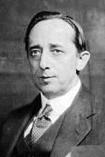
In 1916 Westfield, Ind.-born Dunning School historian and Dem. politician Claude Gernade Bowers (1878-1958) pub. his first book The Irish Orators: A History of Ireland's Fight for Freedom, followed by The Life of John Worth Kern (1918). In 1922 he pub. the bestseller Party Battles of the Jackson Period, dissing him for his Kitchen Cabinet, followed by the bestseller Jefferson and Hamilton: The Struggle for Democracy in America (1925), which blasts the Repub. Party and its predecessors the Whig Party and Federalist Party as bastions of aristocracy, claiming that Thomas Jefferson was the true founder of the Dem. Party, making a fan of Franklin D. Roosevelt, causing him to have the Jefferson Memorial built and appoint him U.S. ambassador to Spain and Chile. In 1929 he pub. the bestseller The Tragic Era: The Revolution After Lincoln, which claims that the Repub. Party corrupted the North to foist evil Reconstruction on the South; "If Hilaire Belloc is right in his opinion that 'readable history is melodrama', the true story of the twelve tragic years that followed the death of Lincoln should be entertaining. They were years of revolutionary turmoil, with the elemental passions predominant, and with broken bones and bloody noses among the fighting factionalists... The Constitution was treated as a doormat on which politicians and army officers wiped their feet after wading in the muck. Never has the Supreme Court been treated with such ineffable contempt, and never has that tribunal so often cringed before the clamor of the mob"; "That the Southern people literally were put to the torture is vaguely understood, but even historians have shrunk from the unhappy task of showing us the torture chambers"; attempts to restore the rep of U.S. Pres. Andrew Johnson, "who fought the bravest battle for constitutional liberty and for the preservation of our institutions ever waged by an Executive"; "The story of this Revolution is one of desperate enterprises, by daring and unscrupulous men, some of whom had genius of a high order. In these no Americans can take pride. The evil that they did lives after them. They changed the course of history, and whether for ultimate good or bad is still on the lap of the gods. The story carries lessons that are well worth pondering." He follows with Beveridge and the Progressive Era (1932), Jefferson in Power: The Death Struggle of the Federalists (1936), The Spanish Adventures of Washington Irving (1940), The Young Jefferson, 1743-1789 (1945), Pierre Vergniaud: Voice of the French Revolution (1950), My Mission to Spain: Watching the Rehearsal for World War II (1954), and Chile Through Embassy Windows, 1939-1953 (1958). He leaves My Life: The Memoirs of Claude Bowers (autobio.) (1962) (posth.).

In 1916 Cartmel Fell, Lancashire-born English philosopher-historian-archeologist R.G. (Robin George) Collingwood (1889-1943) pub. Religion and Philosophy, followed by Roman Britain (2nd ed. 1932), describing his work along Hadrian's Wall, claiming that it's an elevated sentry walk more than a fighting platform, claiming it was supported by a number of forts along the Cumberland coast, Speculum Mentus; or, The Map of Knowledge (1924), Outlines of a Philosophy of Art (1925), The Archaeology of Roman Britain (1930), An Essay on Philosophic Method (1933), Roman Britain and the English Settlements (w/John Nowell Linton Myres) (1936) (2nd ed. 1937), describing his excavation of King Arthur's Henge, a circular ditch near Penrith in Cumbria, which becomes vol. 1 of the Oxford History of England. He follows with The Principles of Art (1938), which claims that artworks are essentially expressions of emotion, portraying art as a necessary function of the human mind, which is a collaborative activity, going on to defend liberalism "in its Continental sense" as "the idea of a community as governing itself by fostering the free expression of all political opinions that take shape within it, and finding some means of reducing this multiplicity of opinions to a unity", An Autobiography (1939), An Essay on Metaphysics (1940), which proposes the doctrine of absolute presuppositions, expounds hist logic of question and answer, and gives an original account of causation, and The New Leviathan; or, Man, Society, Civilization, and Barbarism (1942), his last book, which he decided to write instead of finishing his life's work on the philosophy of history, dissing Nazism ans Fascism as the work of the non-social community in the body politic, attempting to establish the connections between barbarism, civilization, society, and consciousness, rejecting relativism. He posth. pub. The Idea of Nature (1945) (ed. T.M. Knox), which claims that history is a recollection of the thinking of an historical personage, concluding that two people can have the same thought and not just the same content, making him "the best known neglected thinker of our time" (Louis O. Mink) after it becomes extensively cited, The Idea of History (1946), Essays in the Philosophy of Art (1964), and Essays in the Philosophy of History (1965). In 1965 his pupil R.P. Wright pub. Roman Inscriptions in Britian (3 vols.), based the work of Francis J. Haverfield supplemented by his drawings of almost 900 inscriptions he made all over Britain, containing a total of 2,401 monumental inscriptions found before 1955.
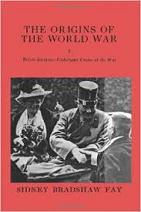
In 1916 Washington, D.C.-born Dartmouth College historian Sidney Bradshaw Fay (1876-1967) pub. The Hohenzollern Household and Administration in the Sixteenth Century. In July 1920 he pub. the article New Light on the Origins of the World War, I. Berlin and Vienna, to July 29 in The Am. Historical Review, followed by The Origins of the World War (2 vols.) (1928) (2nd ed. 1966) (George Louis Beer Prize), becoming the first Am. historian to challenge the notion that Germany alone was responsible for starting WWI, pointing to Serbia's role in assassinating Archduke Francis Ferdinand, German support of Austria-Hungary, Austria's demands, Russian mobilization, and French-English support of Russia, along with the system of secret alliances, militaristic nationalism, imperialist economics, and the Jewish, er, press, becoming influential in softening attitudes against Germany. He follows with The Rise of Brandenburg-Prussia to 1786 (1937), and A Guide to Historical Literature (1937).
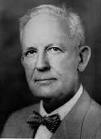
In 1916 Strasburg, Va.-born U. of Chicago historian Bernadotte Everly Schmitt (1886-1969) pub. his first book England and Germany: 1740-1914, about their antagonism and how it led to WWI. In 1930 he pub. The Coming of the War, 1914 (2 vols.) (Pulitzer Prize) (George Louis Beer Prize), which refutes Sidney Fay's 1928 "The Origin of the World War", heaping blame on Germany for starting WWI, forming the Orthodox School with Luigi Albertini and Pierre Renouvin, which fights the Revisionist School of Fay, Harry Elmer Barnes et al. until Fritz Fischer's "Griff nach der Weltmacht" (1961) settles it in favor of the Orthodox School. In 1937 he pub. The Annexation of Bosnia, 1908-1909.

On June 4, 1917 the first Pulitzer Prizes are awarded, administered by Columbia U., with $250K provided by the will of Hungarian-born Am. publisher Joseph Pulitzer Sr. (1847-1911), for "four awards in journalism, four in letters and drama, one in education, and four traveling scholarships"; the initial categories are public service in journalism, editorial writing, drama, fiction, history of the U.S., biography or autobiography; in 1922 they add editorial cartooning, and poetry; in 1942 they add photography, nat. reporting, and internat. reporting; in 1943 they add music; in 1948 they add local reporting; in 1953 they add breaking news reporting, and investigating reporting; in 1962 they add gen. nonfiction; in 1968 they add breaking news photography, and feature photography; in 1970 they add commentary, and criticism; in 1979 they add feature writing; in 1980 they begin announcing finalists; in 1998 they add explanatory reporting; the jury has the option of special citations and awards; the prizes eventually expand to 21 categories, with 20 winners receiving a certificate and $10K cash award, and the 21st (news org. public service in journalism) receiving a gold medal; the lucky 1917 winners are Herbert B. Swope of the New York World for reporting, the New York Tribune for editorial, Jean Adrien Antoine Jules Jusserand (1855-1932) for history, and Laura E. Richards, Maude Howe Elliott, and Florence Howe Hall for biography.

In 1918 Auburn, N.Y.-born Columbia U. (1918-29) historian Harry Elmer Barnes (1889-1968), student of William Archibald Dunning pub. History, Its Rise and Development: A Survey of the Progress of Historical Writing From its Origins to the Present Day in Encyclopedia Americana, launching his prodigious career, publishing 30+ books, 100 essays, and 600 articles, incl. The History of Western Civilization (1935), Famous New Deals in History (1935), An Economic History of the Western World (1937), An Intellectual and Cultural History of the Western World (w/Bernard Myers, Walter B. Scott, Edward Hubler, and Martin Bernstein) (1937), A History of Historical Writing (1938), and An Introduction to the History of Sociology (1948). Too bad, in 1949 he pub. The Struggle Against the Historical Blackout, which claims that the Holocaust is a Zionist hoax to gain sympathy, power, and wealth, and that there is a conspiracy of silence; no surprise, he is virtually blacked-out in the U.S. despite decades of respectable pubs.

Speaking of thesis + antithesis = synthesis. In 1918-22 Blankenburg, Brunswick-born German philosopher Oswald Arnold Gottfried Spengler (1880-1936) pub. Decline of the West (The Downfall of the Occident) (Dr Untergang des Abendlandes), a universal history that claims that civilizations are like living organisms, passing through identical stages at fixed periods, and that the future is Asiatic domination. In 1931 he pub. Man and Technics (Technology): A Contribution to a Philosophy of Life; how hi-tech and industrialism threaten Western culture because the "colored races" might get it and use the advanced weapons against whitey; "Optimism is cowardice." In 1934 he pub. the bestseller The Hour of Decision, which criticizes both the Nazis and liberalism and disses Aryanism and anti-Semitism, calls the Germans too narrow to lead the fight for all Western white peoples, and predicts a world war which threatens Western civilization, causing the Nazis to ban it; he already pissed them off by calling Hitler a "heroic tenor" (Heldentenor) who isn't a real hero (Held), but just plays one on stage.

In 1919 Harold Sidney Harmsworth, 1st Viscount Rothermere (1868-1940) establishes the Vere Harmsworth Professorship of Naval History at Cambridge U. in memory of his son Vere, who was KIA at the Nov. 13-18, 1916 Battle of Ancre; the first appointee is John Holland Rose (1855-1942), who retires in 1933, after which is is changed to Imperial and Naval History, with the first appointment given to Adm. Sir. Herbert William Richmond (1871-1946) (1934-6).
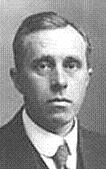
In 1919 Groningen-born Dutch cultural historian Johan Huizinga (1872-1945) pub. The Autumn (Waning) of the Middle Ages: A Study of the Forms of Life, Thought and Art in France and the Netherlands in the Fourteenth and Fifteenth Centuries (Herfstij der Middeleeuwen) (English trans. in 1924) (his masterpiece?), which claims that the exaggerated formality and romanticism of the Late Medieval court was a defense mechanism against the violence and brutality of society, indicating a period of pessimism, decadence, and nostalgia; critics claim he only considered the Burgundian court. In 1924 he pub. Erasmus of Rotterdam (Erasmus and the Age of Reformation). In 1938 he pub. Homo Ludens (The Playing Man); play is a necessary condition of the generation of culture? Too bad, in 1942 after speaking out against the Nazis, he is imprisoned, dying on Feb. 1, 1945 in De Steeg in Gelderland near Arnhem a few weeks before the war ends.
In Dec. 1919 the Am. Catholic Historical Assoc. in Cleveland, Ohio is founded by Montsignor Peter Keenan Guilday (1884-1947); it pub. The Catholic Historical Review (founded Apr. 1915).
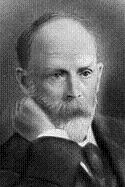
In 1920 Wiltshire-born English historian George Walter Prothero (1848-1922) pub. Peace Handbooks, a set of 160 briefing books on different countries for British negotiators at the Paris Peace Conference, commissioned by the British Foreign Office in spring 1917, incl. Anatolia, Arabia, Armenia and Kurdistan, France and the Levant, Mesopotamia, Mohammedan History, Persian Gulf, Syria and Palestine, Serbia, Turkey in Asia, and Turkey in Europe, gaining Prothero a knighthood this year.

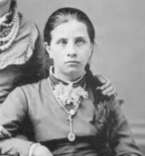
In 1920 English big brain H.G. (Herbert George) Wells (1866-1946) pub. The Outline of History: The Whole Story of Man (Being a Plain History of Life and Mankind) (3 vols.), a bestseller (2M copies) modelled on Denis Diderot's "Encyclopedie"; written in Oct. 1918-Nov. 1919; leans heavily on the Encyclopaedia Britannica; acknowledges help from 100+ experts, but later investigation fails to find any supporting correspondence; "Such a synthesis, such an interpretation of life as a cognate whole has never been attempted single-handed by any other man" (Hector Charlesworth); too bad, it contains strange quirky omissions incl. Adam Smith, the Enlightenment, Romanticism, Feminism, etc.; impacts higher education history teaching after a period where the teachers turn into Luddites and pooh-pooh it because they couldn't write such a broad work themselves, and fear it might put them out of work?; "Mr. H. G. Wells's The Outline of History was received with unmistakable hostility by a number of historical specialists.... They seemed not to realize that, in re-living the entire life of Mankind as a single imaginative experience, Mr. Wells was achieving something which they themselves would hardly have dared to attempt... In fact, the purpose and value of Mr. Wells's book seem to have been better appreciated by the general public than by the professional historians of the day" (Arnold J. Toynbee); in 1927 Canadian feminist historian Florence Amelia Deeks (1864-1959) sues Wells for stealing from her ms. "The Web" which she had submitted to Macmillan Canada and was returned 9 mo. later dog-eared and stained, losing her case despite appealing all the way to George V (due to prejudice against women?); in 2000 Canadian historian A.B. McKillop (1946-) of Carleton U. pub. The Spinster & the Prophet: Florence Deeks, H.G. Wells, and the Mystery of the Purloined Past, bolstering her claims.
On Mar. 17, 1921 the honor society Phi Alpha Theta (originally Univ. Historical Society) is founded at the U. of Ark. by Nels Cleven for students and professors of history, growing to 350K members by 2017.
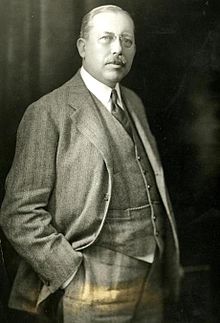
In 1921 Brooklyn, N.Y.-born historian (non-academic) James Truslow Adams (1878-1949) (no relation to the family of John Adams) pub. The Founding of New England (Pulitzer Prize), vol. 1 of 3 of "A History of American Life", followed by Revolutionary New England, 1691-1776 (1923), New England in the Republic, 1776-1850 (1926), Provincial Society, 1690-1763 (1927), Our Business Civilization: Some Aspects of American Culture (1929), and The Adams Family (1930), about the U.S. pres. family, to which he is not related, but everybody kept asking, so? He follows with The Epic of America (1931), which coins the term "American Dream", defining it as "that dream of a land in which life should be better and richer and fuller for everyone, with opportunity for each according to ability or achievement. It is a difficult dream for the European upper classes to interpret adequately, and too many of us ourselves have grown weary and mistrustful of it. It is not a dream of motor cars and high wages merely, but a dream of social order in which each man and each woman shall be able to attain to the fullest stature of which they are innately capable, and be recognized by others for what they are, regardless of the fortuitous circumstances of birth or position." He follows with The March of Democracy (2 vols.) (1932-3), Justice Without (1933), Henry Adams (1933), and Building the British Empire: To the End of the First Empire.
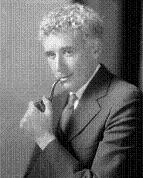
In 1921 New York City-born historian Herbert Feis (1893-1972) pub. his first book The Settlement of Wage Disputes, followed by Europe the World's Banker, 1870-1914 (1930), The Changing Pattern of International Economic Affairs (1940), Seen from E.A.: Three International Episodes (1947), The Spanish Story: Franco and the Nations at War (1948), The Road to Pearl Harbor: The Coming of the War Between the United States and Japan (1950), The China Tangle: The American Effort in China from Pearl Harbor to the Marshall Mission (1953), Churchill, Roosevelt, Stalin: The War They Waged and the Peace They Sought (1957), containing the first paragraph: "There is a continuity in the way in which the conditions of peace turn into war and affect the conduct of war. And a further continuity in the way in which the demands of war affect the conditions of peacemaking. This flow is unbroken. The student of peace and war gets the sense of being on a boat going downstream along a bank on which past history stands eternal, as it was, and then on from the present into the future." He follows with Between War and Peace: The Potsdam Conference (1960) (Pulitzer Prize), Japan Subdued: The Atomic Bomb and the End of the War in the Pacific (1961), 1933: Characters in Crisis (1966), The Atomic Bomb and the End of World War II (1966), which uses official govt. documents not available to private historians to conclude that Pres. Truman's decision to use the atomic bomb on Japan was influenced by the need to bolster the U.S. diplomatic position against Russia, and From Trust to Terror: The Onset of the Cold War, 1945-1950 (1970). In 1984 the Herbert Feis Award is established by the Am. Historical Assoc. to recognize recent work of public historians and independent scholars.
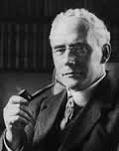
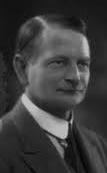
In 1921 the Inst. of Historical Research (IHR) in London is established at the U. of London by Isle of Wight-born British historian A.F. (Albert Frederick) Pollard (1869-1948), funded by an anon. £20K donation by wealthy real estate developer Sir John Cecil Power, 1st Baronet (1870-1950); it officially opens on July 8, 1921; in 1996 it begins pub. Reviews in History; in 2002 it launches the Web site British History Online.
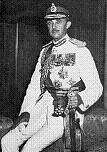
In 1921 the Society for Army Historical Research is founded in Britain to foster interest "in the history and traditions of British and Commonwealth armies, and to encourage research in these fields"; presidents incl. Field Marshal Sir Gerald Walter Robert Templer (1898-1979) (1965-79), in whose name the Templer Medal is established in 1982 by the U. of Birmingham Centre for First World War Studies.

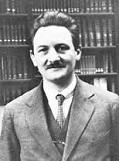
In 1921 the Warburg Inst. is founded at the U. of Hamburg in Germany by wealthy Jewish art historian (Renaissance culture freak) Abraham Moritz "Aby" Warburg (1866-1929) and Viennese Jewish art historian Friedrich "Fritz" Saxl (1890-1948) to study the influence of classical antiquity on Euro civilization, moving to London in 1933, and becoming affiliated with the U. of London in 1944.
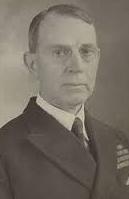
In 1922 after heading a commission in 1920 that recommends postgraduate educaton for naval officers, naval historian U.S. Commodore Dudley Wright Knox (1877-1960) pub. The Eclipse of American Sea Power, followed by The Naval Genius of George Washington (foreword by Adm. Hilary P. Jones) (1932), Naval Documents Related to the Quasi-War Between the United States and France, 1798-1800 (7 vols.) (1935-9), A History of the United States Navy (1936), and Naval Documents Related to the United States Wars with the Barbary Powers (6 vols.) (1939-44).


In 1922 Xenia, Oho-born Progressive historian Arthur Meier Schlesinger Sr. (1888-1965) (disciple of Charles Austin Beard, who replaced Frederick Jackson Turner at Harvard U. in 1924-54) pub. New Viewpoints in American History, pioneering social history and urban history, containing the soundbyte: "From reading history in textbooks one would think half of our population made only a negligible contribution to history", along with the essay "The Significance of Jacksonian Democracy", with the soundbyte: "While democracy was working out its destiny in the forests of the Mississippi Valley, the men left behind in the eastern cities were engaging in a struggle to establish conditions of equality and social well-being adapted to their special circumstances"; in 1924 he becomes a history prof. at Harvard U. In 1933 he pub. The Rise of the City, 1878-1898. In Dec. 1939 he pub. the essay Tides of National Politics in the Yale Review, proposing a cyclical view of history oscillating between liberal and conservative nat. moods. On Dec. 30, 1942 he gives the pres. address What Then Is the American, This New Man? for the annual meeting of the Am. Historical Assoc. In 1954 he retires from Harvard U.; meanwhile his son Arthur Meier Schlesinger Jr. (1917-2007) carries on as a history prof. at Harvard U. in 1954-61 sans doctorate, eating up his daddy's tides theory and talking JFK into believing that it's time for the liberal mood in 1961-2.
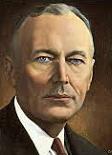
In 1922 Fredericksburg, Tex.-born diplomatic historian (isolationist) Charles Callann Tansill (1890-1964) pub. his first book The Canadian Reciprocity Treaty of 1854, followed by The Purchase of the Danish West Indies (1932). In Oct. 1938 he pub. America Goes to War, a revisionist view of how the U.S. got into WWII, blaming Pres. Wilson's pro-British sympathies along with his advisers Col. Edward House and secy. of state Robert Lansing, becoming a hit with the Nazis incl. ambassador Hans Dieckhoff and Hermann Goering; "It is critical, searching and judicious... a style that is always vigorous and sometimes brilliant. It is the most valuable contribution to the history of the prewar years in our literature and one of the notable achievements of historical scholarship in this generation." (Henry Steele Commager) He follows with Major Issues in Canadian-American Relations (1943), and Back Door to War: The Roosevelt Foreign Policy 1933-1941 (1952), which claims that FDR suckered Japan into Pearl Harbor to involve the U.S. in the Euro war through the you know what in order to preserve the British Empire, causing a firestorm of controversy, later getting him confused with Holocaust deniers.

In 1923 Worcester, Mass.-born "Father of U.S Diplomatic History" Samuel Flagg Bemis (1891-1973) pub. his first book Jay's Treaty: A Study in Commerce and Diplomacy (2nd ed. 1962), followed by Pinckney's Treaty: America's Advantage from Europe's Distress, 1783-1800 (1926) (Pulitzer Prize), The American Secretaries of State and Their Diplomacy (18 vols.) (1927-72), The Hussey-Comberland Mission and American Independence, The Diplomacy of the American Revolution (1935), Guide to the Diplomatic History of the United States, 1775-1921 (w/Grace Gardner Griffin) (1935), A Diplomatic History of the United States (1936), Early Diplomatic Missions from Buenos Aires to the United States, 1811-1824 (1940), The Latin American Policy of the United States (1943), John Quincy Adams and the Foundations of American Foreign Policy (1949) (Pulitzer Prize), and John Quincy Adams and the Union (1956).

In 1923 Newark, N.J.-born U. of Penn. historian Roy Franklin Nichols (1896-1973), expert on the mid-1800s U.S. pub. his first book The Democratic Machine, 1850-1854, followed by Franklin Pierce: Young Hickory of the Granite Hills (1931) (2nd ed. 1958), which attempts to revive his reputation by blaming his lack of leadership on his son Benny's tragic death 2 mo. before the inauguration, and portraying his cabinet as able administrators, and The Disruption of American Democracy (Pulitzer Prize), which claims that the U.S. Civil War was caused by the machinations of "vote-hungry" politicians who split the country into warring groups without foreseeing the total breakdown of the Union. He follows with Advance Agents of American Destiny (1956), Religion and American Democracy (1959), Blueprints for Leviathan: American Style (1963), History in a Self-Governing Culture (lecture to the Am. Historical Assoc.) (1966), and The Invention of the American Political Parties (1967).
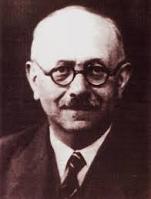
In 1924 Lyon-born French U. of Strasbourg historian (assimilated Alsatian Jew) Marc Leopold Benjamin Bloch (1886-1944) pub. The Magic-Working Kings; or, The Royal Touch: Sacred Monarchy and Scrofula in France and England (Les Rois Thaumaturges: Etude sur le caractère surnaturel attribué à la puissance royale particulièrement en France et en Angleterre), about the ancient tradition that kings can cure scrofula by touching the afflicted. In 1931 he pub. French Rural History: An Essay on Its Basic Characteristics (Les caractères originaux de l'histoire rurale française), followed by his magnum opus Feudal Society (1939) (2 vols., incl. "The Growth of Ties of Dependence" and "Social Classes and Political Organization"), recreating the entire world of W Europe in the 9th-13th cents. Too bad, after joining the French Resistance in late 1942, he is captured in Lyon and turned over to the Gestapo, who execute him on June 16, 1944. He leaves Strange Defeat (pub. in 1946), which blames the French military establishment for not recognizing that "the whole rhythm of modern warfare has changed its tempo", causing it to cave-in so quickly in WWII, along with the unfinished The Historian's Craft (Apologie pour l'histoire ou Métier d'historien) (pub. 1949) (English trans. pub. in 1954), stating his view that "the mania for judgments" is a "satanic enemy of true history". "But history is neither watchmaking nor cabinet construction. It is an endeavor toward better understanding"; "History is, in its essentials, the science of change. It knows and it teaches that it is impossible to find two events that are ever exactly alike, because the conditions from which they spring are never identical."
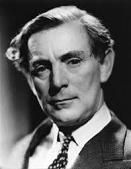
In 1924 after overcoming his low-class upbringing, Oxenhope, Yorkshire-born English devout Methodist historian Sir Herbert Butterfield (1900-79) (student of Harold Temperley) pub. his first book The Historical Novel, which expresses admiration for the art form; in later years he flops, calling it a "bad book". In 1929 he pub. The Peace Tactics of Napoleon, 1806-1808. In 1931 he pub. The Whig Interpretation of History, about historiography from the Protestant progressive 19th cent. gentleman viewpoint, which picks and chooses facts to claim a successful march to ever-greater liberty and enlightenment, ending with modern liberal democracy and constitutional govt. (monarchy), which after the Great War of 1914 ends up kaput, with the term Whigism becoming a joke word, later contrasted with Toryism, which "rests on doubt in human nature" (A.J.P. Taylor); "... the tendency of many historians to write on the side of Protestants and Whigs, to praise revolutions provided they have been successful, to emphasize certain principles of progress in the past and to produce a story which is the ratification if not the glorification of the present"; makes him a star among historians; "[History is] the very servant of the servants of God, the drudge of all the drudges"; "Very strange bridges are used to make the passage from one state of things to another; we may lose sight of them in our surveys of general history, but their discovery is the glory of historical research. History is not the study of origins; rather it is the analysis of all the mediations by which the past was turned into our present"; he disses Lord John Action's statement that "history is the arbiter of controversy, the monarch of all she surveys", with the soundbyte that history is "the very servant of the servants of God, the drudge of all the drudges." In 1939 he pub. Napoleon. In 1940 he pub. The Statecraft of Machiavelli. In 1944 he pub. The Englishman and His History, containing the soundbyte: "We are all of us exultant and unrepentant whigs. Those who, perhaps in the misguided austerity of youth, wish to drive out that whig interpretation, (that particular thesis which controls our abridgment of English history,) are sweeping a room which humanly speaking cannot long remain empty. They are opening the door for seven devils which, precisely because they are newcomers, are bound to be worse than the first. We, on the other hand, will not dream of wishing it away, but will rejoice in an interpretation of the past which has grown up with us, has grown up with the history itself, and has helped to make the history... We must congratulate ourselves that our 17th-century forefathers... did not resurrect and fasten upon us the authentic middle ages... In England we made peace with our middle ages by misconstruing them; and, therefore, we may say that 'wrong' history was one of our assets. The whig interpretation came at exactly the crucial moment and, whatever it may have done to our history, it had a wonderful effect on English politics... In every Englishman there is hidden something of a whig that seems to tug at the heart-strings." In 1948 he pub. Lord Action. In 1949 he pub. The Origins of Modern Science, 1300-1800, which becomes a std. work. In 1949 he also pub. Christianity and History, asking if history provides answers to the meaning of life, with the soundbytes: "So the purpose of life is not in the far future, nor, as we so often imagine, around the next corner, but the whole of it is here and now, as fully as ever it will be on this planet"; "If there is a meaning in history, therefore, it lies not in the systems and organizations that are built over long periods, but in something more essentially human, something in each personality considered for mundane purposes as an end in himself", and "I have nothing to say at the finish except that if one wants a permanent rock in life and goes deep enough for it, it is difficult for historical events to shake it. There are times when we can never meet the future with sufficient elasticity of mind, especially if we are locked in the contemporary systems of thought. We can do worse than remember a principle which both gives us a firm Rock and leaves us the maximum elasticity for our minds: the principle: Hold to Christ, and for the rest be totally uncommitted." In 1949 he also pub. George III, Lord North and the People, 1779-80. In 1951 he pub. History and Human Relations, containing the essay Moral Judgments in History, which asserts that historians shouldn't make you know what, Liberty in the Modern World, and The Reconstruction of an Historical Episode: The History of the Enquiry into the Origins of the Seven Years' War. In 1952 he pub. Christianity in European History. In 1953 he pub. Christianity, Diplomacy and War, with the soundbyte: "The greatest menace to our civilization is the conflict between giant organized systems of self-righteousness - each only too delighted to find that the other is wicked - each only too glad that the sins of the other give it pretext for still deeper hatred." In 1955 he pub. Man on His Past: The Study of the History of Historical Scholarship. In 1957 he pub. George III and the Historians (rev. ed. 1959). In 1966 he and Martin Wright pub. Diplomatic Investigations: Essays in the Theory of International Politics. In 1981 he posth. pub. The Origins of History (ed. A. Watson); his final thoughts on history, emphasizing the role of religion; "At an early stage in the history of Mesopotamia there emerged an outlook on life which was to be of some significance for the development of historiography... It led to the appearance of the first hitherto known example of what might be called an interpretation of human history. And this interpretation itself was to be of such long-standing importance in the history of civilization... that its origin is bound to be a matter of some interest to us"; [of the ancient Jews]: "It was something of a novelty to have anybody writing history at all, instead of merely recording his own deeds of prowess. It was novel for a man to be writing the history of a nation... But the 'Yahwist,' starting from the Creation, adumbrates also the history of mankind itself. He puts the story of his own country into this context, so that the 'universal history' merges into something more local..."; "It is hazardous to speak of the emergence of anything that is absolutely new in history. We ought on occasion to remind ourselves of the fact that there never was a time when man might not know how to put two and two together"; "Our whole enquiry is therefore bound to come to a new climax when the religious outlook and the awareness of history come together in a new way with the emergence of Christianity. For Christianity was the religion which from a period of fairly primitive conditions presided for more than a thousand years over the development of the exceptionally history-conscious society and culture in Europe when these were in their formative stages"; "Augustine was not primarily concerned, therefore, with what we today would call straight history. He is forever turning aside to discuss the fundamental questions of human destiny." He dies leaving "The Origins of History" unfinished, gosh darnit. "Perhaps history is a thing that would stop happening if God held His breath, or could be imagined as turning away to think of something else"; "The greatest menace to our civilization is the conflict between giant organized systems of self-righteousness, each only too delighted to find that the other is wicked, each only too glad that the sins of the other give it pretext for still deeper hatred"; "If history can do anything it is to remind us that all our judgments are merely relative to time and circumstance."


In 1924 North Adams, Mass.-born historian William James "Will" Durant (1885-1981) pub. The Story of Philosophy: The Lives and Opinions of the Greater Philosophers (pub. as a series o Little Blue Books, then repub. in 1926 by Simon & Schuster), covering from Socrates and Plato through Bertrand Russell, popularizing the subject. In 1935-75 he pub. The Story of Civilization (11 vols.), with vols. 7-11 co-written by his Ukrainian-born wife (1913-) Ariel Durant (Chaya Kaufman)(1898-1981), attempting to cover and unite all world history; too bad, they both die after pub. "The Age of Napoleon". Vol. 1 ch. 16, "The Moslem Conquest of India" begins with the soundbyte: "The Mohammedan Conquest of India is probably the bloodiest story in history. It is a discouraging tale, for its evident moral is that civilization is a precious good, whose delicate complex of order and freedom, culture and peace, can at any moment be overthrown by barbarians invading from without or multiplying within."

In 1924 after 20 years of research, Lille-born French Marxist historian Georges Lefebvre (1874-1959) pub. his magnum opus (doctoral thesis) The Peasants of the North During the French Revolution (Les Paysans du Nord pendant la Revolution francaise), "based on a thorough analysis of thousands of tax rolls, notarial records, and the registers of rural municipalities, whose materials he used to trace the effects of the abolition of feudalism and ecclesiastical tithes, the consequences of property transfers, the movement of the bourgeoisie onto the countryside, and the destruction of collective rights in the peasants villages", written from the peasant POV, making him a star; "To get the peasant to rise and revolt, there was no need of the Great Fear, as so many historians have suggested: when the panic came he was already up and away." In 1935 he pub. Napoleon (2 vols.) (English trans. in 1969). In 1939 he pub. Quatre-Vingt-Neuf to mark the sesquicentennial of the 1789 French Rev.; too bad, next year the Nazi-run Vichy govt. suppresses it and burns 8K copies, and it isn't reprinted in French until 1970; meanwhile in 1939 the English trans. "The Coming of the French Revolution" is pub., becoming a std. textbook for Marxists, coining the term "history from below", and the term "death certificate of the Old Order" for the Great Fear of 1789. In 1951 he pub. The French Revolution from Its Origins to 1799 (2 vols.) (1951, 1957) (English trans. pub. in 1962-4).


In 1924 Hannover-born German Jewish U. of Hamburg art historian Erwin "Pan" Panofsky (1892-1968), student of Margarete Bieber, Wilhelm Voge, and Adolph Goldschmidt pub. Idea: A Concept in Art Theory, followed by Perspective as Symbolic Form (1927), which introduces a new kind of interpretation of perspective. In 1933 the Nazis get him fired, and he flees to the U.S., joining the new Princeton Inst. for Advanced Study in 1935. In 1939 he pub. Studies in Iconology: Humanistic Themes in the Art of the Renaissance ("the work of art as a 'symptom' - Germain Bazin), ("It is apprehended by ascertaining those underlying principles which reveal the basic attitude of a nation, a period, a class, a religious or philosophical persuasion - qualified by one personality and condensed into one work"), followed by The Life and Art of Albrecht Durer [1471-1528] (1943) (2 vols.), Gothic Architecture and Scholasticism (1951), Early Netherlandish Painting: Its Origins and Character (1953), which reveals a new interpretation of Jan van Eyck's "Arnolfini Portrait" (1434), incl. hidden symbolism, making him the real Robert Langdon of Dan Brown's "The Da Vinci Code"? He follows with Meaning in the Visual Arts (1955), which becomes a std. texbook on art history and life in the Middle Ages and Renaissance, Pandora's Box: The Changing Aspects of a Mythical Symbol (w/Dora Panofsky) (1956), about the "pagan Eve", Renaissance and Renascences in Western Art (1960), covering the 10th cent. Carolingian Renaissance, the 12th Cent. Proto-Renaissance, and the 14th-15th cent. Italian Renaissance; Tomb Sculpture: Four Lectures on Its Changing Aspects from Ancient Egypt to Bernini (1964), Saturn and Melancholy: Studies in the History of Natural Philosophy, Religion, and Art (w/Raymond Klibansky and Fritz Saxl) (1964), Problems in Titian, Mostly Iconographic (1969) (posth.), and Three Essays on Style (1995) (posth.), incl. "What Is Baroque?", "Style and Medium in the Motion Pictures", "The Ideological Antecedents of the Rolls-Royce Radiator"; intro. by Irving Lavin. In 1973 he is succeeded as art historian at Princeton Inst. for Advanced Study by Irving Lavin (1927-).
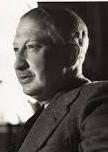
In 1925 English conservative diplomatic historian Sir John Wheeler Wheeler-Bennett (1902-75) (follower of the Great Man School of History) pub. Information on the Reduction of Armaments (intro. by Maj. Gen. Sir Neill Malcolm), followed by Information on the Renunciation of War, 1927-1928 (1928), Disarmament And Security Since Locarno 1925–1931; Being The Political And Technical Background of the General Disarmament Conference, 1932 (1932), The Wreck of Reparations, Being The Political Background of the Lausanne Agreement, 1932 (intro. by Sir Walter Layton) (1933), The Pipe Dream of Peace: The Story of the Collapse of Disarmament (1935), Hindenburg: The Wooden Titan (Wooden Titan: Hindenburg in Twenty Years of German History, 1914-1934) (1936), Brest-Litovsk: The Forgotten Peace, March 1918 (1938), Munich: Prologue to Tragedy (1948), and The Nemesis Of Power: The German Army In Politics, 1918–1945 (1953) (rev. ed. 1964), which claims that during the Weimar Repub. the Reichswehr formed a "State within the State" that refrained from day-to-day politics, but after the downfall of Gen. von Seeckt in 1926 (who undermined democracy, becoming the "Gravedigger of the Weimar Republic") it got increasingly involved in politics, inadvertently paving the way for the rise of the Nazis, then acquiesced in their regime because it ensured no repeat of "the stab in the back", which backfired after the fall of Gen. Blomberg and Gen. Fritsch in 1938 as the Nazis turned it into their tool, after which a few officers like Col. von Stauffenberg fought back too little too late. In 1958 he pub. King George VI: His Life and Reign, the official bio., followed by John Anderson, Viscount Waverley (1962), about "the Home Front Minister", Action This Day: Working with Churchill: Memoirs by Lord Norman Brook and Others (1968), The Semblance of Peace: The Political Settlement After the Second World War (w/Anthony Nicholls) (1972), The History Makers (w/Lord Frank Pakenham Longford) (1973), harping on his heroes Sir Winston Churchill et al., Knaves, Fools And Heroes: In Europe Between The Wars (1974), Special Relationships: America in Peace and War (1975), and Friends, Enemies, and Sovereigns (posth.) (1976).
On May 5, 1925 the Am. Assoc. for the History of Medicine is founded in Washington, D.C.
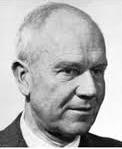
In 1926 Winsted, Conn.-born Harvard U. historian Clarence Crane Brinton (1898-1968) pub. his first book The Political Ideas of the English Romanticists (rev. ed. in 1966), followed by The Jacobins: An Essay in the New History (1930), a study of the political radicals of the French Rev., and A Decade of Revolution, 1789-1799 (1934), making him a top Am. historian of France, becoming known for his Breakfast with Brinton Harvard course. In 1936 he pub. The Lives of Talleyrand. In 1938 he pub. The Anatomy of a Revolution (rev. eds. pub. in 1952 and 1965), which compares the 1640s English Civil War, the 1776 Am. Rev., the 1789 French Rev., and the 1917 Russian Rev., claiming that they follow the same lifecycle of Old Order to moderate regime to radical regime to Thermidorian reaction, likening the dynamics of a rev. movement to the progress of a fever; the rev. process moves from "financial breakdown, [to] organization of the discontented to remedy this breakdown... revolutionary demands on the part of these organized discontented, demands which if granted would mean the virtual abdication of those governing, attempted use of force by the government, its failure, and the attainment of power by the revolutionists. These revolutionists have hitherto been acting as an organized and nearly unanimous group, but with the attainment of power it is clear that they are not united. The group which dominates these first stages we call the moderates... power passes by violent... methods from Right to Left"; too bad, although they all began "in hope and moderation", reached "a crisis in a reign of terror", and ended "in something like dictatorship - Cromwell, Bonaparte, Stalin", the Am. Rev. "does not quite follow this pattern". In 1950 he pub. Ideas and Men: The Story of Western Thought. (rev. ed. 1963), covering from ancient Greece to the present, making him a star among historians of ideas. In 1959 he pub. A History of Western Morals, an abridgement of "Ideas and Men", followed by The Shaping of the Modern Mind (1963), and The Americans and the French (Jan. 1968), an attempt to explain their difficult relations. On Feb. 19, 1968 he testifies at the Fulbright Senate hearings on the Vietnam War, saying that Americans love revolutions but not Commie ones before dying on Sept. 7.
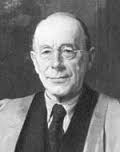
In 1926 English economic historian Sir John Harold Clapham (1873-1946) pub. An Economic History of Modern Britain (3 vols.) (1926-38). He follows with The Bank of England: A History (2 vols.). (1944).

In 1926 Studley, Warwickshire-born English Benedictine monk-priest Cambridge U. historian David (Michael Clive) Knowles (1896-1974) (expert on English monasticism) pub. his first book The American Civil War: A Brief Sketch, followed by The Monastic Order in England: a History of Its Development from the Times of St Dunstan to the Fourth Lateran Council, 943-1216 (1940) (2nd ed. 1963), The Religious Houses of Medieval England (1940), The Prospects of Medieval Studies (1947), The Religious Orders in England (3 vols.) (1948-59), a continuation after 1216 C.E. of "The Monastic Order in England", Archbishop Thomas Becket: A Character Study (1949), Monastic Constitutions of Lanfranc (1951), Episcopal Colleagues of Archbishop Thomas Becket (1951) (Ford Lectures), Monastic Sites From The Air (w/J.S.K. St. Joseph) (1952), Medieval Religious Houses: England and Wales (w/R. Neville Hadcock) (1953) (2nd ed. 1971) The Historian and Character (1954), Charterhouse: The Medieval Foundation in the Light of Recent Discoveries (w/W.F. Grimes) (19540, Cardinal Gasquet as an Historian (1957), The English Mystical Tradition (1961), The Evolution of Medieval Thought (1962), Saints and Scholars: Twenty-Five Medieval Portraits (1962), The Benedictines: A Digest for Moderns (1962), Great Historical Enterprises; Problems in Monastic History (1963), The Historian and Character and Other Essays (1963), Lord Macaulay, 1800–1859 (1963), From Pachomius to Ignatius: A Study in the Constitutional History of the Religious Orders (1966), The Nature of Mysticism (1966), What is Mysticism? (1967), Authority (1969), Christian Monasticism (1969), The Christian Centuries: The Middle Ages, vol. 2 (w/Dimitri Obolensky) (1969), The Heads of Religious Houses: England and Wales, 940-1216 (w/Christopher N.L. Brooke and Vera C.M. London) (1972), Bare Ruined Choirs: The Dissolution of the English Monasteries (1976), and Thomas Becket (1977).

In 1926 Indianapolis, Ind.-born historian James Garfield Randall (1881-1953) pub. Constitutional Problems under Lincoln, which makes him a leading U.S. Civil War historian, followed by The Civil War and Reconstruction (1937) (rev. 1961), which argues that the "needless war" "could have been avoided, supposing of course that something more of statesmanship, moderation, and understanding, and something less of professional patrioteering, slogan-making, face-saving, political clamoring, and propaganda, had existed on both sides"; too bad, "Reforming zeal, in those individual leaders in whom it became most vociferous and vocal,... often unrelieved by wisdom, toleration, tact, and the sense of human values... was a major cause of the conflict itself." He follows with Lincoln the President (4 vols.) (1945-55), which becomes the #1 scholarly bio. of Lincoln, stopping just before his assassination, with Mary complaining of a headache and suggesting that they not attend the play at Ford's Theater, with the last words "And so they went". He follows with Lincoln the Liberal Statesman (1947). "There is no supreme court of history."


In 1926 Galesburg (near Chicago), Ill.-born poet-writer Carl August "Charlie" "Charles" Sandburg (1878-1967) pub. the bestseller Abraham Lincoln: the Prairie Years (2 vols.), followed by Mary Lincoln: Wife and Widow (1932), and Abraham Lincoln: The War Years (4 vols.) (1939), making him Lincoln's #1 biographer. On Feb. 12, 1959 (150th anniv. of the birth of Abraham Lincoln) Congress meets in joint session to hear actor Fredric March deliver Lincoln's "Gettysburg Address", followed by an address by Lincoln biographer Carl Sandburg, who becomes the first-only Am. poet invited to address a joint session of Congress (until ?). The 1982 film E.T. the Extra-Terrestrial uses a composite of Sandburg, Ernest Hemingway, and Albert Einstein.

In 1926 Edgefield, S.C.-born Longwood College historian Francis Butler Simkins (1897-1966) pub. The Tillman Movement in South Carolina, followed by The Ku Klux Klan During Reconstruction (1927). In 1931 after receiving his doctorate in 1929 from Columbia U., old home of William Archibald Dunning, he pub. South Carolina During Reconstruction (w/Robert Hilliard Woody) (1931) (Dunning Prize), the first revisionist work on Reconstruction, breaking with the Dunning School that paints Reconstruction as a raping of the South by the North; "We forgo the temptation of following in the footsteps of historians who have interpreted the period as only a glamorous but tragic melodrama of political intrigue"; "Does not hesitate to give a fair account of the Negroes and of some of their work" (W.E.B. Du Bois); "With refreshing freedom from prejudice and special pleading, the authors picture honest, unselfish carpetbaggers, respectable, well-meaning scalawags, and Negroes with intelligence and political ability." (Howard K. Beale) He follows with The Women of the Confederacy (w/James Welch Patton) (1936), the first balanced treatment, Ben Tillman's View of the Negro (1937), New Viewpoints of Southern Reconstruction (1939), which contains the soundbyte: "One of the accepted conventions of Reconstruction scholars is that the Carpetbaggers failed because their measures were excessively radical", arguing that they were not radical enough, incl. land confiscation and destruction of the white caste system; "A biased interpretation of Reconstruction caused one of the most important political developments in the recent history of the South, the disfranchisement of the black. The fraud and violence by which this objective was first obtained was justified in a single ground: the memory of the alleged horrors of Reconstruction." He follows with Pitchfork Ben Tillman: South Carolina (1944), The Everlasting South (1947), indicating that he's turned conservative, defending Segregation as a venerable tradition - better not mess up with Monday Night Football? He follows with The South Old and New: 1820-1947 (1948) (rev. in 1957 as "A History of the South", 4th ed. 1972), Tolerating the South's Past (1955), Virginia: History, Government, Geography (1957), and The Everlasting South (essays) (1963). By 1964 he is "almost the only practicing historian of the South who defends the major and historic Southern institution of segregation" (David Potter); "As a young man... [Simkins] seemed to be an emancipated critic of the old order. His study of Reconstruction in South Carolina... seemed to put him among the enlightened revisionists of that dark period. But more and more he came to stress the distinctive characteristics of 'the everlasting South' and to question the validity of much that passed for progress in the modern South" (obituary in Journal of Am. History, 1966); in 2015 after Harper Lee releases her novel "Go Set a Watchman", which reveals that Atticus Finch was a white supremacist who just happened to believe in legal justice for innocent blacks, David B. Parker calls him "The Historian Who Evolved the Same Way as Atticus Finch". After his death the Southern Historical Assoc. establishes the triennial Francis B. Simkins Award for the best first book about the South.

In 1926 Leonard Dupee White (1891-1958) pub. Introduction to the Study of Public Administration, followed by The Frontiers of Public Administration (1936) (2 vols.) (w/John Merriman Gaus and Marshall Edward Dimock). He follows with his 4-vol. series "A Study in Administrative History", incl. The Federalists, 1789-1801 (1948), The Jeffersonians, 1801-1829 (1951), The Jacksonians, 1829-1861 (1954), and The Republican Era, 1869-1901 (1958) (Pulitzer Prize).


In Feb. 1926 (2nd week) African-Am. historian Carter Godwin Woodson (1875-1950) founds Negro History Week to coincide with the birthdays of Frederick Douglass and Abraham Lincoln, which on Feb. 1, 1976 becomes U.S. Black History Month; in Dec. 2005 actor Morgan Freeman (1937-) calls it "ridiculous", saying, "You're going to relegate my history to a month? I don't want a black history month. Black history is American history."

In 1926 the DeWitt Clinton Professorship of Am. History is founded at Columbia U., named after N.Y. Gov. #8 (1817-22) DeWitt Clinton (1769-1828); the first to hold it is Evarts Boutell Greene (1870-1947), followed in 1939 by his student Joseph Allan Nevins (1890-1971), followed in 1959 by Richard Hofstadter (1916-70), followed in 1988 by his student Eric Foner (1943-) (until ?).

In 1927 Aurora, Ill.-born Progressive U. of Wash. professor Vernon Louis Parrington (1871-1929) pub. Main Currents in American Thought (3 vols.) (Pulitzer Prize); incl. "The Colonial Mind, 1620-1800", "The Romantic Revolution in America, 1800-1860", "The Beginnings of Critical Realism in America, 1860-1920", founding the interdisciplinary American Studies (Civilization) movement, with the soundbyte: "I have undertaken to give some account of the genesis and development in American letters of certain germinal ideas that have come to be reckoned traditionally American - how they came into being here, how they were opposed, and what influence they have exerted in determining the form and scope of our characteristic ideals and institutions. In pursuing such a task, I have chosen to follow the broad path of our political, economic, and social development, rather than the narrower belletristic" (introduction); he claims a sharp divide between elitist Hamiltonians and popular Jeffersonians, identifying with the latter; the three phases of U.S. history are Calvinistic pessimism, romantic optimism, and mechanistic pessimism, with democratic idealism as the main driving force; attempts to defend the doctrine of state sovereignty by separating it from slavery, claiming that their association has proven "disastrous to American democracy", allowing the growth of corporate power; the "Summa Theologica of Progressive history" (Charles Crowe), dominating lit.-cultural criticism until the early 1950s, then enjoying a revival in the 1970s; beats out Charles Beard's "Rise of American Civilization" for the Pulitzer Prize in history, and is given $2K, twice the amount the other winners get; "'Main Currents' impoverished the rich and complex American past. Parrington reduced Jonathan Edwards, Poe, Hawthorne, Melville, Henry James to marginal figures, practitioners of belles lettres, not illuminators of the American experience." (Arthur M. Schlesinger Jr.) In 1927 he pub. Sinclair Lewis - Our Own Diogenes.
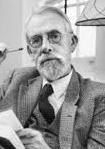
In 1928 after converting from Anglican to Roman Catholic in 1914, Welsh-born British historian ("the greatest English-speaking Catholic historian of the twentieth century" - Daniel Callahan) Christopher Henry Dawson (1889-1970) pub. his first book The Age of the Gods: A Study in the Origins of Culture in Prehistoric Europe and the Ancient East, tracing prehistoric man and culture from the Stone Age to the Iron Age in 1000 B.C.E., followed by Progress and Religion: An Historical Inquiry (1929), which claims that religion is the soul of a culture, and that if a society loses its spiritual roots it will die, hence the West needs to return to Christianity, Christianity and the New Age (1931), and The Making of Europe: An Introduction to the History of European Unity (1932), which proposes the Old West Theory that the Roman Catholic Church was an essential factor in the rise of Euro civilization in the Middle Ages ("ages of dawn"), not a gigantic obstacle like the secular-scientific crowd claims, and that 20th cent. civilization is trying to end all religious underpinnings, threatening a total collapse, launching a mini-movement that makes fans of T.S. Eliot, J.R.R. Tolken et al. He follows with The Spirit of the Oxford Movement (1933), Enquiries into Religion and Culture (1933), Medieval Religion and Other Essays (1935), Religion and the Modern State (1936), Beyond Politics (1939), The Claims of Politics (1939), The Judgment of the Nations (1943), which claims that the West is in its greatest hour of crisis, and that the only way out is a restoration of its spiritual-cultural roots based on a new perception of the inherent cultural creativity of Christianity, becoming a big hit with critics, Religion and the Rise of Western Culture (1950), Understanding Europe (1952), calling for Europe to rediscover its Christian foundations, Medieval Essays (1954), The Mongol Mission (Mission to Asia): Narratives and Letters of the Franciscan Missionaries in Mongolia and China in the Thirteenth and Fourteenth Centuries (1955), The Dynamics of World History (w/John J. Mulloy) (1957), a collection of his works by theme, The Movement of World Revolution (1959), The Historic Reality of Christian Culture (1960), The Crisis of Western Education: With Specific Programs for the Study of Christian Culture (1961), bemoaning the dropping of Western culture studies in favor of vocational and technical studies, The Dividing of Christendom (1965), The Formation of Christendom (1967), The Gods of Revolution (1972), and Religion and World History: A Selection from the Works of Christopher Dawson (1975). "Dawson's vast erudition, his historical intuition, his profound understanding of human nature, and his vision of Western culture as a living and dynamic entity, make him an essential starting point in the study - and understanding of - the spiritual tradition at the root of Western culture. Without this, all else that follows in Western history is incomprehensible." (Araceli Duque)
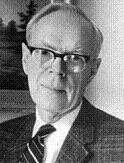
In 1928 Overbrook, Penn.-born historian Charles Coleman Sellers (1903-80) (great-grandson of painter Charles Wilsson Peale) pub. his first book Lorenzo Dow: The Bearer of the Word, followed by Benedict Arnold: The Proud Warrior (1930), Theophilus, the Battle-axe: A History of the Lives and Adventures of Theophilus Ransom Gates [1787-1846] and the Battle-axes (1930), Portraits and Miniatures by Charles Wilsson Peale (1952), Ben Franklin in Portraiture (1962), Charles Wilsson Peale (1969) (Bancroft Prize), Dickinson College: A History (1973), Patience Wright, American Artist and Spy in George III's London (1976), and Mr. Peale's Museum: Charles Willson Peale and the First Popular Museum of Natural Science and Art (1980).
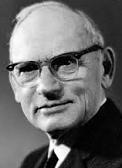
In 1929 Papillion, Neb.-born Progressive historian (Socialist) (Episcopalian-turned-Unitarian) Merle Eugene Curti (1897-1996) (student of Frederick Jackson Turner) pub. his first book The American Peace Crusade, 1815-1860, based on his Harvard U. dissertation after Arthur M. Schlesinger Sr. rejects his first proposal, which turns out to be an early version of "The Growth of American Thought" (1943). He follows with Bryan and World Peace (1931), The Social Ideas of American Educators (1932), and Peace or War: The American Struggle, 1636-1936 (1936), founding Peace and Conflict Studies. In 1942 he becomes Frederick Jackson Turner Professor of History at the U. of Wisc. in Madison (until 1968), bringing up a gen. of students incl. Richard Hofstadter. In 1943 he pub. The Growth of American Thought (Pulitzer Prize) (2nd ed. 1951), followed by The Roots of American Loyalty (1946), a study of patriotism, and The University of Wisconson: A History, 1848-1945 (3 vols.) (w/Vernon Rosco Carstenson, Edmund David Cronon, and John William Jenkins) (1949-94). In 1950 Curti and Lewis Paul Todd pub. Rise of the American Nation (2 vols.), which becomes a popular textbook, going through several eds. even after their deaths. He follows with Human Nature in American Thought: A History (1980), and American Philanthropy Abroad (1988). In 1978 the Org. of Am. Historians establishes the Merle Curti Award for the best book on social, intellectual, and/or cultural history; the first award goes to Henry F. May for The Enlightenment in America.
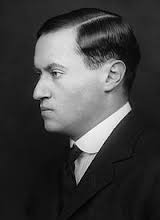
In 1929 Polish-born British Jewish Zionist historian Sir Lewis Bernstein Namier (Ludwik Niemirowski) (1888-1960), a Germanophobe known for the 1942 soundbyte: "It did not require either 1914, or 1933, or 1939 to teach me the truth about the Germans. Long before the last war I considered them a deadly menace to Europe and the civilisation", along with the label of "taking ideas out of history" (Sir A.J.P. Taylor) pub. his first work The Structure of Politics at the Accession of George III, which uses prosopographical methods (interlocking bios.) and minute examination of facts (Namerisation) to overthrow the Whig view of Macaulay, Lecky, and Trevelyan that British political history from 1688 was all about a 2-party Whig-Tory system bolstering a constitutional monarchy and cabinet system based on a party majority in the House of Commons, and conclude that both Tories and Whigs were small fluid ever-shifting groups whose views changed on an issue-by-issue basis, with the soundbyte: "The political life of the period could be fully described without ever using a party denomination." He follows with England in the Age of the American Revolution (1930), Skyscrapers and Other Essays (1931), In the Margin of History (1939), Conflicts: Studies in Contemporary History (1942), 1848: The Revolution of the Intellectuals (1944), which claims that the Revs. of 1848 launched a new age of nationalism, not liberalism as they hoped, Facing East: Essays on Germany, the Balkans and Russia in the Twentieth Century (1947), Diplomatic Prelude, 1938-1939 (1948), Europe in Decay: A Study in Disintegration, 1936-1940 (1952), which condemns the Third Reich and appeasement, but never tries to explain the reasons for the latter?, Avenues of History (1952), In the Nazi Era (1952), Monarchy and the Party System (The Romanes Lecture) (1952), Basic Factors in Nineteenth-Century European History (1953), Personalities and Powers (1955), Vanished Supremacies: Essays on European History, 1812-1918 (1958), Crossroads of Power: Essays on Eighteenth-Century England (1962) (posth.), which contains the soundbyte: "Historical research to this day remains unorganized, and the historian is expected to make his own instruments or do without them; and so with wooden ploughs we continue to draw lonely furrows, most successfully when we strike sand", and The House of Commons, 1754-1790 (3 vols.) (1964) (posth.). "History-writing is not a visit of condolence."
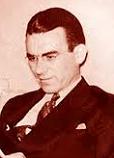
In 1929 after devoting his career to the study of the common soldier, Halls, Tenn.-born historian Bell Irvin Wiley (1906-80) pub. his first book Cotton and Slavery in the History of West Tennessee, followed by Southern Negroes, 1861-1865, which explodes myths about slaves incl. that they remained loyal to their masters after emancipation, and that they were as well treated as white soldiers in the Union Army. He follows with The Life of Johnny Reb: The Common Soldier of the Confederacy (1943), a big hit, exposing the "deep-seated [hatred that] had been accumulating from the time of [the soldiers'] earliest recollections" based on their perception of the North as a "godless and grasping society", while at the same time the white soldiers on both sides shared fraternal feelings: "Men would shoot and kill when the time came. Yet there was a familiarity and an understanding, at times something that verged almost on liking"; "The war of the sixties has been called the 'polite war', and in a sense, the designation is apt. Men of the opposing armies when not actually engaged in a shooting fray were wont to observe niceties that in twentieth-century warfare would be regarded as absurd." He follows with The Plain People of the Confederacy (1943), The Life of Billy Yank: The Common Soldier of the Union (1952), The Road to Appomattox (1956), The Role of the Archivist in the Civil War Centennial (1961), Embattled Confederates: An Illustrated History of Southerners at War (1964), Confederate Women: Beyond the Petticoat (1975), and Slaves No More: Letters from Liberia, 1833-1869.


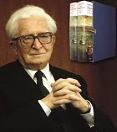
In 1929 the French journal Annales d'Histoire Economique et Sociale is founded by Marc Leopold Benjamin Bloch (1886-1944) and Lucien Febvre (1878-1956), and later ed. by Fernand Braudel (1902-85) as the official journal of the Annales School for the study of late medieval and early modern Europe before the 1789 French Rev., which ditches a traditional narrative of events for a problem-oriented analytical history stressing the mental framework ("mentalites"), taking all levels of society into consideration and collaborating with other disciplines incl. psychology, sociology, economics, linguistics, geography, and anthropology, emphasizing the role of large-scale socioeconomic factors in the making and writing of history, relying on social scientific methods and eschewing Marxist historiography, going on to dominate French historiography in this cent.; Braudel makes the Annales School #1 in France and other countries after 1950, becoming leader of the Annales School in the 1950s-1960s, spending his career on three big projects: The Mediterranean and the Mediterranean World in the Age of Philip II (3 vols.) (1923–49, 1949–66), going way beyond the title, from the world of Odysseus to the modern day, moving out from the Mediterranean to the New World and other destinations of Mediterranean traders, adding in material on zoology, material life, numismatics, economics, demography, politics, and diplomacy; Civilization and Capitalism, 15th-18th Centuries (3 vols.) (1955–79), incl. "The Structure of Everyday Life", "The Wheels of Commerce", and "The Perspective of the World", and the unfinished The Identity of France (2 vols.) (1970–85), incl. "History and Environment", and "People and Production". "History may be divided into three movements: what moves rapidly, what moves slowly and what appears not to move at all."
In 1929 the quarterly Journal of Modern History begins pub. by the U. of Chicago Press, covering the U.K. and Europe from 1500 to the present incl. Russia and the Balkans, with Bernadotte Everly Schmitt as ed. #1 (until 1946).
In 1929 the John H. Dunning Prize is established by the Am. Historical Assoc. (AHA) for the best book on U.S. history; the first award goes to Haywood J. Pearce Jr. for Benjamin H. Hill: Secession and Reconstruction.
In 1929 the Eastman Visiting Professorship at Balliol College, Oxford U. to promote greater understanding between the U.S. and U.K. is founded by a $200K donation of Eastman Kodak co. founder George Eastman for senior Am. professors, to be appointed for a term of 2-5 years.

In 1930 Pittsburgh, Penn.-born historian and liberal activist Henry Steele Commager (1902-98) pub. his first book The Growth of the American Republic (2 vols.) (w/Samuel Eliot Morison), followed by Documents of American History (1934), Theodore Parker: Yankee Crusader (1936), The Heritage of America: Readings in American History for High Schools (w/Allan Nevins) (1939), which goes through 10 eds. by 1988, Majority Rule and Minority Rights (1943), The American Mind: An Interpretation of American Thought and Character Since the 1880s (1950), Freedom, Loyalty, Dissent (1954), The Search for a Usable Past and Other Essays in Historiography (1965), Freedom and Order: A Commentary on the American Political Scene (1966), The Defeat of America: War, Presidential Power, and the National Character (1974), Jefferson, Nationalism, and the Enlightenment (1975), The Empire of Reason: How Europe Imagined and America Realized the Enlightenment (1977), and Commager on Tocqueville (1993). "What every college must do is hold up before the young the spectacle of greatness"; "A free society cherishes nonconformity. It knows that from the non-conformist, from the eccentric, have come many of the great ideas of freedom. Free society must fertilize the soil in which non-conformity and dissent and individualism can grow"; "History is a jangle of accidents, blunders, surprises and absurdities, and so is our knowledge of it, but if we are to report it at all we must impose some order upon it."
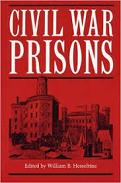
In 1930 Brucetown, Va.-born U. of Wisc. historian William Best Hesseltine (1902-63) pub. his first book Civil War Prisons, followed by Ulysses S. Grant: Politician (1935), A History of the South, 1607-1936 (1936), Lincoln and the War Governors (1948), and The Rise and Fall of Third Parties from Anti-Masonry to Wallace (1948). Speaking of third parties, in 1948 he runs for U.S. vice-pres. on the Socialist Party of the U.S. ticket. In 1950 he pub. Confederate Leaders in the New South, followed by Pioneer's Mission: The Story of Lyman Copeland Draper (1954), The South in American History (1960), Lincoln's Plan of Reconstruction (1960), The Blue and the Gray on the Nile (w/Hazel Catherine Wolf) (1961), Third-Party Movements in the United States (1962), and The Tragic Conflict: The Civil War and Reconstruction (1962). "Writing intellectual history is like trying to nail jelly to the wall."

In 1931 London-born historian-diplomat-jurist E.H. (Edward Hallett) Carr (1892-1983) pub. his first book Dostoevsky (1882-1881): A New Biography. In 1934 he pub. Karl Marx: A Study in Fanaticism, followed by Michael Bakunin (1937), and The Twenty Years' Crisis, 1919-1939: An Introduction to the Study of International Relations (rev. ed. 1946), a history of internat. relations. In 1950-78 he pub. his monumental A History of Soviet Russia (14 vols.), which praises Stalin, pissing-off historians incl. Richard Pipes, who compares his dismissal of the 1921 Soviet famine to Holocaust denial. In 1961 he pub. What Is History? (rev. ed. 1986), which pooh-poohs the idea that history is a series of accidents, as in the Cleopatra's nose story, arguing that it is actually a series of interacting causal chains, but noting that historians selective choose which facts are important, such as ignoring how millions crossed the Rubicon River until Caesar did it in 49 B.C.E., and dissing the "cult of individualism" that ignores that everybody is a product of society, waffling on the question of whether and how history is a science instead of an art.

In 1931 Buffalo, N.Y.-born, Albuquerque, N.M.-raised historian-novelist Paul Horgan (1903-95) (who met J. Robert Oppenheimer in 1922 and became friends) pub. his first non-fiction book Men of Arms, followed by From the Royal City (1936), New Mexico's Own Chronicle (w/Maurice Garland Fulton) (1937), Diary and Letters of Josiah Gregg, 1840-1847 (1941), Look at America: The Southwest (1947), Great River: The Rio Grande in North American History (2 vols.) (1954) (Pulitzer Prize), The Centuries of Santa Fe (1956), Rome Eternal (1959), Citizen of New Salem (1961), Conquistadors in North American History (1963), Songs After Lincoln (1965), The Heroic Triad: Essays in the Social Energies of Three Southwestern Cultures (1970), Lamy of Santa Fe: His Life and Times (1975) (Pulitzer Prize), about Santa Fe archbishop #1 Jean-Baptiste Lamy (1814-88), who was against slavery, and was the subject of Willa Cather's 1927 novel Death Comes for the Archbishop, and Josiah Gregg and His Vision of the Early West (1979).
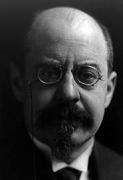
In 1931 German Marxist historian Eckart Kehr (1902-33) pub. Schlachtflottenbau und Parteipolitik 1894-1901: Versuch eines Querschnitts durch die innenpolitischen, sozialen und ideologischen Voraussetzungen des deutschen Imperialismus (Battle Fleet Construction and Party Politics in Germany, 1894-1901: A Cross-Section of the Political, Social and Ideological Preconditions of German Imperialism), his doctoral thesis, breaking with his teacher Friedrich Meineke and showing how the dominant German historicism that considers foreign policy and heroic personalities as the dominant force in the life of the German state is moose hockey, because it's really about economics and class struggle like Marx said, causing him to become known as the enfante terrible of German historians during the Weimar Repub.; too bad, he dies in 1933 of a heart attack after pub only 16 more essays, and its arrogant tone and factual errors keep it from being accepted until the 1960s-1970s, when Hans Ulrich Wehler et al. revive it to create the Bielefield School of social history.

In 1931 Garnett, Kan.-born poet-dramatist-biographer Edgar Lee Masters (1868-1950) (Clarence Darrow's last law partner in 1903-8) pub. Lincoln the Man, which demythologizes Abraham Lincoln as a tool of bankers wanting a new Bank of the U.S., "that political system which doles favors to the strong in order to win and keep their adherence to the government", and advocates "a people taxed to make profits for enterprises that cannot stand alone", who trampled the Constitution to declare war and run it like a dictator, setting a dangerous precedent; the Whig Party led by Lincoln's mentor Henry Clay "had no platform to announce because its principles were plunder and nothing else"; "The political history of America has been written for the most part by those who were unfriendly to the theory of a confederated republic, or who did not understand it. It has been written by devotees of the protective principle [tariff], by centralists, and to a large degree by New England"; "For in six weeks he was to inaugurate a war without the American people having anything to say about it. He was to call for and send troops into the South, and thus stir that psychology of hate and fear from which a people cannot extricate themselves, though knowing and saying that the war was started by usurpation. Did he mean that he would bow to the American people when the law was laid down by their courts, through which alone the law be interpreted as the Constitutional voice of the people? No, he did not mean that; because when Taney decided that Lincoln had no power to suspend the writ of habeas corpus, Lincoln flouted and trampled the decision of the court"; "The War between the States demonstrated that salvation is not of the Jews, but of the Greeks. The World War added to this proof; for Wilson did many things that Lincoln did, and with Lincoln as authority for doing them. P erhaps it will happen again that a few men, deciding what is a cause of war, and what is necessary to its successful prosecution, may, as Lincoln and Wilson did, seal the lips of discussion and shackle the press; but no less the ideal of a just state, which has founded itself in reason and in free speech, will remain."

In 1931 Panola County, Tex.-born U. of Texas at Austin history prof. Walter Prescott Webb (1888-1963) pub. his doctoral thesis The Great Plains: A Study in Institutions and Environment, which proposes his version of the Great Frontier Thesis, that "the Great Plains environment... constitutes a geographic unity whose influences have been so powerful as to put a characteristic mark upon everything that survives within its borders", citing the 6-shooter, barbed wire, and the windmill as essential to its settlement; claims that the 98th meridian constitutes an "institutional fault", with "practically every institution that was carried across it... either broken and remade or else greatly altered"; hailed as one of the top contributions to Am. history since WWI by the Social Science Research Council in 1939. In 1935 he pub. The Texas Rangers: A Century of Frontier Defense, which becomes a std. work. In 1937 he pub. Divided We Stand: The Crisis of a Frontierless Democracy, about the economic domination of the North through tariffs, Civil War pensions, and patent monopolies. In 1951 he pub. The Great Frontier, which proposes the Boom Hypothesis, that the new lands discovered by Columbus in 1492 ran out by 1900, closing the frontier and giving the U.S. economic and ecological problems, threatening the future of individualism, capitalism, and democracy. In 1952 he pub. Handbook of Texas (2 vols.); followed by "New Handbook of Texas" (6 vols.) (1996). In 1954 he pub. More Water for Texas: The Problem and the Plan. In 1959 he pub. An Honest Preface and Other Essays.

In 1933 New Rochelle, N.Y.-born journalist-historian Herbert Sebastian Agar (1897-1980) (ed. of the Louisville Courier-Journal) pub. The People's Choice: From Washington to Harding - A Study in Democracy (Pulitzer Prize). He follows with Land of the Free (1935). Who Owns America? A New Declaration of Independence (w/Allen Tate) (1936), The Pursuit of Happiness: The Story of American Democracy (1938), and A Time for Greatness (1942). In 1950 he pub. The Price of Union: The Influence of the American Temper on the Course of History, which becomes one of John F. Kennedy's favorite books, a passage about John Quincy Adams inspiring him to write "Profiles in Courage" (1956). He follows with Abraham Lincoln (1952), The Unquiet Years: U.S.A. 1945-1955 (1957), The Price of Power: America Since 1945 (1957), The Saving Remnant: An Account of Jewish Survival Since 1914 (1960), The Perils of Democracy (1965), and The Darkest Year: Britain Alone, June 1940 - June 1941 (1972). "The truth which makes men free is for the most part the truth which men prefer not to hear"; "Civilization rests on a set of promises; if the promises are broken too often, the civilization dies, no matter how rich it may be, or how mechanically clever. Hope and faith depend on the promises; if hope and faith go, everything goes"; "This is the burden of freedom: that it is all our fault or our credit."
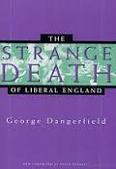
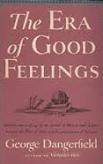
In 1933 Newbury, Berkshire, England-born Am. historian-journalist George Bubb Dangerfield (1904-86) pub. Bengal Mutiny: The Story of the Sepoy Rebellion. In 1935 he pub. The Strange Death of Liberal England, which details the rapid decline of the Liberal Party in 1910-1914, which he attributes to the Conservative Party's fight against the 1911 Parliament Act, the Ulster Unionists' threat of civil war, the suffragette movement, militant trade unions, and syndicalism; causes the title "The Strange Death of..." to become popular with political historians; "When codes, when religions, when ideas cease to move forward, it is always in some shining illusion that an alarmed humanity attempts to take refuge." In 1941 he pub. Victoria's Heir: The Education of a Prince, followed by The Era of Good Feelings (1952) (Pulitzer Prize) (Bancroft Prize), covering from the start of the War of 1812 to the start of Andrew Jackson's admin. on Mar. 4, 1829, showing the political transition "from the great dictum that central government is best when it governs least to the great dictum that central government must sometimes intervene strongly on behalf of the weak and the oppressed and the exploited." He follows with Chancellor Robert R. Livingston of New York, 1746-1813 (1960), The Awakening of American Nationalism, 1815-1828 (1965), and The Damnable Question: A History of Anglo-Irish Relations (1976).
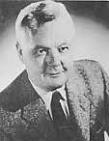
In 1933 Chicago, Ill.-born Harvard U. historian ("the master of American intellectual history" - Alfred Kazin) Perry G.E. Miller (1905-63) pub. Orthodoxy in Massachusetts, 1630-1650, followed by The New England Mind: The Seventeenth Century (1939), an epic study tracing U.S. culture to the conflict between religious and commercial values (individualism vs. community) among the Puritans, using a cultural rather than psychological or economic approach to understand the worldview of the Puritans, making him the #1 authority on Am. Puritanism, and cofounder of the field of Am. Studies. In 1949 he pub. Jonathan Edwards, treating him as an 18th cent. artist working in the medium of theology and religion. In 1959 he pub. The Transcendentalists: An Anthology, followed by The New England Mind: From Colony to Province (1953), Roger Williams: His Contribution to the American Tradition, American Thought: Civil War to World War I (1954), Religion and Freedom of Thought (1954), Errand into the Wilderness (1956), which tries to answer the question of why the first English colonists came to America, and how did they take it when their dream of building a model Puritan society in the wilderness was pooh-poohed by their homeland of Europe, The American Puritans (1956), The American Transcendentalists: Their Prose and Poetry (1957), The Raven and the Whale: Poe, Melville and the New York Literary Scene (1957), and Consciousness in Concord: The Text of Thoreau's Hitherto 'Lost Journal'. In 1961 he pub. The Legal Mind in America: From Independence to the Civil War. He dies on Dec. 9, 1963, leaving The Life of the Mind in America: From the Revolution to the Civil War (1965) (posth.) (Pulitzer Prize), vol. 1 of a planned 10-vol. series, and Nature's Nation (1967) (posth.).
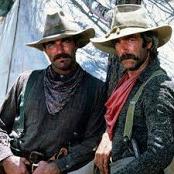
In 1933 Augusta, Ga.-born Duke U. historian of the Am. South Charles Sackett Sydnor (1898-1954) pub. his first book Slavery in Mississippi, which avoids the temptation for propaganda for a balanced perspective, causing African-Am. historian Carter G. Woodson to comment that he "apparently endeavored to write with restraint and care." He follows with A Gentleman of the Old Natchez Region: Benjamin L.C. Wailes (1938), and The Development of Southern Sectionalism, 1818-1848 (1948) (Mayflower Cup); "The best study of the anti-bellum South in print" (Am. Literature); "[a] pervading quality of thoughtful and dispassionate judgment" (Arthur M. Schlesinger Jr.); explores the contention of Ulrich Bonnell Phillips that Southern slavery was benign for slaves and unprofitable for masters, backing his conclusions with detailed research; claims that Southern sectionalism was "essentially dictated by self-interest", while the "wall of constitutional arguments" by John C. Calhoun et al. merely furnished "the righteous garb of legality and high principle", and all attempts at social reforms were met with "intellectual provincialism". He follows with Gentlemen Freeholders: Political Practices in Washington's Virginia (1952), about how the contending forces of aristocracy and democracy coexisted in gen. harmony, with the members of the House of Burgesses chosen so that they were "more or less acceptable both to the leaders and to the rank and le of the voters" after being screened "first by the gentry and then by the freeholders". In 1955 after his death the Southern Historical Assoc. establishes the biennial Charles S. Sydnor Award of $500 for the best book on the history of the Am. South.
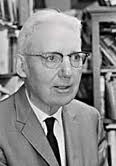
In 1934 San Jose, Calif.-born Stanford U. diplomatic historian Thomas Andrew Bailey (1902-83) (coiner of the term "international gangsterism", who adopts the classroom presentation style of Ephraim Douglass Adams, becoming popular with students, and who saves all his notes on shoebox-size 4" x 6" canary yellow paper typed with four carbons) pub. his first book Theodore Roosevelt and the Japanese-American Crisis: An Account of the International Complications Arising from the Race Problems on the Pacific Coast, followed by The American Pageant, which becomes the most popular textbook on Am. history in the U.S., reaching 16 eds. by 2015. He follows with A Diplomatic History of the American People (1940), The Policy of the United States Toward the Neutrals, 1917-1918 (1942), The Man in the Street: The Impact of American Public Opinion on Foreign Policy (1948), Wilson and the Peacemakers, which incl. Woodrow Wilson and the Lost Peace (1944) and Woodrow Wilson and the Great Betrayal (1945), America Faces Russia: Russian-American Relations from Early Times to Our Day (1950), Presidential Greatness (1960), The Lusitania Disaster (w/Capt. Paul B. Ryan) (1975), The Pugnacious Presidents (1980), and The American Pageant Revisited (autobio.) (1982).
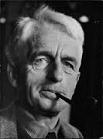
In 1934 Sheffield-born English Oxford U. historian Vivian Hunter Galbraith (1889-1976) (student of Sir Maurice Powicke , Thomas Frederick Tout, and Henry William Carless Davis) pub. An Introduction to the Use of the Public Records (2nd ed. 1935). In 1957 he ends a longstanding dispute about Knighton's Chronicle, proving that Henry Knighton wrote all five vols. He follows with The Making of Domesday Book (1961), and Domesday Book: Its Place in Administrative History (1975).

In 1934 amid his torrent of publications stretching back to 1915, London-born English historian Arnold Joseph Toynbee (1889-1975) begins pub. A Study of History (12 vols.) (1934-61), which "examined the rise and fall of 26 civilizations in the course of human history, and he concluded that they rose by responding successfully to challenges under the leadership of creative minorities composed of elite leaders" (Encyclopaedia Britannica); there are 19 major civilizations, four abortive civilizations, and five arrested civilizations; claims that they all pass through the same stages of genesis, growth, time of troubles, universal state, and disintegration, which he concludes can be avoided, with a civilization prolonging its life indefinitely by successfully responding to its internal-external challenges. Too bad, the religious beliefs underpinning all his works makes them fall off the map after he dies.
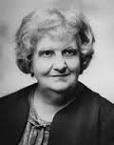
In 1934 Southsea, Hampshire-born English historian Dame Frances Amelia Yates (1899-1981) pub. John Florio: The Life of an Italian in Shakespeare's England, followed by A Study of Love's Labour's Lost (1936), exploring whether Holofernes was really Italian brain man John Florio (1553-1625). In 1941 she joins the Warburg Inst. She follows with The French Academies of the Sixteenth Century (1947), The Valois Tapestries (1959), and Giordano Bruno and the Hermetic Tradition (1964), which becomes a big hit with Renaissance historians, revealing the survival of hermeticism, mysticism, magic, and Gnosticism; claims that Bruno was burned at the stake in 1600 for his hermeticism rather than for heliocentrism. She follows with The Art of Memory (1966), about how the ancients did it sans printing and computers, from Simonides of Ceos to Giordano Bruno's Memory Wheel (1582), ending with Gottfried Leibniz and the emergence of the scientific method in the 17th cent. She follows with Theatre of the World (1969), which claims that the Globe Theatre was Vitruvian in architectural design and symbolism, The Rosicrucian Enlightenment (1972), Astraea: The Imperial Theme in the Sixteenth Century (1975), Shakespeare's Last Plays: A New Approach (1975), The Occult Philosophy in the Elizabethan Age (1979), Lull and Bruno: Collected Essays, Vol. 1 (1982) (posth.), Renaissance and Reform: The Italian Contribution: Collected Essays, Vol. 2 (1983) (posth.), and Ideas and Ideals in the North European Renaissance: Collected Essays, Vol. 3 (1984) (posth.).
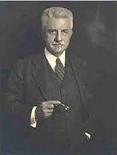
In 1936 Berlin, Germany-born Am. philosopher-historian Arthur Oncken Lovejoy (1873-1962), founder of the History of Ideas Club at John Hopkins U. pub. Primitivism and Related Ideas in Antiquity (w/George Boas), followed by The Great Chain of Being: A Study in the History of an Idea (1936), discussing Plato's concept (plentitude, continuity, and gradation) and its evolution until it became kaput in the 19th cent., becoming a hit and founding the discipline of the History of Ideas; "Next to the word 'Nature', the 'Great Chain of Being' was the sacred phrase of the eighteenth century, playing a part somewhat analogous to that of the blessed word 'evolution' in the late nineteenth." In 1940 he founds the Journal of the History of Ideas, focusing on "unit ideas" that combine and recombine over time. In 1948 he pub. Essays in the History of Ideas, followed by The Revolt Against Dualism (1960), a critique of New Realism, The Reason, the Understanding, and Time (1961), Reflections on Human Nature (1961), and The Thirteen Pragmatisms and Other Essays (1963) (posth.), criticizing the Pragmatists.

In 1937 Peterhead, Scotland-born Am. mathematician Eric Temple Bell (1883-1960) pub. Men of Mathematics: The Lives and Achievements of the Great Mathematicians from Zeno to Poincare, covering 40+ mathematicians, making fans of Freeman Dyson, John Forbes Nash Jr., TLW et al.; too bad, it's full of moose hockey and anecdotal accounts?
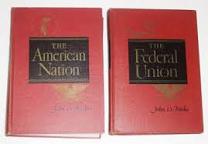
In 1937 UCB historian John Donald Hicks (1890-1972) pub. The Federal Union, first of the Hicks Histories, a trio of popular Am. history textbooks, incl. The American Nation (1941), and A Short History of American Democracy (1943).
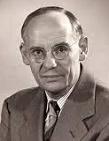
In 1937 after getting interested in FDR's U.S. Judicial Procedures Reform Bill of 1937 (AKA the Court-Packing Plan), Woodruff, Utah-born Mormon journalist Merlo John Pusey (1902-85) of the Washington Post (1928-71) pub. his first book The Supreme Court Crisis, followed by Big Government: Can We Control It? (1945), Charles Evans Hughes (2 vols.) (1951) (Pulitzer Prize), Eisenhower, the President, The Way We Go to War (1969), The USA Astride the Globe (1971), and Eugene Meyer (1974) (his boss at the Washington Post).
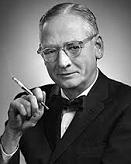
In 1938 Bay City, Mich.-born Am. West historian Ray Allen Billington (1903-81) pub. his first book The Protestant Crusade 1800-1860: A Study of the Origins of American Nativism, followed by Western Expansion: A History of the American Frontier (1949) (5th ed. 2001 w/Martin Ridge), which becomes a std. work, American History After 1865 (1950) (later eds. w/Martin Ridge), and The Far Western Frontier (1956). He follows with How the Frontier Shaped the American Character (Apr. 1958 ed. of American Heritage Mag.), which defends Frederick Jackson's 60+-y.-o. Frontier Thesis, Westward Movement in the United States (1959), Words That Won the West (Nov. 18, 1963), America's Frontier Heritage (1963), The Frontier Thesis: Valid Interpretation of American History? (1966), The American Frontier Thesis: Attack and Defense (1966), Frederick Jackson Turner: Historian, Teacher, Scholar (1973), America's Frontier Culture: Three Essays (1977), Limericks: Historical and Hysterical (1980), and Land of Savagery, Land of Promise: The European Image of the American Frontier in the Nineteenth Century (1985) (posth.). In 1961 he co-founds the Western History Assoc. in Santa Fe, N.M., which pub. The American West Magazine, Western Historical Quarterly, and Montana: The Magazine of Western History. After his 1981 death the Org. of Am. Historians (OAH) establishes the Ray Allen Billington Prize this year for the best book about Am. frontier history, incl. North Am., South Am., all post-1492 pioneer experiences, and comparisons between Am. frontiers and other around the world; the first award (1981) goes to John D. Unruh for "The Plains Across: The Overland Emigrants and the Trans-Mississippi West, 1840-60".



On Sept. 1, 1939 - Sept. 2, 1945 the horrific $3.5T World War II resulted in 24M military and 49M civilian deaths, and featured the low point of the Jewish Holocaust (Shoah) by the German Nazis, I guess it was the Jews' fault for not ransoming themselves to go to Israel before they could round them up for the camps. The whole experience turned Jews from lovers into fighters, ramping up the Zionist movement with full world sympathy and support by new world superpower U.S., which had its own guilt trip because on Nov. 24, 1942 Budapest-born Am. Zionist leader Rabbi Stephen Samuel Wise (1874-1949) announced in a press conference in Washington, D.C. that he was authorized by the U.S. State Dept. to confirm that the Nazis had murdered 2M Jews as part of a plan to exterminate all Jews in Europe; too bad, the nat. newspapers didn't consider it front page news, and the U.S. govt. did nada. After the war ended and Americans toured the concentration camps in horror, Polish-born Jewish scholar Raphael Lemkin (1900-59), who single-handedly led an unsuccessful campaign to get the League of Nations to give internat. protections against genocide starting in 1933 finally got what he wanted after his own people got it, namely the Dec. 9, 1948 U.N. Convention on the Prevention and Punishment of the Crime of Genocide (Gen. Assembly Resolution 260), which didn't come in force until Jan. 12, 1951, and which the U.S. still didn't ratify until 1988.
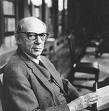
In 1939 after being born in Riga, Latvia, witnessing the St. Petersburg revs. in 1917, emigrating to the West in 1921, and turning down a philosophy fellowship to study history, British Jewish historian-philosopher ("Sir Sagacity") Sir Isaiah Berlin (1909-97) pub. Karl Marx: His Life and Environment, claiming that Marx's system depends upon indefensible metaphysical presuppositions, launching his career as the #1 historian of ideas, "the dominant scholar of his generation", championing freedom and diversity against control and uniformity, becoming known for his deep rapid speaking voice, founding Wolfson College at Oxford U. In 1945 he returns to Russia in 1945 and meets Boris Pasternak and Anna Akhmatova. In 1953 he pub. The Hedgehog and the Fox: An Essay on Tolstoy's View of History (1953) (2nd ed. 2014), a study of Leo Tolstoy's view of history as embodied in his "War and Peace", based on the statement by ancient Greek poet Archilochus: "The Fox knows many things, but the hedgehog knows one big thing", viewing thinkers as either hedgehogs (Plato, Lucretius, Dante, Pascal, Hegel, Dostoevsky, Nietzsche, Ibsen, Proust, Braudel) or foxes (Herodotus, Aristotle, Erasmus, Shakespeare, Montaigne, Moliere, Goethe, Pushkin, Balzac, Joyce, Anderson) or a combo (Tolstoy) - those who have one big idea and many smaller ones are lions? Those with no ideas are sheep? Humanity can be divided into those who like laptops and those who like desktops? In 1956 he pub. The Age of Enlightenment: The Eighteenth-Century Philosophers. In 1959 he pub. Two Concepts of Liberty; negative (sans state interference) vs. positive liberty (state-regulated). In 1978 he pub. Russian Thinkers (w/Aileen Kelly), followed by Against the Current: Essays in the History of Ideas (1979), and Personal Impressions (1980) (2nd ed. 1998), his impressions of 17 celebs incl. Winston Churchill, FDR, Boris Pasternak, Anna Akhmatova, and Albert Einstein, with an intro. by Sir Noel Annan, incl. "Nobody in our time has invested ideas with such personality, given them a corporeal shape and breathed life into them more than Isaiah Berlin; and he succeeds in doing so because ideas for him are not mere abstractions. They live... in the minds of men and women, inspiring them, shaping their lives, influencing their actions and changing the course of history." In 1990 he pub. The Crooked Timber of Humanity: Chapters in the History of Ideas, based on Immanuel Kant's line: "Out of the crooked timber of humanity no straight thing was ever made", followed by The Sense of Reality: Studies in Ideas and their History (1996), On Political Judgment (1996), rejecting any ideology that fails to acknowledge plurality and variety of human experience, while disputing that there can be a political science, with the soundbyte: "Obviously what matters is to understand a particular situation in its full uniqueness, the particular men and events and dangers, the particular hopes and fears which are actively at work in a particular place at a particular time." He follows with Three Critics of the Enlightenment: Vico, Hamann, Herder (2000) (posth.), The Soviet Mind: Russian Culture under Communism (2004) (posth.), and Political Ideas in the Romantic Age: Their Rise and Influence on Modern Thought (2006) (posth.). Stores most of his writings in the basement of Headington House, his elegant Queen Anne residence in Oxford, and his lectures often went unpublished, while his essays were scattered in so many magazines and journals that his body of work was inaccessible to most people until his grad student Henry Hardy collects and pub. 5 vols. of it; "Like Our Lord and Socrates he does not publish much, he thinks and says a great deal and has had an enormous influence on our times." (Maurice Bowra)
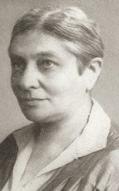
In 1939 after becoming the 2nd woman univ. prof. in Germany in 1919 then fleeing the Nazis to the U.S. in 1934, Schonau, Prussia-born German art historian-archeologist Margarete Bieber (1879-1978) pub. The History of the Greek and Roman Theater, which becomes a std. work. In 1955 she pub. The Sculpture of the Hellenistic Age, followed by Autobiography of a Female Scholar (1959), Alexander the Great in Greek and Roman Art (1964), and Ancient Copies: Contributions to the History of Greek and Roman Art (1977).

In 1939 Columbus, Ohio-born big brain historian Arthur Meier Schlesinger Jr. (Arthur Bancroft Schlesinger) (1917-2007), son of Arthur M. Schlesinger Sr. (1888-1965) pub. his first book Orestes A. Brownson: A Pilgrim's Progress, about New England activist Orestes Augustus Brownson (1803-76), launching his career exploring the history of 20th cent. U.S. liberalism and its leaders. In 1945 he pub. The Age of Jackson (Pulitzer Prize). In 1957-60 he pub. The Age of Roosevelt (3 vols.), incl. "The Crisis of the Old Order: 1919-1933" (1957), "The Coming of the New Deal: 1933-1935" (1959), "The Politics of Upheaval: 1935-1936" (1960). In 1961-3 he becomes "court historian" to Pres. John F. Kennedy. In 1965 he pub. the bestseller A Thousand Days: John F. Kennedy in the White House (Pulitzer Prize), which makes him an instant nerd celeb. In 1973 he pub. The Imperial Presidency, a history of the U.S. presidency starting with Washington, warning of the arrival of "a conception of presidential power so spacious and peremptory as to imply a radical transformation of the traditional polity". In 1978 he pub. the bestseller Robert Kennedy and His Times, which is made into a 1985 TV miniseries. In 1983 he pub. Almanac of American History (rev. ed. 2004). In 2008 the annual Arthur M. Schlesinger Jr. Prize for distinguished writing in American history of enduring public significance is established by the Society of Am. Historians, with a $10K award.

In 1940 York-born English Marxist historian John Edward Christopher Hill (1912-2003) pub. his first book The English Revolution, 1640 (3rd ed. 1955); "The object of this essay is to suggest an interpretation of the events of the seventeenth century different from that which most of us were taught at school. To summarise it briefly, this interpretation is that the English Revolution of 1640-60 was a great social movement like the French Revolution of 1789. The state power protecting an old order that was essentially feudal was violently overthrown, power passed into the hands of a new class, and so the freer development of capitalism was made possible. The Civil War was a class war, in which the despotism of Charles I was defended by the reactionary forces of the established Church and conservative landlords. Parliament beat the King because it could appeal to the enthusiastic support of the trading and industrial classes in town and countryside, to the yeomen and progressive gentry, and to wider masses of the population whenever they were able by free discussion to understand what the struggle was really about." In 1958 he pub. Puritanism and Revolution: Studies in Interpretation of the English Revolution of the 17th Century, followed by The Century of Revolution, 1603-1714 (1961) (2nd ed. 1980), Society and Puritanism in Pre-Revolutionary England (1964), Intellectual Origins of the English Revolution (1965) (rev. ed. 1997), Reformation to Industrial Revolution: A Social and Economic History of Britain, 1530-1780 (1967) (rev. ed. 1969), God's Englishman: Oliver Cromwell and the English Revolution (1970), AntiChrist in 17th Century England (1971) (rev. ed. 1990), The World Turned Upside Down: Radical Ideas During the English Revolution (1972), Change and Continuity in Seventeenth-Century England (1974) (rev. ed. 1991), Milton and the English Revolution (1977), The World of the Muggletonians (1983), The Experience of Defeat: Milton and Some Contemporaries (1984), The Collected Essays of Christopher Hill (3 vols.), incl. "Writing and Revolution" (1985), "Religion and Politics" (1986), "People and Ideas" (1986), A Turbulent, Seditious, and Factious People: John Bunyan and His Church, 1628–1688 (1989), A Nation of Change and Novelty: Radical Politics, Religion and Literature in Seventeenth-Century England (1990), The English Bible and the Seventeenth-Century Revolution (1992), and Liberty Against the Law: Some Seventeenth-Century Controversies (1996).

On Nov. 27, 1940 Romanian child prodigy polyglot polymath historian Nicolae (Nicolai) (Nicolas) (Neculai) (Nicu) Iorga (Jorga) (1871-1940) (PM in 1931-2) is assassinated in Strejnic by the Iron Guard, leaving a gigantic body of 5,614 works, mainly on the history of the Ottoman Empire and SE Europe, keeping him from finishing his master history of Da World; his 1894 work Despre conceptia actuala a istoriei si geneza ei, contains the soundbyte: "History is the systematic exposition, free from all unrelated purpose, of facts irrespective of their nature, methodically acquired, through which human activity manifested itself, irrespective of place and time."
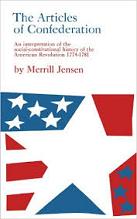
In 1940 Elk Horn, Iowa-born U. of Wash. (later U. of Wisc.) historian Merrill Monroe Jensen (1905-80), a follower of Charles Austin Beard's Progressive School of Am. History pub. his first book The Articles of Confederaton: An Interpretation of the Social-Constitutional History of the American Revolution, 1774-1781, which views the Am. Rev. as "an internal revolution carried on by the masses of the people against the local aristocracy", challenging the consensus view of the ratification process of the U.S. Constitution and claiming that the Articles of Confederation were a better expression of genuine grassroots dem. values, its replacement creating a system of govt. that minimized them. He follows with The New Nation: A History of the United States During the Confederation, 1781-1789 (1950), The Founding of a Nation: A History of the American Revolution, 1763-1776 (1968), and The American Revolution Within America (1974), after which he turns to editing primary document collections, incl. Tracts of the American REvolution (1967), The Documentary History of the First Federal Elections, 1788-1790 (w/Robert A. Becker and Gorden DenBoer) (1976-89), and The Documentary History of the Ratification of the Constitution (w/John P. Kaminski and Gaspare J. Saladino) 1976-) (31 vols.).
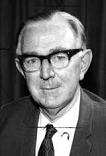
In 1941 Oxford-born English historian Ralph Henry Carless Davis (1918-91) (son of Henry William Carless Davis) pub. his first book The Mosques of Cairo, followed by A Catalogue of Mason's Marks as an Aid to Architectural History (1954) (Journal of the British Archaeological Assoc.), The Kalendar of Abbot Samson of Bury St. Edmunds and Related Documents (1954), A History of Medieval Europe: From Constantine to Saint Louis (1957) (3rd ed. 2005), Medieval European History, 395-1500: A Select Bibliography (1963), The Early Middle Ages (1964), King Stephen, 1135-1154 (1967), The Normans and Their Myth (1976), The Investiture Contest (w/Eric John) (1971), The Early History of Coventry (1976), Gesta Stephani (w/Kenneth Reginald Potter) (1976), The Writing of History in the Middle Ages: Essays Presented to Richard William Southern (1981), Studies in Mediaeval History: Presented to R.H.C. Davis (w/Henry Mayr-Harting, R.I. Moore) (1985), Blackwell Dictionary of Historians (w/John Cannon, William Doyle, and Jack P. Greene) (1988), The Medieval Warhorse: Origin, Development and Redevelopment (1989), From Alfred the Great to Stephen (1991), and The Gesta Guillelmi of William of Poitiers (1998).

In 1941 Brooklyn, N.Y.-born Harvard U. historian (1939-84) Oscar Handlin (1915-2011) (student of Arthur M. Schlesinger Jr.) pub. his first book Boston's Immigrants, 1790-1865: A Study in Acculturation (Dunning Prize), "The first historical case study of the impact of immigrants upon a particular society and the adjustment of the immigrants to that society. The writer has opened a new field for historical research and has also made a significant contribution to the literature of race and culture contacts" (Am. Journal of Sociology), founding the field of U.S. immigration history. In 1947 he and his 1st wife Mary Flug Handlin (-1976) pub. Commonwealth: A Study of the Role of Government in the American Economy: Massachusetts, 1774-1861, (rev. ed. Jan. 1987), revealing the importance of political action in the development of the U.S. free enterprise system. In 1951 he pub. The Uprooted: The Epic Story of the Great Migrations That Made the American People (Pulitzer Prize) (2nd ed. 2004); "Once I thought to write a history of the immigrants in America. Then I discovered that the immigrants were American history." He follows with Adventure in Freedom: 300 Years of Jewish Life in America (1954), Chance or Destiny: Turning Points in American History (1955), containing the soundbyte: "[History is] a line made up of a succession of points, with every point a turning point", Race and Nationality in American Life (1957), Readings in American History (? vols.) (1957), Al Smith and His America (1958), The Newcomers: Negroes and Puerto Ricans in a Changing Metropolis (1959), The Dimensions of Liberty (w/Mary Flug Handlin) (1961), The Distortion of America (1961) (2nd ed. 1996), the first critique of anti-Americanism in Am. univs., blaming the cancer of Marxist-Leninist ideology and showing how historians can shed their ideological biases and produce reliable histories; the 2nd ed. covers Yugoslavia, China, and Arthur Koestler; contains the soundbyte: "The study of the human past persuades me that, despite the frequent risks of failure, man has the capacity to make order an find purpose in the world in which he lives when he uses the power of his reason to do so." He follows with The Americans: A New History of the People of the United States (1963), A Continuing Task: The American Jewish Point Distribution Committee, 1914-1964 (1964), Fire Bell in the Night: The Crisis in Civil Rights (1964), which disses white supremacists and suburban liberals, but also disses the leftist solutions incl. quotas, school busing, and affirmative action, with the soundbyte: "Preferential treatment demands a departure from the ideal which judges individuals by their own merits rather than by their affiliations." In 1965 he testifies before Congress, helping them decide to pass the 1965 U.S. Immigration and Nationality Act to abolish the discriminatory immigration quota system. He follows with Children of the Uprooted (1966), The Popular Sources of Political Authority: Documents on the Massachusetts Constitution of 1780 (1966), The American Immigration Collection (42 vols.) (1969), The American College and American Culture (1970), and A Pictorial History of Immigration (1972). In 1976 his 1st wife Mary Flug Handlin dies, and in 1977 he marries Lilian Bombach Handlin. He follows with Truth in History (1979), which disses New Left historians and the corruption of the Am. univs. for faddishness, hiring quotas, overspecialization and fragmentation in history studies, and deficiencies in graduate training. In 1986 he and his 2nd wife Lilian Handlin begin pub. Liberty in America: 1600 to the Present (4 vols.) (1986-94), incl. Liberty and Power, 1600-1760 (1986), Liberty in Expansion, 1760-1850 (1989), Liberty in Peril, 1850-1920 (1992), Liberty and Equality, 1920-1994 (1994). He follows with From the Outer World (w/Lilian Handlin) (1997). "He reoriented the whole picture of the American story from the view that America was built on the spirit of the Wild West, to the idea that we are a nation of immigrants." (James Grossman)

In 1941 Am. historian Margaret Leech Pulitzer (1893-1974) pub. Reveille in Washington, 1860-1865, becoming the first woman to win a Pulitzer Prize for history; about Abraham Lincoln and his wife Mary Todd Lincoln, Confed. spy Rose Greenhow, and how the U.S. Civil War changed Washington, D.C.; it helps that she was married to Joseph Pulitzer's late son Ralph?; "Rich with the wastage of armies, the perennial fields were green. On the Capital dome, Armed Freedom rested on her sheathed sword." (last line) In 1959 she pub. In the Days of McKinley, which wins her a second Pulitzer Prize in history; concentrates on his last five years, attempting to revive his reputation.
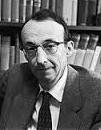
In 1941 Vinegar Hill Township, Ill-born. La. State U. historian (1941-79) T. (Thomas) Harry Williams (1909-79) (student of William B. Hesseltine) pub. his first book Lincoln and the Radicals. He follows with Lincoln and His Generals (1952), which claims that Pres. Lincoln was the Union's greatest general, and that Gen. Grant was a greater general than Robert E. Lee "because in a modern war he had a modern mind, and Lee did not", gaining him the Boyd Chair in History at La. State U. in 1953. He follows with P.G.T. Beauregard, Napoleon in Gray (1955), Americans at War: The Development of the American Military System (1960), A History of the United States (Since 1865) (w/Richard N. Current and Frank Feidel) (1960) (2nd ed. 1965), which becomes a popular textbook, followed by American History: A Survey (1961) (w/Richard N. Current, Frank Freidel, and Alan Brinkley), which bcomes a popular textbook for Am. history survey courses, Romance and Realism in Southern Politics (1961), McClellan, Sherman, and Grant (1962), and A History of the United States to 1877 (w/Richard N. Current and Frank Freidel) (1964), and Huey Long (1969) (Pulitzer Prize), which makes good use of oral histories. In 1981 he posth. pub. The History of American Wars: From Colonial Times to World War I.
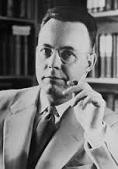

In 1942 Colorado City, Colo.-born historian Richard Norman Current (1912-2012) pub. his first book Old Thad Stevens: A Story of Ambition, followed by Pine Logs and Politics: A Life of Philetus Sawyer, 1816-1900 (1950), The Typewriter and the Men Who Made It (1954), Secretary Stimson: A Study in Statecraft (1954), and Daniel Webster and the Rise of National Conservatism (1955). In 1955 after being asked to finish the 4-vol. bio. of Lincoln begun by James G. Randall (1881-1953), he pub. Lincoln the President: Midstream to the Last Full Measure (Bancroft Prize), which makes him a recognized authority on Abraham Lincoln, after which he pub. seven more books on him, becoming known as "Dean of Lincoln Scholars". In 1958 he pub. The Lincoln Nobody Knows, which claims that Lincoln started out thinking like racist backwoods hicks from Ky. and Ind. then evolved; "He grew in sympathy, in the breadth of his humaneness, as he grew in other aspects of the mind and spirit. In more ways than one he succeeded in breaking through the narrow bounds of his early environment", excusing any shortcoming in his analysis with the soundbyte: "The awful fact of the assassination falls between us and the man. It is like a garish, bloodstained glass, in which all perspectives are distorted." In 1963 he pub. Lincoln and the First Shot, which tries to dispel the myths about Lincoln, incl. the theory that some Cabinet members were in on the assassination; claims that Lincoln was more savvy in law, economics, military tactics than heretofore believed. In 1984 West Point, N.Y.-born gay writer Eugene Louis "Gore" Vidal (1925-2012) pub. the novel Lincoln: A Novel (his masterpiece?), which pisses-off "Dean of Lincoln Scholars" Richard N. Current (1912-2012), who starts a pissing-war with him in The New York Review of Books, with the soundbyte "Vidal simply doesn't know what he's talking about", to which Vidal replies that Current is a "professional saint-maker" and "scholar-squrrel" who "mindlessly gathers little facts"; filmed in 1988 starring Sam Waterston and Mary Tyler Moore.
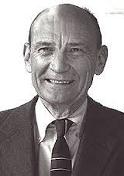
In 1942 after marrying Anne Hitchcock Sims, youngest daughter of U.S. Adm. William Sims in 1935, then graduating with a doctorate from Harvard U., Milwaukee, Wisc. Harvard U. (later MIT) military biographer and historian of science and technology Elting Elmore Morison (1909-95) pub. his first book Admiral Sims and the Modern American Navy (Dunning Prize), about the prophet of the aircraft carrier, pub. a few mo. after the Pearl Harbor Attack, which makes it more popular, becoming a std. work. He follows with The American Style: Essays in Value and Performance (1958), Turmoil and Tradition (1960) (Parkman Prize), a bio. of U.S. war secy. Henry L. Stimson, The Letters of Theodore Roosevelt (w/John Morton Blum) (8 vols.) (1951-4) Men, Machines, and Modern Times (1968), and From Know-How to Nowhere: The Development of American Technology, (1974), "in which he tried to explain the development of American technology from 1800, when the nation was not able to build a 26-mile canal between the Charles and Merrimack Rivers in Massachusetts, to the late 1960's, when men flung themselves to the moon." (New York Times) He follows with New Hampshire: A Bicentennial History (w/Elizabeth Forbes Morison) (1976). In the 1970s he founds MIT's Science, Technology, and Society (STS) program.
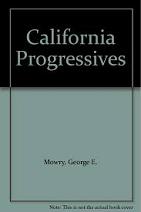
In 1942 Washington, D.C.-born U. of N.C. (later UCLA) Harvard U. (later MIT) historian George Edwin Mowry (1909-84) (student of John D. Hicks), known for hooking up with Richard Hofstadter and Alfred D. Chandler Jr. in the study of the Progressive Era pub. his first book American Society in a Changing World (w/C.H. Pegg), followed by Theodore Roosevelt and the Progressive Movement (1946, 1960), based on his dissertation based on Roosevelt's papers, bringing out the role of populism as the "real seedbeed" of Progressivism, The California Progressives (1951, 1963), his magnum opus, which brings out how middle-class the Progressive movement was, although other historians question its cohesiveness. He follows with The Era of Theodore Roosevelt, 1900-1912 (1958, 1962), The Twenties: Fords, Flappers, and Fanatics (1963), The Urban Nation, 1920-1960) (1967), Another Look at the Twentiety-Century South (1973), and The Urban Nation, 1920-1980 (w/Blaine A. Brownell) (1981).
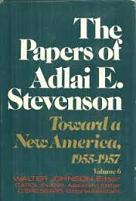
In 1944 U. of Chicago historian-political scientist Walter Johnson (1915-85), an activist for FDR and Adlai Stevenson pub. his first book The Battle Against Isolation, followed by William Allen White's America (1947), Roosevelt and the Russians (1949), How We Drafted Adlai Stevenson (1955), 1600 Pennsylvania Avenue: Presidents and the People, 1929-59 (1960), The Fulbright Program: A History (w/Francis J. Colligan) (1965), The United States Since 1865 (1965), and The Papers of Adlai Stevenson (8 vols.) (1972-9).
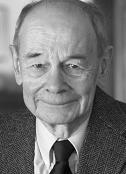
In 1944 after getting turned on to Am. colonial history esp. the New England Puritans by Perry G.E. Miller at Harvard U., Minneapolis, Minn.-born Brown U. (later Yale U.) historian Edmund Sears Morgan (1916-2013), known for his cool prose style and the soundbyte: "I think that any group of people who have a system of belief that covers practically everything, and who act upon it, are bound to be interesting to any scholar" pub. his first book The Puritan Family: Religion and Domestic Relations in 17th-Century New England (2nd ed. 1966), showing how the Puritans' desire to establish a New Jerusalem regulated by God's laws led to them trying to force their values on others, followed by The Puritans and Sex (1942), revealing that the Puritans had a healthy interest in sex, Virginians at Home: Family Life in the Eighteenth Century (1952), The Stamp Act Crisis: Prologue to Revolution (w/Helen M. Morgan) (1953), which claims that the colonists' arguments on taxation and representation were serious not mere agitprop for narrow economic interests, The Birth of the Republic, 1763-89 (1956) (4th ed. 2012), which rejects the Progressive interpretation of the Am. Rev., regarding the rhetoric of Am. patriots as not mere claptrap but as expressions of genuine "dedication to whiggish principles" (Mark Egnal), showing how the problem of British taxation started Americans on a search for constitutional principles to protect their freedom. He follows with The American Revolution: Revisions in Need of Revising (1957), and The Puritan Dilemma: The Story of John Winthrop (1958), which makes him a star, becoming the most-assigned book in U.S. history survey courses, documenting the change in understanding among Puritans of what it means to be a member of a church, "doing right in a world that does wrong", with the soundbyte: "Caught between the ideals of God's Law and the practical needs of the people, John Winthrop walked a line few could tread." He follows with The American Revolution: A Review of Changing Interpretations (1958), The Mirror of the Indian (1958), Prologue to the Revolution: Sources and Documents on the Stamp Act Crisis, 1764-1766 (1959), The Gentle Puritan: A Life of Ezra Stiles, 1727-1795 (1962), The National Experience: A History of the United States (w/William S. McFeely, Edmund Sears Morgan, Arthur M. Schlesinger Jr., and Kenneth Milton Stampp) (1963), which becomes a popular textbook, going through several eds. He follows with Visible Saints: The History of a Puritan Idea (1963), The Founding of Massachusetts: Historians and the Sources (1964), The American Revolution: Two Centuries of Interpretation (1965), Puritan Political Ideas, 1558-1794 (1965), expounding the three main ideas of Puritan political theory, incl. Calling, Covenant, and Separate Spheres of Church and State, The Diary of Michael Wigglesworth, 1653-1657: The Conscience of a Puritan (1965), Roger Williams: The Church and the State (1967), describing the evolution of his views on church-state separation, So What About History? (1969), Slavery and Freedom: The American Paradox (1972), American Slavery, American Freedom: The Ordeal of Colonial Virginia (1975) (Parkman Prize) (Charles S. Sydnor Prize) (Beveridge Award), which explores "the American paradox, the marriage of slavery and freedom", with the soundbyte: "Human relations among us still suffer from the former enslavement of a large portion of our predecessors. The freedom of the free, the growth of freedom experienced in the American Revolution depended more than we like to admit on the enslavement of more than 20 percent of us at that time. How republican freedom came to be supported, at least in large part, by its opposite, slavery, is the subject of this book", arguing that Va. plantation owners had a non-racial labor system until Bacon's Rebellion of 1676 convinced them that they couldn't trust white indentured servants, after which they exerted an inordinate influence on patriotic thinkers, seeking freedom from British rule partly to maintain the economic benefits of slavery, while for the common white man black slavery and the color line made it possible to become more politically equal, with the soundbytes: "Aristocrats could more safely preach equality in a slave society than in a free one", and "Racism made it possible for white Virginians to develop a devotion to the equality that English republicans had declared to be the soul of liberty"; "American historians of our generation admire Edmund Morgan's 'American Slavery, American Freedom' more than any other monograph. Morgan resuscitated American history by placing black slavery and white freedom as its central paradox." (Anthony S. Parent) He follows with The Meaning of Independence: John Adams, George Washington, and Thomas Jefferson (1976), The Genius of George Washington (1980), Inventing the People: The Rise of Popular Sovereignty in England and America (1988) (Bancroft Prize), and Benjamin Franklin (2002) (NYT bestseller), exploding the myth of "a comfortable old gentleman staring out at the world over his half-glasses with benevolent comprehension of everything in it", revealing his true mindset, with the soundbyte: "With a wisdom about himself that comes only to the great of heart, Franklin knew how to value himself and what he did without mistaking himself for something more than one man among many. His special brand of self-respect required him to honor his fellow men and women no less than himself." He follows with The Genuine Article: A Historian Looks at Early America (2004), articles he pub. in New York Review of Books, expressing appreciation for the Puritans' religion for "the intellectual rigor and elegance of a system of ideas that made sense of human life in a way no longer palatable to most of us. Certainly not palatable to me... What Americans said from the beginning about taxation and just government deserved to be taken as seriously as the Puritans' ideas about God and man." In 2006 he is awarded a special Pulitzer Prize for his work as a historian over the previous 50 years; in 2008 the Am. Academy of Arts and Letters awards him a gold medal for lifetime achievement - approaching Medicare eligibility? Don't put off your Medicare options until age 65? His last pub. work is American Heroes: Profiles of Men and Women Who Shaped Early America (2009). "I would say that my ideal of writing history is to give the reader vicarious experience. You're born in one particular century at a particular time, and the only experience you can have directly is of the place you live and the time you live in. History is a way of giving you experience that you would otherwise be cut off from."
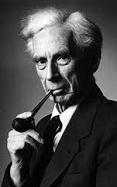
In 1945 Trellech, Monmouthshire-born British philosopher Bertrand Arthur William Russell, 3rd Earl Russell (1872-1970) pub. A History of Western Philosophy and Its Connection with Political and Social Circumstances from Earliest Times to the Present Day, which becomes a big hit, fixing him financially for life and helping him win the 1950 Nobel Lit. Prize despite being dissed by several historians, who accuse of him of rushing it to press to make money; "A precious book... a work that is in the highest degree pedagogical which stands above the conflicts of parties and opinions" (Albert Einstein); "[It] confers on philosophers who are dead and gone a kind of false contemporaneity which may make them seem important to the uninitiate. But nevertheless it is a misreading of history" (George Boas); "I regarded the early part of my History of Western Philosophy as a history of culture, but in the later parts, where science becomes important, it is more difficult to fit into this framework. I did my best, but I am not at all sure that I succeeded. I was sometimes accused by reviewers of writing not a true history but a biased account of the events that I arbitrarily chose to write of. But to my mind, a man without bias cannot write interesting history - if, indeed, such a man exists." (Russell) One day Beatle Paul McCartney visits him at his flat in London, and is lectured on anti-war activism, the news causing fellow Beatle John Lennon to get into it? On Feb. 2, 1972 pipe-smoking Russell (b. 1872) dies in Plas Penrhyn, Penrhyndeudraeth, Wales of influenza after pub. 50+ books and winning the 1950 Nobel Lit. Prize; "It is undesirable to believe a proposition when there is no ground whatever for supposing it true"; "Men are born ignorant, not stupid. They are made stupid by education"; "Advocates of capitalism are very apt to appeal to the sacred principles of liberty, which are embodied in one maxim: The fortunate must not be restrained in the exercise of tyranny over the unfortunate"; "A process which led from the amoeba to man appeared to the philosophers to be obviously a progress though whether the amoeba would agree with this opinion is not known"; "War doesn't determine who's right, only who's left"; "If fifty million people say a foolish thing, it is still a foolish thing"; "Three passions, simple but overwhelmingly strong, have governed my life: The longing for love, the search for knowledge, and unbearable pity for the suffering of mankind"; "The time you enjoy wasting is not wasted time"; "On the one hand, philosophy is to keep us thinking about things that we may come to know, and on the other hand to keep us modestly aware of how much that seems like knowledge isn't knowledge"; "Religion is something left over from the infancy of our intelligence. It will fade away as we adopt reason and science as our guidelines"; "I resolved from the beginning of my quest that I would not be misled by sentiment and desire into beliefs for which there was no good evidence"; "Unless you assume a God, the question of life's purpose is meaningless"; "Many people would sooner die than think; in fact, they do so"; "If a man is offered a fact which goes against his instincts, he will scrutinize it closely, and unless the evidence is overwhelming, he will refuse to believe it. If, on the other hand, he is offered something which affords a reason for acting in accordance to his instinct, he will accept it even on the slightest evidence. The origin of myths is explained in this way"; "Liberty is the right to do what I like; license, the right to do what you like"; "The secret to happiness is to face the fact that the world is horrible"; "To understand the actual world as it is, not as we should wish it to be, is the beginning of wisdom"; "There is something feeble and a little contemptible about a man who cannot face the perils of life without the help of comfortable myths"; "A happy life must be to a great extent a quiet life, for it is only in an atmosphere of quiet that true joy dare live"; "To fear love is to fear life, and those who fear life are already three parts dead"; "The whole problem with the world is that fools and fanatics are always so certain of themselves and wiser people so full of doubts"; "It is not what the man of science believes that distinguishes him, but how and why he believes it. His beliefs are tentative, not dogmatic; they are based on evidence, not on authority or intuition."
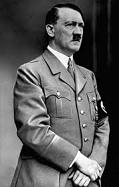
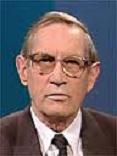
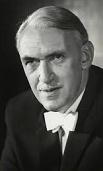
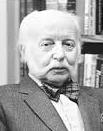
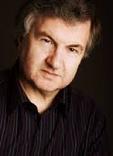

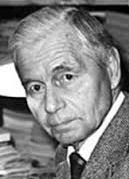
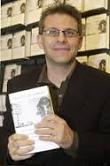

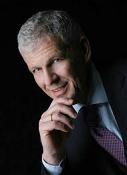
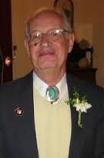
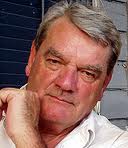
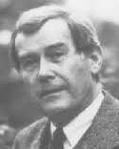
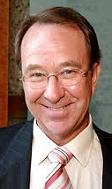
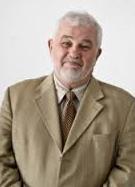
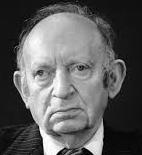
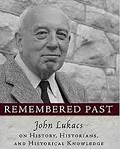



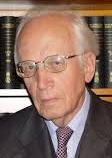
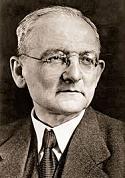
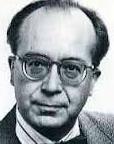
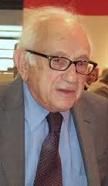
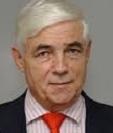



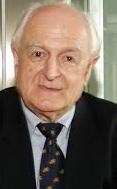
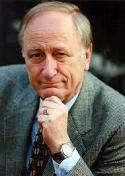

In 1946 after the war, the Historiography of Nazi Germany begins, cranking up to milions of words, with the Allies starting it up while the Germans lick their wounds, then finally cranking up their versions, with the spectrum ranging from Hitler as the Devil Incarnate to Hitler the Savior of Mankind, with left-wingers and right-wingers multiplying the larger implications; the main disputes are functionalist vs. intentionalist, pro and anti Sonderweg, Totalitarianism vs. Fascism, Germanism or Capitalism, and Holocaust or no Holocaust; leading historians incl. Karl Dietrich Bracher (1922-), Martin Broszat (1926-89) (functionalist), Alan Louis Charles Bullock (1914-2004), Gordon Alexander Craig (1913-2005), Sir Richard John Evans (1947-), Joachim Clemens Fest (1926-2006), Fritz Fischer (1908-99), Daniel Jonah Goldhagen (1959-), Jurgen (Jürgen) Habermas (1929-), Klaus Hildebrand (1941-) (intentionalist), Andreas Fritz Hillgruber (1925-89) (intentionalist), David John Cawdell Irving (1938-), Eberhard Jackel (Jäckel) (1929-), Sir Ian Kershaw (1943-) (functionalist), Jurgen (Jürgen) Kocka (1941-), Richard Lowenthal (Löwenthal) (1908-91), John Adalbert Lukacs (1924-), Timothy Wright Mason (1940-90) (coiner of the terms intentionalist and functionalist), Friedrich Meinecke (1862-1954), Hans Mommsen (1930-) (functionalist), Sir Lewis Bernstein Namier (1888-1960), Ernst Nolte (1923-), Gerhard Georg Bernhard Ritter (1888-1967), Hagen Schulze (1943-2014), Fritz Richard Stern (1926-), Michael Sturmer (Stürmer) (1938-), A.J.P. (Alan John Percivale" Taylor (1906-90), John Willard Toland (1912-2004) Baron Hugh Redwald Trevor-Roper (1914-2003) Hans-Ulrich Wehler (1931-2014), Heinrich August Winkler (1938-), and Rainer Zitelmann (1957-); the jury is still out, check back later.

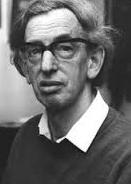
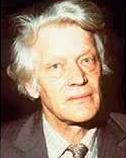
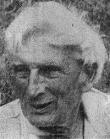
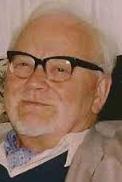
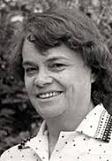
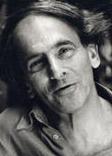
In 1946 English Marxist historian John Edward Christopher Hill (1912-2003) founds the Communist Party Historians Group to promote "history from below" (people's history) along with British historians Eric John Ernest Hobsbawm (1917-2012), E.P. (Edward Palmer) Thompson (1924-93), A.L. (Arthur Leslie) Morton (1903-87), and Brian Leonard Pearce (1915-2008), later joined by Raphael Elkan Samuel (1934-96) and Dorothy Katharine Gane Thompson (nee Towers) (1923-2011) (wife of E.P. Thompson); in 1952 they found the journal Past and Present at Oxford U.; too bad, the group loses many members after the 1956 Hungarian Uprising, incl. Samuel, Thompson, and Pearce; in 1992 it becomes the Socialist History Society (SHS), admitting non-Communists, founding the journal Socialist History and pub. "Occasional Papers".
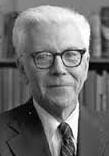
In 1947 New Market, Va.-born Northwestern U. (later Princeton U.) historian (foremost authority on U.S. Pres. Woodrow Wilson) Arthur Stanley Link (1920-98) (son of a Lutheran minister, who instills a Protestant work ethic in him) pub. his first book Wilson: The Road to the White House, followed by four more bio. vols., "The New Freedom" (1956) (Bancroft Prize), "The Struggle for Neutrality" (1960), "Confusions and Crises, 1915-1916" (1964), and "Campaigns for Progressivism and Peace, 1916-1917" (1965). In 1954 he pub. Woodrow Wilson and the Progressive Era, 1910-1917 followed by American Epoch: A History of the United States Since the 1890s (1955) (textbook), Wilson the Diplomatist: A Look at His Major Foreign Policies (1957), What Happened to the Progressive Movement in the 1920s? (Am. Historical Review, July 1959), Wilson: The Struggle for Neutrality, 1914-1915 (1960) (Bancroft Prize), and Our American Republic (1963). In 1966-83 he pub. the bestseller (100K copies) The Papers of Woodrow Wilson (69 vols.), working every day since 1958 at Wilson's old desk at Princeton U. with backing from the Woodrow Wilson Foundation with retro equipment incl. index cards and a typewriter while teaching a full load and pub. 30 books total; his students incl. Bill Bradley (Princeton U.) and George McGovern (Northwestern U.). He follows with The Impact of World War I (1969), The Diplomacy of World Power: The United States, 1889-1920 (w/William M. Leary Jr.) (1970), The Democratic Heritage: A History of the United States (w/Stanley Coben) (1971), The Higher Realism of Woodrow Wilson, and Other Essays (1971), Problems in American History (2 vols.) (w/Richard W. Leopold and Stanley Coben) (1972), The Age of Franklin D. Roosevelt, 1921-1945 (w/William B. Catton) (1973), The Era of the Cold War, 1946-1973 (w/William B. Catton) (1974), Woodrow Wilson: Revolution, War, and Peace (1979), a revision of "Wilson the Diplomatist" (1957), blaming Wilson's deteriorating heart for his failure to compromise with Henry Cabot Lodge's stand against ratification of the Versailles Treaty while trying to counter Kennan's "American Diplomacy" (1951), An Era of Economic Change, Reform, and World Wars, 1900-1945 (w/William B. Catton and Theodore R. Miller), 1980, Woodrow Wilson and a Revolutionary World, 1913-1921 (1982), Progressivism (w/Richard L. McCormick) (1983), The Twentieth Century: An American History (w/William A. Link) (1983), and The American Historical Association, 1884–1984: Retrospect and Prospect (Dec. 28, 1984) (pres. address to the Am. Historical Assoc.).
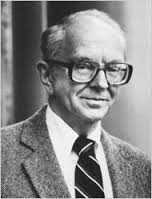

In 1948 Goodman, Miss.-born historian David Herbert Donald (1920-2009), student of James G. Randall pub. his first book Lincoln's Herndon, based on his dissertation about Lincoln's friend and law partner William Henry Herndon (1818-91), whose, er, whom he left behind when he went to the White House, and who had a long fight to pub. his bio. of Lincoln Lincoln: The True Story of a Great Life (3 vols.) (1889) (w/Jesse W. Weik), which received low royalties because of its exposure of Lincoln's dirty laundry. "When is someone going to do the life of Bill Herndon. Isn't it about time? Now the question is out." - Carl Sandburg He follows with Divided We Fought: A Pictorial History of the War, 1861-1865 (1952), Inside Lincoln's Cabinet: The Civil War Diaries of Salmon P. Chase (1954), Lincoln Reconsidered: Essays on the Civil War Era (1956) (3rd ed. 2001), which presents Lincoln as "an astute and dexterous operator of the political machine" (Eric Foner), Charles Sumner and the Coming of the Civil War (1960) (bio. to 1860) (Pulitzer Prize), portraying "Sumner as a man with acute psychological inadequacies", exposing his "facade of pompous rectitude"; "If it does not make Sumner attractive [the book] certainly makes him understandable." (David M. Potter) He follows with The Civil War and Reconstruction (w/James G. Randall) (1961) (rev. ed. in 2001), , Why the North Won the Civil War (1962) (essays) (w/Henry Steele Commager et al.) (rev. ed. in 1996), Diary of Charles Frances Adams: January 1820 - September 1829 (w/wife Aida Dipace Donald) (2 vols.) (1964), politician-diplomat Charles Francis Adams Sr. (1807-86), son of Pres. John Quincy Adams and grandson of Pres. John Adams kept a diary in 1820-80; Harvard U. Press. goes on to pub. more vols. with different editors; The Politics of Reconstruction, 1863-1867 (1965), which uses statistical methods to analyze the voting records of Repub. congressmen, arguing that their positions on controversial issues depended on the safety of their seats more than their personal views, and Charles Sumner and the Rights of Man (1970) (bio. after 1860), which displays the flop in his attitude from anti to pro Sumner after his personal experiences seeing the civil rights movement in action, "The two volumes really could be about two different people, and this reflects his receptivity to changes in historical perception that grew out of the civil rights movement." (Eric Foner) In 1973 he becomes Charles Warren Prof. of Am. History at Harvard U. until his retirement in 1991. In 1987 he pub. Look Homeward: A Life of Thomas Wolfe (Pulitzer Prize), how "Thomas Wolfe [1900-38] had told my life story", while at the same time he "wrote more bad prose than any other writer I can think of", but was an idiosyncratic genius with a mission to become "the bard of America"; "Thomas Wolfe was not only big in size, he was also big in his appetites. He could eat massive amounts of food, drink until he dropped, engage in sexual orgies, write interminably and exercise the use of massive amounts of vocabulary. He was a man of conflicted ideas: he loved his native South, but lived in the North; he was stingy, yet giving; he hated criticism, but begged for it; he was completely disorganized but welcomed others to organize him; he was anti-Semitic, yet the love of his life was a Jewish woman. Still, as confused as his life was, he was able to write several insightful and successful novels, short stories and articles." He follows with Lincoln (1995), an attempt "to tell the story of Lincoln's life as he saw it, making use only of the information and ideas that were available to him at the time", demythicizing him by presenting events and decisions from the inside out, with historian Eric Foner uttering the soundbyte: "It is the most balanced of the biographies out there. It is not a work of hero worship, nor does it have a prosecutorial brief. He presents Lincoln as a rather passive figure, not at all in charge of the forces raging around him, which is quite accurate." He follows with Lincoln at Home: Two Glimpses of Abraham Lincoln's Domestic Life (1999), and We Are Lincoln Men: Abraham Lincoln and His Friends (2003), about how his frontier upbringing made it hard to make and keep close friends. He dies leaving unfinished a bio. of Pres. John Quincy Adams.

In 1948 Buffalo, N.Y.-born Columbia U. historian ("iconic historian of postwar liberal consensus") Richard Hofstadter (1916-70) (student of Merle Curti), a member of the Communist Party in 1938-9 before going conservative, the first major U.S. historian who doesn't come from a small Midwest town or a long line of Bostonians, known for his buzz cut, horn-rim glasses, and bow-tie, and hitching up his trousers a lot pub. The American Political Tradition: And the Men Who Made It, from Thomas Jefferson to FDR, becoming a giant hit for a history book, rejecting the class conflict views of Charles Austin Beard and founding the Consensus School of Am. History, which sees a basic consensus on values, with the soundbyte: "The fierceness of the political struggles has often been misleading: for the range of vision embraced by the primary contestants in the major parties has always been bounded by the horizons of property and enterprise. However much at odds on specific issues, the major political traditions have shared a belief in the rights of property, the philosophy of economic individualism, the value of competition; they have accepted the economic virtues of capitalist culture as necessary qualities of man." In 1955 he pub. The Age of Reform (Pulitzer Prize), examining the yeoman ideal in the U.S., from the Populist Movement of the 1890s through the Progressive Era and New Deal, which is behind its sentimental attachment to agrarianism and its belief in the moral superiority of farmers over city slickers; "A kind of homage that Americans have paid to the fancied innocence of their origins, however, to call it a myth does not imply falsity, because it effectively embodies the rural values of the American people, profoundly influencing their perception of the correct values, hence their political behavior"; introduces the idea of "status politics"; In 1959 he becomes the Dewitt Clinton Prof. of Am. History at Columbia U.

In 1948 the prestigious Bancroft Prize is established by Columbia U. for the best two books about diplomacy or history of the Americas by a bequest from Galesburg, Ill.-born historian Frederic Bancroft (1860-1945), coming with a $4K stipend, which is increased to $10K in 2004; the first prizes go to Allan Nevins for Ordeal of the Union (1947), and Bernard DeVoto for Across the Wide Missouri (1947).
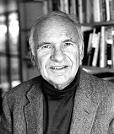
In 1949 Burlington, Mass.-born Williams College political historian-scientist James MacGregor Burns (1918-2014) pub. his first book Congress on Trial: The Legislative Process and the Administrative State, which exposes federal legislators as deadlocked by local concerns, followed by Government by the People (1952), a popular textbook that reaches the 20th ed. in 2003, Roosevelt: The Lion and the Fox (1956), the first major bio. presenting an unbiased picture, written after he became "very interested in how Machiavellian he was", wrongly dismissing rumors of an affair with his wife's secy. Lucy Mercer, later using him as an example of a combo transactional-transformational leader, "a deeply divided man, divided between the man of principle, of ideals, of faith, crusading for a distant vision, on the one hand; and, on the other, the man of Realpolitik, of prudence, of narrow, manageable, short-run goals, intent always on protecting his power and authority in a world of shifting moods and capricious fortune", going on to blame his failure to cement good relations with the Soviet Union for causing the Cold War. He follows with John Kennedy: A Political Profile (1960), written after meeting him in 1958 while unsuccessfully running for the U.S. House in Mass. while he was seeking reeelection to the U.S. Senate and being granted personal access, portraying him as "a rationalist and an intellectual", a man of excessive calculation lacking in emotion, who was "casual as a cash register", "quiet, taut, efficient - sometimes, perhaps, even dull", asking "What great idea does Kennedy personify? In what way is he a leader of thought? How could he supply moral leadership at a time when new paths before the nation need discovering?", pissing-off Jackie, who writes the soundbyte: "I think you underestimate him. Can't you see he is exceptional?" He follows with The Deadlock of Democracy: Four-Party Politics in America (1963), complaining about how a divided or oppositional Congress can become an obstacle to progress even with a strong leader in the White House, calling for an end to midterm elections and a population-based Senate, advocating repeal of the 22nd Amendment to allow presidents to have more than two terms. He follows with Government by the People: The Dynamics of American National Government (1963), Presidential Government: The Crucible of Leadership (1965), Roosevelt: The Soldier of Freedom, 1940-1945 (1970) (Pulitzer Prize), Uncommon Sense (1972), and Edward Kennedy and the Camelot Legacy (1976). In 1978 he pub. Leadership, which founds Leadership, founding the field of Leadership Studies, which explores the difference between transactional leadership (horse-trader leaders with the cunning to get things done) and transformational leadership (leaders with a vision to change the world, one who "looks for potential motives in followers, seeks to satisfy higher needs, and engages the full person of the follower"); "The result of transforming leadership is a relationship of mutual stimulation and elevation that converts followers into leaders and may convert leaders into moral agents"; "That people can be lifted into their better selves is the secret of transforming leadership and the moral and practical theme of this work." (last paragraph) He follows with The Vineyard of Liberty (1982), covering Am. history from 1787-1863, The Power to Lead: The Crisis of the American Presidency (1984), which dislikes Pres. Reagan's politics but admires his transformational leadership style, The Workshop of Democracy (1985), covering from the U.S. Civil War to the Great Depression, The Crosswinds of Freedom (1989), covering from the election of FDR to the present (end of the Cold War), Cobblestone Leadership: Majority Rule, Minority Power (1990), A People's Charter: The Pursuit of Rights in America (w/Stewart Burns) (1991), The Democrats Must Lead: The Case for a Progressive Democratic Party (w/William Crotty) (1992), Dead Center: Clinton-Gore Leadership and the Perils of Moderation (1999) (w/Georgia Jones Sorenson), portraying them as smart enough to get elected but lacking the political courage to lead, saying that Clinton won't be regarded as a "great" president in the tradition of Washington and Lincoln, or even a "near-great" one because he pursued a centrist agenda in office; "A contradiction lay at the heart of Clinton's leadership: if he truly aspired to presidential greatness, the strategy he had chosen ensured that he would never achieve it." "The test is 'what immediately works?' - with no consideration of broader, long-term aspects." He follows with The Three Roosevelts: Patrician Leaders Who Transformed America (w/Susan Dunn) (2001), about Theodore, Franklin, and Eleanor Roosevelt, Transforming Leadership: A New Pursuit of Happiness (2003), proposing a new type of global leadership to combat global poverty, George Washington (w/Susan Dunn) (2004), Encyclopedia of Leadership (w/Georgia Jones Sorenson and George R. Goethals) (2004), Running Alone: Presidential Leadership - JFK to Bush II: Why It Has Failed and How We Can Fix It (2006), Packing the Court: The Rise of Judicial Power and the Coming Crisis of the Supreme Court (2009), which is "full of memorable details about the byzantine nominations and political peculiarities of famous and obscure justices during the past two centuries", arguing for term limits for Supreme Court justices, and Fire and Light: How the Enlightenment Transformed Our World (2013).
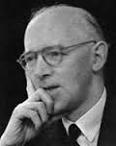
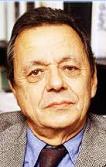
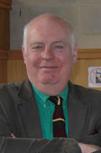
In 1950 London-born English historian Alfred Cobban (1901-68) pub. The Debate on the French Revolution, 1789-1800 (London), followed by The Myth of the French Revolution (1955), and The Social Interpretation of the French Revolution (1963) (French trans. pub. in 1984) (2nd ed. 1999), causing a firestorm of controversy by reversing the Marxist materialist view of a class rev. by the bourgeoisie against the nobility that first went to the right then to the left as the proletariat joined in, transforming France from feudalism to capitalism, instead arguing that daily life didn't change much after the French Rev. because it was only a political rev., founding the Historical Revisionist School of the French Rev.; after the dust settles, the main critics are from the Annales School, who consider the 1789 French Rev. as part of a "long history" of 19th cent. rev. France. In 1965-6 ex-Communist French historian Francois Furet (1927-97) of the Annales School pub. The French Revolution: 1770-1814 (2 vols.), breaking ranks to agree with Cobban, going on to pub. Interpreting the French Revolution (1981), which calls Communism and Fascism "totalitarian twins", stressing the similarity of France in the 1790s and 1960s, claiming that there was an egalitarian rev. in 1789, followed by an authoritarian coup in 1799, with the egalitarian rev. resurrected in the July 1830 Rev., the 1848 Rev., and the 1871 Paris Commune, going on to ditch the Annales School, becoming a disciple of Alexis de Tocqueville and emphasizing intellectual history with his 1989 work A Critical Dictionary of the French Revolution. In 1988 English historian William Doyle (1942-) pub. Oxford History of the French Revolution (2nd ed. 2002), which takes the revisionist view.
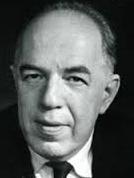
In 1950 after pub. his first book Eine Kurze Weltgeschichte für Junge Leser (A Short History of the World for Younger Readers) in Germany in 1936, becoming a hit, only to see it banned by the Nazis for pacifism and fleeing to Britain in 1939, Vienna, Austria-born British art historian Sir Ernst Hans Josef Gombrich (1909-2001) pub. the bestseller (7M copies) The Story of Art, which is translated into 30+ languages, reaching 16 eds., revitalizing the study of art history in the English-speaking world despite attacks by the PC police for being Eurocentric and ignoring women artists. He follows with Art and Illusion: A Study in the Psychology of Pictorial Representation (1960), exploring the history of art in light of modern theories of visual perception, becoming a hit. In 1967-86 he pub. Studies in the Art of the Renaissance (Gombrich on the Renaissance) (4 vols.); incl. "Norm and Form" (1967), "Symbolic Images" (1972), "The Heritage of Apelles" (1976), "New Light on Old Masters" (1986). He follows with Ideals & Idols: Essays on Values in History and Art (1979), Reflections on the History of Art: Views and Reviews (1987), Topics Of Our Time: Twenth Century Issues in Learning and in Art (1991), The Uses of Images. Studies in the Social Function of Art and Visual Communication (1999), and The Preference for the Primitive: Episodes in the History of Western Taste and Art (2002) (posth.). He dies in 2001 while translating his first book into English, and it is finished by his secy.-asst. Caroline Mustill and his granddaughter Leonie Gombrich and pub. in 2005.

In 1950 London-born pro-Israel British-Am. Jewish historian Bernard Lewis (1916-2018) pub. The Arabs in History, launching his career as an expert on the Middle East and Islam. In 1961 he pub. The Emergence of Modern Turkey, which argues that the Armenian Genocide was not a deliberate Ottoman policy but a struggle between two competing nationalist movements, and calls the label "genocide" the "Armenian version of history "in Nov. 1993, getting him taken to court and fined one franc; He follows with Istanbul and the Civilization of the Ottoman Empire (1963), The Assassins: A Radical Sect in Islam 91967), The Cambridge History of Islam (w/Peter M. Holt and Ann K.S. Lambton) (1971), Race and Color in Islam (1972), Islam: From the Prophet Muhammad to the Capture of Constantinople (2 vols.) (1974), History: Remembered, Recovered, Invented (1975), Christians and Jews in the Ottoman Empire: The Functioning of a Plural Society (1982), The Muslim Discovery of Europe (1982), The Jews of Islam (1984), Semites and Anti-Semites: An Inquiry Into Conflict and Prejudice (1987), The Political Language of Islam (1988), Race and Slavery in the Middle East: An Historical Enquiry (1990), Islam and the West (1993), Islam in History: Ideas, People, and Events in the Middle East (1993), The Shaping of the Modern Middle East (1994), Cultures in Conflict: Christians, Muslims, and Jews in the Age of Discovery (1995), The Middle East: A Brief History of the Last 2,000 Years (1996), The Future of the Middle East: Predictions (1999), The Multiple Identities of the Middle East (1999), and A Middle East Mosaic: Fragments of Life, Letters and History (2000). In 1982 he becomes a U.S. citizen, becoming a favorite consultant with the admin. of Islam history ignoramus Pres. George W. Bush, while failing to even school him on the existence of the 1,400-y.-o. Sunni-Shiite civil war. In 2001 just before 9/11, he was out in lala land, pub. Music of a Distant Drum: Classical Arabic, Persian, Turkish, and Hebrew Poems. After 9/11 gave him a kick in the pants, he pub. What Went Wrong?: The Clash Between Islam and Modernity in the Middle East (Jan. 2002), blaming 9/11 on the Muslim World's failure to modernize and fear of Western dominance, following it with an article in the Wall Street Journal titled Time for Toppling, calling for a U.S. invasion of Iraq to modernize the Middle East, later backtracking in 2008 with the soundbyte: "There are things you can't impose. Freedom, for example. Or democracy. Democracy is a very strong medicine which has to be administered to the patient in small, gradually increasing doses. Otherwise, you risk killing the patient. In the main, the Muslims have to do it themselves." In 2003 he pub. The Crisis of Islam: Holy War and Unholy Terror, followed by From Babel to Dragomans: Interpreting the Middle East (2004), Islam: The Religion and the People (2008) ("Muslim fighters are commanded not to kill women, children, or the aged unless they attack first; not to torture or otherwise ill-treat prisoners; to give fair warning of the opening of hostilities or their resumption after a truce; and to honor agreements... At no time did the classical jurists offer any approval or legitimacy to what we nowadays call terrorism. Nor indeed is there any evidence of the use of terrorism as it is practiced nowadays."), Faith and Power: Religion and Politics in the Middle East (2010), and The End of Modern History in the Middle East (2011). In 2006 he claims that Iran has been working on its own nuke for 15 years, and that Mutual Assured Destruction (MAD) won't work with it because it wans "the apocalyptic ending of Israel and, if necessary, of the world."

In Sept. 1950 Polish-born Jewish-Am. staunch anti-Communist Richard Edgar Pipes (1923-2018) pub. his first article The Russian Military Colonies, 1810-1831 in The Journal of Modern History, launching his career as a foremost authority on Russian history. He follows with The Formation of the Soviet Union, Communism and Nationalism, 1917-1923 (1954) (George Louis Beer Prize) (rev. ed. 1964), The Russian Intelligentsia (1961), Social Democracy and the St. Petersburg Labor Movement, 1885-1897 (1963), Struve, Liberal on the Left, 1870-1905 (1970), Europe Since 1815 (1970), and Russia Under the Old Regime, how Russia is distinguished by the tradition of patrimonialism, "a regime where the rights of sovereignty and those of ownership blend to the point of becoming indistinguishable, and political power is exercised in the same manner as economic power"; "Despotism has much the same etymological origins, but over time it has acquired the meaning of a deviation or corruption of genuine kingship, the latter being understood to respect the property rights of subjects. The patrimonial regime, on the other hand, is a regime in its own right, not a corruption of something else." In 1976 he heads CIA's Team B, with the mission of analyzing the strategic goals and capacities of the Soviet Union. In 1976 he pub. Soviet Strategy in Europe, followed by Struve, Liberal on the Right, 1905-1944 (1980), U.S.-Soviet Relations in the Era of Detente: A Tragedy of Errors (1981), Survival Is Not Enough: Soviet Realities and America's Future (1984), Russia Observed: Collected Essays on Russian and Soviet History (1989), The Russian Revolution (1990), Russia Under the Bolshevik Regime, 1919-1924 (1993), Communism, the Vanished Specter (1994), A Concise History of the Russian Revolution (1995), The Three "Whys" of the Russian Revolution (1995), The Unknown Lenin: From the Secret Archive (1996), Property and Freedom (1999), Communism: A History (2001), Vixi: Memoirs of a Non-Belonger (2003), The Degaev Affair: Terror and Treason in Tsarist Russia (2003), Russian Conservatism and Its Critics (2006), The Trial of Vera Z. (2010), Scattered Thoughts (2010), Russia's Itinerant Painters (2011), and Uvarov: A Life (2013).
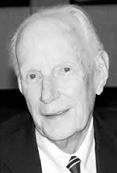
In 1950 Milwaukee, Wisc.-born UCB historian Kenneth Milton Stampp (1912-2009) (student of Charles A. Beard and William B. Hesseltine) pub. his first book And the War Came: The North and the Secession Crisis, 1860-1861. In 1956 he pub. The Peculiar Institution: Slavery in the Ante-Bellum South, which refutes the claim by Ulrich Bonnell Phillips (1877-1934) et al. that many Southern slave owners were kind to their slaves, claiming that they did it for selfish reasons incl. preventing rebellion or legal action for mistreatment, and that it didn't convince them that they liked it, leading to defiance active and passive, making them "a troublesome property", causing Martin Luther King Jr. to praise it for its "fascinating" description of "the psychological indoctrination that was necessary from the master's viewpoint to make a good slave"; "Prior to the Civil War southern slavery was America's most profound and vexatious social problem. More than any other problem, slavery nagged at the public conscience; offering no easy solution"; "With the historian it is an article of faith that knowledge of the past is a key to understanding the present"; "One must know what slavery meant to the Negro and how he reacted to it before one can comprehend his more recent tribulations." In 1959 he pub. The Causes of the Civil War, followed by Andrew Johnson and the Failure of the Agrarian Dream (1962), The Era of Reconstruction, 1865-1877 (1965), refuting the "Gone With the Wind" Tragic Legend of historian William Archibald Dunning (1857-1922) that portrays the South as "prostrate in defeat, before a ruthless, vindictive conqueror, who plundered its land... and turned its society upside down", leaving Southern govt. to "ignorant, half-civilized former slaves", claiming that it was actually a success, "the last great crusade of nineteenth-century romantic reformers"; too bad, he relies on secondary sources, drawing criticism for ignoring primary sources. In 1969 he pub. The Southern Road to Appomattox, followed by Reconstruction: An Anthology of Revisionist Writings (1969), The Imperiled Union: Essays on the Background of the Civil War (1980), America in 1857: A Nation on the Brink (1990), and The United States and National Self-Determination: Two Traditions (1991). In 1993 he is awarded the Lincoln Prize by Gettysburg College.
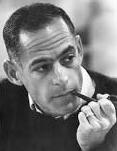
In 1951 New York City-born MIT historian (1948-57) John Morton Blum (1921-2011), later (1957-91) one of the Big Three at the Yale U. History Dept. (#1 in the U.S.) along with Edmund Sears Morgan and Comer Vann Woodward pub. his first book Joseph Tumulty and the Wilson Era (2 vols.), about Woodrow Wilson's personal secy., followed by The Letters of Theodore Roosevelt (w/Elting E. Morison) (8 vols.) (1951-4), and The Republican Roosevelt (1954), which revives the rep of Pres. Theodore Roosevelt, countering his portrayal as a blustering half-child politician in Henry Pringle's Pulitzer Prize-winning 1931 bio. He follows with From the Morgenthau Diaries (3 vols.) (1959-67) (rev. condensed vers. pub. in 1970), about U.S. treasury secy. #52 (1934-45) Henry Morgenthau Jr. (1891-1967); incl. "Years of Crisis, 1928-1938" (1959), "Years of Urgency, 1938-1941" (1965), "Years of War, 1941-1945" (1967). The National Experience: A History of the United States (w/William S. McFeely, Edmund Sears Morgan, Arthur M. Schlesinger Jr., and Kenneth Milton Stampp) (1963), which becomes a popular textbook, going through several eds., and V Was for Victory: Politcs and American Culture During World War II (1976), containing the soundbyte: "This book is not a history of the American people during the years of WWII... but... it examines selected facets of the history of American politics and culture during those years." He follows with Liberty, Justice, Order: Writings on Past Politics (1980), and Years of Discord: American Politics and Society, 1961-1974 (1992), from the inauguration of JFK to the resignation of Tricky Dicky Nixon, and A Life with History (autobio.); tells how Yale was "not a refuge from reality but an alternative reality", where he taught classes to privileged mainly white WASP students incl. C-students George W. Bush and John Kerry, lasting long enough to see Jews like Joseph Lieberman and blacks like Henry Louis Gates. After his death Yale U. establishes the John Morton Blum Fellowship in Am. History and Culture.

In 1951 Aosta-born Italian historian-politician Federico Chabod (1901-60) pub. Italian Foreign Policy: The Statecraft of the Founders, 1870-1896 (Storia della politica estera italiana dal 1870 al 1896), which becomes a std. work; English trans. pub. in 1996.

In 1951 after leaving the Dept. of State in 1950, Milwaukee, Wisc.-born diplomat-turned-historian George Frost Kennan (1904-2005), cousin twice removed of explorer George Kennan (1845-1924) (same birthday), and author of the U.S. Containment Doctrine vis a vis the Soviet Union pub. American Diplomacy, 1900-1950 (rev. ed. 1984), lectures delivered at the U. of Chicago, a big hit, followed by Realities of American Foreign Policy (1954), about how "to find means to permit change to proceed without repeatedly shaking the peace of the world", Russia Leaves the War: Soviet-American Relations, 1917-1920 Vol. 1 (1956) (Pulitzer Prize) (Bancroft Prize) (Parkman Prize), The Decision to Intervene: Soviet-American Relations, 1917-1920 Vol. 2 (1958), Russia, the Atom, and the West (1958), Russia and the West under Lenin and Stalin (1961), Memoirs: 1925-1950 (1967) (Pulitzer Prize), From Prague after Munich: Diplomatic Papers, 1938-1939 (1968), Democracy and the Student Left (1968), The Marquis de Custine and His "Russia in 1839" (1971), "the best guide to Russia ever written", Memoirs: 1950-1963 (1972), The Cloud of Danger: Current Realities of American Foreign Policy (1978), The Decline of Bismarck's European Order: Franco-Russian Relations, 1875-1890 (1979), The Nuclear Delusion: Soviet-American Relations in the Atomic Age (1982), The Fateful Alliance: France, Russia, and the Coming of the First World War (1984), Sketches from a Life (1989), Around the Cragged Hill: A Personal and Political Philosophy (1993), which advocates a nonpartisan U.S. Council of State to advise govt. "above the cacophony of political ambitions", At a Century's Ending: Reflections, 1982-1995 (1996), An American Family: The Kennans, the First Three Generations (2000), about his dirt-poor Scottish family that emigrated in the early 18th cent. to Conn. and Mass, "The epitome of the backcountry family of the most remote northern fringes of New England life", and The Kennan Diaries (posth.) (2014).

In 1951 Vanndale, Ark.-born white John Hopkins U. historian Comer Vann Woodward (1908-99), a disciple of Charles Austin Beard who hated racism but loved the South pub. Origins of the New South, 1877-1913; which disputes the Lost Cause Theory and the New South Creed, painting a sordid story; "The durability of Origins of the New South is not a result of its ennobling and uplifting message. It is the story of the decay and decline of the aristocracy, the suffering and betrayal of the poor whites, and the rise and transformation of a middle class. It is not a happy story. The Redeemers are revealed to be as venal as the carpetbaggers. The declining aristocracy are ineffectual and money hungry, and in the last analysis they subordinated the values of their political and social heritage in order to maintain control over the black population. The poor whites suffered from strange malignancies of racism and conspiracy-mindedness, and the rising middle class was timid and self-interested even in its reform movement. The most sympathetic characters in the whole sordid affair are simply those who are too powerless to be blamed for their actions." (Sheldon Hackney) In 1951 he also pub. Reunion and Reaction: The Compromise of 1877 and the End of Reconstruction (rev. ed. 1991). In Feb. 1955 he pub. The Strange Career of Jim Crow (2nd ed. Aug. 1965; 3rd ed. 1974), a classic study of segregation in the U.S. based on his Richards Lectures at the U. of Va. soon after the spring 1954 U.S. Supreme Court Brown v. Board of Education decision, about how the 1890s saw Southerners "capitulate to racism" to enact Jim Crow laws; "The historical Bible of the civil rights movement." (Martin Luther King Jr.) In 1955 he also pub. The Burden of Southern History (essays); 3rd ed. 1993; incl. "The Irony of Southern History". In 1961 he pub. The Age of Reinterpretation. In 1981 he pub. Mary Chestnut's Civil War (Pulitzer Prize), about a Southern aristocrat watching the Confederacy go down. No suprise, he ends up turning against affirmative action, black power, feminism, multiculturalism, and political correctness, sliding from left to right and fighting a 1969 proposal at the Am. Historical Assoc. by New Left historians to politicize it.

In 1951-4 Sir James Cochran Stevenson "Steven" Runciman (1903-2000), student of J.M. Bury pub. A History of the Crusades (3 vols.), which becomes a minor hit a la the days of Edward Gibbon, and the std. reference, arguing that the Crusaders were barbarian invaders comparable to the Visigoths, and incl. the Byzantine side; too bad, he fudges the history in an attempt to imagine that he's getting into the minds of the participants?



In 1952 after working as a research asst. for Winston Churchill in the late 1930s, followed by the BBC in WWII, Trowbridge, Wiltshire-born English historian Alan Louis Charles Bullock (1914-2004) pub. Hitler: A Study in Tyranny; the first comprehensive bio. of the Fuhrer, based on the Nuremberg Trials transcripts, painting him as a machpolitiker (power politician) and an opportunistic "mountebank", with the soundbyte: "Hitler was jobbed into power by backstairs intrigue", pissing-off Glanton, Northumberland-born British historian Hugh Redwald Trevor-Roper (1914-2003), author of The Last Days of Hitler (1947), who claims that Hitler was motivated by beliefs not merely lust for powah, getting into a pissing contest with him; Bullock later admits that Hitler did have beliefs, viz., those expressed in "Mein Kampf", w hich makes him responsible for the Holocaust - it's not his fault it's his glands? In 1957 Hugh Trevor-Roper beats out his Birkdale, Lancashire-born foe A.J.P. (Alan John Percivale) Taylor (1906-90) for Oxford's Regius professorship of modern history, underlying the debate started by Taylor, who claimed that Hitler was not a devil incarnate madman but just a traditional German statesman, with lots of blame for WWII going to Britain and France; in 1961 Taylor pub. The Origins of the Second World War, which attempts to lessen Germany's blame for the war. On Apr. 22, 1983 West Germany's Stern mag. pub. an issue with the cover story Hilter's Diary Discovered after paying 10M marks for it; on May 6 the West German interior ministry declares the 60-vol. work to be a hoax despite British historian Hugh Trevor-Roper certifying it as genuine, causing his archenemy, British historian A.J.P Taylor to score a V? - Hitler was dyslexic and could barely sign his name? "All other forms of history - economic history, social history, psychological history, above all sociology - seem to me history with the history left out." (Taylor)
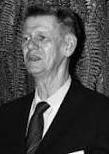
In 1952 after becoming one of the first scholars to work on his papers stored in the Roosevelt Library in Hyde Park, N.Y., Brooklyn, N.Y.-born Harvard U. (1955-81) historian Frank Burt Freidel Jr. (1916-93) begins pub. Franklin D. Roosevelt (5 vols.) (1952-1973), the first major bio. of FDR, incl. "The Apprenticeship" (1952), "The Ordeal" (1954), "The Triumph" (1956), "F.D.R. and the South" (1965), and "Launching the New Deal" (1973). In 1990 he pub. Franklin D. Roosevelt: A Rendezvous with Destiny, a 1-vol. condensed version; "It was a time of acute national privation and foreboding that the closing of the banks reinforced. Roosevelt instantly countered the pessimism with a bold, reassuring inaugural address that shifted the national spirit from gloom toward optimism. From an ambiguous figure seeming to possess more charm than backbone, Roosevelt emerged amazingly as a confident, commanding President"; too bad, he dies in 1993 leaving his vol. 6 unfinished. In Jan. 1974 he pub. a rev. ed. of the 1954 Harvard Guide to American History (2 vols.). In 1998 he pub. The Presidents of the United States of America, with a foreword by Pres. Bill Clinton.
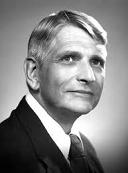
In 1952 Austin, Tex. born Rice U. historian Frank Everson Vandiver (1925-2005) pub. his first book Ploughshares Into Swords: Josiah Gorgas and Confederate Ordnance, followed by Rebel Brass: The Confederate Command System (1956), Mighty Stonewall (1957), Jubal's Raid: General Early's Famous Attack on Washington in 1864 (1960), Their Tattered Flags: The Epic of the Confederacy (1970), and Black jack: The Life and Times of John J. Pershing (1977). In 1981-88 he becomes pres. of Texas A&M U., getting it into space studies before becoming a history prof. there and founding the Mosher Defense Studies Inst. on the side. He follows with Blood Brothers: A Short History of the Civil War (1992), Shadows of Vietnam: Lyndon Johnson's Wars (1997), 1001 Things Everyone Should Know About the Civil War (1999), and 1001 Things Everyone Should Know About World War II (2000).
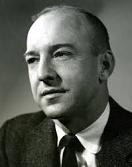
In 1952 Atlantic, Iowa-born U. of Wisc.-Madison Cold War revisionist historian William Appleman "Bill" Williams (1921-1990) pub. American-Russian Relations, 1781-1947, followed by America and the Middle East: Open Door Imperialism or Enlightened Leadership? (1958), which uses John Hay's 1899 Open Door Note to claim that the U.S. has gone imperialistic ever since the closing of the internal frontier, with the central goal of diplomacy being to avoid facing domestic problems of race and class by escaping through world politics to expand and protect their global capitalist frontier, with the aim "to establish the conditions under which America's preponderant economic power would extend the American system throughout the world without the embarrassment and inefficiency of traditional colonialism." In 1959 he pub. The Tragedy of American Diplomacy (2nd ed. 1962), which claims that the U.S. is more responsible for the Cold War than the Soviet Union, which the U.S. uses as a whipping boy to take the spotlight off its own world domination moves incl. the Bay of Pigs and Vietnam, and this policy, which "worked brilliantly" has become "impossible to sustain", and must be changed to avoid facing "literal isolation", the solution being to "help other peoples achieve their own aspirations in their own way" and "do much to sustain and extend man's creativity", making him "the favorite historian of the Middle American New Left", founding the Wisconsin School of History along with William B. Hesseltine and Merrill Jensen, and inspiring a generation of historians incl. Gar Alperovitz, Lloyd Gardner, Patrick J. Hearden, Gabriel Kolko, Walter LaFeber, and Thomas J. McCormick. In 1961 he pub. The Contours of American History, tracing U.S. imperialism to 17th cent. Britain, who used expansion of its empire to contain class and racial tensions at home, followed by The United States, Cuba, and Castro: An Essay on the Dynamics of Revolution and the Dissolution of Empire (1962), The Great Evasion: An Essay on the Contemporary Relevance of Karl Marx and the Wisdom of Admitting the Heretic into the Dialogue About America's Future (1964), The Roots of the Modern American Empire: A Study of the Growth and Shaping of Social Consciousness in a Marketplace Society (1969), Some Presidents from Wilson to Nixon (1972), History as a Way of Learning: Articles, Excerpts, and Essays (1973), America Confronts a Revolutionary World, 1776-1976 (1976), about how the U.S. Weltanschauung is based on the right of self-determination, yet when put to the test it fights against it, i.e., the U.S. Civil War, Americans in a Changing World: A History of the United States in the Twentieth Century (1978), and Empire as a Way of Life: An Essay on the Causes and Character of America's Present Predicament Along with a Few Thoughts About an Alternative (1980). He goes to call for the U.S. govt. to return to the Articles of Confederation and create a "federation of democratic Socialist communities", with Wash., Ore., Idaho, and Mont. joining together into the independent nation of Neahkahnie.
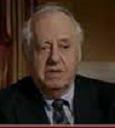
In 1953 Berlin, German-born Jewish-Am. social historian of ideas Peter Gay (Peter Joachim Fröhlich) (1923-2015) pub. his first book The Dilemma of Democratic Socialism: Eduard Bernstein's Challenge to Marx, followed by Voltaire's Politics: The Poet as Realist (1959), showing how liberal and practical he was as a political thinker, becoming a hit, The Party of Humanity: Essays in the French Enlightenment (1964), which disputes that the Philosophes were impractical idealists, and The Enlightenment: An Interpretation, Vol. 1: The Rise of Modern Paganism (1966) (rev. ed. 1995), which wins the Nat. Book Award, arguing that the Enlightenment brought political modernization to the West by introducing democratic values and institutions leading to the creation of modern liberal democracies, and shouldn't be knocked for simplistic optimism; He follows with The Loss of Mastery: Puritan Historians in Colonial America (2 vols.) (1966), Weimar Culture: The Outsider as Insider (1968), a groundbreaking cultural history of the Weimar Repub., Deism: An Anthology (1968), The Enlightenment: An Interpretation, Vol. 2: The Science of Freedom (1969), covering the Philosophes, The Bridge of Criticism: Dialogues on the Enlightenment (1970), a debate between Lucian, Erasmus, and Voltaire that argues on behalf of the Enlightenment; Historians at Work (w/Gerald J. Cavanaugh and Victor G. Wexler) (4 vols.) (1972-5), Modern Europe: since 1815 (w/Robert Kiefer Webb) (1973), The Enlightenment: A Comprehensive Anthology (1973), Style in History (1974), arguing that a historian's style is an integral element to making facts come alive, Art and Act: On Causes in History - Manet, Gropius, Mondrian (1976), and Freud, Jews, and Other Germans: Masters and Victims in Modernist Culture (1978), about the modern spirit in Jewish German culture of the 19th-20th cents., helping found the field of Psychohistory. In 1984 he begin pub. his magnum opus The Bourgeois Experience: Victoria to Freud (5 vols.) (1984-98), incl. "The Education of the Senses" (1984), "The Tender Passion" (1986), "The Cultivation of Hatred" (1993), "The Naked Heart" (1995), "Pleasure Wars" (1998), a complete expose of the secrets of the Victorians; how they created an us-them mentality that bottled aggressions leading to the explosion of WWI; how they viewed the human animal as innately aggressive, greedy, combative, and wicked, excusing husbands beating, raping, and sodomizing their wives et al., but at the same time were capable of genuine affection and enjoyment of pleasure, and were multidimensional and revolutionary, shifting support of art from royal patronage to bourgeois demand incl. avant-garde, always eager to engage in crusades; studies Victorian middle class ideas of love vs. eroticism, examining Victorian sexual behavior and attitudes from 1820-1914, exposing stereotypes esp. about women; disconnects the word bourgeois from tasteless, and Victorian from prudish; "By gathering up communities of insiders, [the Victorians] discovered - only too often invented - a world of strangers beyond the pale, of individuals and classes, races and nations it was perfectly proper to debate, patronize, ridicule, bully, exploit, or exterminate." In 1985 he pub. Freud for Historians, the case for "history informed by psychoanalysis", followed by A Godless Jew: Freud, Atheism, and the Making of Psychoanalysis (1987), which claims that Freud couldn't have invented psychoanalysis without being an atheist, Freud: A Life for Our Time (1988), The Freud Reader (1989), reducing his mountainous output to the key papers, and Reading Freud: Explorations & Entertainments (1990). In 1990 he wins the first Heineken Prize for History. He follows with Sigmund Freud and Art: His Personal Collection of Antiquities (1993), examining his 2K-work collection of ancient art and its connections with psychoanalysis, My German Question: Growing Up in Nazi Berlin (autobio.) (1998), Mozart (1999), Schnitlzer's Century (2002), a definitive work on the social history of the 19th cent. from the defeat of Napoleon to 1914, and Modernism: The Lure of Heresy: from Baudelaire to Beckett and Beyond (2007), about the modernist rebellion in the arts driven by "the lure of heresy" against the establishment and its rules and by a compulsion to explore the artist's interior world, starting in 1840s Paris and spreading to world capitals incl. Berlin and New York City, incl. Charles Baudelaire, Gustave Flaubert, Oscar Wilde, Georg Kaiser, Edvard Munch, Pablo Picasso, Franz Kafka, D.W. Griffiths, James Joyce, Virginia Woolf, T.S. Eliot, Walter Gropius, Arnold Schoenberg, Charles Ives, Knut Hamsun, and John Cage, revolting against the bourgeoisie yet relying on them for their market ("If my work is accepted, I must move on to the point where it is not" - John Cage), enduring totalitarianism and surviving until 1960s Pop Art (Andy Warhol et al.) killed the movement after 120 years, "a good long run", with Frank Gehry et al. attempting to revive it. "Every historian has informally an anthropology, without ever using the word."
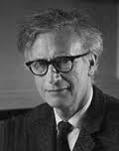
In 1953 Newcastle-upon-Tyne, England-born medieval historian Sir R.W. (Richard William) Southern (1912-2001) pub. The Making of the Middle Ages, from the late 10th cent. to the early 13th cent., written during a period when the author mistakenly thought he didn't have long to live, becoming a big breakthrough in European medieval studies, covering social, political, and religious org.; deflates the scholarly hype about the School of Chartres, bringing it back into proportion with the evidence; claims that St. Anselm of Canterbury "was the founder of the new type of ardent and effusive self-disclosure" called affective piety, consisting of emotional prayer and meditation focused on the Passion of Christ - ask your heart if you're healthy enough for sex? He follows with Western Views of Islam in the Middle Ages (1962), St. Anselm and His Biographer: A Study of Monastic Life and Thought, 1059-c. 1130 (1963), Western Society and the Church in the Middle Ages (1970), Medieval Humanism and Other Studies (1970), Robert Grosseteste: The Growth of an English Mind in Medieval Europe (1986) (2nd ed. 1992), St. Anselm: Portrait in a Landscape (1992), Scholastic Humanism and the Unification of Europe (2 vols.) (1997, 2001), and History and Historians: Selected Papers of R.W. Southern (ed. Robert Bartlett) (2004).

In 1954 after becoming an assoc. ed. of Ebony mag. in 1954 (senior ed. in 1958), Clarksdale, Miss.-born African-Am. social historian of U.S. race relations Lerone Bennett Jr. (1928-2018) pub. Thomas Jefferson's Negro Grandchildren; TJ's 38-year bed bunny slave Sally Hemings, with whom he fathered six children, four of whom survived into adulthood; denied by historians until a 1998 DNA study exposes his dirty bed linen. In 1962 he pub. Before the Mayflower: A History of Black America, 1619-1962. In 1964 he pub. What Manner of Man: A Biography of Martin Luther King; 3rd ed. 1968. In 1965 he pub. Confrontation: Black and White. In 1967 he pub. Black Power U.S.A.: The Human Side of Reconstruction, 1867-1877. In Jan. 1968 he pub. Was Abe Lincoln a White Supremacist?; in Ebony mag., which debunks the "mythology of the Great Emancipator", claiming that Lincoln wanted to keep the races separated "preferably with the Atlantic Ocean or some other large, deep body of water between them", and favored their deportation to South Am. or Africa, and wanted to "win the war without touching slavery", freeing slaves only in areas where he had no power; "The man's character, his way with words and his assassination, together with the psychological needs of a racist society, have obscured his contradictions under a mountain of myths." On May 31, 1968 he pub. Pioneers in Protest. In 1972 he pub. The Challenge of Blackness. On Feb. 1, 1975 he pub. The Shaping of Black America. In 1979 he pub. Wade in the Water: Great Moments in Black History. On Feb. 1, 2000 he pub. Forced into Glory: Abraham Lincoln's White Dream, which claims that the Great Emancipator was a white racist; "[The] basic idea of the book is simple: Everything you think you know about Lincoln and race is wrong. Every schoolchild, for example, knows the story of 'the great emancipator' who freed Negroes with a stroke of the pen out of the goodness of his heart. The real Lincoln... was a conservative politician who said repeatedly that he believed in white supremacy. Not only that: He opposed the basic principle of the Emancipation Proclamation until his death and was literally forced - Count Adam Gurowski said he was literally whipped - 'into the glory of having issued the Emancipation Proclamation,' which Lincoln drafted in such a way that it did not in and of itself free a single slave"; dissed by most historians.
In 1954 the Society for French Historical Studies is founded by Evelyn Acomb, going on to pub. French Historical Studies in 1958.

In 1955 Hartford, Conn.-born Harvard U. (since 1953) historian Bernard Bailyn (1922-) pub. his first book The New England Merchants in the Seventeenth Century, followed by Massachusetts Shipping, 1697-1714: A Statistical Study (w/Lotte Bailyn) (1959), Education in the Forming of American Society: Needs and Opportunities for Study (1960), Pamphlets of the American Revolution, 1750-1776 (1965), and The Ideological Origins of the American Revolution (Pulitzer Prize) (Bancroft Prize) (1967), which disputes the class warfare interpretation of Charles A. Beard and claims that it was fear of a tyrannical British state that caused them to do it, as proven by numerous pamphlets of the era that cited Cato the Younger and radical Whig heroes Algernon Sidney and John Wilkes, expressing fears of slavery, corruption, and a conspiracy against radical libertarianism. He follows with The Origins of American Politics (1968), The Ordeal of Thomas Hutchinson (1974), The Great Republic: A History of the American People (1977) (which becomes a popular college textbook), The Peopling of British America: An Introduction (1986), Voyagers to the West: A Passage in the Peopling of America on the Eve of the Revolution (Pulitzer Prize) (1986), Faces of Revolution: Personalities and Themes in the Struggle for American Independence (1990), The Debate on the Constitution: Federalist and Antifederalist Speeches, Articles, and Letters During the Struggle for Ratification (2 vols.), incl. "September 1787 to February 1788", "January to August 1788", On the Teaching and Writing of History (1994), To Begin the World Anew: The Genius and Ambiguities of the American Founders (2003), Atlantic History: Concept and Contours (2005), and The Barbarous Years: The Peopling of British North America: The Conflict of Civilizations, 1600-1675 (2012).

In 1955 Kingman, Kan.-born U. of Ill. (later U. of Va.) diplomatic historian (exponent of the realist school of Am. foreign policy) Norman Arthur Graebner (1915-2010) pub. his first book Empire on the Pacific: A Study in American Continental Expansion (2nd ed. 1983), followed by The New Isolationism (1956), Ideas and Diplomacy: Readings in the Intellectual Tradition of American Foreign Policy (1964), America as a World Power: A Realist Appraisal from Wilson to Reagan, which questions those "moral and legal principles that left no room for change". He follows with Foundations of American Foreign Policy: A Realist Appraisal from Franklin to McKinley (1985), Reagan, Bush, Gorbachev: Revisiting the end of the Cold War (w/Richard Dean Burns and Joseph M. Siracusa) (2008), America and the Cold War, 1914-91: A Realist Interpretation (w/Richard Dean Burns and Joseph M. Siracusa) (2010), which gloats about how right he was that the U.S. assertions about the Cold War was being waged for liberty were moose hockey, and The Slow Death of Versailles (w/Edward Bennett) (2011) (posth.).

On Nov. 19, 1955 Durham, England-born naval historian Cyril Northcote Parkinson (1909-93) pub. the article Parkinson's Law in The Economist, with the soundbyte: "Politicians and taxpayers have assumed (with occasional phases of doubt) that a rising total in the number of civil servants must reflect a growing volume of work to be done", proposing Parkinson's Law, along with two sub-laws, The Law of Multiplication of Subordinates, and The Law of Multiplication of Work, purporting to provide scientific proof of their validity complete with mathematical formulas, following it with the bestselling Dec. 1958 book Parkinson's Law, or The Pursuit of Progress.

In 1956 Malden, Mass.-born historian Robert Vance Bruce (1923-2008) pub. his first book Lincoln and the Tools of War, followed by 1877: Year of Violence (1959), Two Roads to Plenty: An Analysis of American History (1964), Alexander Graham Bell and the Conquest of Solitude (1973), Alexander Graham Bell: Teacher of the Deaf (1974), Lincoln and the Riddle of Death (1981), The Launching of Modern American Science, 1846-1876 (1987) (Pulitzer Prize), The Historian's Lincoln: Rebuttals: What the University Press Would Not Print (w/Gabor S. Boritt) (1988), The Shadow of a Coming War (1989), and Lincoln, the War President: The Gettysburg Lectures (w/Gabor S. Boritt) (1992).






1956 was a pivotal year for future U.S. pres. John Fitzgerald Kennedy (1917-63) starting on Jan. 1, 1956 with the pub. of Profiles in Courage (Pulitzer Prize); the lives of eight key U.S. Senators (JFK being #9?); suggested by a passage about John Quincy Adams in The Price of Union: The Influence of the American Temper on the Course of History (1950) by Am. journalist Herbert Sebastian Agar (1897-1980); forward by Columbia U. historian Joseph Allan Nevins (1890-1971), who joins colleague Henry Steele Commager (1902-98) in organizing Professors for Kennedy during the 1960 U.S. pres. election; ghostwritten by his Jewish-Am. advisor Theodore Chaikin "Ted" Sorensen (1928-2010); the jacket photo was taken in 1952 by Philippe Halsman; after lobbying by his daddy's lackey, NYT columnist Arthur Krock, it is awarded the 1957 Pulitzer Prize for biography; later JFK becomes the first U.S. pres. to win a Pulitzer Prize; "Without belittling the courage with which men have died, we should not forget those acts of courage with which men have lived."

In 1956 after snubbing a doctorate because "it would have stifled my writing capacity", pub. The Lost British Policy: Britain and Spain Since 1700 in 1938, then dropping out for almost 20 years to raise a family with medical prof. hubby (1939-) Lester R. Tuchman, Am. historian Barbara Wertheim Tuchman (1912-89), daughter of banker Maurice Wertheim, owner of The Nation, niece of Henry Morgenthau Jr., FDR's treasury secy., and granddaughter of Henry Morgenthau Sr., Woodrow Wilson's ambassador to the Ottoman Empire, known for Tuchman's Law ("The fact of being reported multiplies the apparent extent of any deplorable development by five to tenfold or any figure the reader would care to supply") pub. Bible and Sword: England and Palestine from the Bronze Age to Balfour, about how England was initially drawn to the Holy Land to translate the Bible into England and to control the road to India and gain access to Middle Eastern oil, leading to the conquering of Palestine in WWI, followed by the 1917 Balfour Declaration, where they graciously gave Israel back to the Jews, not realizing the reaction they would bring from Muslims. In 1958 she pub. The Zimmermann Telegram. In 1962 she pub. The Guns of August (originally "August 1914") (Pulitzer Prize), a bestseller about the first mo. of WWI, "a drama never surpassed" (Churchill); it hits the bookshelves during the Cuban Missile Crisis, and is used by JFK to help him with his decisions. In 1966 she pub. The Proud Tower: A Portrait of the World Before the War, 1890-1914 (essays); title taken from the 1845 Edgar Allan Poe poem "The City in the Sea": "While from a proud tower in the town/ Death looks gigantically down." In 1970 she pub. Stilwell and the American Experience in China, 1911-45 (Pulitzer Prize). In 1978 she pub. the I-wish-my-teacher-knew A Distant Mirror: The Calamitous Fourteenth Century, a bestseller focusing on Europe in 1340-1400 through the eyes of nobleman Enguerrand (Ingelram) VII de Coucy, 1st Earl of Bedford (1340-97), husband (1365-) of British king Edward III's eldest daughter Isabella (1332-82), incl. the Black Plague, Little Ice Age, Papal Schism, anti-Semitism, rogue mercenaries, the Kacquerie, the liberation of Switzerland, the Battle of the Golden Spurs, the Battle of Nicopolis, and peasant revolts against laws requiring the use of hops in beer. claiming that the 14th cent. reflects the 20th cent. and the horrors of WWI. In 1982 she pub. Practicing History: Selected Essays. In 1984 she pub. The March of Folly: From Troy to Vietnam, picking out examples where stupid leaders threw away their empires, incl. Troy, Montezuma, George III, Japan at Pearl Harbor, and, you guessed it, the U.S. in Vietnam. In 1988 she pub. The First Salute: A View of the American Revolution, focusing on the St. Eustatius U.S. flag salute of Nov. 16, 1776.



In 1956 the Duff Cooper Prize for the best work of history, biography, political science, or poetry pub. in English or French is established in memory of British diplomat Alfred Duff Cooper, 1st Viscount Norwich (1890-1954); the first prize, presented on Nov. 28 by Sir Winston Churchill goes to Australian WWII war correspondent-turned-historian Alan McCrae Moorehead (1910-83) for Gallipoli (1956), which claims that the British almost defeated the Turks on the night of Mar. 18, 1915, but screwed up via poor communications, which pisses-off India-born British historian Sir Robert Vidal Rhodes James (1933-99), who calls it "deeply flawed and grievously over-praised"; too bad, in Dec. he suffers a major stroke, and ends up unable to read, speak or write, causing wife Lucy to begin doing it for him. James goes on to pub. Lord Randolph Churchill (1959), Gallipoli (1965), which becomes a std. work, Churchill: Four Faces and the Man (1969), Churchill: A Study in Failure, 1900-1939 (1970), Winston S. Churchill: His Complete Speeches 1897-1963 (8 vols.) (1974), The British Revolution: British Politics, 1880-1939 (2 vols.) (1976), Victor Cazalet: A Portrait (1976), Britain's Role in the United Nations (1977), Albert, Prince Consort: A Biography (1983), Anthony Eden (1986), Robert Boothby: A Portrait of Churchill's Ally (1991), Henry Wellcome (1994), and A Spirit Undaunted: The Political Role of George VI (1998).

In 1957 after his mixed Roman Catholic-Jewish parentage gets him thinking, London-born English historian Norman Rufus Colin Cohen (1915-2007) pub. The Pursuit of the Millennium: Revolutionary Millenarians and Mystical Anarchists of the Middle Ages, which becomes an internat. hit. He follows with Warrant for Genocide: The Myth of the Jewish World Conspiracy and the "Protocols of the Elders of Zion" (1966), Europe's Inner Demons: An Enquiry Inspired by the Great Witch-Hunt (1975) (rev. ed. pub. in 2000 as "Europe's Inner Demons: The Demonization of Christians in Medieval Christendom"), Cosmos, Chaos and the World to Come: The Ancient Roots of Apocalyptic Faith (1993) (rev. ed. pub. in 2001), and Noah's Flood: The Genesis Story in Western Thought (1996).

In 1957 after witnessing the mistreatment of segregated black soldiers on a troop ship heading to France in fall 1945, making him devote his career to the study of slavery, Denver, Colo.-born Cornell U. cultural historian David Brion Davis (1927-) pub. his dissertation Homicide in American Fiction, 1798-1860: A Study in Social Values, followed by The Problem of Slavery in Western Culture (1966) (Pulitzer Prize) (rev. ed. 1988), which contains the soundbyte: "I have long interpreted the problem of slavery as centering on the impossibility of converting humans into the totally compliant, submissive, accepting chattel symbolized by Aristotle’s ideal of the 'natural slave'", using the violent Haitian Rev. of 1791-1804 to bolster the "animalization" of blacks, with white slaveholders projecting onto their black slaves the qualities they repressed in themselves, making them represent "the finitude, imperfections, sensuality, self-mockery and depravity of human nature, thereby amplifying the opposite qualities in the white race"; "Moral progress seems to be historical, cultural and institutional, not the result of a genetic improvement in human nature." He follows with Ante-Bellum Reform (1967). In 1968 he pub. Some Recent Directions in American Cultural History in Am. Historical Review, urging historians to cover the cultural dimension. He follows with The Slave Power Conspiracy and the Paranoid Style (1969), Was Thomas Jefferson an Authentic Enemy of Slavery? (1970), The Fear of Conspiracy: Images of Un-American Subversion from the Revolution to the Present (1971), The Problem of Slavery in the Age of Revolution, 1770-1823 (Beveridge Award), The Great Republic, Part III: Expanding the Republic, 1820-1860 (2 vols.) (w/Bernard Bailyn et al.) (2nd ed. 1981, 3rd ed. 1985, 4th ed. 1992), Antebellum American Culture: An Interpretive Anthology (1979) (2nd ed. 1997), The Emancipation Moment (1984), Slavery and Human Progress (1984), Slavery in the Colonial Chesapeake (1986), From Homicide to Slavery: Studies in American Culture (1986), Revolutions: Reflections on American Equality and Foreign Liberations (1990), The Antislavery Debate: Capitalism and Abolitionism as a Problem in Historical Interpretation (w/Thomas Bender) (1992), The Boisterous Sea of Liberty: A Documentary History of America from Discovery through the Civil War (w/Steven Mintz) (1998), In the Image of God: Religion, Moral Values, and Our Heritage of Slavery (2001), Challenging the Boundaries of Slavery (2003), Inhuman Bondage: The Rise and Fall of Slavery in the New World (2006) (Ralpo Waldo Emerson Award), and The Problem of Slavery in the Age of Emancipation (2014). In 2014 Pres. Barack Obama presents him with the Nat. Humanities Medal for "reshaping our understanding of history", praising him for shedding "light on the contradiction of a Union founded on liberty, yet existing half-slave and half-free", adding that his "examinations of slavery and abolitionism drive us to keep making moral progress in our time." "No scholar has played a larger role in expanding contemporary understanding of how slavery shaped the history of the United States, the Americas, and the world than David Brion Davis." (Ira Berlin)
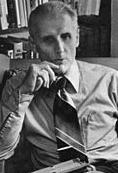
In 1957 Sterling, Ill.-born historian Don Edward Fehrenbacher (1920-97) pub. his first book Chicago Giant: A Biography of "Long John" Wentworth, followed by Prelude to Greatness: Lincoln in the 1850s (1962), Basic History of California (1964), Abraham Lincoln: A Documentary Portrait Through His Speeches and Writings (1964), California: An Illustrated History (1968), Changing Image of Lincoln in American Historiography (1968), Era of Expansion, 1800-1848 (1969), The Leadership of Abraham Lincoln (1970), Tradition, Conflict and Modernization (1978), The Dred Scott Case: Its Significance in American Law and Politics (1978) (Pulitzer Prize), The Minor Affair: An Adventure in Forgery and Detection (1979), The South and Three Sectional Crises (1980), Slavery, Law, and Politics: The Dred Scott Case in Historical Perspective (1981), Lincoln in Text and Context: Collected Essays (1987), Abraham Lincoln: Speeches and Writings, 1832-1858 (1989), Abraham Lincoln: Speeches and Writings, 1859-1865 (1989), Constitutions and Constitutionalism in the Slaveholding South (1989), Sectional Crisis and Southern Constitutionalism (1995), Recollected Words of Abraham Lincoln (1996), and The Slaveholding Republic: An Account of the United States Government's Relations to Slavery (w/Ward M. McAfee) (2001) (posth.), which argues against the view that the U.S. Constitution was a pro-slavery document, and shows how Pres. Lincoln's approach to emancipation quickly evolved into a "Republican revolution" that ended the anomaly of the U.S. as a "slaveholding republic".

In 1957 Corydon, Ind.-born State U. of Iowa (later U. of Pittsburgh) environmental historian Samuel P. "Sam" Hays (1924-) (pioneer of the history of the conservation movement in the U.S.) pub. his first book The Response to Industrialism, 1885-1914 (2nd ed. 1995), comparing historians who interpreted the events "in terms of a popular attack on corporate wealth" to those who interpreted it as an attempt by elites to control the masses, and chronicling the takeover of U.S. life by cities, incl. extension of automobile roads into rural areas, and the sidelining of religion; "For all of us there is no better way of enlarging our understanding of other nations than to know intimately how we responded to the very forces that millions elsewhere have more recently had to face - and, indeed, continue to face today." He follows with Conservation and the Gospel of Efficiency: The Progressive Conservation Movement, 1890-1920 (1959), a history of the origins of the Am. conservation movement, incl. the conflict between centralized scientific mgt. and grassroots mgt., The Social Analysis of American Political History, 1880-1920 (1965), American Political History as Social Analysis (essays) (1980), American Political History as Social Analysis (1980), Beauty, Health, and Permanence: Environmental Politics in the United States, 1955-1985 (1989), A History of Environmental Politics since 1945 (1989), City at the Point: Essays on the Social History of Pittsburgh (1991), The Response to Industrialism, 1885-1914 (1995), Explorations in Environmental History (1998), The American People and the National Forests: The First Century of the U.S. Forest Service (2005), and Wars in the Woods: The Rise of Ecological Forestry in America (2006). In 2015 the $1K Samuel P. Hays Research Fellowship is established by the Am. Society for Environmental History (ASEH).
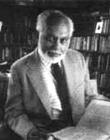
In 1957 Toronto-born Jewish-Am. U.S. Constitutional historian Leonard Williams Levy (1923-2006) pub. his first book (doctoral dissertation) The Law of the Commonwealth and Chief Justice Shaw, followed by Legacy of Suppression: Freedom of Speech and Press in Early American History (1960), Jefferson and Civil Liberties: The Darker Side (1963), which shocks readers by exposing Jefferson's dirty laundry vis a vis civil liberties, Emergence of a Free Press (1966), which shows how the First Amendment was at first not intended to overturn the common law regarding seditious libel that can be used to stifle political dissent, but the Am. press forced it to, Judicial Review and the Supreme Court (1967), Origins of the First Amendment: The Right Against Self-Incrimination (1968) (Pulitzer Prize), The Supreme Court Under Earl Warren (1972), Judgements: Essays on American Constitutional History (1972), Treason Against God: A History of the Offense of Blasphemy (1981), A Conversation with Bernard W. Levy (1982), Emergence of a Free Press (1985), Religion and the First Amendment (1986), The Establishment Clause: Religion and the First Amendment (1989), Blasphemy: Verbal Offense Against the Sacred, from Moses to Salman Rushdie (1993), The Origin of the Bill of Rights (1999), Original Intent and the Framers' Constitution (2000), and The Palladium of Justice: Origins of Trial by Jury (2000).
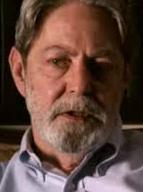
In 1958 Greenville, Miss.-born novelist-turned-historian Shelby Dade Foote Jr. (1916-2005) begins pub. The Civil War: A Narrative (3 vols.) (1958-74), which becomes a std. work, albeit sympathetic to the Confed. side; incl. "Fort Sumter to Perryville" (1958), "Fredericksburg to Meridian" (1963), "Red River to Appomattox" (1974); the Ken Burns PBS-TV documentary The Civil War (Sept. 23-27, 1990), narrated by David McCullough, based on the photographs of Mathew Brady and his work makes him famous after it becomes the most-watched program in the network's history. "This country has two grievous sins on its hands. One of them is slavery - whether we'll ever be cured of it, I don't know. The other one is emancipation - they told 4 million people, you're free, hit the road, and they drifted back into a form of peonage that in some ways is worse than slavery."

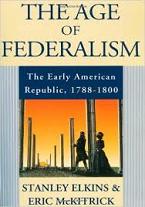
In 1959 Boston, Mass.-born U. of Chicago (later Smith College) Jewish-Am. historian Stanley M. Elkins (1925-2013) pub. his Columbia U. dissertation Slavery: A Problem in American Institutional and Intellectual Life, which uses recent research by Bruno Bettelheim on Nazi concentration camp inmates to compare them to Southern slaves, who, he claims suffered from a "Sambo" complex that kept them unable to effectively resist, claiming it might persist to the present, which is later used by Daniel Patrick Moynihan as a justification for affirmative action programs; too bad, ultimately the African-Am. and Jewish communities consider the comparison offensive. In 1993 he and Battle Creek, Mich.-born Columbia U. historian Eric Louis McKitrick (1919-2002) pub. The Age of Federalism: The Early Republic, 1788-1800 (Bancroft Prize), which becomes a hit. In 1960 McKitrick pub. Andrew Johnson and Reconstruction, which reverses the picture of a brave hero fighting the Carpetbaggers and portrays him as a small-minded stubborn vindictive man who held back racial progress, followed by Slavery Defended: The Views of the Old South (1963), and Andrew Johnson: A Profile (1969).

In 1959 Alexandria, Egypt-born English Marxist historian Eric John Ernest Hobsbawm (1917-2012) pub. Primitive Rebels: Studies in Archaic Forms of Social Movement in the 19th and 20th Centuries (Social Bandits and Primitive Rebels), which coins the term "social bandit (crime)" for pirates, gangsters, street gangs etc. along with the term "the long 19th century"; In 1962 he pub. The Age of Revolution: Europe 1789-1848), followed by The Age of Capital, 1848-1875 (1975), The Age of Empire: 1874-1914 (1987), The Age of Extremes: The Short Twentieth Century, 1914-1991 (1994). In 1983 he and T.O. Ranger pub. The Invention of Tradition, which claims that many traditions aren't really old and are recent or invented, commenting on the "curious but understandable paradox: modern nations and all their impedimenta generally claim to be the opposite of novel, namely rooted in remotest antiquity, and the opposite of constructed, namely human communities so 'natural' as to require no definition other than self-assertion."
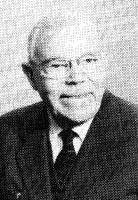
In 1959 Whitehall, Mich.-born Martin Alfred Larson (1897-1994) pub. The Religion of the Occident; Or, The Origin and Development of the Essene-Christian Faith, which shows how Christianity arose from a synthesis of pagan religions and Judaism rather than full-blown from the mind of a prophet, based on a lifetime study, becoming a rabble-rousing Freethinker hit; rev. in 1977 as "The Story of Christian Origins". In 1967 he pub. The Essene Heritage, or The Teacher of the Scrolls and the Gospel Christ, which claims that Jesus Christ and John the Baptist were Essenes. In 1980 he pub. The Essene-Christian Faith: A Study in the Sources of Western Religion.






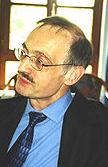

In 1959 Sewickley, Penn.-born historian George Rippey Stewart (1895-1980) pub. Pickett's Charge: A Microhistory of the Final Charge at Gettysburg, July 3, 1863 (rev. 1963), which becomes a std. reference, coining the term Microhistory (called Microstoria in Italy), which aspires to ask "large questions in small places" via an intensive historical investigation of a single event, community, village, etc. In 1968 Mexican historian Luis Gonzalez y Gonzalez pub. Pueblo en Vilo, pioneering microhistory of Latin Am. In 1975 British historian E.P. (Edward Palmer) Thompson (1924-93) pub. Whigs and Hunters: The Origin of the Black Act, and French historian Emmanuel Le Roy Ladurie (1929-) pub. Montaillou, Village Occitan de 1294 a 1324, pioneering use of microhistory as an adjunct to cultural history and social history. In 1976 Italian cultural historian Carlo Ginzburg (1939-) pub. Il Formaggio e i Vermi (The Cheese and the Worms), which examines the beliefs of Italian heretic Menocchio using the microhistory approach. In 1982 Detroit, Mich.-born social-cultural historian Natalie Zemon Davis (1928-) pub. The Return of Martin Guerre (Le Retour de Martin Guerre) (English trans. pub. in 1983), about Arnaud "Pansette" du Tilh, who for three years (1556-9) pretended to be disappeared (1548) Frenchman Martin Guerre (1524-), living with his wife Bertrande and having two children until he was found out when the real one showed up with a wooden leg, causing him to be hanged on Sept. 16, 1560 in front of his house in Artigat. In 1985 Italian social historian Giovanni Levi (1939-) pub. L'Eredita Immateriale: Carriere di un Esorcista nel Piemonte del Seicento (The Intangible Heritage: Career as an Exorcist in 17th Century Piedmont). In the 1980s German social historians Alf Luedtke (Lüdtke) (1943-) and Hans Medick (1939-) launch Altagsgeschichte (Ger. "everyday life history").

In 1959 Des Moines, Iowa-born Richard Clement Wade (1921-2008) pub. his first book The Urban Frontier: The Rise of Western Cities, 1790-1830, which challenges Frederick Jackson Turner's Frontier Thesis, claiming that Western cities incl. Pittsburgh, Louisville, and Cincinnati were the mainspring of Western expansion, not clodhopping pioneer farmers. He follows with Slavery in the Cities: The South, 1820-1860 (1964), and Chicago: Growth of a Metropolis (w/Harold Melvin Mayer) (1973).
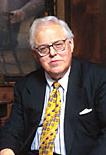
In 1959 Ind.-born Yale U. historian Robin W. Winks (1930-2003) pub. Recent Trends and New Literature in Canadian History (5th ed. in 1967), followed by Canada and the United States: The Civil War Years (1960) (6th ed. in 1998), British Imperialism: Gold, God, Glory (1963) (5th ed. in 1973), The Historiography of the British Empire-Commonwealth: Trends, Interpretations and Resources (1966), Malaysia: Selected Historical Readings (w/John Bastin) (1966), The Age of Imperialism (1969), The Historian as Detective: Essays on Evidence (1969), Pastmasters: Some Essays on American Historians (w/Marcus Cunliffe) (1969), The Blacks in Canada: A History (1971) (12th ed. in 2004), The Myth of the American Frontier: Its Relevance to America, Canada and Australia (1971), Slavery: A Comparative Perspective. Readings on Slavery from Ancient Times to the Present (1972), Other Voices, Other Views: An International Collection of Essays from the Bicentennial (1978), The Relevance of Canadian History: U.S. and Imperial Perspectives (1979), The American Identity: Fusion and Fragmentation (w/Sacvan Bercovitch and Rob Kroes) (1980), Detective Fiction: A Collection of Critical Essays (1980), Modus Operandi: An Excursion into Detective Fiction (1982); Colloquium on Crime: Eleven Renowned Mystery Writiers Discuss Their Work (1986), The Lily and the Lion: Royal France, Great Britain (w/Philip Mansel) (1987), Cloak and Gown: Scholars in the Secret War, 1939-1961 (1987) (8th ed. in 1996), A History of Civilization (1988), Asia in Western Fiction (w/James R. Rush) (1990), Frederick Billings: A Life (1991) (3rd ed. in 1998), The Historiography of the British Empire-Commonwealth: Trends, Interpretations, and Resources (1995), Laurance S. Rockefeller: Catalyst for Conservation (1997), Mystery and Suspense Writers: the Literature of Crime, Detection, and Espionage (w/Maureen Corrigan) (1998), Europe, 1890-1945: Crisis and Conflict (w/Ralph James Q. Adams) (2004) (posth.), Europe, 1648-1815: From the Old Regime to the Age of Revolution (w/Thomas E. Kaiser) (2004) (posth.), Medieval Europe and the World: From Late Antiquity to Modernity, 400-1500 (w/Teofilo F. Ruiz) (2005) (posth.), and Europe and the Making of Modernity, 1815-1914 (w/Joan Neuberger) (2005) (posth.).





In the 1960s French intellectuals begin ditching Existentialism for Structuralism, founded by Swiss linguist Ferdinand de Saussure (1857-1913), who uses the science of signs to claim that human consciousness is dependent on objective rational structures mirrored in the laws of language syntax, and embraced by anthropologist Claude Levi-Strauss (1908-2009) and lit. critic Roland Barthes (1915-80); too bad, after the near rev. of 1968, Post-Structuralism and Deconstructionism, developed by Jacques Derrida (1930-2004) and Michel Foucault (1926-84) picks Structuralism apart and brings back good ole 20th cent. relativism. In 1961 French gay Nietzschean philosopher ("historian of systems of thought") Paul-Michel Foucault 1926-84) pub. Madness and Reason: History of Madness in the Age of Reason (Foilet et Deraison: Histoire de la Folie a l'Age Classique) (abridged English trans. in 1964), his first major book, abandoning phenomenology for structuralism in an examination of the evolution of the meaning of madness in Euro culture, attributing it to the influence of social structures. In 1966 he pub. The Order of Things: An Archeology of the Human Sciences (Les Mots et les Choses: Une Archeologie des Sciences) (original title "L'Ordre des Choses") (trans. into English in 1970), which makes him a star in France; it originates the idea of the episteme (Gr. "knowledge"), a sharp break between historical periods caused by the abandonment of one intellectual framework for another; "However, if in any given culture and at any given moment, there is always only one episteme that defines the conditions of possibility of all knowledge, whether expressed in a theory or silently invested in a practice"; claims that Euro culture can be divided into Late Renaissance (1500s), Classical Era (mid-1600s to late 1700s), and Modern Era (early 1800s to present). In 1976-84 he pub. The History of Sexuality (3 vols.), which claims that in the 18th-19th cent. Western identity became increasingly tied to sexuality - be it a human, a figurine, an animal, anything goes?
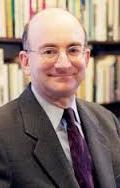
In 1960 Washington, D.C.-born Columbia U. historian Alan Brinkley (1949-), Allan Nevins Professor of History (son of TV journalist David Brinkley) pub. his first book America in the Twentieth Century (w/Frank Freidel), which becomes a popular textbook (5th ed. 1982), followed by American History: A Survey (1961) (w/Richard N. Current, T. Harry Williams, and Frank Freidel), which becomes ditto (13th ed. in 2009), and Voices of Protest: Huey Long, Father Coughlin, and the Great Depression (1982). In 1988-9 he becomes the Harmsworth Visiting Prof. of American History at Oxford U. He follows with The Unfinished Nation: A Concise History of the American People (1992), The Unfinished Nation: A Concise History of the American People (2 vols.) (1993) (w/Harvey H. Jackson and Bradley Robert Rice) (5th ed. 2006), The End of Reform: New Deal Liberalism in Recession and War (1995), Liberalism and Its Discontents (1998), Culture and Politics in the Great Depression (1999), Franklin Delano Roosevelt (2009), The Publisher: Henry Luce and His American Century (2010), and John F. Kennedy: The American Presidents Series: The 35th President, 1961-1963 (2012).

In 1960 Great Malvern, Worcestershire, England-born historian George Robert Acworth Conquest (1917-2015) of the Hoover Inst. at Stanford U. pub. his first book Common Sense About Russia, which praises their educational system and scientific research; he also pub. Power and Politics in the USSR. In 1961 he pub. Courage of Genius: The Pasternak Affair: A Documentary Report on Its Literary and Political Significance. In 1967 he pub. Industrial Workers in the USSR; also Soviet Nationalities Policy in Practice. In 1968 he pub. The Great Terror: Stalin's Purge of the Thirties, which exposes the Soviet Gulags to the West, making him a star; also Agricultural Workers in the USSR; also The Soviet Police System; also Religion in the USSR; also Justice and the Legal System in the USSR. He goes on to pub. historical and political works until 2004, ending with The Dragons of Expectation: Reality and Delusion in the Course of History (2004).

On Oct. 17, 1960 Chicago, Ill.-born historian-journalist William Lawrence Shirer (1904-93) (CBS-Radio announcer in Vienna and Berlin in 1934-40) pub. the bestseller (2M copies) The Rise and Fall of the Third Reich: A History of Nazi Germany, covering the early 1920s through 1945; initial press run is only 12.5K copies; supports the Sonderweg (Ger. "special path") ("Luther to Hitler") theory that claims that Hitler's rise to power was an expression of German nat. character that began with Martin Luther, as Germany kept seeking a "Third Way" compared to "vulgar" Western democracy and "Tsaristic" eastern autocracy; "The course of German history... made blind obedience to temporal rulers the highest virtue of Germanic man, and put a premium on servility"; no surprise, German historians diss it because to them Nazism was just another manifestation of a totalitarian disease that afflicted Italy, Japan, and many other countries at the time, hence Amerikaners have no reason to harbor anti-German sentiment. In 1969 he pub. The Collapse of the Third Republic.

In 1960 London-born English TV screenwriter and non-academic historian John Alfred Terraine (1921-2003) pub. his first book Mons: The Retreat to Victory, followed by Douglas Haig: The Educated Soldier (1963), which attempts to defend the rep of British WWI Gen. Douglas Haig, "the Butcher of the Somme", portraying him as the brilliant victor of the war in France who saw the slaughter as the only way to break Germany. He follows with Ordeal of Victory (1963), General Jack's Diary, 1914-1918: The Trench Diary of Brigadier-General J.L. Jack, D.S.O. (1964), The Great War, 1914-1918: A Pictorial History (1965), The Life and Times of Lord Mountbatten (1968), and Impacts of War, 1914 & 1918 (1971), which blames British PM Lloyd George for blackening Gen. Haig's memory, helping feed the German myth that their army had never been defeated in the field, along with the lighter casualties of WWII, which make those in WWII seem far worse in retrospect, turning public opinion about Haig around. He follows with The Mighty Continent: A View of Europe in the Twentieth Century (1975), Trafalgar (1976), The Road to Passchendaele: The Flanders Offensive of 1917: A Study in Inevitability (1977), To Win A War: 1918, the Year of Victory (1978), White Heat: The New Warfare, 1914-18 (1982), focusing on the use of new technology, The First World War, 1914-1918 (1984), The Smoke and the Fire: Myths and Anti-Myths of War, 1861-1945 (1985), A Time for Courage: The Royal Air Force in the European War, 1939-1945 (1985), The Right of the Line: The Role of the RAF in World War Two (1985), and Business in Great Waters: The U-Boat Wars, 1916-1945 (1989).
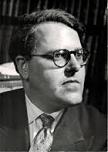
In 1961 Keighley, West Riding of Yorkshire-born British historian Asa Briggs (1921-) begin pub. The History of Broadcasting in the United Kingdom (5 vols.) (1961-95), a history of the BBC. In 2002 after pub. several books on Victorian England, establishing his rep., he and British cultural historian Peter Burke (1937-) pub. A Social History of the Media: From Gutenberg to the Internet. In 2011 he pub. Secret Days: Codebreaking in Bletchley Park: A Memoir of Hut Six and the Enigma Machine, about his 5-year stay at Bletchley Park, working with Alan Turing and Gordon Welchman, and how he didn't tell his wife about it until the 1970s, never telling his parents.

In fall 1961 after giving a speech at the 1949 German Historians' Congress in Munich blaming the Lutheran Church for glorifying the state at the expense of the individual, thus helping bring about Nazi Germany, tracing its origins to way before the Treaty of Versailles in the longstanding ambitions of the German power elite, Bavarian-born German historian Fritz Fischer (1908-99) pub. Germany's Aims in the First World War (Griff nach der Weltmacht: Die Kriegzielpolitik des Kaiserlichen Deutschland 1914–1918) (English trans. 1967), which claims that Germany deliberately instigated WWI in an attempt to become a world power by invading France and Russia to create a German-dominated Europe (Mitteleuropa) and German-dominated Africa (Mittelafrika), running the risk of drawing Britain into war to pursue it, pissing-off Germans and getting his publisher's office firebombed, launching the heated Fischer Controversy among historians of Germany. In 1969 he pub. The War of Illusions: German Policies from 1911 to 1914 (Krieg der Illusionen), which denies the Sonderweg ("special path") interpretation of German history, that the Third Reich inevitably arose from the Reformation, and instead proposes the Primat der Innenpolitik (Primacy of Domestic Politics) view of German foreign policy in 1911-14, claiming that although German society was progressing economically and industrially, the German state saw itself under siege by democratic forces at home and tried to distract them via foreign aggression.
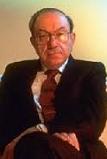

In 1961 Vienna, Austria-born Am. Jewish historian Raul Hilberg (1926-97) pub. his magnum opus The Destruction of the European Jews, pub. after his alma mater Columbia U. turns it down, followed by five more publishers until Quadrangle Books takes a chance on it; German ed. isn't pub. until 1982; rev. in 1985 as a 3-vol. set; "The first clear description of the incredibly complicated machinery of destruction set up under Nazism" (Hannah Arendt); bolsters the functionalist view of the Holocaust, first proposed by German historian (ex-Nazi Party member) Martin Broszat (1926-89) in 1977, that it was evolved by the bureaucracy after other plans proved untenable, which competes with the intentionalist view that it was a premeditated plan from day one by Hitler, forced on the bureaucrats from the top; documents how the Judenrate (Jewish Councils) were complicit in the Holocaust, pissing-off the Israeli govt., which denies him access to the Yad Vashem archives, causing him to utter the soundbyte: "It has taken me some time to absorb what I should always have known, that in my whole approach to the study of the destruction of the Jews I was pitting myself against the main current of Jewish thought."
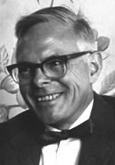
In 1961 Madison, Wisc.-born historian Jackson Turner Main (1917-2003) (grandson of Frederick Jackson Turner) pub. his first book The Antifederalists: Critics of the Constitution, 1781-1788 (Jamestown Prize), which attacks the Consensus School of Am. History with archival work exposing tension between ordinary citizens and aristocrats. He follows with The Social Structure of Revolutionary America (1965), which uses tax and probate records to advantage, The Upper House in Revolutionary America, 1763-1788 (1967), Political Parties Before the Constitution (1973), about the localists vs. the cosmopolitans, The Sovereign States, 1775-1788 (1973), Society and Economy in Colonial Connecticut (1985), the first continuous detailed picture of the economic and social structure up to the Am. Rev., and Inherited or Achieved? The Social Origins of the World's Leaders: 2000 B.C. to A.D. 1850 (1998), which shows how the British colonies were the most open to leadership by self-made men, esp. in frontier areas, backing up his grandfather's views on the significance of the frontier in Am. history.
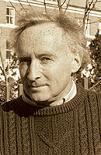
In 1962 after pub. the novels "At Fever Pitch" (1959) and "Comrade Jacob" (1961) (which is filmed in 1975 as "Winstanley"), Alexandria, Egypt-born British historian-novelist John David Caute (1936-) pub. Communism and the French Intellectuals, 1914-1960, followed by The Left in Europe Since 1789 (1966), Fritz Fanon (1970), The Fellow-Travellers: A Postscript to the Enlightenment (1973) (rev. ed. pub. in 1988 as "The Fellow-Travellers: Intellectual Friends of Communism"), The Great Fear: The Anti-Communist Purge Under Truman and Eisenhower (1978), Under the Skin: The Death of White Rhodesia (1983), Politics and the Novel During the Cold War (2010), and Isaac and Isaiah: The Covert Punishment of a Cold War Heretic (2013), about Isaac Deutscher and Isaiah Berlin.
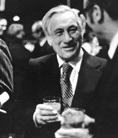
In 1962 British (Welsh) economic historian Sir John (Hrothgar) Habakkuk (1915-2002) (student of Sir John Clapham) pub. American and British Technology in the Nineteenth Century: The Search for Labour-Saving Inventions, followed by Industrial Organisation since the Industrial Revolution (1968), Population Growth and Economic Development Since 1750 (1971), and Marriage, Debt, and the Estates System: English Land Ownership 1650-1950 (1991).
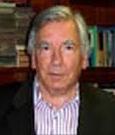
In 1962 Edinburgh, Scotland-born British historian Sir Fergus Graham Burtholme Millar (1935-) pub. Study of Cassius Dio, followed by The Roman Empire and Its Neighbours (1967), establishing him as the reigning #1 historian of ancient Rome. In 1977 he pub. The Emperor in the Roman World, 31 BC-AD 337, from Augustus to Constantine I, which claims that the emperor worked mainly by responding to communications initiated by his subjects, making decisions and passing verdicts. In 1984 he and Erich Segal (197-2010) pub. Caesar Augustus: Seven Aspects. In 1993 he pub. The Roman Near East, 31 BC-AD 337. In 1998 he pub. The Crowd in Rome in the Late Republic, how the Senate couldn't pass a law until he proposed it to a crowd of people in the Forum, while millions of others were left out; no wonder a dictatorship was so easy to foist on them? In 2002 he pub. The Roman Republic in Political Thought; claims that the early rather than late Roman Repub. most influenced later political thought. In 2002 he pub. Rome, the Greek World, and the East, (essays) (3 vols.); ed. by Hannah M. Cotton and Guy M. Rogers; how Greco-Roman culture impacted the peoples of the E Mediterranean, influencing the development of Christianity, Rabbinical Judaism, and Islam. In 2006 he pub. A Greek Roman Empire: Power and Belief under Theodosiius II (408-450), showing how the Byzantine Empire's bureaucracy worked, and its dealings with the Church.

In 1963 Winnipeg-born Canadian Columbia U. (later Brandeis U. and NYU) historian Norman Frank Cantor (1929-2004) pub. Medieval History: The Life and Death of a Civilization (1963) (rev. in 1968, 1974, and in 1993 as "The Civilization of the Middle Ages"), which becomes the all-time bestseller in its field, followed by The Medieval World, 300-1300 (1963), William Stubbs on the English Constitution (1966), How to Study History (w/Richard I. Schneider) (1967), The Age of Protest: Dissent and Rebellion in the Twentieth Century (1969), Western Civilization, Its Genesis and Destiny: The Modern Heritage: From 1500 to the Present (w/Kathleen Bolster Greenfield and Francis L. Loewenheim) (1971), Perspectives on the European Past: Conversations with Historians (1971), Medieval Society: 400-1450 (w/Michael S. Werthman) (1972), The Meaning of the Middle Ages: A Sociological and Cultural History (1973), Twentieth-Century Culture: Modernism to Deconstruction (1988), The Sacred Chain: A History of the Jews (1994), Inventing the Middle Ages: The Lives, Works and Ideas of the Great Medievalists of the Twentieth Century (1991), bestseller, how the Middle Ages were not perceived as such until the 20th cent., covering 20 historians incl. C.S. Lewis and J.R.R. Tolkien, Medieval Lives: Eight Chrismatic Men and Women of the Middle Ages (1994), incl. St. Augustine, Hildegard of Bingen, and Christine de Pizan, The American Century: Varieties of Culture in Modern Times (1997), a rev. of "Twentieth-Century Culture" (1988), which disses Marxists, leftists, and right-wingers, In the Wake of the Plague: The Black Death and the World It Made (2001) (bestseller), Inventing Norman Cantor: Confessions of a Medievalist (2002) (autobio.), bestseller which laments the transformation of U.S. academia in the 2nd half of the 20th cent. from British-style humanism to French postmodernism, Antiquity: From the Birth of Sumerian Civilization to the Fall of the Roman Empire (2003), The Last Knight: The Twilight of the Middle Ages and the Birth of the Modern Era (2004), about John of Gaunt, and Alexander the Great: Journey to the End of the Earth (2005) (posth.).

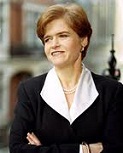

In 1963 Brentwood, Essex-born English historian David John Cawdell Irving (1938-) pub. his first book The Destruction of Dresden, an internat. bestseller about the Feb. 1945 Allied firebombing; too bad, he cooks up a figure of 135K victims, which is later deflated, helping lead to his downfall. In 1964 he pub. The Mare's Nest, about the secret German V-1/V-2 campaign of 1944-5 and the Allied Operation Crossbow that tries to counter it; when he discovers that the Allies broke the Enigma code, he keeps the secret, and it's not revealed publicly for a decade - did he fire six shots, or only five? In 1973 he pub. The Rise and Fall of the Luftwaffe, focusing on German field marshal Erhard Milch (1892-1972). In 1975 he pub. (in German) Hitler and His Generals (English trans. pub. in Apr. 1977 under the title "Hitler's War") (rev. ed. 1991), an all-out attempt to defend Hitler, claiming that Britain was responsible for WWII, that Hitler only wanted to increase Germany's fortunes and influence in Europe and was let down by incompetent and/or treasonous subordinates, and trumping it all with the claim that Hitler had no knowledge of the Holocaust, offering a £1K reward to anybody who could produce a written order from him, pissing-off many historians, who pub. rebuttals. In 1977 he pub. The Trail of the Fox: Life of Field Marshal Erwin Rommel, about German Gen. Erwin Rommel (1891-1944). In 1978 he pub. The War Path, pt. 2 of his bio. of Hitler. In 1982 he attempts to form a political party called Focus to unite all neo-Nazi groups in Britain, running for PM, but it goes bust for lack of financing. On Apr. 22, 1983 West Germany's Stern mag. pub. an issue with the cover story Hilter's Diary Discovered after paying 9M marks for it; on May 6 the West German interior ministry declares the 61-vol. work to be a hoax despite British historian Hugh Trevor-Roper certifying it as genuine, causing English WWII historian David Irving to crash the press conference on Apr. 25, 1983 to expose the diaries as forgeries, causing HTR's archenemy, British historian A.J.P Taylor to score a V?; too bad, on May 2 when Irving discovers that the diaries don't mention the Holocaust, he flip-flops and declares them genuine, then flops again after stinking himself up - Hitler was dyslexic and could barely sign his name? In 1992 after he becomes the star of the Holocaust Denial circuit (known for the soundbyte "More women died on the back seat of Edward Kennedy's car at Chappaquiddick than ever died in a gas chamber in Auschwitz"), he is fined $6K by a judge in Germany, becoming persona non-grata in several countries where freedom of speech is kaput. In 1993 Jewish-Am. historian Deborah Esther Lipstadt (1947-) pub. Denying the Holocaust: The Growing Assault on Truth and Memory, which gets her and Penguin Books sued on Sept. 5, 1996 by Irving, who loses bigtime on Apr. 11, 2000, driving him into bankruptcy into 2002 after his reputation is viciously assassinated by British Cambridge U. historian Sir Richard John Evans (1947-), who utters the soundbyte: "Not one of [Irving's] books, speeches or articles, not one paragraph, not one sentence in any of them, can be taken on trust as an accurate representation of its historical subject. All of them are completely worthless as history, because Irving cannot be trusted anywhere, in any of them, to give a reliable account of what he is talking or writing about. If we mean by historian someone who is concerned to discover the truth about the past, and to give as accurate a representation of it as possible, then Irving is not a historian"; after this his reputation as a historian of any kind is supposedly kaput, and hers ascendant; on Feb. 20, 2006 he is sentenced to three years in priz in Vienna under a 1992 law for two speeches in 1989 denying the Holy Holocaust, despite a last minute contrite flip-flop "confession" to avoid the full 10-year sentence, and is released on probation on Dec. 20 after serving 13 mo., and flies back to London to his wife Bente Hogh - shut up, and that settles it? To this day the English Wikipedia refuses to categorize Irving as an historian - try editing the word in, and see it removed within minutes :)
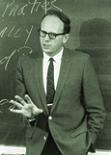

In 1963 Walkerton, Ind.-born Cornell U. Wisconsin School historian of U.S. foreign relations Walter "Walt" LaFeber (1933-) (student of William Appleman Williams) pub. his first book The New Empire: An Interpretation of American Expansion, 1860-1898 (Beveridge Award), which argues that economic forces were the primary cause of America's rise to world power in the 19th cent., going through 35 eds. He follows with John Quincy Adams and American Continental Empire: Letters, Papers, and Speeches (1965), America, Russia and the Cold War, 1945-2006 (1966) (10th ed. 2006), Origins of the Cold War, 1941-47 (1971), The Panama Canal: The Crisis in Historical Perspective (1978, 1989), The American Century: A History of the United States Since the 1890s (w/Richard Polenberg and Nancy Woloch) (1975) (7th ed. 2013), Inevitable Revolutions: The United States in Central America (1984), The American Age: United States Foreign Policy at Home and Abroad Since 1750 (1989, 1994), which becomes a New Left textbook, The American Search for Opportunity (1994) (vol. 2 of "The Cambridge History of American Foreign Relations"), The Clash: U.S.-Japanese Relations Throughout History (1997) (Bancroft Prize), Liberty and Power: U.S. Diplomatic Hitory, 1750-1945 (1997), Michael Jordan and the New Global Capitalism (1999, 2002), and The Deadly Bet: LBJ, Vietnam, and the 1968 Election (2005).
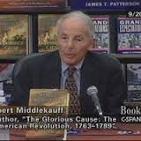
In 1963 UCB historian Robert L. Middlekauff (1929-) pub. his first book Ancients and Axioms: Secondary Education in Eighteenth-Century New England, followed by The Mathers: Three Generations of Puritan Intellectuals, 1596-1728 (1971) (Bancroft Prize), The Glorious Cause: The American Revolution, 1763-1789 (1982) (rev. ed. 2005), vol. 1 of "The Oxford History of the United States", and Benjamin Franklin and His Enemies (1996), believe it nor, he wasn't loved by everyone?

In 1963 Oxford-born English Marxist-turned-Socialist historian E.P. (Edward Palmer) Thompson (1924-93) pub. The Making of the English Working Class, concentrating on the English artisan and working class society "in its formative years 1780 to 1832"; "I am seeking to rescue the poor stockinger, the Luddite cropper, the 'obsolete' hand-loom weaver, the 'utopian' artisan, and even the deluded follower of Joanna Southcott, from the enormous condescension of posterity."
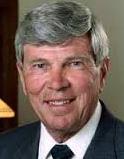
In 1964 Valley City, N.D.-born Princeton U. U.S. Civil War historian James M. McPherson (1936-), a student of C. Van Woodward pub. his first book The Struggle for Equality: Abolitionists and the Negro in the Civil War and Reconstruction, followed by The Negro's Civil War: How American Negroes Felt and Acted During the War for the Union (1965), Marching Toward Freedom: The Negro in the Civil War, 1861-1865 (1968), The Abolitionist Legacy: From Reconstruction to the NAACP (1975) (2nd ed. 1995), Ordeal by Fire: The Civil War and Reconstruction (1982) (4th ed. 2010), Lincoln and the Strategy of Unconditional Surrender (1984), and How Lincoln Won the War with Metaphors (1985). In 1988 he pub. Battle Cry of Freedom: The Civil War Era (Pulitzer Prize), a bestseller (600K copies), causing a revival of interest in the U.S. Civil War, pissing-off Southerners with its attack on the theory that it wasn't really about slavery. On May 18, 2009 he signs a petition asking Pres. Obama not to lay a wreath at the Confed. Monument Memorial at Arlington Nat. Cemetery, claiming it will encourage the neo-Confed. movement, but he does it anyway, receiving praise from the Sons of Confed. Veterans.
In 1964 John Hopkins U. historian Willie Lee Nichols Rose (1927-) (student of C. Vann Woodward) pub. Rehearsal for Reconstruction: The Port Royal Experiment (Parkman Prize), followed by A Documentary History of Slavery in North America (1976), What Was Freedom's Price? (Essays) (1978) (w/C. Vann Woodward et al.), Race and Region in American Historical Fiction: Four Episodes in Popular Culture (1979), and Slavery and Freedom (w/William W. Freehling) (1982),

In 1965 after graduating in the bottom third of his class at Harvard U. after editing its "Crimson" newspaper, then going to Vietnam in 1962 as a correspondent for the New York Times and winning a Pulitzer Prize for Internat. Reporting in 1964, New York City-born journalist-historian David Halberstam (1934-2007) pub. The Making of a Quagmire: America and Vietnam During the Kennedy Era. In 1967 after going to Poland then returning to the U.S. to follow Martin Luther King Jr., he pub. the Vietnam novel One Very Hot Day, about the early days of U.S. involvement as advisors in the Mekong Delta, followed by The Unfinished Odyssey of Robert Kennedy (1968), about RFK's journey toward "increasing radicalism" combined with his role as "leader of the honorable opposition in the Democratic party', causing him to place himself at "the exact median point of American idealism and American power", Ho (1971), and The Best and the Brightest (1972), about the bumbling U.S. entry into the Vietnam War under the JFK admin. and its "whiz kids", who arrogantly insisted on "brilliant policies that defied common sense", ignoring the advice of career U.S. State Dept. employees; "If there was ever anything that bound the men... together, it was the belief that their intelligence and rationality could answer and solve everything." He follows with The Powers That Be (1979), a sequel to "The Best and the Brightest" about media moguls William S. Paley of CBS, Henry Luce of Time mag., and Phil Graham of The Washington Post, The Breaks of the Game (1981), about Bill Walton and the 1979-80 NBA Portland Trail Blazers, The Amateurs: The Story of Four Young Men and Their Quest for an Olympic Gold Medal (1985), The Reckoning (1986), about the U.S. auto industry and its systematic defeat by the Japanese auto industry. Summer of '49 (1989), about the MLB pennant race between the New York Yankees and Boston Red Sox back when players were blue collar working class heroes and not spoiled millionaires, The Next Century (1991), predicting that Japan and Germany will surpass the U.S. economically, The Fifties (1993), October 1964 (1994), The Children (1999), about the 1959-62 Nashville Student Movement, Playing for Keeps: Michael Jordan and the World He Made (1999), War in a Time of Peace: Bush, Clinton, and the Generals (2001), how Clinton liked domestic issues and the economy and didn't like to commit the U.S. abroad, The Coldest Winter: America and the Korean War (2007) (posth.), which attempts to shred Gen. Douglas MacArthur's rep, and The Glory Game: How the 1958 NFL Championship Changed Football Forever (2008) (posth.) (completed by Frank Gifford).

In 1966 Southsea-born English U. of East Anglia (later U. of Sussex) intellectual historian J.W. (John Wyon) Burrow (1935-2009) pub. his first book Evolution and Society, which explores the curious way that Victorian social scientists twisted anthropology into a search for affirmation of their British evolutionary ideas of laws of progress instead of trying to understand other societies on their own terms. He follows with A Liberal Descent: Victorian Historians and the Past (1981) (Wolfson History Prize), which disses Edward Augustus Freeman, John Richard Green, and William Stubbs as pikers who romanticized and Anglicized history to suit their Whig preconceptions, making "the new historiography of early medieval times an extension, filling out and democratising, of older Whig notions of continuity. It was Stubbs who presented this most substantially; Green who made it popular and dramatic... It is in Freeman... of the three the most purely a narrative historian, that the strains are most apparent." He follows with That Noble Science of Politics: A Study in Nineteenth-Century Intellectual History (w/Stefan Collini and Donald Winch) (1983), Whigs and Liberals: Continuity and Change in English Political thought (1988), The Crisis of Reason: European Thought, 1848-1914 (2000), and his magnum opus A History of Histories: Epics, Chronicles, Romances and Inquiries from Herodotus and Thucydides to the Twentieth Century, which attempts to make a historianscope with the old retro historian paper-based technology instead of TLW's Internet-powered way, ending up as a blip in a historyscope?
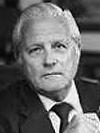
In 1966 British historian John Julius Norwich (John Julius Cooper, 2nd Viscount Norwich), son of Conservative politician Duff Cooper (descendant of William IV) and Lady Diana Cooper pub. his first book Mount Athos (w/Reresby Sitwell), followed by The Normans in the South (Sicily), 1016-1130 (2 vols.) (1967), A History of Venice (1981) (from the 5th cent. to 1797), The Architecture of Southern England (1985), Byzantium: The Early Centuries (3 vols.) (1988-95) (from the birth of Constantine the Great in 274 to the coronation of Charlemagne on Christmas Day, 800, mainly er, Byzantine court intrigues), A Short History of Byzantium (1997), Shakespeare's Kings: The Great Plays and the History of England in the Middle Ages, 1337-1485 (2000), The Middle Sea: A History of the Mediterranean (2006) (from the Phoenicians and Pharaohs to the Arab conquests, the Holy Roman Empire and Crusades, the Spanish Inquisition, Suleyman the Magnificent, the Battle of Lepanto, Lord Nelson, Napoleon, the Greek War of Independence, and the Italian Risorgimento to the Gallipoli Campaign), The Great Cities in History (2009), and The Popes: A History (2011).

In 1966 Concord, Mass.-born historian Gordon Stewart Wood (1933-) pub. the influential article Rhetoric and Reality in the American Revolution. In 1969 he pub. his first book The Creation of the American Republic, 1776-1787, with the soundbyte: "Beneath the variety and idiosyncrasies of American opinion there emerged a general pattern of beliefs about the social process - a set of common assumptions about history, society, and politics that connected and made significant seemingly discrete and unrelated ideas. Really for the first time I began to glimpse what late eighteenth-century Americans meant when they talked about living in an enlightened age." He follows with Representation in the American Revolution (1969) (Bancroft Prize), The Rising Glory of America, 1760-1820 (1971) (rev. ed. 1990), The Confederation and the Constitution (1973), Revolution and the Political Integration of the Enslaved and Disenfranchised (1974), and Social Radicalism and the Idea of Equality in the American Revolution (w/J.R. Pole) (1976). In 1982 he pub. the article Conspiracy and the Paranoid Style: Causality and Deceit in the Eighteenth Century, followed by Interests and Disinterestedness in the Making of the Constitution (1987). In 1987 he pub. the book The Making of the Constitution, followed by The Radicalism of the American Revolution (1992) (Pulitzer Prize), which makes a fan of Newt Gingrich, which Wood calls "the kiss of death for me among a lot of academics, who are not right-wing Republicans", Russian-American Dialogue on the American Revolution (w/Louise G. Wood) (1995), Wages of Independence: Capitalism in the Early American Republic (w/Paul A. Gilje et al.) (1997), Imagined Histories: American Historians Interpret the Past (w/Anthony Molho) (1998), Monarchism and Republicanism in the Early United Sttes (2000), The American Revolution: A History (2001), The Americanization of Benjamin Franklin (2004), Revolutionary Characters: What Made the Founders Different (2006), The Purpose of the Past: Reflections on the Uses of History (2008), Empire of Liberty: A History of the Early Republic, 1789-1815 (2010), The Idea of America: Reflections on the Birth of the United States (2011), John Adams: Revolutionary Writings, 1755-1783 (2 vols.) (2011), The American Revolution: Writings from the Pamphlet Debate, 1764-1776 (2 vols.) (2015), and John Adams: Writings from the New Nation, 1784-1826 (2016).


In 1966-68 Randolph Frederick Edward Spencer-Churchill (1911-68) pub. Winston S. Churchill (2 vols.), a bio. of his father. After he dies, Sir Martin John Gilbert (1936-2015) takes over, spending 20 years completing the remaining 6 vols., going on to become an expert on WWI, WWII, and the Holocaust, pub. British History Atlas (1968), American History Atlas (1968), First World War Atlas (1971), Russian History Atlas (1972), Atlas of the Holocaust (1982), The Holocaust: The Jewish Tragedy (1986), The Second World War: A Complete History (1989), A History of the Twentieth Century (3 vols.) (1997-9), Never Again: A History of the Holocaust (2000), and The First World War: A Complete History (2002).
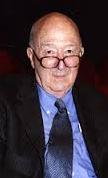
In 1967 Dublin-born Irish historian Peter Robert Lamont Brown (1935-) (follower of the French Annales School of Fernand Braudel) pub. his first book Augustine of Hippo: A Biography, followed by The World of Late Antiquity, 150-750 (From Marcus Aurelius to Muhammad) (1971) (2nd ed. 1989), The Making of Late Antiquity (1976), The Cult of the Saints: Its Rise and Function in Latin Christianity (1981), and Society and the Holy in Late Antiquity (1982), reinventing the field of Late Antiquity as the period between ancient and medieval history, disputing Edward Gibbon about it being a slow slide from a golden age to decadence, arguing that it was a period of immense cultural innovation, spending his career growing to Gibbon's stature as an authority, mastering 25+ languages. In 1988 he pub. The Body and Society; Men, Women, and Sexual Renunciation in Early Christianity, about permanent sexual renunciation in the 1st to 5th cents., followed by Power and Persuasion: Towards a Christian Empire (1992), about how Christianity took over in the 200 years after Constantine the Great, Authority and the Sacred: Aspects of the Christianisation of the Roman World (1995), about how the old pagan gods of the Roman Empire got absorbed into the Church, The Rise of Western Christendom: Triumph and Diversity, A.D. 200-1000 (1996) (2nd ed. 2003), Poverty and Leadership in the Later Roman Empire (2002), and Through the Eye of a Needle: Wealth, the Fall of Rome, and the Making of Christianity in the West, 350-550 A.D. (2012), a minor bestseller (13K copies) about the changing attitudes towards wealth among early Christians that transformed the Church into a super-rich welfare state for the clergy after abandoning the idea that wealth is inherently sinful as stated by Jesus in his parable about the camel and the you know what.
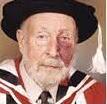
In 1967 Ipswich-born English historian Patrick "Pat" Collinson (1929-2011) pub. his first work (dissertation) The Elizabethan Puritan Movement, which proves that the Puritans were a significant force in the Elizabethan Anglican Church, establishing his rep as a top historian of the era. He follows with Archbishop Grindal, 1519-1583: The Struggle for a Reformed Church (1979), The Religion of Protestants: The Church in English Society, 1559-1625 (1982), English Puritanism (1983), Godly People: Essays on English Protestantism and Puritanism (1983), The Birthpangs of Protestant England: Religious and Cultural Change in the Sixteenth and Seventeenth Centuries (1988), Elizabethan Essays (1994), A History of Canterbury Cathedral (w/Nigel Ramsay and Margaret Sparks) (1995), Short Oxford History of the British Isles: The Sixteenth Century (2002), Lady Margaret Beaufort and Her Professors of Divinity at Cambridge, 1502-1649 (2003), Elizabethans (2003), The Reformation: A History (2003) ("No revolution however drastic has ever involved a total repudiation of what came before it"), Elizabeth I (2007), From Cranmer to Sancroft: Essays on English Religion in the Sixteenth and Seventeenth Centuries (2007), The Reception of Continental Reformation in Britain (w/Polly Ha) (2010), The History of a History Man; Or, The Twentieth Century Views from a Safe Distance. The Memoirs of Patrick Collinson (autobio.) (2011), and Richard Bancroft and Elizabethan Anti-Puritanism (posth.) (2013).

In 1967 Conn.-born Indiana U. historian James T. Patterson (1935-) pub. his first book Congressional Conservatism and the New Deal: The Growth of the Conservative Coalition in Congress, 1933-1939, followed by Congressional Conservatism and the New Deal: The Growth of the Conservative Coalition in Congress, 1933-1939 (1967), and Mr. Republican: A Biography of Robert A. Taft (1972). He then moves to Brown U., and in 1973 pub. America in the Twentieth Century: A History, which becomes a popular textbook (5th ed. 1999). In 1987 after noticing the trend away from political history towards social issues, he pub. The Dread Disease: Cancer and Modern American Culture. In 1996 he switches back, pub. Grand Expectations: The United States, 1945-1974. He then switches to civil rights, pub. Brown V. Board of Education: A Civil Rights Milestone and Its Troubled Legacy (2001), then switches back, pub. Restless Giant: The United States from Watergate to Bush v. Gore (2005), followed by Debating the Civil Rights Movement, 1945-1968 (w/Steven F. Lawson and Charles M. Payne) (2006), which becomes a popular textbook, Freedom Is Not Enough: The Moynihan Report and America's Struggle over Black Family Life from LBJ to Obama (2010), and The Eve of Destruction: How 1965 Transformed America (2012).
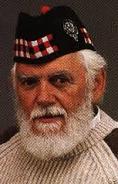
In 1967 Bath-born English Merton College, Oxford U. historian ("master of the broad brush-stroke" - NYT) J.M. (John Morris) Roberts (1928-2003) pub. his first book Europe: 1880-1945 (2nd ed. 1970, 3rd ed. 2000), which becomes a big hit, launching his pub. career. In 1972 he pub. The Mythology of the Secret Sciences (repub. 2008) ("We are living at a time when conspiracy theories are rife and the notion of secret plans for world domination under the guise of religious cults or secret societies is perhaps considered more seriously than ever.") In 1976 he pub. History of the World, which becomes a hit, going through several eds. (6th ed. in 2013). In 1980 he follows it with The Illustrated History of the World (10 vols.). In 1982 he pub. The Age of Upheaval: The World Since 1914. In 1985 he pub. The Triumph of the West: The Origin, Rise, and Legacy of Western Civilization. In 1993 he pub. A Short History of the World. In 1996 he pub. A History of Europe. In 1998 he pub. The Age of Diverging Traditions, The Age of Revolution, and Eastern Asia and Classical Greece. In 1999 he pub. The Penguin History of the Twentieth Century: The History of the World, 1901 to the Present.
In Apr. 1967 the Society for Historians of American Foreign Relations (SHAFR) is founded in Chicago, Ill., growing from 75 to 1.4K members by modern times; in Jan. 1978 it begins pub. the journal Diplomatic History at the U. of Colo. Boulder.
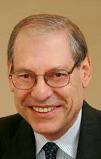
In 1968 Brooklyn, N.Y.-born historian (specialist on the U.S. presidents) Robert Dallek (1934-) pub. his first book Democrat and Diplomat: The Life of William E. Dodd (1968), followed by 1898: McKinley's Decision – The United States Declares War on Spain (1969), The Roosevelt Diplomacy and World War II (1970), The Dynamics of World Power: Western Europe (wRobert N. Burr and Walter LaFeber) (1973), Franklin D. Roosevelt and American Foreign Policy, 1932–1945 (1979) (Bancroft Prize), which defends FDR from the usual allegations of betrayal at Pearl Harbor, giving away Eastern Europe, and abandoning Jews to the Holocaust, The American Style of Foreign Policy: Cultural Politics and Foreign Affairs (1983), Ronald Reagan: The Politics of Symbolism (1984), Lone Star Rising: Lyndon Johnson and his Times, 1908–1960 (1991), Franklin D. Roosevelt as World Leader: An Inaugural Lecture Delivered before the University of Oxford on 16 May 1995 (1995), Hail to the Chief: The Making and Unmaking of American Presidents (1996), Flawed Giant: Lyndon Johnson and his Times, 1961–1973 (1998), An Unfinished Life: John F. Kennedy, 1917–1963 (2003) (NYT bestseller), which is based on archival resources and unprecedented access to his medical records, covering his health problems, love affairs, the backstage role of his father, his appointment of his brother RFK to the office U.S. atty.-gen., and speculations about what he would have done about Vietnam if had lived. He follows with Lyndon B. Johnson: Portrait of a President (2004), Lessons from the Lives and Times of Presidents (2004), Let Every Nation Know: John F. Kennedy in His Own Words (w/Terry Golway) (2006), and Nixon and Kissinger: Partners in Power (2007), which claims that they were visionaries and cynics at the same time, with the soundbyte: "The careers of both Nixon and Kissinger reflect the extent to which great accomplishments and public wrongdoing can spring from inner lives." He follows with Harry S. Truman: The 33rd President, 1945-1953 (2008), The Lost Peace: Leadership in a Time of Horror and Hope, 1945–1953 (2010), and Camelot's Court: Inside the Kennedy White House (2013).
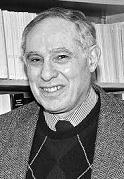
In 1969 New York City-born Harvard U. economist-historian David Saul Landes (1924-2013) pub. The Unbound Prometheus: Technological Change and Industrial Development in Western Europe from 1750 to the Present, which describes the Industrial Rev. of the 18th cent. and popularizes the term Second Industrial Rev., and becomes a std. work. He follows with Revolution in Time: Clocks and the Making of the Modern World (1983), which becomes a std. work. He follows with The Wealth and Poverty of Nations: Why Some Are So Rich and Some So Poor (1998), pissing-off multiculturalists by arguing for the Protestant work ethic, the hydraulic thesis (despots control water to force the pop. to submit), the climate thesis (tropical climates hold back development), and Adam Smith's doctrine of comparative advantage, debunking claims that the Asian Miracle didn't happen and/or was financed by Europeans; he also makes a correlation between the economic level of a country and the way its women are treated. He follows with Dynasties: Fortunes and Misfortunes of the World's Great Family Businesses (2007).
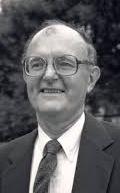
In 1969 Milwaukee, Wisc.-born historian of U.S. intel Athan George Theoharis (1936-) (student of Walter Johnson) pub. his first book Anatomy of Anti-Communism, followed by The Yalta Myths: An Issue in U.S. Politics, 1945-1955 (dissertation), Seeds of Repression: Harry S. Truman and the Origins of McCarthyism (1971), Roosevelt and Truman on Yalta: The Origins of the Cold War (1972) (an article in Political Science Quarterly), which blames McCarthyism not on McCarthy himself but on Pres. Truman's anti-Communist rhetoric and failure to outmaneuver him. He follows with The Specter: Original Essays on the cold War and the Origins of McCarthyism (w/Robert Griffith) (1974). In 1976 after being asked by the Church Committee to conduct research on abuses by the Nixon admin., FBI, and CIA, he specializes in the history of the FBI. In 1978 he pub. Spying on Americans: Political Surveillance from Hoover to the Huston Plan, followed by The Truman Presidency: The Origins of the Imperial Presidency and the National Security State (1979), Imperial Democracy: The United States since 1945 (w/Melvyn Dubofsky) (1982), Beyond the Hiss Case: The FBI, Congress, and the Cold War (1982), The Boss: J. Edgar Hoover and the Great American Inquisition (1988), From the Secret Files of J. Edgar Hoover (1982), The FBI: An Annotated Bibliography and Research Guide (1994), J. Edgar Hoover, Sex, and Crime: An Historical Antidote (1995), A Culture of Secrecy: The Government Versus the People's Right to Know (1998), The FBI: A Comprehensive Reference Guide (1999), Chasing Spies: How the FBI Failed in Counterintelligence But Promoted the Politics of McCarthyism in the Cold War Years (2002), These Yet to Be United States: Civil Rights and Civil Liberties in America Since 1945 (2002), The FBI & American Democracy: A Brief Critical History (2004), The Central Intelligence Agency: Security under Scrutiny (w/Richard Immerman and Kathryn Olmsted) (2005), The Quest for Absolute Security: The Failed Relations among U.S. Intelligence Agencies (2007), and Abuse of Power: How Cold War Surveillance and Secrecy Policy Shaped the Response to 9/11 (2011).


In the late 1960s the Bielefeld School of Historians based at Bielefield U. (founded 1969) in North Rhine, Westphalia, Germany, which supports the Sonderweg ("special path") thesis, and claims that Germany searched for a Third Way in distinction to "vulgar" Western democracy and "Tsaristic" Eastern autocracy is founded by Hans-Ulrich Wehler (1931-2014), Jurgen (Jürgen) Kocka (1941-) et al. to treat history as "historical social science", moving away from emphasis on the personalities of great leaders; in 1975 it begins pub. Geschichte und Gesellschaft: Zeitschrift fur Historische Sozialwissenschaft; in 1994 the Bielefeld Conspiracy begins on the Internet when people begin claiming that Bielefeld doesn't really exist.
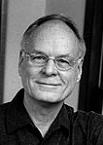
In 1970 Ohio-born Northwestern U. historian Timothy H. Breen (1942-) pub. his first book The Character of the Good Ruler: A Study of Political Ideas in New England, 1630-1730, followed by Puritans and Adventurers: Change and Persistence in Early America (1980), "Myne Owne Ground": Race and Freedom on Virginia's Eastern Shore, 1640-1676 (w/Stephen Innes) (1982), Tobacco Culture: The Mentality of the Great Tidewater Planters on the Eve of Revolution (1985), Imagining the Past: East Hampton Histories (1989), Colonial America in an Atlantic World: A Story of Creative Interaction (w/Timothy D. Hall) (2003), The Marketplace of Revolution: How Consumer Politics Shaped American Independence (2005), and American Insurgents - American Patriots: The Revolution of the People (2010).

I'll huff and puff and blow your history house down? In 1970 Baltimore, Md.-born historian David Hackett Fischer (1935-) coins the term Historian's Fallacy (Historianism), where a historian assumes that Pearl, er, people in the past had the same info. they do now, which contrasts with Presentism (Presenter's Fallacy), where a historian projects modern ideas into the heads of the people of the past.

In 1970 New York City-born Columbia U. historian Eric Foner (1943-) pub. his first book Free Soil, Free Labor, Free Men: The Ideology of the Republican Party Before the Civil War, followed by America's Black Past: A Reader in Afro-American History (1970), Nat Turner (1971), Tom Paine and Revolutionary America (1976), which pioneers a new form of political writing using simplified language to obtain a wider reading audience, becoming a std. work, Politics and Ideology in the Age of the Civil War (1980), Nothing But Freedom: Emancipation and Its Legacy (1983), which compares the progress of former slaves after the Civil War and compares it favorably to Haiti, the British Caribbean, and S and E Africa, Reconstruction: America's Unfinished Revolution, 1863-1877 (1988), which becomes a std. work, making him the #1 authority. He follows with A Short History of Reconstruction, 1863-1877 (1990), A House Divided: America in the Age of Lincoln (w/Olivia Mahoney) (1990), The New American History (1990) (rev. ed. 1997), which explores the evolution of Am. historical thought, The Reader's Companion to American History (w/John Arthur Garraty) (1991), The Tocsin of Freedom: The Black Leadership of Radical Reconstruction (1992), Freedom's Lawmakers: A Directory of Black Officeholders During Reconstruction (1993) (rev. ed. 1996), Slavery and Freedom in Nineteenth-Century America (1994), The Story of American Freedom (1994), America's Reconstruction: People and Politics After the Civil War (w/Olivia Mahoney) (1995), Who Owns History? Rethinking the Past in a Changing World (2002), Give Me Liberty!: An American History (2 vols.) (2004), which becomes a popular textbook, Voices of Freedom: A Documentary History (2 vols.) (?), Forever Free: The Story of Emancipation and Reconstruction (2005), emphasizing the role of blacks in helping win the U.S. Civil War and shaping Reconstruction, Our Lincoln: New Perspectives on Lincoln and His World (2008), and The Fiery Trial: Abraham Lincoln and American Slavery (2010) (Pulitzer Prize). "We witness the fading of the Enlightenment ideals that inspired the founders of this nation. We live in a world where scientific knowledge is subordinated to political and religious dogma, where intellect and expertise are denigrated as elitist, where demands proliferate that history be taught as an exercise in national self-congratulation, not critical self-examination. This is the frame of mind that divides the world, and America itself, into the forces of good and the forces of evil, and sees every dissenting view as disloyalty"; "The patriot is the person who is never satisfied with his country. That's why I teach the history of American radicalism. Because these are the people I think we ought to admire in American history, the people who are trying to make this a better society. There are so many aspects of this country that are admirable. But it should be more. It should be better."
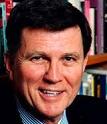
In 1970 Seattle, Wash.-born Stanford U. historian David M. Kennedy (1941-) pub. his first book Birth Control in America: The Career of Margaret Sanger (Bancroft Prize), followed by Social Thought in America and Europe (w/Paul A. Robinson) (1970), Progressivism: The Critical Issues (1971), The American People in the Depression (1973), The American People in the Age of Kennedy (1973), The American Pageant: A History of the Republic (w/Thomas A. Bailey and Lizabeth Cohen) (1979) (14th ed. 2010), Over Here: The First World War and American Society (1980), The American Spirit: United States History as Seen by Contemporaries (w/Thomas A. Bailey) (1983), and Freedom from Fear: The American People in Depression and War, 1929-1945 (1999) (vol. 9 in "The Oxford History of the United States) (Pulitzer Prize) (Francis Parkman Prize).
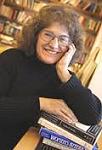
In 1970 Brooklyn, N.Y.-born U. of Iowa feminist intellectual historian Linda Kaufman Kerber (1940-) pub. her first book Federalists in Dissent: Imagery and Ideology in Jeffersonian America, followed by Women's America: Refocusing the Past (w/Jane Sherron De Hart) (1995), U.S. History as Women's History: New Feminist Essays (w/Alice Kessler-Harris and Kathryn Kish Sklar) (1995), Women of the Republic: Intellect and Ideology in Revolutionary America (1997), viewing the Am. Rev. through the eyes of women, showing how they were limited to "Republican Motherhood" by nurturing husbands and sons for the republic, after which they had to fight for their remaining rights for cents., Toward an Intellectual History of Women: Essays by Linda K. Kerber (1997), and No Constitutional Right to be Ladies: Women and the Obligations of Citizenship (1998).
In 1970 the Southern Assoc. for Women Historians is founded; in 2013 it establishes the Willie Lee Rose Prize for best book on Southern history written by a woman or women.

In 1971 Harting, West Sussex-born 17th cent. Britain historian Conrad Sebastian Robert Russell, 5th Earl Russell (1937-2004) (son of Bertrand Russell) pub. his first book The Crisis of Parliaments: English History 1509-1660, followed by The Origins of the English Civil War (1973), Parliaments and English Politics, 1621-1629 (1979), Unrevolutionary England, 1603-1642 (1990), claiming that any change caused by the English Civil War was unplanned, followed by The Causes of the English Civil War (1990), and The Fall of the British Monarchies, 1637-1642 (1991). On Nov. 11, 1999 the British House of Lords Act removes the automatic right of hereditary peers to sit in the House of Lords, but provides that the Earl Marshal and Lord Great Chamberlain continue for the time being to have seats so as to carry out their ceremonial functions; all but 92 hereditary peers are removed, with big brain Bertrand Russell's son Conrad elected to top the list of the peers to remain in their seats despite having argued in favor of abolishing the Lords completely and replacing it with an elected senate - dry your tears, one last kiss, it is time to let you go?

In 1971 Glamorgan, Wales-born British historian Sir Keith Vivian Thomas (1933-) pub. Religion and the Decline of Magic: Studies in Popular Beliefs in Sixteenth and Seventeenth Century England, bringing the history of magic into the history of ideas in Europe, making him a star. He follows with Age and Authority in Early Modern England (1976), and Man and the Natural World: Changing Attitudes in England, 1500-1800 (1983), revolutionizing the study of the 16th and early 17th cents.; "New sensibilities arose toward animals, plants, and landscape. The relationship of man to other species was redefined; and his right to exploit those species for his own advantage was sharply challenged." Too bad, in 1986 he suddenly decides to become pres. of Corpus Christi College, Oxford U., chucking his history career for administrative b.s. In 2009 he pub. The Ends of Life: Roads to Fulfilment in Early Modern England, some Ford Lectures from back in 2000 when he retired.
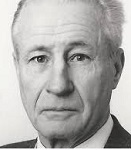
In 1971 English U. of London prof. George Albert "G.A." Wells (1926-2017) pub. the book The Jesus of the Early Christians: A Study in Christian Origins, questioning the historicity of Jesus Christ, causing a firestorm of controversy, while later accepting the existence of a mysterious itinerant Galilean miracle worker behind the Q document. In 1975 he pub. Did Jesus Exist?, which concludes that it's not very likely; he goes on to pub. several more books on the same topic until 2009 while making few converts. In 1982 he pub. The Historical Evidence for Jesus, followed by Religious Postures: Essays on Modern Christian Apologists and Religious Problems (1988), Who Was Jesus? A Critique of the New Testament Record (1989), Belief and Make-Believe: Critical Reflections on the Sources of Credulity (1991), What's in a Name? Reflections on Language, Magic and Religion (1993), The Jesus Legend (1996), The Jesus Myth (1999), The Acts of the Apostles: A Historical Record? (2000), Can We Trust the New Testament? Thoughts on the Reliability of Early Christian Testimony (2004), and Cutting Jesus Down to Size: What Higher Criticism Has Achieved and Where it Leaves Christianity (2009).
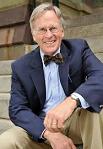
In 1972 Seattle, Wash.-born U. of Penn. historian Richard Roy Beeman (1942-) pub. his first book The Old Dominion and the New Nation, 1788-1801 (1972), followed by Patrick Henry: A Biography (1974), Beyond Confederation: Origins of the Constitution and American National Identity (1987), The Evolution of the Southern Backcountry: A Case Study of Lunenburg County, Virginia, 1746-1832 (1989), The Varieties of Political Experience in Eighteenth-Century America (2004), The Penguin Guide to the United States Constitution: A Fully Annotated Declaration of Independence, U.S. Constitution and Amendments, and Selections from the Federalist Papers (2010), Plain, Honest Men: The Making of the American Constitution (2010) (George Washington Book Prize), and Our Lives, Our Fortunes, Our Sacred Honor: Americans Choose Independence (2013).
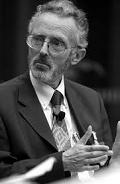
In 1972 Stanmore, London-born British historian Peter Burke (1937-) pub. his first book The Italian Renaissance: Culture and Society in Italy, establishing him as a leading cultural historian. In 1978 he pub. Popular Culture in Early Modern Europe (3rd ed. 2009). In 1980 he pub. Sociology and History. In 1987 he pub. The Renaissance, arguing that it wasn't easily separable from the Middle Ages and wasn't all about Italy, followed by THe French Historical Revolution: The Annales School 1929-89 (1990). In 1991 he pub. History and Social Theory. in 1992 he pub. The Fabrication of Louis XIV. In 1993 he pub. The Art of Conversation, followed by Varieties of Cultural History (1997), and The European Renaissance: Centres and Peripheries (1998). In 2000 he pub. A Social History of Knowledge: From Gutenberg to Diderot. In 2002 he and British historian Asa Briggs (1921-) pub. A Social History of the Media: From Gutenberg to the Internet. In 2012 he pub. A Social History of Knowledge Vol. 2: From the Encyclopedie to Wikipedia. In 2004 he pub. What is Cultural History? (2nd ed. 2008). In 2004 he pub. Languages and Communities in Early Modern Europe, followed by Cultural Hybridity (2009).

In 1972 New York City-born journalist-historian Frances FitzGerald (1940-) pub. Fire in the Lake: The Vietnamese and the Americans in Vietnam (Pulitzer Prize), a landmark book giving the South Vietnamese side of the Vietnam War (first book by an American on America in Vietnam), incl. how their traditions don't jive with Western notions of democracy, progress, and technology, dooming the U.S. effort from the start, along with the U.S. penchant for supporting gangsters who sell-out for U.S. money instead of patriotic George Washingtons like Ho Chi Minh, turning the pop. against them; "But the American officials in supporting the Saigon government insisted that they were defending 'freedom and democracy' in Asia. They left the GIs to discover that the Vietnamese did not fit into their experience of either 'communist' or 'democrats.' Under different circumstances this invincible ignorance..."; "Whatever strategy the American government uses to carry on the war, it will only be delaying the inevitable." In 1979 she pub. America Revised, which chronicles the evolution of U.S. history textbooks, showing how they are rigged to enhance patriotism, and how the New Social Studies Movement that tries to add race, ethnicity, class, and gender caused "the most dramatic rewriting of history ever to take place". She follows with Cities on a Hill: A Brilliant Exploration of Visionary Communities Remaking the American Dream (1987), Way Out There in the Blue: Reagan, Star Wars, and the End of the Cold War, which disses the idea of defending the U.S. from ICBMs - with a half-caf decaf from Sonic? In 2001 she and Mary Cross pub. Vietnam: Spirits of the Earth, a lush picture book of modern Vietnam.

In 1972 Cotulla, Tex.-born historian John Lewis Gaddis (1941-) pub. his first book The United States and the Origins of the Cold War, 1941–1947 (rev. ed. 2000), arguing that Stalin's personality is one of the most important causes, and that the U.S. had a relatively narrow range of options, establishing him as a leading authority on the Cold War, launching his career as "Dean of Cold War Historians". He follows with Russia, the Soviet Union, and the United States: An Interpretive History (1978) (rev. ed. 1990), proposing post-revisionism, the concept that it's time for new interpretations of the Cold War based on the stream of new govt. documents being released, Strategies of Containment: A Critical Appraisal of Postwar American National Security (1982) (rev. ed. 2005), The Long Peace: Inquiries into the History of the Cold War (1987), The United States and the End of the Cold War: Implications, Reconsiderations and Provocations (1992), The Tragedy of Cold War History (1993), On Moral Equivalency and Cold War History (1996), We Now Know: Rethinking Cold War History (1997), The Landscape of History: How Historians Map the Past (w/Philip H. Gordon, Ernest R. May, and Jonathan Rosenberg) (2002), Surprise, Security, and the American Experience (2004), The Cold War: A New History (2005), and George F. Kennan: An American Life (2011) (Pulitzer Prize), about U.S. diplomat George Frost Kennan (1904-2005), the "Father of Containment".
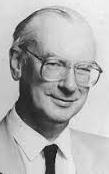
In 1972 Aberdeen, Scotland-born evangelical Christian historian Kenneth Anderson Kitchen (1932-) pub. The Third Intermediate Period in Egypt, 1100-650 BC, which becomes a std. work, followed by Pharaoh Triumphant: The Life and Times of Ramesses II, King of Egypt (1982), bringing him to life, making him one of the world's top Egyptologists, "the very architect of Egyptian chronology" (The Times of London). In 2003 he pub. On the Reliability of the Old Testament, attempting to prove the historicity of the Old Testament.
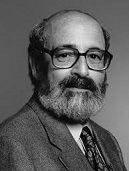
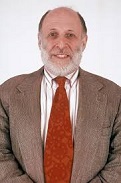
In 1972 U. of Penn. intellectual historian Alan Charles Kors (1943-) pub. his first book Witchcraft in Europe, 400-1700: A Documentary History (eds. with Edward Peters); rev. ed. 2001. In 1976 he pub. D'Holbach's Coterie: An Enlightenment in Paris, followed by Atheism in France, 1650–1729: The Orthodox Sources of Disbelief (1990). In 1999 Kors and Cambridge, Mass.-born Harvey Allan Silverglate (1942-) pub. The Shadow University: The Betrayal Of Liberty On America's Campuses), lamenting their takeover by a PC regime that makes them the enemy of free society, causing them to found the Foundation for Individual Rights in Education (FIRE) in Philly in 1999; "It seems now that the place where you see the most obvious censorship is on college campuses - the precise place where you would expect to see the least." (Kors) He follows with Encyclopedia of the Enlightenment< (4 vols.) (2002), Naturalism and Unbelief in France, 1650-1729 (2016), and Epicureans and Atheists in France, 1650-1729 (2016).

In 1972 Am. Yale U. history student Alfred William McCoy (1945-) pub. The Politics of Heroin in Southeast Asia, based on his June 2 testimony before the U.S. Senate appropriations committee, claiming that the CIA has been involved in heroin production in the Golden Triangle of Burma, Thailand, and Laos, going on to become the #1 historian of Southeast Asia at the U. of Wisc.-Madison in 1989-.
In 1972 the Wolfson History Prizes (originally Wolfson Lit. Awards) are established by the Wolfson Foundation for British history writers.
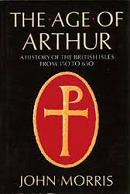
In 1973 English Univ. College, London historian John Robert Morris (1913-77), 1952 founder of the journal Past and Present pub. The Age of Arthur: A History of the British Isles from 350 to 650, the first attempt by a prof. historian to chronicle the Celtic civilization of the British Isles and Brittany during and after the Roman occupation, attempting to please King Arthur lovers by claiming his historicity; too bad, a review by David Dumville attacks its methodology, and other reviewers expose it as "a tangled tissue of fact and fantasy which is both misleading and misguided", hurting his rep. with fellow historians, which doesn't stop the public from eating it up. In 1982 he posth. pub. his last book Londinium: London in the Roman Empire.

In 1973 Columbus, Ohio-born U. of Mich. (later UCLA and SUNY) feminist historian Kathryn Kish Sklar (1939-) pub. her first book Catharine Beecher: A Study in American Domesticity (1973), followed by Women and Power in American History: From 1870 to 1880: A Reader (w/Thomas Dublin) (2 vols.) (1991) (2nd ed. 2002), Florence Kelley and the Nation's Work: The Rise of Women's Political Culture, 1830-1900 (1995), U.S. History as Women's History: New Feminist Essays (w/Linda K. Kerber and Alice Kessler-Harris) (1995), Social Justice Feminists in the United States and Germany: A Dialogue in Documents, 1885-1933 (w/Anja Schuler and Susan Strasser) (1998), Women's Rights Emerges within the Anti-Slavery Movement, 1830-1870: A Brief History with Documents (2000), Women's Rights and Transatlantic Anti-Slavery in the Era of Emancipation (2007), The Selected Letters of Florence Kelley, 1869-1931 (w/Beverly Wilson Palmer) (2009), and Competing Kingdoms: Women, Mission, Nation, and the Protestant American Empire, 1776-1960 (w/Barbara Reeves-Ellington and Connie A. Shemo) (2010).
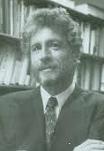
In 1974 Lewisburg, Tenn.-born Caltech historian Joseph Morgan Kousser (1943-) pub. his first book The Shaping of Southern Politics: Suffrage Restriction and the Establishment of the One-Party South, 1880-1910, followed by Religion, Race, and Reconstruction: Essays in Honor of C. Vann Woodward (1982), Dead End: The Development of Litigation on Racial Discrimination in Schools in 19th Century America (1986), How to Determine Intent: Lessons from L.A. (1990), Colorblind Injustice: Minority Voting Rights and the Undoing of the Second Reconstruction (1999), and Do the Facts of Voting Rights Support Chief Justice Roberts's Opinion in Shelby County? (2014).

In 1975 after his wealthy babe Joan Simpson Halphen lets him sponge to begin a second career as a historian of sponge, er, espionage, WWII, and the Cold War, Bath, England-born Am. journalist Anthony Cave Brown (1929-2006) pub. his first book Bodyguard of Lies; title comes from a quote by Sir Winston Churchill: "In war-time, truth is so precious that she should always be attended by a bodyguard of lies"; about the role of codebreaking in WWII and D-Day, written despite active opposition by the govts. of U.K. and U.S., causing critics to turn around and criticize it for inaccuracies. He follows with The Secret War Report of the OSS (1976), The Secret History of the Atomic Bomb (1977) (w/Charles b. MacDonald), Operation World War III: Secret American Plan ("Dropshot") for War with the Soviet Union in 1957 (1979), On a Field of Red: The Communist International and the Coming of World War II (1981), Wild Bill Donovan: The Last Hero (1982), C: The Secret Life of Sir Stewart Graham Menzies, Spymaster to Winston Churchill (1987), his role with the Ultra Project and mistakes with Soviet mole Kim Philby, Treason in the Blood: H. St. John Philby, Kim Philby, and the Spy Case of the Century (1994), by a former drinking buddy of Kim Philby before his 1963 defection to the Soviet Union, and Oil, God and Gold: The Story of Aramco and the Saudi Kings (1999).

In 1975 Pasadena, Calif.-born historian Paul Fussell Jr. (1924-2012) pub. The Great War and Modern Memory, which centers on WWI Western Front writers Edmund Blunden, Robert Graves, Wilfred Owen, Siegfried Sassoon et al., showing how literature can be a vehicle for expressing the experience of large groups, claiming that WWI replaced traditional expressions of mourning with "modern memory"; "How many good books are there about the first world war at the individual level? What Paul did was go to the literary treatments of the war by 20 or 30 participants and turn them into an encapsulation of collective European experience; (John Keegan); "The best book I know of about world war one." (Joseph Heller) In 1989 he pub. Wartime: Understanding and Behavior in the Second World War, extending his coverage to WWII, focusing on common soldiers and civilians, showing how the Allied War effort has been sanitized and romanticized almost beyond recognition by "the sentimental, the loony patriotic, the ignorant, and the bloodthirsty." He follows with The Norton Book of Modern War (1990), and The Boys' Crusade: The American Infantry in Northwestern Europe, 1944-1945 (2003); "At this distance it may not be easy to remember that the European ground war in the west was fought by American boys 17, 18 and 19 years old…. These infantry soldiers, if they weren't children, weren't quite men either... Taken as a whole, the boys had a powerful propulsion of optimism, a sense that the war couldn't last forever, and that if anyone was going to get wounded, it would not be them."

In 1975 after becoming obsessed with murder-homicide statistics across countries and centuries in grad school, then becoming intrigued by the factors behind "whatever it is that makes homicide a particularly American problem", Kansas City, Mo.-born U. of Minn. (later UCLA) urban historian Eric Henry Monkkonen (1942-2005) pub. The Dangerous Class: Crime and Poverty in Columbus, Ohio, 1860-1885, followed by Police in Urban America: 1860-1920 (1981), documenting their rapid rise in the 19th cent. and how they started out administering welfare services before getting serious and badass, and American Becomes Urban: The Development of U.S. Cities and Towns, 1780-1980 (1988), containing the soundbyte: "Both in England and the United States the city has turned out to be far more fluid residentially, more rigid occupationally, and in the U.S. more complex ethnically than probably anyone imagined." He follows with History of Urban Police (1992), Violence and Theft (w/K.J. Saur) (1992), Engaging the Past: The Uses of History Across the Social Sciences (1994), The Local State: Public Money and American Cities (1995), about how city govts. raise money by selling bonds that often go bad, The Civilization of Crime: Violence in Town and Country Since the Middle Ages (w/Eric Arthur Johnson) (1996), documenting a gen. decline in violence since the late Middle Ages, even in the face of industrialization and urbanization; too bad, New York City is a bad apple? He follows with Murder in New York City (2001), documenting New York City's eternally higher violence than Euro cities using a database of 1.7K cases over 200 years, concluding that most murderers are men, and that murders are most often committed in the heat of passion after an argument; "Usually, the motives are the need to assert manliness, power or territory." He follows with Crime, Justice, History (essays) (2002), and Homicide: Explaining America's Exceptionalism (essay) (posth.) (2006), a last attempt to explain higher U.S. murder rates.
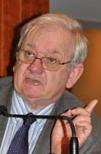
In 1976 English historian John Stephen Morrill (1946-) (specialist in British history from 1500-1750, known for his county studies approach) pub. his first work Revolt of the Provinces: Conservatives and Radicals in the English Civil War, 1630-1650, followed by The Civil War and Interregnum: Sources for Local Historians (w/G.E. Aylmer) (1979), Seventeenth Century Britain, 1603-1714 (1980), Reactions to the English Civil War, 1642-1649 (1982), Charles I (w/Christopher W. Daniels) (1988), Oliver Cromwell and the English Revolution (1990), The Impact of the English Civil War (1991), The Nature of the English Revolution (1993), The British Problem, ca. 1534-1707: State Formation in the Atlantic Archipelago (w/Brendan Bradshaw) (1996), The Oxford Illustrated History of Tudor and Stuart Britain (1996), The Civil Wars: A Military History of England, Scotland, and Ireland 1638-1660 (w/John Kenyon and Jane Ohlmeyer) (1998), Revolt in the Provinces: The English People and the Tragedies of War, 1634-1648 (1999), Stuart Britain: A Very Short Introduction (2000), Uneasy Lies the Head That Wears a Crown: Dynastic Crises in Tudor and Stewart Britain, 1504-1746 (2005), Oliver Cromwell (2007), Firmly I Believe and Truly: The Catholic Spiritual Tradition of Catholic England, 1483-1999 (w/John Saward and Michael Tomko) (2011), and The Nature of the English Revolution Revisited: Essays in Honour of John Morrill (ed. Stephen Taylor and Grant Tapsell) (2013).

In 1976 English Communist-turned-Socialist historian Raphael Elkan Samuel (1934-96) et al. found History Workshop Journal at Oxford U. to promote "history from below", i.e., people's history.
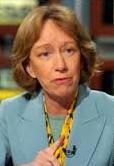
In 1977 after working for Pres. Lyndon B. Johnson and helping him write his memoirs, Brooklyn, N.Y.-born historian and sports journalist (first female to report from the locker room of the Boston Red Sox) Doris Kearns Goodwin (1943-) pub. the NYT bestseller Lyndon Johnson and the American Dream, followed by The Fitzgeralds and the Kennedys: An American Saga (1987), and No Ordinary Time: Franklin and Eleanor Roosevelt: The Home Front in World War II (1994) (Pulitzer Prize), based on interviews with 86 people who knew them personally; how FDR put himself to sleep during WWII by imagining riding his sled down a hill in Hyde Park, N.Y. as a boy then climbing back up to the top. She follows with Wait Till Next Year: A Memoir (1997), about growing up loving baseball, marking the end of her childhood with the day the Dodgers left Brooklyn in 1957, followed by the death of her mother, Every Four Years: Presidential Campaign Coverage from 1896 to 2000 (2000), and Team of Rivals: The Political Genius of Abraham Lincoln (2005), about how he managed his cabinet, becoming a favorite of Pres. Obama and used as a basis for the 2012 Steven Spielberg film "Lincoln". She follows with The Bully Pulpit: Theodore Roosevelt, William Howard Taft, and the Golden Age of Journalism (2013), about the birth of muckraking journalism, causing the New York Times to call her "America's historian-in-chief".
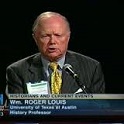
In 1977 Detroit, Mich.-born British imperial historian WIlliam Roger Louis (1936-) pub. Imperialism at Bay, 1941-1945. In 1984 he pub. The British Empire in the Middle East, 1941-1951. In 1998-9 he pub. The Oxford History of the British Empire (5 vols.).

In 1977 Pittsburgh, Penn.-born historian David Gaub McCullough (1933-), known for his interesting middle Am. accent speaking voice pub. The Path Between the Seas: The Creation of the Panama Canal, 1870-1914, with Pres. Carter attributing the ratification of the treaties passing control of the Panama Canal to Panama to this book; "All through the Senate debates on the issue the book was quoted again and again, and I'm pleased to say that it was quoted by both sides. Real history always cuts both ways." (McCullough) It is followed by Mornings on Horseback: The Story of an Extraordinary Family, a Vanished Way of Life, and the Unique Child Who Became Theodore Roosevelt (1981) (bio. of Teddy Roosevelt from ages 10-28), Brave Companions: Portraits in History (1991) (essays), Truman (1992) (Pulitzer Prize), John Adams (2001) (Pulitzer Prize), containing the soundbyte: "The problem with Adams is that most Americans know nothing about him", 1776 (2005), containing the military story, incl. the two Georges, and the inside story of how hard it was to create a free society, The Greater Journey: Americans in Paris (2011), about Americans who lived in Paris in 1830-1900 incl. James Fenimore Cooper, Mark Twain, Samuel Morse, Elihu Washburne, Elizabeth Blackwell, Mary Cassatt, George Healy, and Augustus Saint-Gaudens, and The Wright Brothers (2015).

In 1977 Marylebone, London-born English historian Simon Schama (1945-) pub. his first book Patriots and Liberators: Revolution in the Netherlands, 1780-1813 (Wolfson History Prize), about the pro-U.S. Dutch Patriot rev. He follows with Two Rothschilds and the Land of Israel (1978), about Edmond James de Rothschild and James Armand de Rothschild. In 1987 he pub. his first hit The Embarrassment of Riches: An Interpretation of Dutch Culture in the Golden Age, about the 17th cent. Dutch Golden Age, turning him into an art historian. In 1989 he pub. the hit Citizens: A Chronicle of the French Revolution, claiming that the French Rev. didn't produce a "patriotic culture of citizenship", but was preceded by one, filled with interesting anecdotes and a cool description of the Reign of Terror, becoming a hit, becoming controversial for its claim that the violence was inherent from the start. In 1991 he pub. the bigger hit Dead Certainties (Unwarranted Speculations), trying to make a connection between the deaths of Gen. James Wolfe and George Parkman, uncle of Francis Parkman, exploring the historian's inability "ever to reconstruct a dead world in its completeness however thorough or revealing the documentation", and speculatively bridging "the teasing gap separating a lived event and its subsequent narration"; "Historians shouldn't make it up, but I did." In 1995 he pub. the hit Landscape and Memory, exploring the relationship between folk memory and physical environment. In 1995-8 he becomes art critic for The New Yorker. In 1999 he pub. Rembrandt's Eyes, which contrasts Rembrandt van Rijn and Peter Paul Rubens. In 2000-2 he pub. A History of Britain (3 vols.) to accompany his 15-episode BBC-TV series (Sept. 30, 2000-June 18, 2002). In 2005 he pub. Rough Crossings: Britain, the Slaves and the American Revolution, about the Black Loyalists of the Am. Rev. who fled to Britain, and their fate. In 2006 he pub. The Power of Art, bios. of Euro artists; 8 episodes are aired on BBC-TV in Oct.-Nov.
In 1977 the Society for Historians of the Early American Republic (SHEAR) is founded in Philadelphia, Penn., with the U. of Penn. Press going on to pub. the quarterly Journal of the Early Republic, which covers 1776-1861.
In 1977 the Am. Society for Environmental History (ASEH) is founded at the U. of Wash. in Tacoma, Wash., going on to pub. the journal Environmental History.

In 1978 after escaping the 1956 Hungarian Uprising and moving "out west" to S.D., becoming a fan of Abraham Lincoln, Budapest, Hungary-born Jewish-Am. U. of Mich. historian Gabor S. Borrit (1940-) pub. his first book Lincoln and the Economics of the American Dream, which claims that "the right to rise" is at the center of Lincoln's outlook. In 1981 he is given the first fully-funded chair for the study of the U.S. Civil war at Gettysburg College at its Civil War Inst., helping create the Gilder Lehrman Inst. of Am. History and the $50K Lincoln Prize. He follows with Changing the Lincoln Image (w/Harold Holzer and Mark E. Neely Jr.) (1985), Why the Confederacy Lost (1993), War Comes Again: Comparative Vistas on the Civil War and World War II (w/David Eisenhower) (1995), Lincoln's Generals (w/Stephen W. Sears) (1995), The Historian's Lincoln: Pseudohistory, Psychohistory, and History (1996), The Gettysburg Nobody Knows (1997), which takes on Gary Wills' "Lincoln at Gettysburg" (1992), Jefferson Davis's Generals (1999), The Lincoln Enigma: The Changing Faces of an American Icon (2002), The Lincoln Image: Abraham Lincoln and the Popular Print (2005), The Gettysburg Gospel: The Lincoln Speech Nobody Knows (2006), Slavery, Resistance, Freedom (w/Scott Hancock) (2009), and The Will of God Prevails: Meditations on God and the Gettysburg Address (2014).
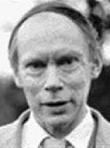
In 1978 British architectural historian Mark Girouard (1931-) pub. Life in the English Country House: A Social and Architectural History, exploring bldgs. as a reflection of the society that produced them, helping launch the New Art History Movement of the 1980s. He follows with Historic Houses of Britain (1979), The Victorian Country House (1979), Alfred Waterhouse and the Natural History Museum (1981), The Return to Camelot: Chivalry and the English Gentleman (1981), Robert Smythson and the Elizabethan Country House (1983), Cities and People: A Social and Architectural History (1985), The English Town: A History of Urban Life (1990), Town and Country (1992), Windsor: The Most Romantic Castle (1993), Big Jim: The Life and Work of James Stirling [1926-92] (1998); Life in the French Country House (2000), Elizabethan Architecture: Its Rise and Fall, 1540-1640 (2009), and Enthusiasms (essays) (2011).

In 1978 Washington, D.C.-born historian Walter Allen McDougall (1946-) pub. his first book France's Rhineland Diplomacy, 1914-1924: The Last Bid for a Balance of Power in Europe, followed by The Grenada Papers (1984), and ...the Heavens and the Earth: A Political History of the Space Age (1985) (Pulitzer Prize), which claims that the Soviet Union went into space first because it was the world's first technocracy, which he defines as "the institutionalization of technological change for state purpose." He follows with Let the Sea Make a Noise: A History of the North Pacific from Magellan to MacArthur (1993), Promised Land, Crusader State: The American Encounter With the World Since 1776 (1997), Freedom Just Around the Corner: A New American History, 1585-1828 (2004), which calls the U.S. "the central event of the past four hundred years", showing how Americans used their historically unequalled freedom for both good and bad, and Throes of Democracy: The American Civil War Era, 1829-1877 (2008).

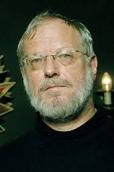
In 1978 Jerusalem-born Protestant-turned-agnostic Palestinian Arab Edward Wadie Said (1935-2003) pub. Orientalism, which disses Westerners for their views of the East, claiming they're biased by imperialist attitudes and should be chucked because the East isn't necessarily inferior to the West just because it's technologically and socially backward, making him an instant Western academic star, becoming a pseudo-religion one must ascribe to in order to get tenure in Am. Middle East studies depts. until ?; claims that the work of Western scholars on the Middle East embodies "a Western style for dominating, restructuring, and having authority over the Orient", creating the intellectual infrastructure for justifying colonialism and imperialism, and as such, every European scholar is automatically "a racist, an imperialist, and totally ethnocentric"; confuses the issue of Islam with racism, ignoring the fact that the Middle East is all about the ideology of Islam, which wants to absorb all races and just happened to start in Arabia, hence the darker skins of Muslims are just an historical accident?; in 2006 Guildford-born English historian-novelist Robert Graham Irwin (1946-) (student of Bernard Lewis) pub. For Lust of Knowing: The Orientalists and Their Enemies, calling Said's work "malignant charlatanry, in which it is hard to distinguish honest mistakes from willful misrepresentations", pointing out that his criticism focuses on British and French scholars, when it was the German ones who made the most original contributions, and ignores Russia's imperialist designs on C Asia and the Caucasus, lumping them in with the other Euro countries who had designs on the Middle East, finally noting that Western Orientalism "owes more to Muslim scholarship than most Muslims realise"; "I am a medievalist, but he hates the Middle Ages. Altogether he loathes the past, he does not have the ability to enter into the spirit of other ages. He lies about European novelists and twists their words; I am myself a novelist with great sympathy for some of those whom he denounces in his book. Finally, I am an orientalist, too, and his book is a long and persevering polemic against my subject, so I need to ask: is there anything at all to like in Said's book? - No. It is written far too quickly and carelessly. It abounds with misprints and mis-spelled names. It is an extremely polemic book, and throughout time many polemic books for or against Islam and the Muslim world have been written, but none have been taken seriously in the same way as Said"; "The fact is that researchers cannot build anything on Said's thoughts - dead-end... He has made it difficult for Westerners to say anything critical about Islam and the Muslim world. You cannot do that because then you run the risk of getting denounced as an orientalist, i.e. a racist, an imperialist and other terrible things."

In 1978 Oldham, Lancashire, England-born intellectual historian Quentin Robert Duthie Skinner (1940-) pub. The Foundations of Modern Political Thought (2 vols.), covering the Renaissance incl. Dante, Marsiglio, Bartolus, Macchiavelli, and Erasmus, and the Age of Reformation incl. Luther and Calvin, which the London Times lists in the "100 Most Influential Books Since World War II", making Murray N. Rothbard a fan; he later starts using the term "neo-Roman" instead of "republican".
In 1978 the Am. Assoc. for the History of Nursing (AAHN) (originally Internat. History of Nursing Society) is founded, pub. The Nursing History Review.
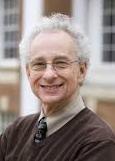
In 1979 Brooklyn, N.Y.-born Vanderbilt U. (later U. of Va.) historian Melvyn Paul Leffler (1945-) pub. The Elusive Quest: America's Pursuit of European Stability and French Security, 1919-1933, followed by A Preponderance of Power: National Security, The Truman Administration, and the Cold War (1992) (Bancroft Prize), Inside Enemy Archives: The Cold War Reopened (Foreign Affairs) (July-Aug, 1996), Origins of the Cold War: An International History (w/David S. Painter) (2005), For the Soul of Mankind: The United States, the Soviet Union, and the Cold War (2007) (George Louis Beer Prize), and To Lead the World: After the Bush Doctrine (w/Jeffrey Legro) (2008).

In 1980 Oldham, Lancashire-born British historian Sir Ian Kershaw (1943-) (disciple of Martin Broszat) pub. his first book The 'Hitler Myth': Image and Reality in the Third Reich (English trans. in 1987), about how the Hitler cult was developed by propaganda master Joseph Goebbels, failing to completely penetrate the hard shell of the masses, requiring the Nazi elite to do all of the dirty work. In 1983 he pub. Popular Opinion and Political Dissent in the Third Reich, examining grassroots support for the Third Reich in Bavaria, based on their traditional Catholic anti-Semitism combined with a feeling of helplessness, with the soundbyte: "The muddled majority, neither full-hearted Nazis nor outright opponents, whose attitudes at one and the same time betray signs of Nazi ideological penetration and yet show the clear limits of propaganda manipulation"; he argues that most Bavarians were not active haters of Jews but merely disliked them and were only vaguely aware of the Holocaust, with the soundbyte: "The road to Auschwitz was built by hate, but paved with indifference." In 1985 he pub. The Nazi Dictatorship, discussing the range of views among historians about the Third Reich. In 1991 he pub. Hitler: A Profile in Power. In 1997 he pub. Stalinism and Nazism: Dictatorships in Comparison, followed by Hitler: 1889-1936) (1998), Hitler: 1936-1945, Hitler, the Germans, and the Final Solution (2008), and The End: Hitler's Germany 1944-45 (2011).
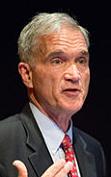
In 1980 New York City-born historian-anthropologist David I. Kertzer (1948-), a specialist on Italy pub. his first book Comrades and Christians: Religion and Political Struggle in Communist Italy, followed by Family Life in Central Italy, 1880-1910: Sharecropping, Wage Labor and Coresidence (1984), Ritual, Politics and Power (1988), Family, Political Economy, and Demographic Change: The Transformation of Life in Casalecchio, Italy, 1861-1921 (w/Dennis P. Hogan) (1989), Sacrificed for Honor: Italian Infant Abandonment and the Politics of Reproductive Control, (1993), Politics and Symbols: The Italian Communist Party and the Fall of Communism (1996), The Kidnapping of Edgardo Mortara (1997), and The Popes Against the Jews: The Vatican's Role in the Rise of Modern Anti-Semitism, which claims that several popes actively contributed to the rise of Euro anti-Semitism leading to the Holocaust, generating a firestorm of controversy. He follows with Prisoner of the Vatican: The Pope's Plot to Capture Italy from the New Italian State (2004), Amalia's Tale: A Peasant's Fight for Justice in 19th Century Italy (An Impoverished Peasant Woman, an Ambitious Journey, and a Fight for Justice) (2008), and The Pope and Mussolini: The Secret History of Pius XI and the Rise of Fascism in Europe (2014) (Pulitzer Prize), which claims that Pius XI played a significant role in supporting the rise of Fascism in Italy, but started to flop after the rise of Nazi Germany, causing future Pope Pius XII to struggle to restrain him from breaking with Mussolini until he could take over and play Vatican footsie with Hitler.

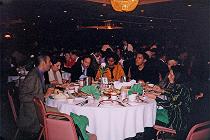
In 1980 after the rise of the PLO et al. and over a decade of terrorism greased by Saudi oil money and Soviet infiltration cause Am. and European academia to be taken over by his kind, Palestinian-Lebanese-Am. historian of the Middle East Rashid Ismail Khalidi (1948-) begin pub. history-based agitprop lobbying against Israel and for the Palestinian cause, labelling it an "apartheid system in creation" and a "racist" state, with Israeli ambassador Michael B. Oren later uttering the soundbyte that "Khalidi is mainstream" because "the stream itself has changed. The criteria for scholarship have become very political." In 1980 he pub. British Policy Towards Syria and Palestine, 1906-1914, followed by Palestine and the Gulf (1982), and Under Siege: PLO Decisionmaking During the 1982 War (1986), getting him a position on the faculty of the U. of Chicago U. in 1987-95, where he becomes "one of the most influential commentators from within Middle Eastern Studies", and a good friend of up-and-coming Barack Obama. In 1991 he pub. The Origins of Arab Nationalism, followed by Palestinian Identity: The Construction of Modern National Consciousness (1997), his biggest hit, which claims an Arab Palestinian nat. consciousness began forming in the early 20th cent., overlapping with loyalties to Greater Syria, pan-Arabism, and local regions and villages, with the soundbyte: "Local patriotism could not yet be described as nation-state nationalism", pointing with pride to anti-Zionist Arab press in the 1880s. In 2001 he gives an interview to North Coast Xpress, in which he utters the soundbyte: "Every other single place on the face of the earth is in support of the Palestinians, yet all of them together aren't a hill of beans compared to the United States and Israel, because the United States and Israel can basically do anything they please. They are the world superpower, they are the regional superpower." In 2003 he moves to Columbia U. as Edward Said Prof. of Modern Arab Studies, for which a dinner is held to honor him, in which friend Barack Obama warmly praises him, reminiscing about the many yummy meals cooked for him by Khalid's Muslim wife Mona Khalidi (who in the 1970s-80s worked for the PLO's official news agency WAFA as an English translator), along with discussions he had with Khalidi that were "consistent reminders to me of my own blind spots and my own biases... It's for that reason that I'm hoping that for many years to come we continue that conversation, a conversation that is necessary not just around Mona and Rashid's dinner table, but this entire world." In 2004 he pub. Resurrecting Empire: Western Footprints and America's Perilous Path in the Middle East, which accuses the U.S. of imperialism and colonialism, warning that it will backfire, with the opening words: "I wrote this book before, during, and immediately after the March 2003 invasion of Iraq, out of a desire to warn against what I believed was a looming disaster." In 2006 he pub. The Iron Cage: The Story of the Palestinian Struggle for Statehood (2006), an attempt to explain why Palestinians failed to win a state of their own, while never mentioning the root cause of jihad, which makes then only want a 1-state solution, namely, with Israel exterminated, even suggesting opening talks with Hamas, gaining glowing reviews from the PC media. In the 2008 U.S. pres. campaign Obama gets into hot water for his friendship with this pro-Palestinian anti-Israel professor, causing him to backpeddle and call his commitment to Israel "unshakeable", denying that Khalidi consults with him on foreign policy; his team then strikes back against Repub. opponent John McCain by digging up info. about the Internat. Repub. Inst., which gave $500K to his Center for Palestine Research and Studies in the 1990s while he was chmn. In 2009 he pub. Sowing Crisis: The Cold War and American Dominance in the Middle East, attacking U.S. policies during the Cold War, claiming that although they were formulated to oppose the Soviets, they "consistently undermined democracy and exacerbated tensions in the Middle East"; "It may seem hard to believe today, but for decades the United States was in fact a major patron, indeed in some respects the major patron, of earlier incarnations" of radical militant Islam in order to help them win; "The Cold War was over, but its tragic sequels, its toxic debris, and its unexploded mines continued to cause great harm, in ways largely unrecognized in American discourse." In 2013 he pub. Brokers of Deceit: How the U.S. Has Undermined Peace in the Middle East, letting it all out.

In 1980 Brooklyn, N.Y.-born longtime Marxist rebel-rousing power-to-the-people activist Howard Zinn (1922-2010) pub. the bestseller (2M copies) A People's History of the United States, with the intention of starting a "quiet revolution"; calls himself "something of an anarchist, something of a socialist. Maybe a democratic socialist"; "Not a revolution in the classical sense of a seizure of power, but rather from people beginning to take power from within the institutions. In the workplace, the workers would take power to control the conditions of their lives"; revised several times through 2005; eventually takes over most U.S. campuses, who are filled with history ignoramuses and want to be taught what they want to hear, not minding that the book is a pick-and-choose patchwork riddled with errors and lies?; "the deranged quality of his fairy tale, in which the incidents are made to fit the legend, no matter how intractible the evidence of American history" (Oscar Handlin); "Bad history, albeit gilded with virtuous intentions" (Michael Kazin); he follows it with Voices of a People's History of the United States (w/Anthony Arnove) (2004), containing primary sources; "I want to point out that people who seem to have no power, whether working people, people of color, or women - once they organize and protest and create movements - have a voice no government can suppress."

In 1981 British historian John Gareth Darwin (1948-) pub. his first book Britain, Egypt, and the Middle East: Imperial Policy in the Aftermath of War, 1918-1922, followed by The Empire of the Bretaignes, 1175-1688: The Foundations of a Colonial System of Government (1985), Triumphs of Big Ben (1986), Britain and Decolonisation: The Retreat from Empire in the Post-War World (Making of the 20th Century) (1988), The End of the British Empire: The Historical Debate (Making Contemporary Britain) (1991), After Tamerlane: The Global History of Empire Since 1405 (2008) (Wolfson History Prize), The Empire Project: The Rise and Fall of the British World-System, 1830-1970 (2009), and Unfinished Empire: The Global Expansion of Britain (2013).

In 1981 Soviet-Russian topologist Anatoly Timofeevich Fomenko (1945-) pub. the first of several papers using astronomical calculations, statistical correlations et al. to boldly claim that conventional historial chronology is moose hockey and offering his own New Chronology (N.C.) that starts out with Jesus Christ being born in 1153 C.E. and crucified in 1186 C.E., and claims that all of ancient history is just a reflection of events that occurred in the Middle Ages, also that the Crusades and the Trojan War were the same event, that Genghis Khan and the Mongols were really Russians, and that all of Chinese and Arab history were fabricated by 17th-18th cent. Jesuits incl. Dionysius Petavius, along with 16th cent. chronologist Joseph Justus Scaliger; according to the N.C., written history stops at 800 C.E., there is little info. up to 1000 C.E., and most known historical events took place in 1000-1500 C.E.; English history from 640-1040 C.E. and Byzantine history from 378-830 C.E. are copied from the same late-medieval source, created after the survivors of the er, 1453 capture of Constantinople by the er, Muslims fled to England and brought civilization with them, e.g. Egbert is really Justinian the Great; of course N.C. rejects archeological, dendrochonological, and paleographic dating, along with carbon dating; in 2003 he pub. Antiquity in the Middle Ages: Greek and Bible History, proposing the Fomenko Topological Transformation of History.

In 1981 Boston, Mass.-born Harvard-educated pro-Israel Jewish historian Daniel Pipes (1949-), son of Richard Pipes pub. his first book Slave Soldiers and Islam: The Genesis of a Military System, based on his doctoral thesis, switching from medieval to modern Islam after the 1979 Iranian Rev., following with Mawlas: Freed Slaves and Converts in Early Islam (1981), In the Path of God: Islam and Political Power (1983) (about Islam's "medieval synthesis" that toned down Sharia), Greater Syria: The History of an Ambition (1990), The Rushdie Affair: The Novel, the Ayatollah, and the West (1990), Friendly Tyrants: An American Dilemma (w/A. Garfinkle), and Damascus Courts the West: Syrian Politics 1989-1991 (1991). On Jan. 24, 1994 he founds the Middle East Forum in Philly to define and promote U.S. interests in the Middle East and protect it from Middle Eastern threats. In 1995 he pub. Syria: Beyond the Peace Process, followed by The Hidden Hand: Middle East Fears of Conspiracy (1996), Conspiracy: How the Paranoid Style Flourishes and Where It Comes From (1997), Militant Islam Reaches America (2002), In the Path of God: Islam and Political Power (2002), and Muslim Immigrants in the United States, bragging about how he warned about al-Qaida planning attacks on the U.S. 4 mo. before 9/11, piping on the Muslim threat to the U.S., claiming that Saudia Arabia is a "rival" to the U.S. and should be sued by 9/11 families for compensation, advocating that Muslims in U.S. govt. positions be treated as security risks, and asserting that U.S. mosques are militant breeding grounds; he later backs the U.S. Iraq War, claiming that winning it will reduce not increase terrorism, and also claims that Barack Obama is an apostate Muslim subject to execution; meanwhile he founds the Web site Campus Watch, causing a filibuster in the U.S. Senate led by Tom Harkin (D-Iowa) against his nomination by Pres. Bush to the board of the U.S. Inst. of Peace. In 2003 he pub. Miniatures: Views of Islamic and Middle Eastern Politics (essay). On July 26, 2005 he pub. the prophetic article What Do the Terrorists Want?: A Caliphate and Shari'a in the New York Sun.
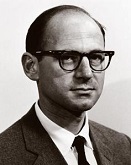
In 1982 Vienna, Austrian-born Jewish-Am. Marxist anthropologist Eric Robert Wolf (1923-99) pub. Europe and the People Without History, wjhich disses historians for ignoring everybody except the ruling classes, pointing out the participation of non-Europeans in the fur and slave trades.

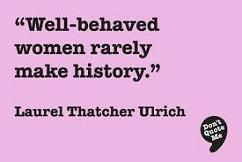
In 1982 Sugar City, Idaho-born Harvard U. feminist Mormon (oxymoron?) historian Laurel Thatcher Ulrich (1938-) pub. her first book Good Wives: Image and Reality in the Lives of Women in Northern New England, 1650-1750, followed by A Midwife's Tale: The Life of Martha Ballard Based on Her Diary, 1785-1812 (1990) (Pulitzer Prize), All God's Critters Got a Place in the Choir (w/Emma Lou Thayne) (1995), The Age of Homespun: Objects and Stories in the Creation of an American Myth (2001), and Yards and Gates: Gender in Harvard and Radcliffe History (2004). In 2007 she pub. Well-Behaved Women Seldom Make History, about how her slogan in the obscure 1976 scholarly article Vertuous Women Found: New England Ministerial Literature, 1668-1735 went viral.

In 1983 New Haven, Conn.-born environmental historian William "Bill" Cronon (1954-) (student of Edmund Sears Morgan) pub. his first book Changes in the Land: Indians, Colonists, and the Ecology of New England which examines the different ways different cultures conceptualize property ownership, claiming that Native Ams. were active in shaping their ecosystems. He follows with Nature's Metropolis: Chicago and the Great West (1991) (Bancroft Prize), which brings out the fundamental interconectedness of city and country, Uncommon Ground: Rethinking the Human Place in Nature (1995), which claims that untouched pristine wilderness is just a fantasy because Nature is interconnected, and The Trouble with Wilderness: Or, Getting Back to the Wrong Nature (New York Times) (Aug. 13, 1995), which concludes: "If wildness can stop being (just) out there and start being (also) in here, if it can start being as humane as it is natural, then perhaps we can get on with the unending task of struggling to live rightly in the world - not just in the garden, not just in the wilderness, but in the home that encompasses them both." He follows with Why the Past Matters (2000).

In 1983 Fowler, Calif.-born ancient military historian Victor Davis Hanson (1953-) pub. his first book Warfare and Agriculture in Classical Greece, followed by The Western Way of War: Infantry Battle in Classical Greece (1989) (rev. ed. 1998), about how 5th cent. Greeks invented the decisive infantry battle, Hoplites: The Classical Greek Battle Experience (1991), The Other Greeks: The Family Farm and the Agrarian Roots of Western Civilization (1995), which attributes the rise of representative govt. to the farmers of the Greek Archaic Period rather than the intelligentsia, Fields Without Dreams: Defending the Agrarian Idea (autobio.) (1996), how being a 5th generation farmer helps him understand the importance of the family farm to give the U.S. its basic work ethic, Who Killed Homer?: The Demise of Classical Education and the Recovery of Greek Wisdom (w/John Heath) (1998), a primer and reading list for the study of the ancient Greeks, The Soul of Battle: From Ancient Times to the Present Day, How Three Great Liberators Vanquished Tyranny (1999), The Wars of the Ancient Greeks and the Invention of Western Military Culture (1999), The Land Was Everything: Letters from an American Farmer (2000), Bonfire of the Humanities: Rescuing the Classics in an Impoverished Age (w/John Heath and Bruce S. Thornton) (2001), which laments the deneration of classical studies in academia, and calls for a return to "academic populism", consisting of unspecialized accessible material along with respect for ancient Greek values, Carnage and Culture: Landmark Battles in the Rise of Western Power (Why the West Has Won: Carnage and Culture from Salamis to Vietnam) (2001), which covers nine landmark battles from Salamis to the Tet Offensive, showing how armies produced by a free culture will win An Autumn of War: What America Learned from September 11 and the War on Terrorism (2002), Mexifornia: A State of Becoming (2003), Ripples of Battle: How Wars of the Past Still Determine How We Fight, How We Live, and How We Think (2003), from the Battle of Delium (424 B.C.E.) to the Battle of Shiloh (1862) to the Battle of Okinawa (1945), an attempt to define a watershed event in history, Between War and Peace: Lessons from Afghanistan and Iraq (2004), A War Like No Other: How the Athenians and Spartans Fought the Peloponnesian War (2005), The Father of Us All: War and History, Ancient and Modern (2010), and The Savior Generals: How Five Great Commanders Saved Wars That Were Lost, from Ancient Greece to Iraq (2013).
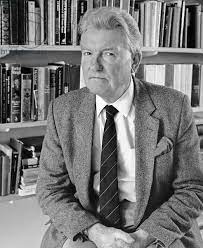
In 1983 Manchester-born English journalist-historian Paul Bede Johnson (1928-2023) pub. the NYT bestseller Modern Times: A History of the World from the 1920s to the 1980s , which was cited in National Review as one of the top ten books that changed North America, and is described as a book that has "influenced intellectual thinking on a profound level", launching his career as a historian of the conservative viewpoint; he started out on the left and matured.

In 1983 U. of Va. historian Peter S. Onuf (1945-) pub. his first book The Origins of the Federal Republic: Jurisdictional Controversies in the United States, 1775-1787, which traces the federalist system to territorial wars between the colonies. In 1987 he pub. Statehood and Union: A History of the Northwest Ordinance. In 1990 he pub. A Union of Interests: Politics and Economics in Revolutionary America (w/Cathy D. Matson). In 1993 he pub. Federal Union, Modern World: The Law of Nations in an Age of Revolutions, 1776-1814 (w/Nicholas G. Onuf). In 1996 he pub. All Over the Map: Rethinking Religion and Nation in the United States (w/Edward L. Ayers, Patricia N. Limerick, and Stephen Nissenbaum). In 1999 he pub. Sally Hemmings and Thomas Jefferson: History, Memory and Civic Culture (w/Jan Ellen Lewis). In 2000 he pub. Jefferson's Empire: The Language of American Nationhood. In 2001 he pub. Jeffersonian America (w/Leonard Sadosky), which tries to explain the persistent orientation of the early U.S. towards the Atlantic coast and W frontier. In 2006 he pub. Nations, Markets, and War: Modern History and the American Civil War. In 2007 he pub. The Mind of Thomas Jefferson.
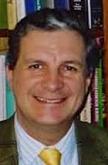
In 1985 Lincoln-born English historian of Western Esotericism Nicholas Goodrick-Clarke (1953-2012) pub. his first book The Occult Roots of Nazism: The Ariosophists of Austria and Germany, 1890-1935, which becomes his biggest hit, followed by Enchanted City: Arthur Machen and Locality: Scenes from His Early London Years, 1880-85 (1987), The Western Esoteric Traditions: A Historical Introduction (1988), Hitler's Priestess: Savitri Devi, the Hindu-Aryan Myth and Neo-Nazism (1998), Unknown Sources: National Socialism and the Occult (w/Hans Thomas Hakl) (2000), Black Sun: Aryan Cults, Esoteric Nazism, and the Politics of Identity (2002), Helena Blavatsky (2004), and G.R.S. Mead and the Gnostic Quest (w/G.R.S. Mead and Clare Goodrick-Clarke) (2005).

In 1985 Israeli-born King's College London historian Efraim Karsh (1953-)
pub. his first book
The Cautious Bear: Soviet Military Engagement in Middle East Wars in the Post-1967 Era,
followed by The Soviet Union and Syria: The Asad Years (1988),
Neutrality and Small States (1988),
Soviet Policy Towards Syria Since 1970 (1991),
Saddam Hussein: A Political Biography

In 1985 Mansfield, Ohio-born historian of science Edward John Larson (1953-) pub. his first book Trial and Error: The American Controversy Over Creation and Evolution (rev. ed. 2003), followed by Sex, Race, and Science: Eugenics in the Deep South (1995), Summer for the Gods: The Scopes Trial and America's Continuing Debate Over Science and Religion (1997) (Pulitzer Prize), A Different Death: Euthanasia and the Christian Tradition (w/Darrel W. Amundsen) (1998), The History of Science and Religion in the Western Tradition: An Encyclopedia (w/Gary B. Ferngren and Darrel W. Amundsen) (2000), Evolution’s Workshop: God and Science on the Galapagos Islands (2001), Evolution: The Remarkable History of a Scientific Theory (2004), The Creation-Evolution Debate: Historical Perspectives (2007), A Magnificent Catastrophe: The Tumultuous Election of 1800, America’s First Presidential Campaign (2007), with the opening line "They could write like angels and scheme like demons", and An Empire of Ice: Scott, Shackleton and the Heroic Age of Antarctic Science (2011).
In 1986-9 the Historikerstreit (Historians' Dispute) sees left-wing and right-wing historians of Nazi Germany split over how to compare its crimes with those of the Soviet Union, with the right-wingers seeing the Third Reich as a type of totalitarianism a la the Soviet Union, which means that a new Reich can arise anywhere anytime, downplaying Soviet crimes, and the left-wingers seeing it as a type of fascism a la Fascist Italy, making their crimes unique in history, downplaying Nazi crimes; the fall of Communism in E Europe in 1989-91 that exposes more info. about Soviet crimes causes the left-wingers to lose the debate?
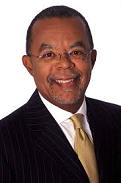




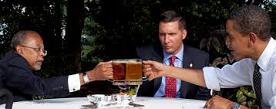
In 1987 Keyser, W. Va.-born historian-filmmaker Henry Louis "Skip" Gates Jr. (1950-) pub. his first book Figures in Black: Words, Signs, and the "Racial" Self, followed by The Signifying Monkey (1988), Loose Canons: Notes on the Culture Wars(1992), Colored People: A Memoir (1994), The Future of the Race (w/Cornel West) (1996), The Norton Anthology of African American Literature (w/Nallie Y. McKay) (1996), Thirteen Ways of Looking at a Black Man (1997), The Dictionary of Global Culture (w/Kwame Anthony Appiah) (1998), Wonders of the African World (1999), Africana: The Encyclopedia of the African and African American Experience (1999), The African American Century: How Black Americans Have Shaped Our Century (2000), Hannah Crafts: The Bondwoman's Narrative (2002), The Trials of Phyllis Wheatley: America's First Black Poet and Her Encounters with the Founding Fathers (2003), Searching for Hannah Crafts: Essays in the Bondwoman's Narrative (w/Hollis Robbins), Finding Oprah's Roots: Finding Your Own (2007), The African American National Biography (2008), In Search of Our Roots: How 19 Extraordinary African Americans Reclaimed Their Past (2009), and Lincoln on Race and Slavery (w/Donald Yacovone) (2009). On July 22, 2009 Pres. Obama gives a press conference to boost his struggling health care reform program, in which he mentions the July 16 arrest of famed black Harvard prof. Henry Louis "Skip" Gates Jr. (1950-) in his own house near the Harvard campus after being investigated for being a burglar and cleared after producing an ID, the white policeman Sgt. James Crowley trumping up "disorderly conduct" charges for "exhibiting loud and tumultuous behavior" just for mouthing off to him and other trespassing gun-wagging cops who refuse to produce their badge numbers so he could identify them later, Obama saying that the police "acted stupidly"; although the charges were dropped, and no charges filed against the police, Gates goes on to speak out against police racial profiling and demand an apology, raising a nat. firestorm of controversy in the PC press, with Obama sticking to his guns and the police backing each other up, and Crowley calling Obama "way off base", after which Obama calls Crowley and says he should have used different words to avoid inflaming the controversy, but stops short of apologizing to Da Man, and on July 25 Obama invites both of them to the White House for a 1-hour Beer Summit on July 30 in an attempt to get it behind him; the open statements to the press by Crowley that he would arrest anybody who was "loud and boisterous" (i.e., mouths off to him) in the future raises profound constitutional questions (three strikes of mouthing off to a cop and you get life?); Gates goes for Red Stripe, Obama for Bud Light, and Crowley for Blue Moon; on July 30 Boston policeman Justin Barrett (1973-) is suspended for sending an email calling Gates a "jungle monkey", and later fired; meanwhile Lucia Whalen, who made the 9/11 call speaks to the press on July 29, saying she is pained by being called a racist and didn't actually know or describe Gates as black. He goes on to pub. Encyclopedia of Africa (w/Kwame Anthony Appiah) (2 vols.) (2010), Faces of America: How 12 Extraordinary Americans Reclaimed Their Pasts (2010), Tradition and the Black Atlantic: Critical Theory in the African Diaspora (2010), Black in Latin America (2011), Life Upon These Shores: Looking at African American History (2011), The Henry Louis Gates, Jr. Reader (2012), The African Americans: Many Rivers to Cross (2013), and Finding Your Roots.
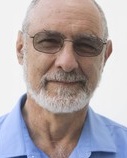
In 1987 Am. historian Richard Landes (1949-) pub. his first book Essays on the Peace of God: The Chuch and the People in Eleventh-Century France; launches his career specializing on apocalyptic movements of the year 1000, esp. the Western progressive left and their Arc of History and the Muslim Caliphaters; he goes on to coin the term "Pallywood" for the fake Hollywood-style productions of Palestinians to gain outside sympathy.
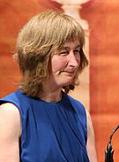
In 1987 Melbourne-born Australian Oxford U. historian Lyndal Roper (1956-) pub. her first book Disciplines of Faith: Studies in Religion, Politics, and Patriarchy (w/Jim Obelkevich and Raphael Samuel), followed by The Holy Household: Women and Morals in Reformation Augsburg (1989), which claims that the Reformation significantly worsened the situation of women, Oedipus and the Devil: Witchcraft, Sexuality, and Religion in Early Modern Europe (1994), Dreams and History: The Interpretation of Dreams from Ancient Greece to Modern Psychoanalysis (w/Daniel Pick) (2004), Witch Craze: Terror and Fantasy in Baroque Germany (2004), which claims that the real reason behind the Burning Times persecution of old (40+) women was their infertility combined with the Little Ice Age, with most prosecutions initiated not by the Church but by their neighbors, Witchcraft and the Western Imagination (2005), which claims that demonology could form part of a literature of entertainment, and The Witch in the Western Imagination (2012).
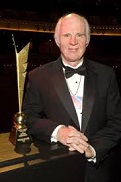
In 1988 Atlanta, Ga.-born historian Taylor Branch (1947-) pub. Parting the Waters: America in the King Years, 1954-63 (Pulitzer Prize), first in the 3-vol. 2,912-page trilogy America in the King Years, followed by Pillar of Fire: America in the King Years, 1963-65 (1998), and At Canaan's Edge: America in the King Years, 1965-1968 (2006), becoming the definitive bio. of MLK Jr.

In 1989 Munich, Germany-born Am. military historian Lawrence Rush "Rick" Atkinson IV (1952-) pub. his first book The Long Gray Line: The American Journey of West Point's Class of 1966, followed by Crusade: The Untold Story of the Persian Gulf War (1993), An Army at Dawn: The War in North Africa, 1942-1943 (2002) (Liberation Trilogy #1) (Pulitzer Prize), In the Company of Soldiers: A Chronicle of Combat (2004), The Day of Battle: The War in Sicily and Italy, 1943-1944 (2007) (Liberation Trilogy #2), Where Valor Rests: Arlington National Cemetery (2007), The Guns at Last Light: The War in Western Europe, 1944-1945 (2013) (Liberation Trilogy #3), D-Day: The Invasion of Normandy, 1944 (2014), and Battle of the Bulge (2015).
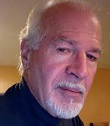
In 1990 U.S. historian Stephen Fox (1938-) pub. The Unknown Internment: An Oral History of the Relocation of Italian Americans During World War II, following with Uncivil Liberties: Italian Americans Under Siege During World War II (2000), America's Invisible Gulag: A Biography of German American Internment and Exclusion in World War II: Memory and History (2000) (replaced by "Fear Itself: Inside the FBI Roundup of German Americans During World War II"), and Homeland Security: Aliens, Citizens, and the Challenge to American Civil Liberties in World Waa II.
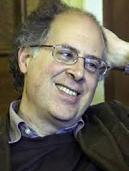
In 1990 U.S.-born British historian Peter Mandler (1958-), an advocate of popular public history a la Simon Schama and Niall Ferguson pub. his first book Aristocratic Government and the Age of Reform: Whigs and Liberals, 1830-1852, which shows how the British aristocracy stayed in power for 16 of the 22 years between 1830-52 by resisting liberal pressures, followed by The Uses of Charity: The Poor on Relief in the 19th-Century Metropolis (1990), After the Victorians: Private Conscience and Public Duty in Modern Britain (w/Susan Pederson) (1994), The Fall and Rise of the Stately Home (1997), detailing the ups and downs of public appreciation for the British artistocracy and their mansions, becoming his biggest hit, History and National Life (2002), denies that history is only about finding out who we are and where we come from, and is less directly "useful", but also richer than that, Liberty and Authority in Victorian Britain (2006), and The English National Character: The History of an Idea from Edmund Burke to Tony Blair (2006).
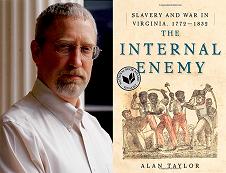
In 1990 Portland, Maine-born historian Alan Shaw Taylor (1955-), a practitioner of microhistory devoted to the revival of narrative history as opposed to the work of new social historians and new cultural historians pub. his first work Liberty Men and Great Proprietors: The Revolutionary Settlement on the Maine Frontier 1760-1820, followed by William Cooper's Town: Power and Persuasion on the Frontier of the Early American Republic (1995) (Pulitzer Prize) (Beveridge Award), American Colonies (2001), Writing Early American History (2005), The Divided Ground: Indians, Settlers, and the Northern Borderland of the American Revolution (2006), The Civil War of 1812: American Citizens, British Subjects, Irish Rebels, & Indian Allies (2010), Colonial America: A Very Short Introduction (2012), and The Internal Enemy: Slavery and War in Virginia, 1772-1832 (Pulitzer Prize).
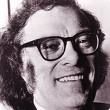
On Nov. 6, 1991 having pub. on every other subject, Russian-born Am. sci-fi king Isaac Asimov (1920-92) pub. Asimov's Chronology of the World: The History of the World from the Big Bang to Modern Times; ends in 1945; weak on dates - spell my name again?

In 1992 Chicago, Ill.-born Yoshihiro Francis Fukuyama (1952-) pub. The End of History and the Last Man, which expands his 1989 essay "The End of History?", contradicting Karl Marx by claiming that Western liberal democracy may signal the endpoint of human sociocultural evolution; "In watching the flow of events over the past decade or so, it is hard to avoid the feeling that something very fundamental has happened in world history"; "The triumph of the West, of the Western idea is evident... in the total exhaustion of viable systematic alternatives to Western liberalism"; "What we may be witnessing is not just the end of the Cold War, or the passing of a particular period of post-war history, but the end of history as such: that is, the end point of mankind's ideological evolution and the universalization of Western liberal democracy as the final form of human government."

In 1993 Am. historian Kenneth Pomeranz (1958-) of the U. of Chicago (student of Jonathan Spence) pub. The Making of a Hinterland: State, Society and Economy in Inland North China, 1853-1937. In 1999 he pub. The World that Trade Created: Society, Culture and the World Economy, 1400 to the Present. In 2000 he pub. The Great Divergence: China, Europe and the Making of the Modern World Economy, which attempts to explain the Industrial Rev. in Europe as the product of coal and exports to the New World.

In 1994 Harvard business historian Nancy F. Koehn (1959-) pub. The Power of Commerce: Economy and Governance in the First British Empire, followed by Brand New: How Entrepreneurs Earned Consumers' Trust from Wedgwood to Dell (2001), The Story of American Business: From the Pages of the New York Times (2009), Ernest Shackleton: Exploring Leadership (2010), Oprah (Brand) Renew (2011), Oprah: Leading with Heart (2011), and Forged in Crisis: The Power of Courageous Leadership in Turbulent Times (Oct. 3, 2017).

In 1994 the Gilder Lehrman Inst. of Am. History in New York City is founded by businessmen-philanthropists Richard Gilder Jr. (1932-) and Lewis E. "Lew" Lehrman (1938-) (former head of Rite Aid, an Am. historian, economist, Repub. politician, and investment banker, known for wearing red suspenders) to promote study and interest in Am. history, going on to establish the $50K Lincoln Prize (1991), $25K Federick Douglass Book Prize (1999), and $50K George Washington Book Prize (2005).

In 1995 Sydney, Australian-born Cambridge U. historian Sir Christopher Munro "Chris" Clark (1960-) pub. his first book The Politics of Conversion: Missionary Protestantism and the Jews in Prussia, 1728–1941, about Protestant missionary activity with the Jews in Prussia, followed by Kaiser Wilhelm II: A Life in Power (2000), Culture Wars: Secular-Catholic Conflict in Nineteenth-Century Europe (w/Wolfram Kaiser) (2003), Iron Kingdom: The Rise and Downfall of Prussia, 1600-1947 (Preussen: Aufstieg und Niedergant, 1600-1940) (2006) (Wolfson History Prize), which earns him an order of merit from the Fed. Repub. of Germany, plus the German Historians' Prize (first foreigner), and The Sleepwalkers: How Europe Went to War in 1914 (2012), which earns him a British knighthood; German trans. pub. in 2013; challenges the "war guilt" of the Germans for WWI, relieving the German govt. of responsibility by claiming that they were engaging in risks that had been taken before without catastrophic consequences which just chanced to come out bad, becoming a hit in Germany despite Volker Ullrich's criticism that it ignores the pressure from Germany's powerful military establishment, and Hans-Ulrich Wehler's criticism that the book "eliminates [Germany's war guilt] with bewildering one-sidedness". In 2015 he receives a British knighthood for his services to Anglo-German relations.

In 1995 Glasgow, Scotland-born atheist Oxford U. historian Niall Campbell Douglas Ferguson (1964-) pub. his first book Paper and Iron: Hamburg Business and German Politics in the Era of Inflation, 1897-1927, followed by Virtual History: Alternatives and Counterfactuals (1997). In 1998 he pub. The Pity of War: Explaining World War I, about the 10 great myths of the Great War; argues that it would have been better for Britain to stay out of WWI and let Germany win and create a European Union sans Communism and Fascism, calling the British entry "the biggest error in modern history", causing a firestorm of controversy; argues that Britain was as much to blame for the start of WWI as Germany, and that had it sacrificed Belgium and its Belgian waffles to them, the 1917 Bolshevik Rev. could have been prevented, Germany would have created a stable united European state, and Britain could have remained a superpower, ruling the seas while Germany ruled the continent; in other words, the white Euro race would have avoided suicide by working together to rule da world; moreover, there was little enthusiasm for the war in Britain in 1914, while at the end the war was prolonged not by clever manipulation of the media, but by British soldiers' pleasure in combat; also claims that it wasn't the severity but the leniency of the conditions imposed on Germany at Versailles in 1919 that led inexorably to World War II, and that they should have collected more reparations to keep them from rearming to prevent another mass suicide; on Jan. 29, 2014 he gives an interview to BBC History Mag., in which he claims that Britain could have lived with a German V in WWI, and should have stayed out of it, calling their hasty unprepared intervention "the biggest error in modern history"; "Creating an army more or less from scratch and then sending it into combat against the Germans was a recipe for disastrous losses. And if one asks whether this was the best way for Britain to deal with the challenge posed by imperial Germany, my answer is no"; "Even if Germany had defeated France and Russia, it would have had a pretty massive challenge on its hands trying to run the new German-dominated Europe and would have remained significantly weaker than the British empire in naval and financial terms. Given the resources that Britain had available in 1914, a better strategy would have been to wait and deal with the German challenge later when Britain could respond on its own terms, taking advantage of its much greater naval and financial capability"; "The cost, let me emphasise, of the first world war to Britain was catastrophic, and it left the British empire at the end of it all in a much weakened state... It had accumulated a vast debt, the cost of which really limited Britain's military capability throughout the interwar period. Then there was the manpower loss – not just all those aristocratic officers, but the many, many, many skilled workers who died or were permanently incapacitated in the war"; "Arguments about honour of course resonate today as they resonated in 1914, but you can pay too high a price for upholding the notion of honour, and I think in the end Britain did." In 1998 he pub. The House of Rothschild (2 vols.), "Money's Prophets: 1798-1848", "The World's Banker: 1849-1999"; based on access to the KGB's archive with trans. by Mordecai Zucker; becomes a std. work. In 2001 he pub. The Cash Nexus: Money and Power in the Modern World, 1700-2000, which argues that the saying "money makes the world go 'round" is wrong because it's all about non-economic motivations in the end, incl. sex, violence, and power. In 2003 he pub. Empire: How Britain Made the Modern World (Empire: The Rise and Demise of the British World Order and the Lessons for Global Power), showing how "an archipelago of rainy islands... came to rule the world", defending it against critics for "impos[ing] free markets, the rule of law... and relatively incorrupt government" on a quarter of the Earth's pop.; details the British Empire of the 19th cent. and how it led globalization with military conquest, missionary work, spread of the English language, steam power, telegraphs, guns, and engineers, fueled by 20M emigrants between 1600-1960, with imports of coffee, tea, tobacco, and sugar fueling free movement of goods, capital, and labor, leading to mass consumerism; The difficulty with the achievements of empire is that they are much more likely to be taken for granted than the sins of empire"; "The question is not whether British imperialism was without blemish. It was not. The question is whether there could have been a less bloody path to modernity." In 2004 he pub. Colossus: The Price of America's Empire, which pooh-poohs Pres. George W. Bush's statement that "America has never been an empire", and U.S. defense secy. Donald Rumsfeld's assertion that "We're not imperialistic", claiming that the U.S. is a global empire with attention deficit disorder that's in denial of its responsibilities both foreign and domestic. In 2005 he pub. 1914: Why the World Went to War. In 2006 he pub. The War of the World: History's Age of Hatred (Twentieth-Century Conflict and the Descent of the West); about the incomprehensible 20th cent., the "lethal century", with a global multi-polar Hundred Years War, attempting to explain the paradox that even though it was "so bloody" it was also "a time of unparalleled progress." In 2008 he pub. The Ascent of Money: A Financial History of the World, a history of money, ending with Chinamerica, and how an Asian savings glut propelled the U.S. subprime mortgage crisis. In 2010 he pub. High Financier: The Lives and Times of Siegmund Warburg. In 2011 he pub. Civilization: The West and the Rest, his attempt to answer the "most interesting question" of today: "Why, beginning around 1500, did a few small polities on the western end of the Eurasian landmass come to dominate the rest of the world?", attributing it to six "killer apps" largely missing elsewhere in the world, "competition, science, the rule of law, medicine, consumerism and the work ethic." In 2013 he pub. The Great Degeneration; How Institutions Decay and Economies Die.

In 1995 Chicago, Ill.-born Am. intellectual historian David Albert Hollinger (1941-) pub. Postethnic America: Beyond Culturalism, which calls for replacing the pluralist model of multiculturalism based on group rights with a cosmopolitan model that recognizes multiple identities and shifting group boundaries, followed by The American Intellectual Tradition (w/Charles Capper) (2 vols.) (2006), a source book for undergrad courses in Am. intellectual history that becomes very popular, and After Cloven Tongues of Fire: Protestant Liberalism and Modern American History (2013), which examines how liberal Protestantism grew in the U.S. while yielding their symbolic capital to the conservative evangelicals.
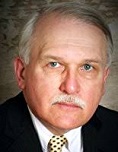
On Apr. 1, 1995 Amsterdam, N.Y.-born David Pietrusza (1949-) pub. Minor Miracles: The Legend and Lure of Minor League Baseball. On Nov. 1, 1995 he pub. The Invasion of Normandy. On June 1, 1996 he pub. Mysterious Deaths: John F. Kennedy. On Aug. 1, 1996 he pub. The Chinese Cultural Revolution. On July 14, 1997 he pub. Lights On!: The Wild Century-Long Saga of Night Baseball. On May 10, 2001 he pub. Ted Williams: My Life in Pictures. On May 30, 2001 he pub. Total Baseball: The Official Encyclopedia of Major League Baseball, which becomes a hit and goes through seven eds. On Oct. 23, 2001 he pub. Judge and Jury: The Life and Times of Judge Kenesaw Mountain Landis (Oct. 23). On Dec. 9, 2005 he pub. Major Leagues: The Formation, Sometimes Absorption And Mostly. On Apr. 8, 2008 he pub. 1920: The Year of the Six Presidents. On Aug. 19, 2008 he pub. Silent Cal's Almanack: The Homespun Wit and Wisdom of Vermont's Calvin Coolidge. On Sept. 2, 2008 he pub. 1960-LBJ vs. JFK vs. Nixon: The Epic Campaign That Forged Three Presidencies. On Sept. 13, 2011 he pub. Rothstein: The Life, Times, and Murder of the Criminal Genius Who Fixed the 1919 World Series. On Oct. 4, 2011 he pub. 1948: Harry Truman's Improbable Victory and the Year that Transformed America. On Oct. 18, 2012 he pub. Calvin Coolidge on The Founders: Reflections on the American Revolution & the Founding Fathers. On Feb. 11, 2013 he pub. Calvin Coolidge: A Documentary Biography. On Sept. 1, 2016 he pub. 1932: The Rise of Hitler and FDR?Two Tales of Politics, Betrayal, and Unlikely Destiny. On Sept. 1, 2018 he pub. TR's Last War: Theodore Roosevelt, the Great War, and a Journey of Triumph and Tragedy.

In 1995 British historian Richard Vinen pub. his first book Bourgeois Politics in France, 1945-51, followed by France, 1934-1970 (1996), A History in Fragments: Europe in the Twentieth Century (2000), The Unfree French: Life Under Occupation (2006), Thatcher's Britain (2009), and National Service: Conscription in Britain, 1945-1963 (2014), which wins a Wolfson History Prize and Templer Medal.

In 1996 New York City-born conservative political scientist Samuel Phillips Huntington (1927-2008) pub. The Clash of Civilizations and the Remaking of the World Order, an answer to Francis Fukuyama's "The End of History and the Last Man" (1992); claims that people's cultural and religious identities will be the #1 source of conflict in the post-Cold War world; "The West won the world not by the superiority of its ideas or values or religion, but rather by its superiority in applying organized violence. Westerners often forget this fact, non-Westerners never do"; "It is my hypothesis that the fundamental source of conflict in this new world will not be primarily ideological or primarily economic. The great divisions among humankind and the dominating source of conflict will be cultural. Nation-states will remain the most powerful actors in world affairs, but the principal conflicts of global politics will occur between nations and groups of different civilizations. The clash of civilizations will dominate global politics. The fault lines between civilizations will be the battle lines of the future"; "Hypocrisy, double standards, and 'but nots' are the price of universalist pretensions. Democracy is promoted, but not if it brings Islamic fundamentalists to power; nonproliferation is preached for Iran and Iraq, but not for Israel; free trade is the elixir of economic growth, but not for agriculture; human rights are an issue for China, but not with Saudi Arabia; aggression against oil-owning Kuwaitis is massively repulsed, but not against non-oil-owning Bosnians. Double standards in practice are the unavoidable price of universal standards of principle"; "In the emerging world of ethnic conflict and civilizational clash, Western belief in the universality of Western culture suffers three problems: it is false; it is immoral; and it is dangerous... Imperialism is the necessary logical consequence of universalism"; "In Eurasia the great historic fault lines between civilizations are once more aflame. This is particularly true along the boundaries of the crescent-shaped Islamic bloc of nations, from the bulge of Africa to central Asia. Violence also occurs between Muslims, on the one hand, and Orthodox Serbs in the Balkans, Jews in Israel, Hindus in India, Buddhists in Burma and Catholics in the Philippines. Islam has bloody borders"; "Islam's borders are bloody and so are its innards. The fundamental problem for the West is not Islamic fundamentalism. It is Islam, a different civilisation whose people are convinced of the superiority of their culture and are obsessed with the inferiority of their power."



On Dec. 5, 1997 Gus Van Sant's Good Will Hunting debuts, based on failed genius William James Sidis (1898-1944), becoming a breakthrough for Boston-raised screenwriter-actor buddies Matt Damon (Mad Demon?) and Ben Affleck (Son of Affliction?), who star as precious math genius orphan Will Hunting and his blue-collar buddy Chuckie Sullivan; also stars Robin Williams as pshrink Sean Maguire, Stellan Skarsgard as Fields Medal-winning MIT math prof. Gerald Lambeau, and Minnie Driver as Will's Harvard pre-med student babe Skylar; makes Woody's L Street Tavern in South Boston famous; Will abandons his brain career for his wiener after curing his pshrink of the loss of his wife, then is cured of his childhood abuse problems in return; brings in $226M on a $10M budget; "If you're not thinking with your wiener then you're acting directly on its behalf" (Driver); "Sorry, guys, I gotta see about a girl" (Williams); "It's not about you, you mathematical dick" (Williams to Skarsgard); "It's not your fault" (Williams to Damon); cops an article from the Dec. 1, 1994 New York Review of Books by Gordon Stewart Wood (1933-) and James T. Lemon (-2012) for a barroom debate about early Am. economics, stimulating interest about U.S. history and/or economics?
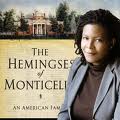
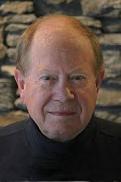
In 1997 Livingston, Tex.-born historian Annette Gordon-Reed (1958) pub. her first book Thomas Jefferson and Sally Hemings: An American Controversy, which reexamines the evidence and concludes that they hooked up. In 1997 Washington, D.C.-born Mount Holyoke College historian Joseph John Ellis (1943-) pub. American Sphinx: The Character of Thomas Jefferson, which contains the soundbyte: "I have concluded that the likelihood of a liaison with Sally Hemings is remote"; too bad, after an article in the Nov. 1998 Nature by Eugene Foster et al. reveals conclusive DNA tests proving a link between Jefferson and Eston Hemings, he flops and admits that "this new evidence constitutes, well, evidence beyond any reasonable doubt that Jefferson had a longstanding sexual relationship with Sally Hemings", causing the Thomas Jefferson Foundation in Monticello to finally announce in 2000 that it accepts that TJ liked black sugar, although some historians continue to hold out. In 2001 Gordon-Reed pub. Vernon Can Read!, a memoir of civil rights activist Vernon Jordan, which she co-wrote. In 2002 she pub. Race on Trial: Law and Justice in American History. In 2008 she pub. The Hemingses of Monticello: An American Family (Pulitzer Prize) (first African-Am.), tracing the 75 descendants of Elizabeth Hemings, incl. the descendants of Thomas Jefferson. In 2011 she pub. Andrew Johnson, which disses him for denying freed slaves their own land, keeping them in perpetual economic servitude as sharecroppers.

In 1999 Columbia, Mo.-born NYU historian Walter Johnson Jr. (1966-) pub. his first book Soul by Soul: Life Inside the Antebellum Slave Market (Frederick Jackson Turner Prize), establishing his rep, followed by The Chattel Principle: Internal Slave Trades in the Americas (2004), State of the Field: Slavery (2004), and River of Dark Dreams: Slavery and Empire in the Cotton Kingdom (2013).
In 1999 the annual $10K Mark Lynton History Prize is established by Marion Lynton in honor of her husband Mark Lynton for a book "of history, on any subject, that best combines intellectual or scholarly distinction with felicity of expression"; the first award goes to Adam Hochschild for "King Leopold's Ghost: A Story of Greed, Terror and Heroism in Colonial Africa" (1998).

In 2000 Creteil, France-born cultural historian Jacques Martin Barzun (1907-2012) (former Seth Low Prof. of History at Columbia U.) pub. his magnum opus From Dawn to Decadence: 500 Years of Western Cultural Life, 1500 to the Present, a NYT bestseller, covering Western cultural history since 1500; "Arguably the best thinking man's bedside book ever written" (Peter Green, Times Lit. Supplement) - enjoy the ride from sugarland?

In 2000 after vacationing in Tahiti in 1994 and reading Sidney Sheldon's "Doomsday Conspiracy", beginning "to suspect that maybe I could write a 'thriller' of this type one day", Exter, N.H.-born Daniel "Dan" Brown (1964-) son of Phillips Exeter Academy math prof. Richard G. Brown and musician Constance Brown), educated at Phillips Exeter Academy and Amherst College pub. Angels and Demons, about how the Illuminati are real and out ta getchya, introducing Harvard U. prof. Robert Langdon; filmed in 2009. Pass the cilice, Mother T? On Mar. 18, 2003 (two days after the U.S. invades Iraq) he pub. The Da Vinci Code; 10K advance copies and 230K initial press run; 23,578 sold the first week, making #1 on the NYT bestseller list ("the novel that ate the world"); "Renowned curator Jacques Sauniere staggered through thevaulted archway of the museum's Grand Gallery" (first line); "O, Draconian devil! Oh, lame saint!"; "So dark the con of man"; "In London lies a knight a pope interred/ His labor's fruit a Holy wrath incurred/ You seek the orb that ought be on his tomb/ It speaks of Rosy flesh and seeded womb"; "The Holy Grail 'neath ancient Roslin waits/ The blade and chalice guarding o'er Her gates/ She rests at last beneath the starry skies"; Harris Tweed-loving Harvard U. religious symbology prof. Robert Langdon (language don?), Capt. Bezu Fache (busy fish?) and Lt. Jerome Collet (roam around and collate his boss' microfiche?) of the DCPJ, Jacques Sauniere (saner?) of the Louvre, "Princess" Sophie (Sofia) Neveu (renovate?) alias St. Clair (not Plantard), monk Silas (Sauniere's Judas?) and Bishop Manuel Aringarosa (ring around the rosey?) of Opus Dei (which has only lay members?), Andre Vernet (wears vernier Rolex timepieces?) of the Depository Bank of Zurich, Sir Leigh Teabing (Sir Lipton tea bag?) alias the Teacher at Chateau Villette (1668) and his manservant Remy Legaludec (legal duke?) from Lyons and his Medusa revolver, the Da Vinci cryptex with password SOFIA, er, APPLE, fleur de lis, PHI, Amon L'Isa, 325 Council of Nicea, security warden Claude Grouard (guard?), Pamela Gettum (I'll get um for ya?) of King's College library, Church of Saint-Sulpice in Paris with the first Rose Line and Sister Sandrine Bieil (bee eye?), Vatican Biblioteca Astronomica, Gare Saint-Lazre train station, 24 Rue Haxo and the Bois de Boulogne ("garden of earthly delights"), Friday the 13th of Oct. 1307, Leonardo da Vinci (always called Leonardo, never da Vinci?) and his Vitruvian Man, Mona Lisa, Madonna of the Rocks and skitoma-filled Last Supper, Sofia, 1099 Priory of Sion and Godefroi de Bouillon, Pentacle of Venus and Hieros Gamos, Dead Sea Scrolls, Sang Real not San Greal, Mary Magdalene of the tribe of Benjamin and Jesus of the House of David equals unbelievable; Atbash cipher and Sheshach alias Babel, Sir Isaac Newton and Alexander Pope, 1185 London Temple Church and 1065 Westminster Abbey with College Garden and octagonal Chapter House, 1446 Rosslyn Chapel (Cathedral of Codes) with the Boaz and Jachin pillars, Fibonacci sequence 13-3-2-21-1-1-8-5; "Yo soy un espectro" (Silas) (p. 56); starting with Ch. 58 the book gets rather preachy?; "Leonardo was one of the keepers of the secret of the Holy Grail. And he hid clues in his art" (Teabing) (p. 230); "Almost everything our fathers taught us about Christ is false... More than eighty gospels were considered for the New Testament, and yet only a relative few were chosen for inclusion - Matthew, Mark, Luke, and John, among them... The Bible, as we know it today, was collated by the pagan Roman emperor Constantine the Great... a lifelong pagan who was baptized on his deathbed, too weak to protest" (Teabing) (pp. 230-1); "At this gathering many aspects of Christianity were debated and voted upon - the date of Easter, the role of the bishops, the administration of sacraments, and of course, the divinity of Jesus... Until that moment in history, Jesus was viewed by His followers as a mortal prophet... a great and powerful man, but a man nonetheless.... Jesus' establishment as 'the son of God' was officially proposed and voted on by the Council of Nicaea... A relatively close vote at that"; "It was all about power... Christ as Messiah was critical to the functioning of Church and state. Many scholars claim that the early Church literally stole Jesus from His original followers, hijacking His human message, shrouding it in an impenetrable cloak of divinity, and using it to expand their own power" (Teabing) (p. 233); "The twist is this... Because Constantine upgraded Jesus' status almost four centuries after Jesus' death, thousands of documents already existed chronicling His life as a mortal man. To rewrite the history books, Constantine knew he would need a bold stroke. From this sprang the most profound moment in Christian history... Constantine commissioned and financed a new Bible, which omitted those gospels that spoke of Christ's human traits and embellished those gospels that made Him godlike. The earlier gospels were outlawed, gathered up, and burned" (Teabing) (p. 234); "Fortunately for historians... some of the gospels that Constantine attempted to eradicate managed to survive... the Dead Sea Scrolls were found in the 1950s hidden in a cave near Qumran in the Judean desert. And, of course, the Coptic Scrolls in 1945 at Nag Hammadi. In addition to telling the true Grail story, these documents speak of Christ's ministry in very human terms. Of course, the Vatican, in keeping with their tradition of misinformation, tried very hard to suppress the release of these scrolls. And why wouldn't they? The scrolls highlight glaring historical discrepancies and fabrications, clearly confirming that the modern Bible was compiled and edited by men who possessed a political agenda - to promote the divinity of the man Jesus Christ and use His influence to solidify their own power base" (Teabing) (p. 234); "The Grail... is symbolic of the lost goddess. When Christianity came along, the old pagan religions did not die easily. Legends of chivalric quests for the lost Grail were in fact stories of forbidden quests to find the lost sacred feminine. Knights who claimed to be 'searching for the chalice' were seaking in code as a way to protect themselves from a Church that had subjugated women, banished the Goddess, burned nonbelievers, and forbidden the pagan reverence for the sacred feminine" (Langdon) (pp. 238-9); "It was not Peter to whom Christ gave directions with which to establish the Christian Church. It was Mary Magdalene... Jesus was the original feminist. He intended for the future of His Church to be in the hands of Mary Magdalene" (Teabing) (p. 248); "Behold the greatest cover-up in human history. Not only was Jesus Christ married, but He was a father. My dear, Mary Magdalene was the Holy Vessel. She was the chalice that bore the royal bloodline of Jesus Christ. She was the womb that bore the lineage, and the vine from which the sacred fruit sprang forth" (Teabing) (p. 249); becomes bestselling adult novel of all time (60M by 2006), spawning the new genre of fractured history written at the 8th grade level for the history-starved masses ("You don't hate history, you just hate your own history"?) spoon-fed during a ridiculous murder adventure; milks the fallacy of the evil albino, the fallacy of the talking killer, and the fallacy of the Bride of Christ not being his Church but his hot freckled red-haired bunkbunny Mary Magdalene, whose DNA (check out that melanocritia-1 receptor?) is more valuable than weapons-grade plutonium?; the best hook is the novel's opening: "FACT... All descriptions of artwork, architecture, documents, and secret rituals in this novel are accurate", spawning the Anti-Da Vinci Code Industry; "Do we not have the right to be accompanied by a wife, as the other apostles and the brothers of the Lord and Cephas?" (1 Cor. 9:5).

Us Americans, we're living longer than ever? He wants to start World War III? On Sept. 11, 2001 (9/11) after watching the 9/11 news on TV and getting freaked, T.L. Winslow (TLW) (1953-) of Denver, Colo. shelves his numerous other careers as computer programmer, engineer, fiction writer et al., and begins full-time work on T.L. Winslow's Great Track of Time, placing it on the World Wide Web on his Web site www.tlwinslow.com, where it first becomes accessible on Google on Oct. 29, until it receives over 100K hits and takes too much time and expense, pulling the plug in May 2003 and continuing to work on it for pub. by traditional channels, then putting it back up in Aug. 2013 on the Web site www.historyscoper.com after searching in vain for an agent, publisher, or investor to help it reach the millions, only to get far fewer hits because of the gaming of the search engines by millions of spam sites, which put his site at the bottom of the list; done totally outside academia, the smug closed establishment gives him no credit, reputation, or even notice until ?, allowing him to totally take over the field of history and launch the Historyscoping Rev. on his little ole desktop PC connected to the Internet with an iffy personal income and iffy living conditions, with increasing medical problems rendering him unable to even work at part-time jobs, ending up on govt. assistance; by the time his students storm the Bastille and become the establishment, he's ??? years old?; if you build it they will come?

In 2002 the Hessell-Tiltman Prize is established by the English PEN for the best work of nonfiction history for the period up to and incl. WWII, with lit. merit more important than academic value; the first award goes to Canadian historian Margaret Olwen MacMillan (1943-) (great-granddaughter of David Lloyd George) for Peacemakers: The Paris Peace Conference of 1919 and Its Attempt to End War (Paris 1919: Six Months That Changed the World) (2001), which asks the question: Was the Great War "an unmitigated catastrophe in a sea of mud", or "about something", concluding: "It is condescending and wrong to think they were hoodwinked." On Oct. 29, 2013 she pub. The War That Ended Peace: The Road to 1914; in Jan. 2014 she warns that WWI can happen again, with the soundbyte: "While history does not repeat itself precisely, the Middle East today bears a worrying resemblance to the Balkans then."

On Aug. 26, 2003 after 12 years and 85 rejections, Am. atty.-novelist Steve Berry (1955-) pub. The Amber Room, about Judge Rachel Cutler and her divorced hubby Paul, who hunt for the Amber Room of the Catherine Palace in Tsarskoe Selo, Russia, which disappeared in 1945, launching his bestselling historical adventure novel career (18M copies).

In 2005 Am. atheist historian Richard Cevantis Carrier (1969-) pub. his first book Sense and Goodness Without God: A Defense of Metaphysical Naturalism, defending Scientific Materialism (Metaphysical Naturalism), followed by Not the Impossible Faith: Why Christianity Didn't Need a Miracle to Succeed (2009), a rebuttal to J.P. Holding's "The Impossible Faith", Why I Am Not a Christian: Four Conclusive Reasons to Reject the Faith (2011), Proving History: Bayes's Theorem and the Quest for the Historical Jesus (2012), On the Historicity of Jesus: Why We Might Have Reason for Doubt (2014), with the soundbyte: "The concept of Jesus we're supposed to believe existed is actually getting more confused the more people study it", and Hitler Homer Bible Christ: The Historical Papers of Richard Carrier, 1995-2013 (2014).

In 2005 Elizabeth Kostova (1964-) pub. her first novel The Historian; is Vlad III Dracula the Impaler (1431-71) still alive?; Little, Brown & Co. pays $2M for it, and it sells 500K copies by Dec. 2005; parallel account of historian Paul in the 1950s, his daughter in 1972-3, and his mentor Bartholomew Rossi in 1930.
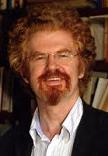
In 2005 British linguist-historian Nicholas Ostler (1952-) pub. his first book Empires of the Word: A Language History of the World, "the first history of the world's great tongues", followed by Ad Infinitum: A Biography of Latin (2007), arguing that it's not a dead language, and The Last Lingua Franca: English until the Return to Babel (2010), which claims that the days of English as a universal language are numbered, but there will be no replacement because computer translation will take over.
In 2007 the Year of the Pensive Woman Cover (PWC) sees the rush to service the market for historical novels created by Dan Brown and Elizabeth Kostova combined with a near-monopoly in book publishing and herd animal thinking, resulting in monotonously similar book covers rushing toward an identity crisis on bookstore shelves?
Fuck those other prizes, war pays? In 2007 the Pritzker Literature Award for Lifetime Achievement in Military Writing (originally the Pritzker Military Library Literature Award until 2014) is established by the Pritzker Military Museum and Library and sponsored by the Tawani Foundation of Chicago, Ill., with a $100K prize, one of the richest lit. prizes on Earth; the first winner is James M. McPherson (1936-), followed by Allan R. Millett (2008), Gerhard Ludwig Weinberg (1928-) (2009), Lawrence Rush "Rick" Atkinson IV (1952-) (2010), Carlo W. D'Este (1938-) (2011), Sir Max Hugh Macdonald Hastings (1945-) (2012), William Timothy "Tim" O'Brien (1946-) (2013), Antony James Beevor (1946-) (2014), and David Hacket Fischer (1935-) (2015).
In 2008 Georg G. Iggers, Q. Edward Wang, and Supriya Mukherjee pub. A Global History of Modern Historiography, about how Western academic historians of the last 2.5 cents. grew out of their Eurocentrism and are developing more of a global comparative view.
In 2008 the annual $75K Cundill Prize in History is founded at McGill U. in Canada by Canadian investor F. Peter Cundill (1938-2011) for the non-fiction book most likely to have profound literary, social, and academic impact in the area of history, becoming the richest non-fiction historical lit. prize in the world; the first award goes to Stuart B. Schwartz for "All Can Be Saved: Religious Tolerance and Salvation in the Iberian Atlantic World" (2007).
On Aug. 25, 2009 the Web site Ancient History Encyclopedia is launched.
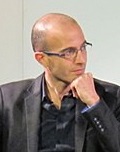
In 2011 Kiryat Ata, Israel-born historian of Hebrew U. of Jerusalem Yuval Noah Harari (1976-) pub. Sapiens: A Brief History of Humankind; English tr. pub. in 2014. In 2015 he pub. Homo Deus: A Brief History of Tomorrow. "Homo sapiens as we know them will disappear in a century or so."
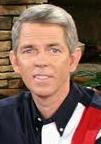
History's easy, anybody can do it? In 2012 Aledo, Tex.-born conservative evangelical Christian activist David Barton (1954-) pub. The Jefferson Lies: Exposing the Myths You've Always Believed About Thomas Jefferson, which claims that Jefferson wasn't a Deist but an evangelical Christian who believed that church-state separation was unidirectional; in Aug. numerous negative reviews cause the publisher Thomas Nelson to withdraw it, after which it is picked up by Glenn Beck; voted Least Credible History Book in Print by users of History News Network, beating Howard Zinn's "A People's History of the United States".
In Jan. 2014 the African Am. Intellectual History Society (AAIHS) is founded at the U. of N.C. in Charlotte, N.C.
On Aug. 20, 2019 Am. historian Mary Grabar of the Alexander Hamilton Inst. for the Study of Western Civilization pub. Debunking Howard Zinn: Exposing the Fake History That Turned a Generation against America, debunking his Marxist lies about U.S. history; too bad, his book already sold 2.5M copies and has penetrated the U.S. school system and the leftist community; meanwhile the New York Times announces the 1619 Project to reframe U.S. history to make it all about the evils of white supremacy and slavery, like Zinn would have loved.

In Aug. 2019 Waterloo, Iowa-born New York Times journalist Nikole Hannah-Jones (1976-) launches the 3-hanky 1619 Project, which claims that the Am. Rev. was fought mainly to preserve slavery, and that all of U.S. history is really about blacks, with the leftist NYT attempting to push it into all schools as their only U.S. history education; no surprise, in May 2020 she is awarded a Pulitzer Prize for pure leftist moose hockey?
| David Gregory (1696-1767) (1724) |
| William Holmes (1689-1748) (1736) |
| Joseph Spence (1699-1768) (1742) |
| John Vivian (1729-71) (1768) |
| Thomas Nowell (1730-1801) (1771) |
| Henry Beeke (1751-1837) (1801) |
| Edward Nares (1762-1841) (1813) |
| Thomas Arnold (1795-1842) (1841) |
| John Antony Cramer (1793-1848) (1842) |
| Henry Halford Vaughan (1811-85) (1848) |
| Goldwin Smith (1823-1910) (1858) |
| William Stubbs (1825-1901) (1866) |
| Edward Augustus Freeman (1823-92) (1884) |
| James Anthony Froude (1818-94) (1892) |
| Frederick York Powell (1850-1904) (1894) |
| Sir Charles Harding Firth (1857-1936) (1904) |
| Henry William Carless Davis (1874-1928) (1925) |
| Sir Frederick Maurice Powicke (1879-1963) (1928) |
| Vivian Hunter H. Galbraith (1889-1976) (1947) |
| Hugh Redwald Trevor-Roper, Baron Dacre of Glanton (1914-2003) (1957) |
| Sir Michael Eliot Howard (1922-) (1980) |
| Sir J.H. (John Huxtable) Elliott (1930-) (1990) |
| Robert John Weston Evans (1943-) (1997) |
| Lyndal Roper (1956-) (2011) |
| Samuel Harris (1724) |
| Shallet Turner (1692-1762) (1735) |
| Lawrence Brockett (1724-68) (1762) |
| Thomas Gray (1716-71) (1768) |
| John Symonds (1771) |
| William Smyth (1765-1849) (1807) |
| Sir James Stephen (1789-1859) (1849) |
| Charles Kingsley (1819-75) (1860) |
| Sir John Robert Seeley (1834-95) (1869) |
| John Emerich Edward Dalberg-Acton, 1st Baron Acton (1834-1902) (1895) |
| J.B. (John Bagnell) Bury (1861-1927) (1902) |
| G.M. (George Macaulay) Trevelyan (1876-1962) (1927) |
| Sir George Norman Clark (1890-1979) (1943) |
| Sir James Ramsay Montagu Butler (1889-1975) (1947) |
| David Knowles (1896-1974) (1954) |
| Sir Herbert Butterfield (1900-79) (1963) |
| William Owen Chadwick (1916-) (1968) |
| Sir Geoffrey Rudolph Elton (1921-94) (1983) |
| Patrick Collinson (1929-2011) (1988) |
| Quentin Robert Duthie Skinner (1940-) (1996) |
| Sir Richard John Evans (1947-) (2008) |
| Sir Christopher Munro "Chris" Clark (1960-) (2014) |
| Jared Sparks (1789-1866) (1838-49) |
| Henry Warren Torrey (1814-93) (1856-86) |
| Ephraim Whitman Gurney (1829-86) (1886) |
| Silas Marcus MacVane (Macvane) (1842-1914) (1887-1911) |
| Ernest Young (1852-88) (1887-8) |
| Steve E. Ozment (1939-) (1990-) |